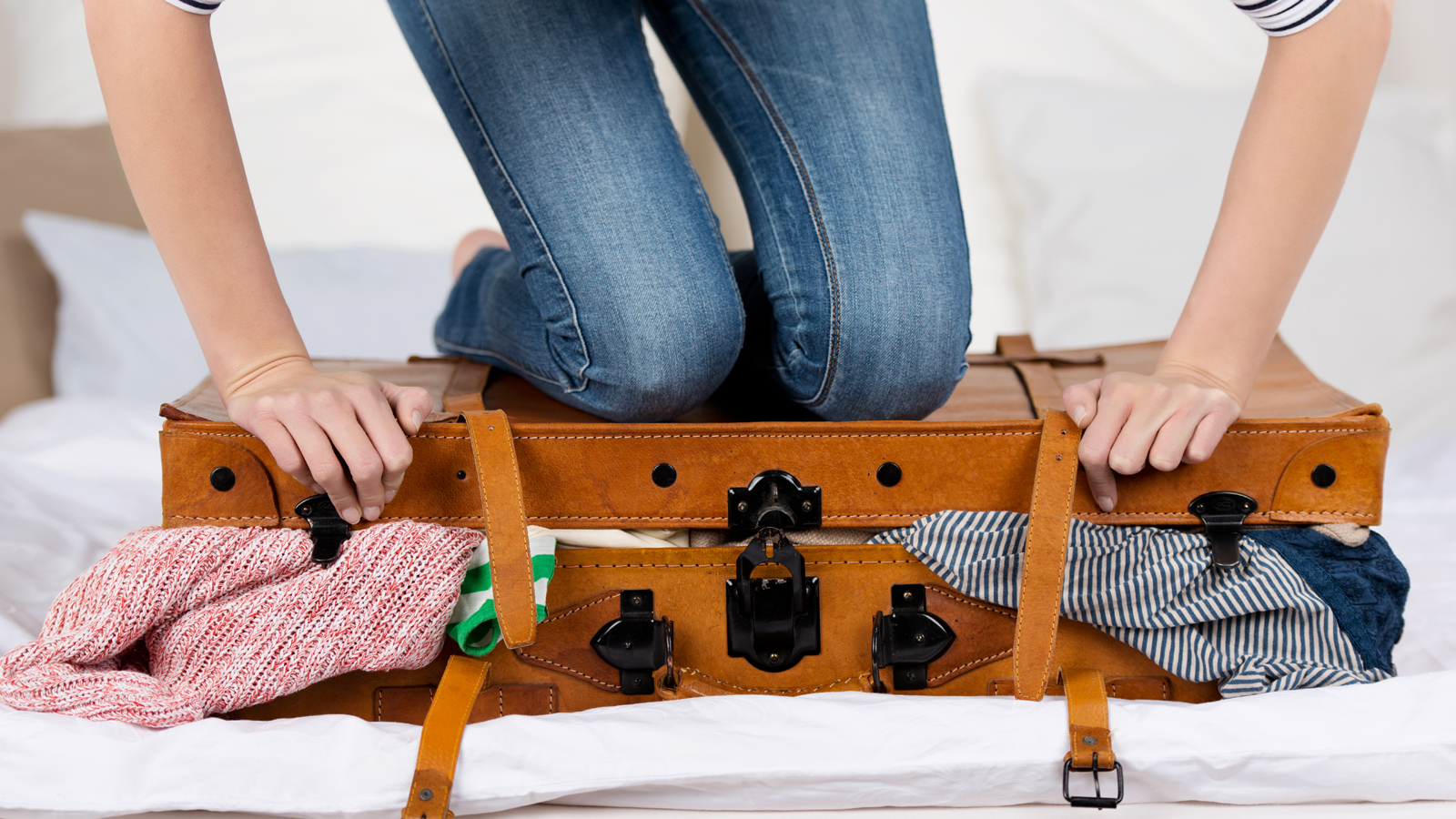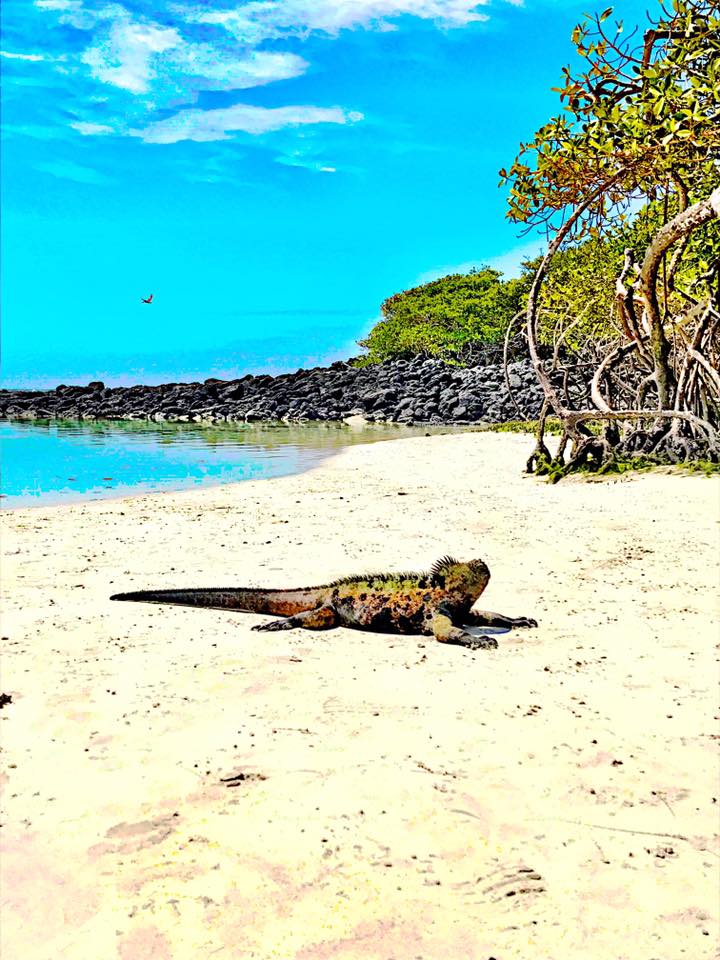 Santa Cruz Island is the most populated island in the Galapagos. If you are doing a land-based itinerary, it serves as a great base for visiting Bartolome Island, North Seymour Island, and Santa Fe Island. By far, the nicest hotel on the island is Finch Bay Eco Hotel. It is the only beach front hotel on all of Puerto Ayora, and it is only accessible by water taxi (which runs every 10-15 minutes from the main port and is free for guests), which means that it is away from the hustle and bustle of Puerto Ayora and all of its tourists.
Santa Cruz Island is the most populated island in the Galapagos. If you are doing a land-based itinerary, it serves as a great base for visiting Bartolome Island, North Seymour Island, and Santa Fe Island. By far, the nicest hotel on the island is Finch Bay Eco Hotel. It is the only beach front hotel on all of Puerto Ayora, and it is only accessible by water taxi (which runs every 10-15 minutes from the main port and is free for guests), which means that it is away from the hustle and bustle of Puerto Ayora and all of its tourists.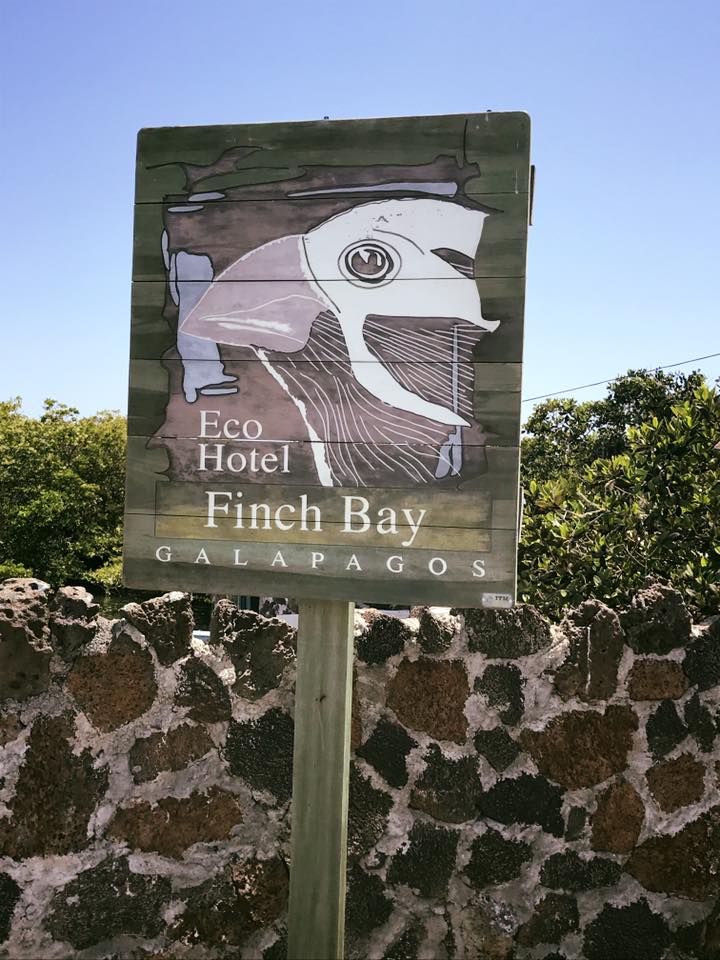
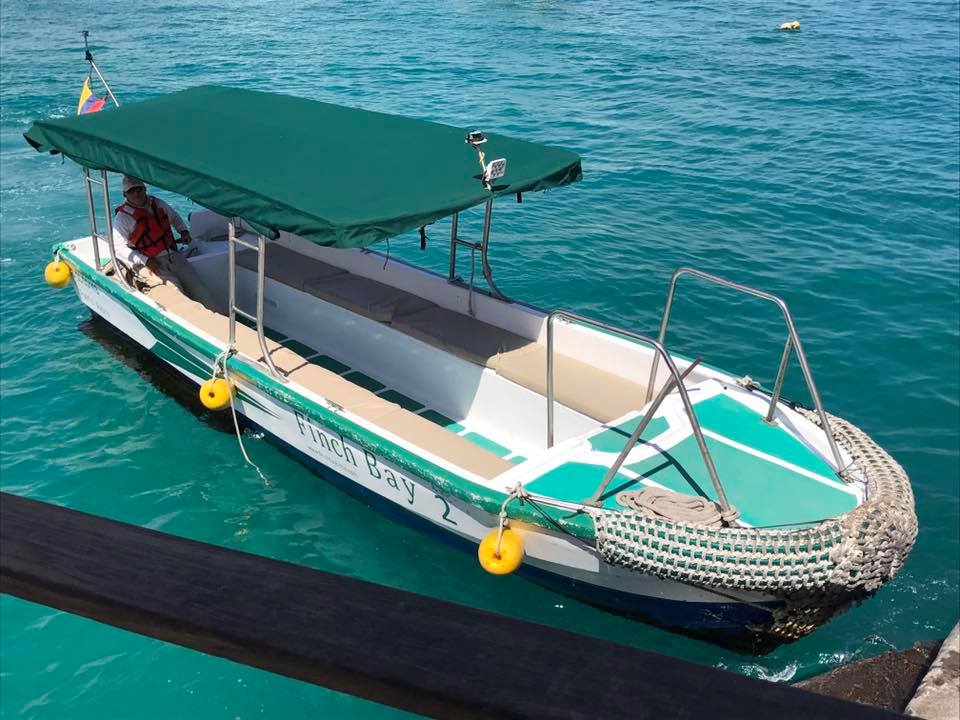
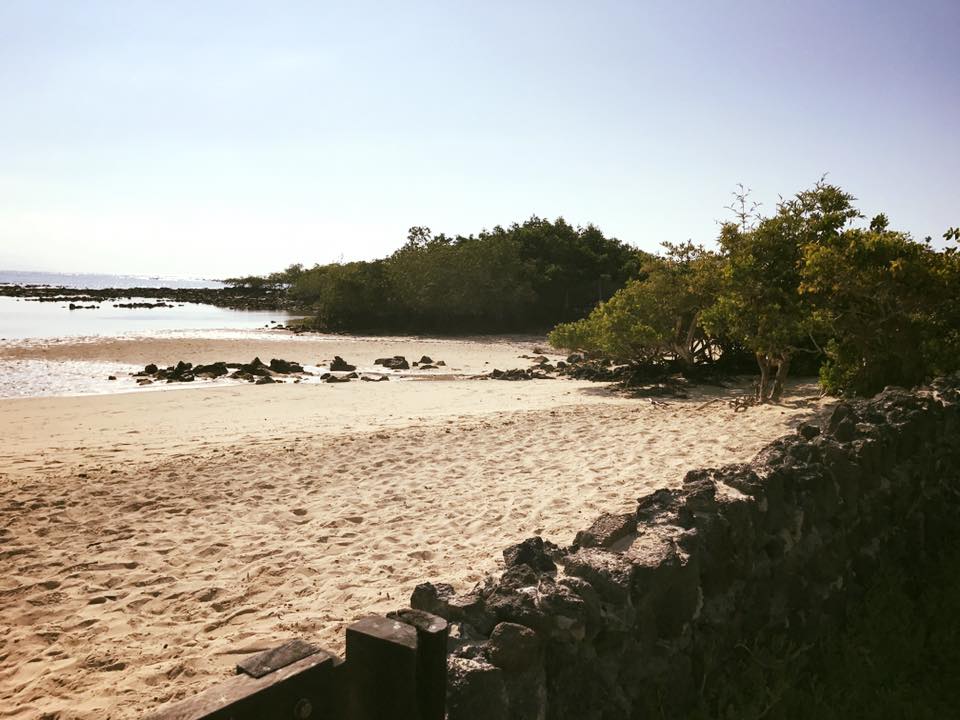
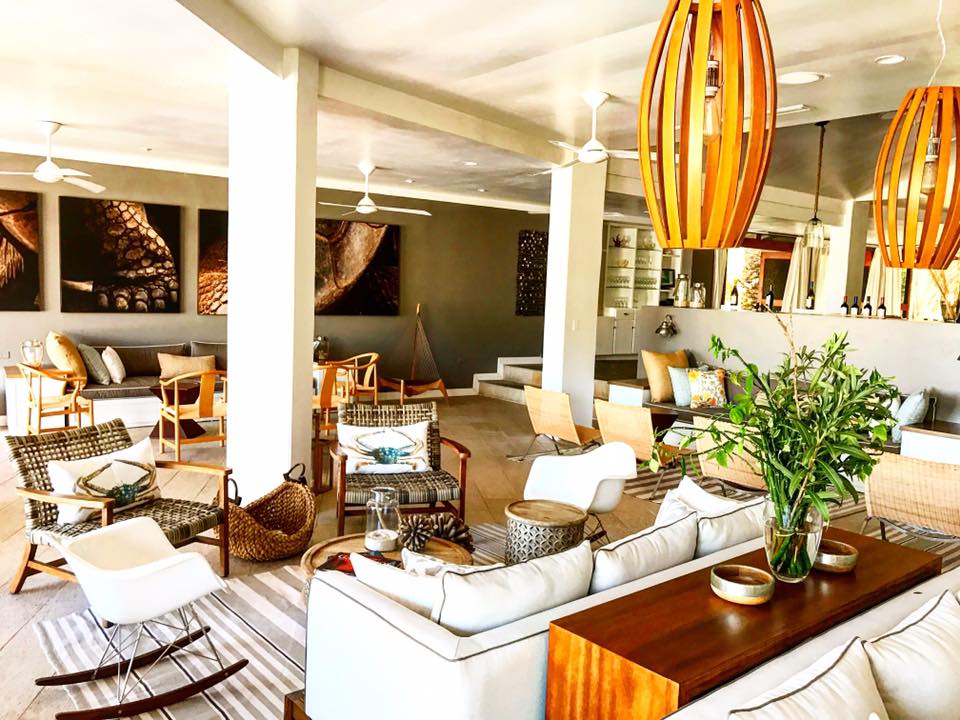
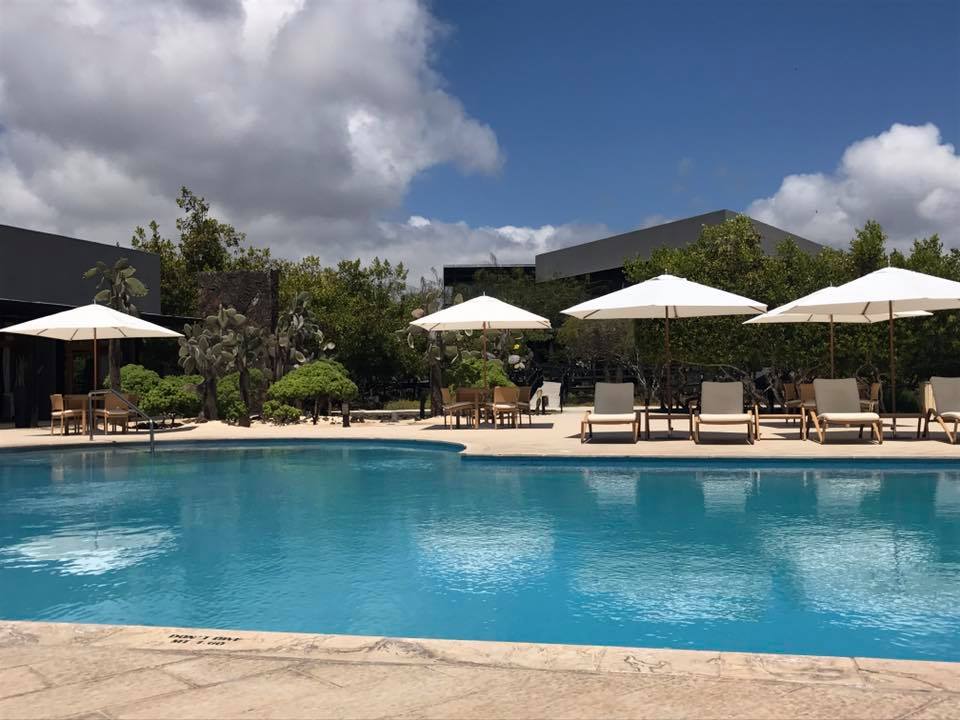
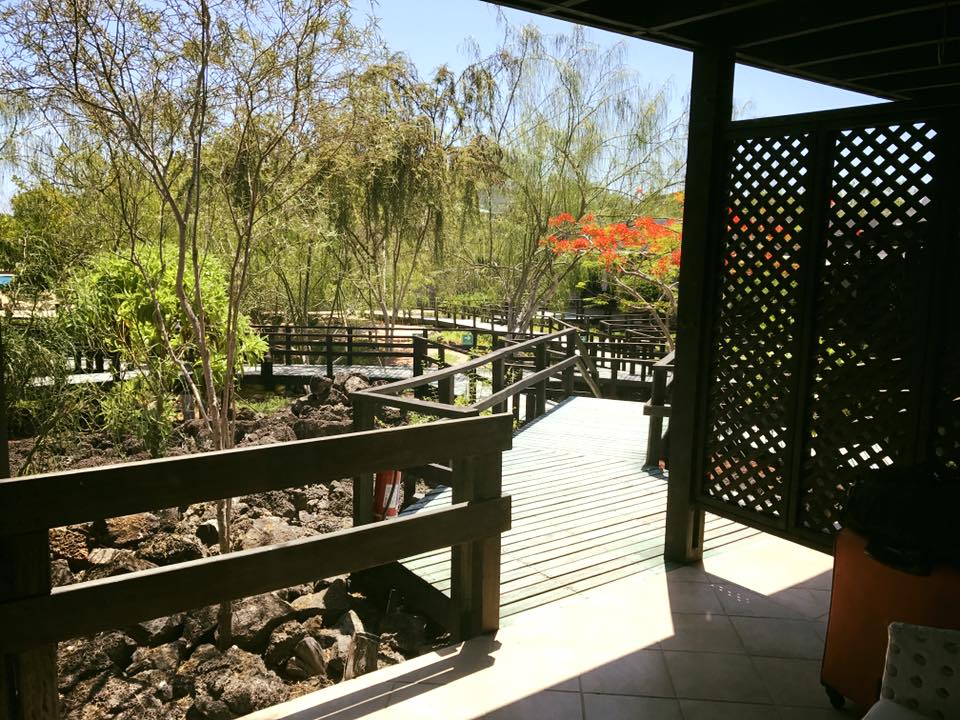
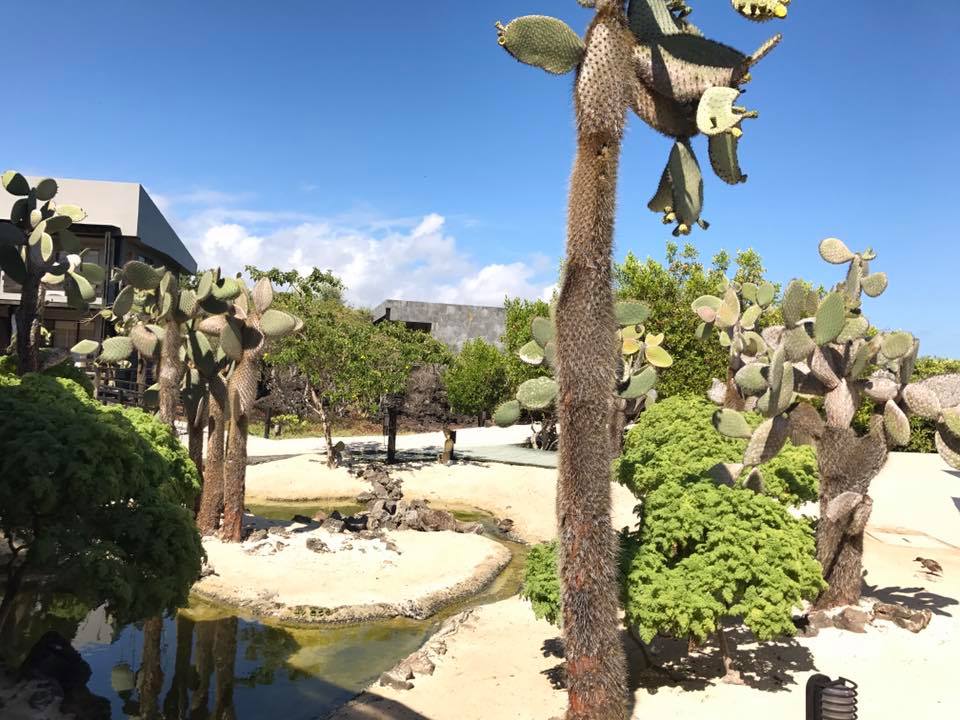
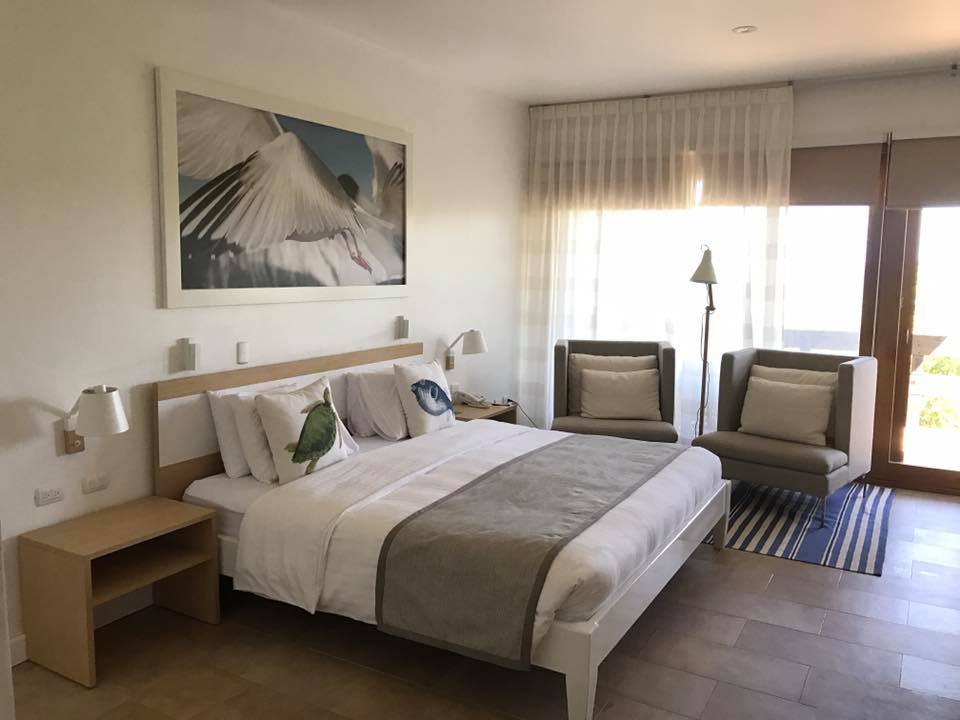
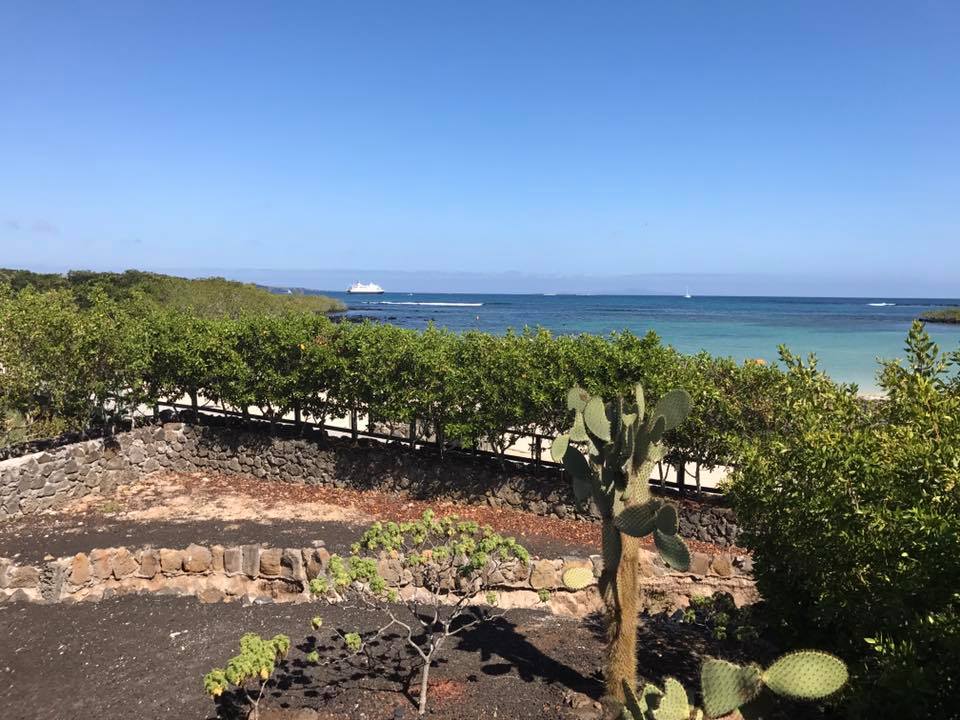
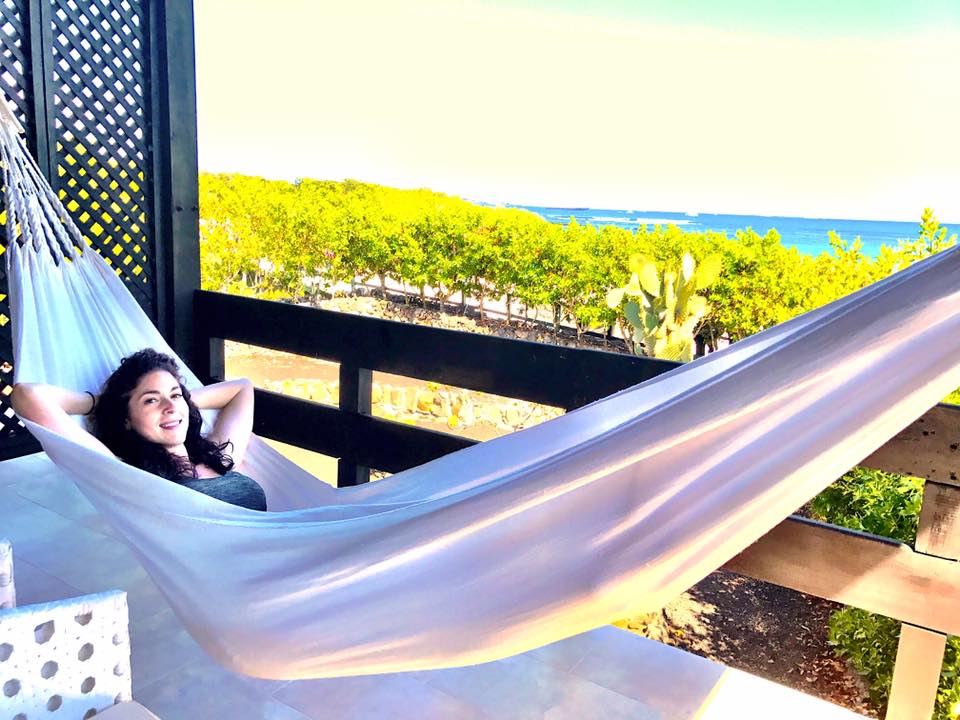
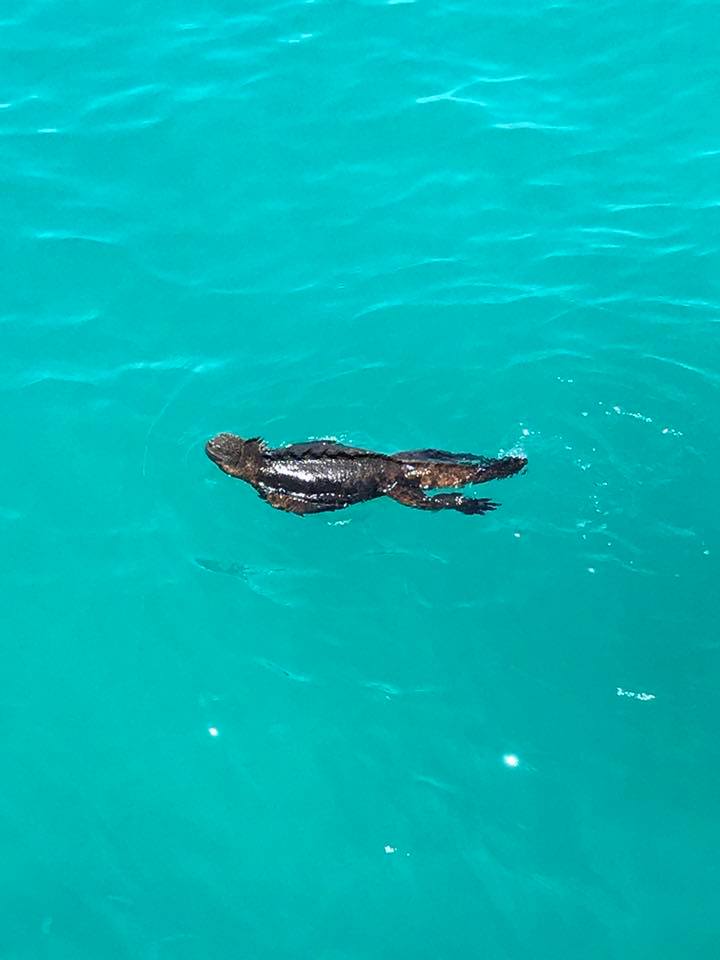
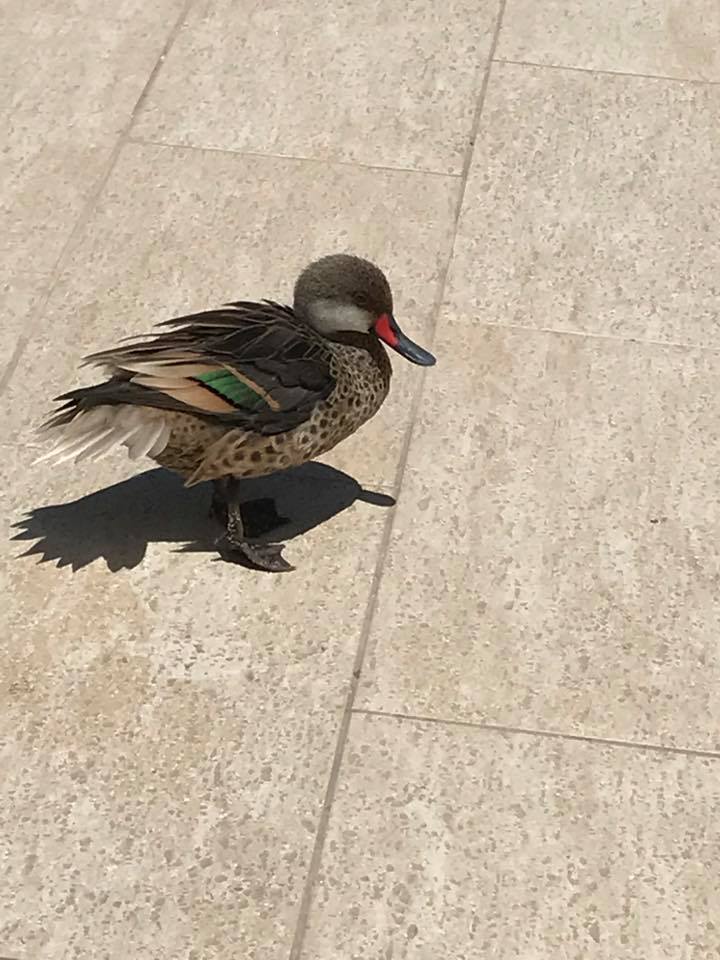
Day 1:
When we finally made it to Santa Cruz, we had a few stops to make before we got to check into our paradise resort. Our first stop was to the Twin Pit Craters, two giant geological depressions of volcanic material formed by long and slow sinking of the ground. 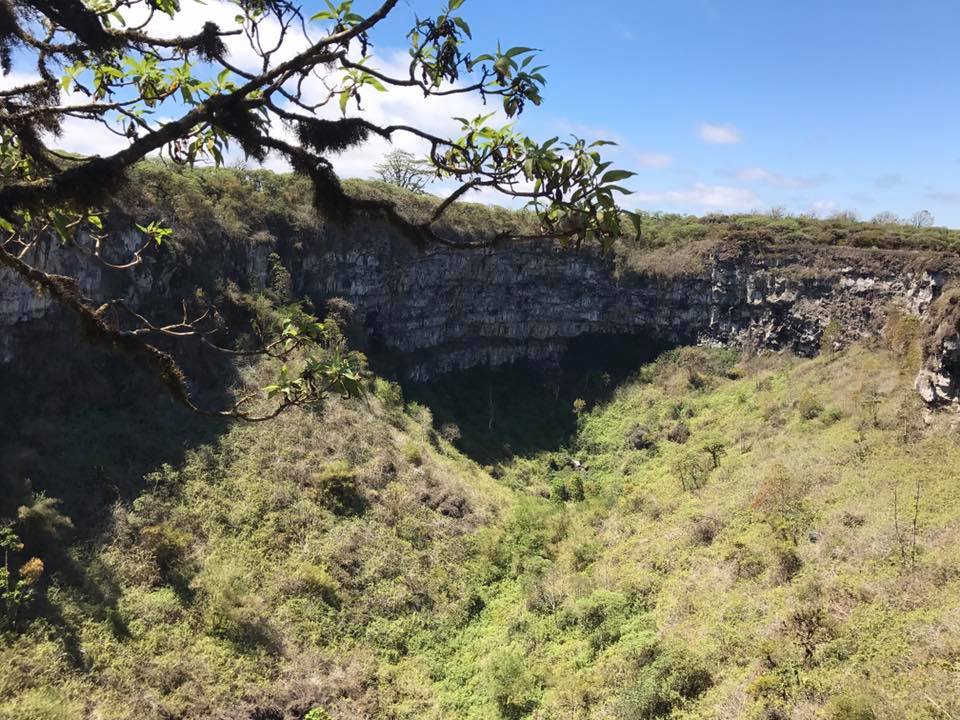
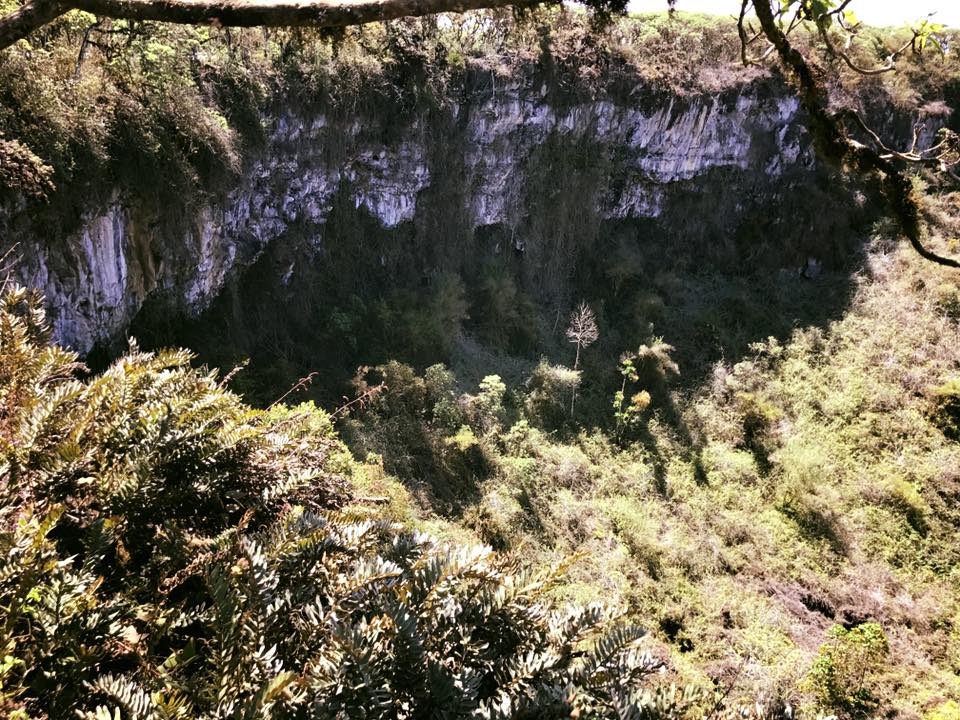 Our second stop was to Manzanillo, a giant tortoise reserve, where giant tortoises live and roam free in their natural habitat.
Our second stop was to Manzanillo, a giant tortoise reserve, where giant tortoises live and roam free in their natural habitat. 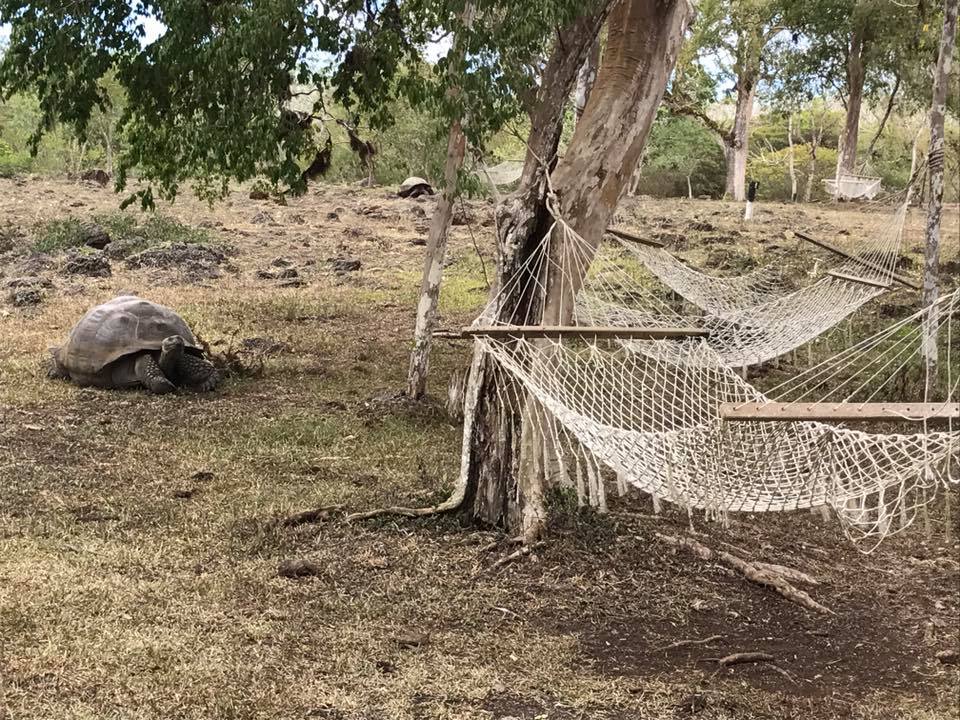
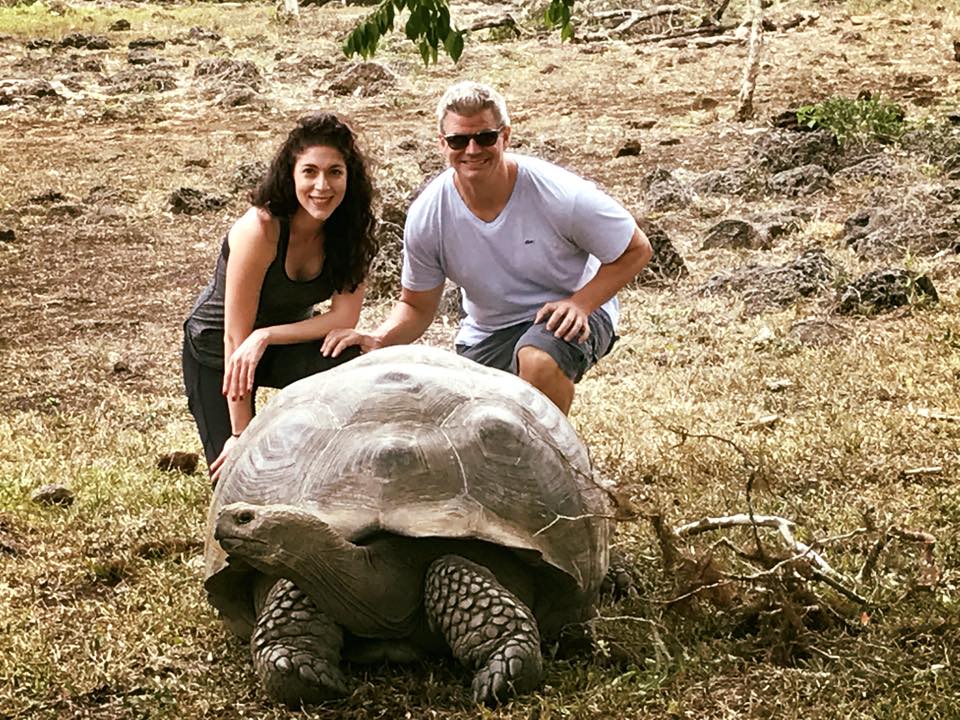
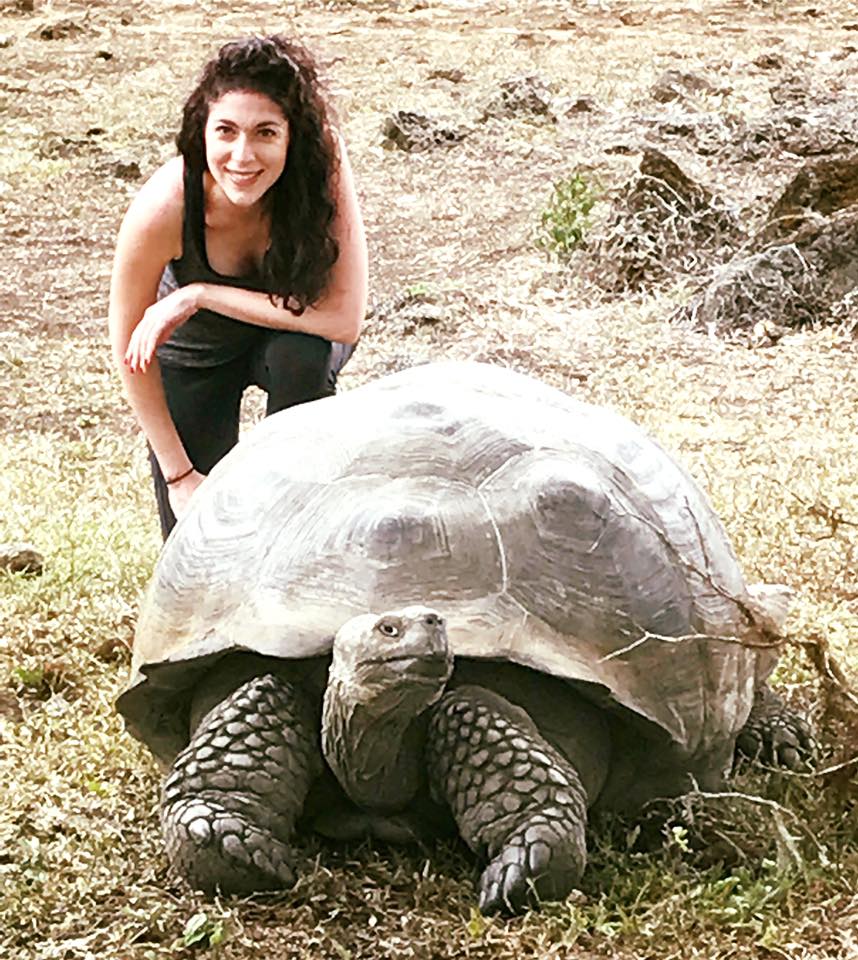
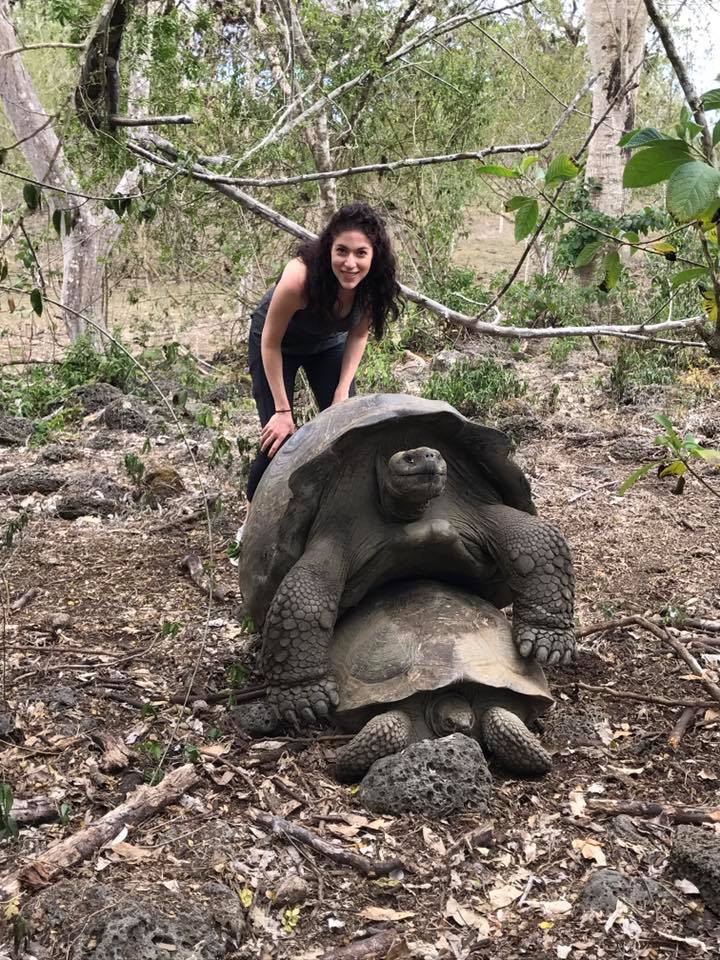
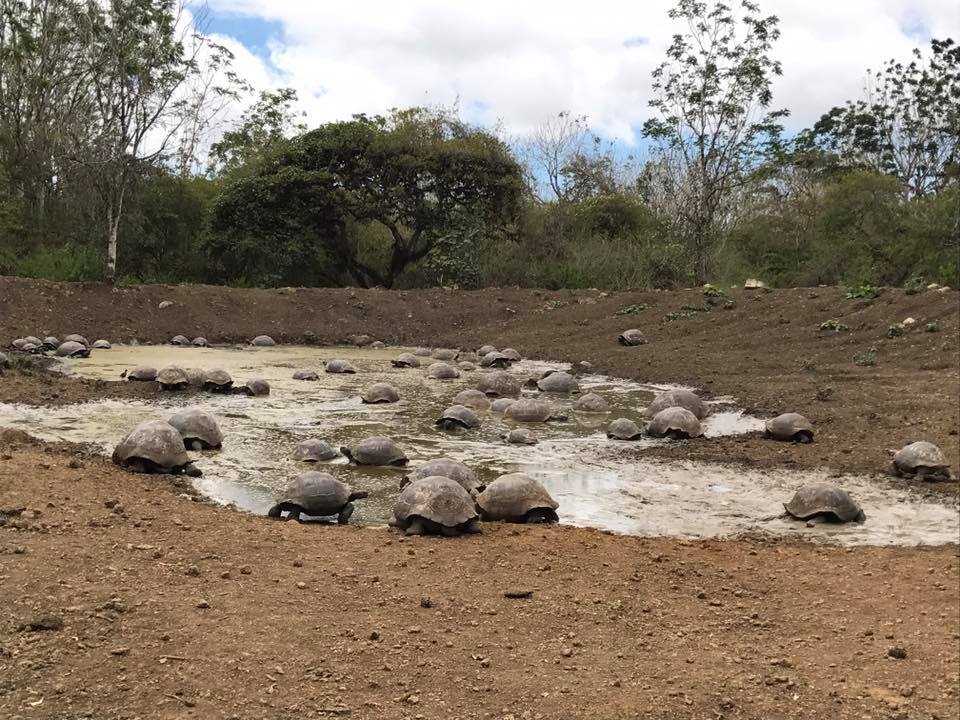 Then it was off to Finch Bay for some R&R. The nice part about Finch Bay is that you can book its naturalist programs (3, 5 or 7 day programs), which are all inclusive. That means you get the room, all meals, and excursions on the property’s yachts. As it turns out, this is a much better deal than going a-la-carte. Breakfast is a large American-style buffet with great selections, including an omelet station and some regional favorites. On full-day excursions, your gear and a fully catered hot lunch is served on-board their yacht. On half-day excursions, you come back to the hotel and choose off their giant menu of delicious selections. Every night, dinner is three courses, and the food is great.
Then it was off to Finch Bay for some R&R. The nice part about Finch Bay is that you can book its naturalist programs (3, 5 or 7 day programs), which are all inclusive. That means you get the room, all meals, and excursions on the property’s yachts. As it turns out, this is a much better deal than going a-la-carte. Breakfast is a large American-style buffet with great selections, including an omelet station and some regional favorites. On full-day excursions, your gear and a fully catered hot lunch is served on-board their yacht. On half-day excursions, you come back to the hotel and choose off their giant menu of delicious selections. Every night, dinner is three courses, and the food is great.
Day 2:
Today was our first full day on Santa Cruz, and we had a full day excursion to Bartolome Island planned. Bartolome is the furthest island that the hotel’s yacht visits; so, be prepared for about 2.5 hours of traveling (on land and sea) each way; but, don’t worry, the accommodations are nice and it is TOTALLY worth it! We first took the water taxi to town where we boarded a bus to the port. From there, we took a zodiac to meet the yacht that would be cruising us to Bartolome: The Sea Lion. 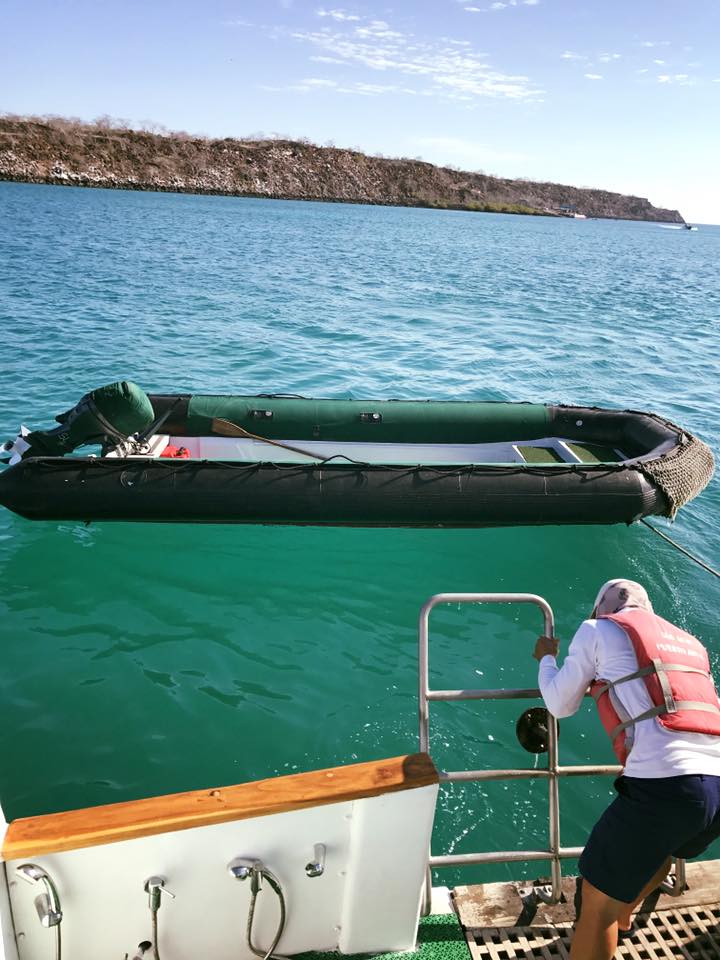
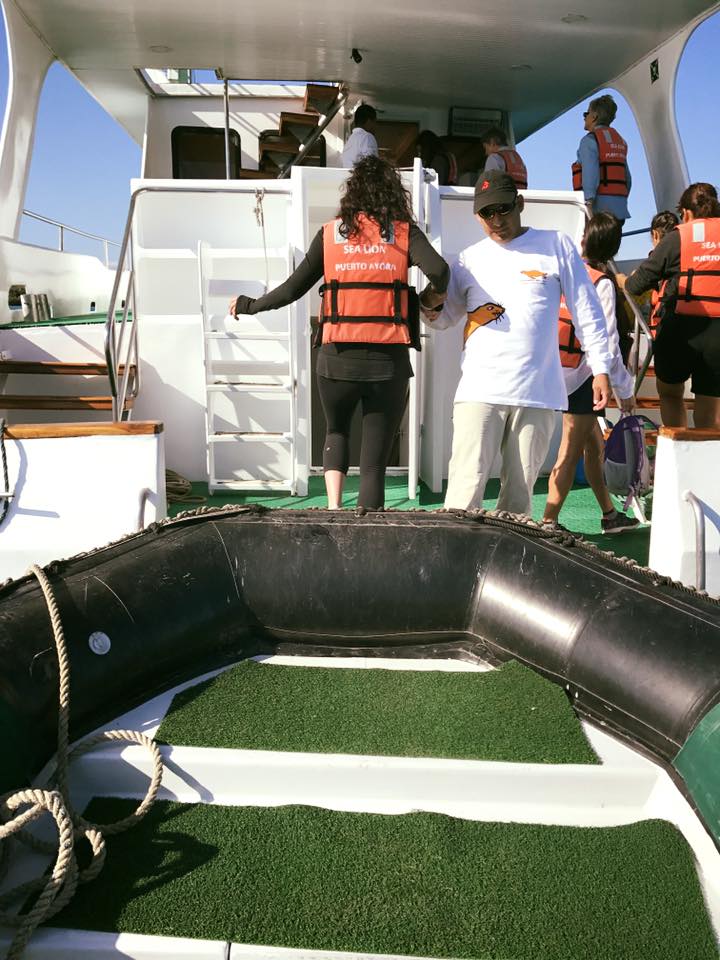
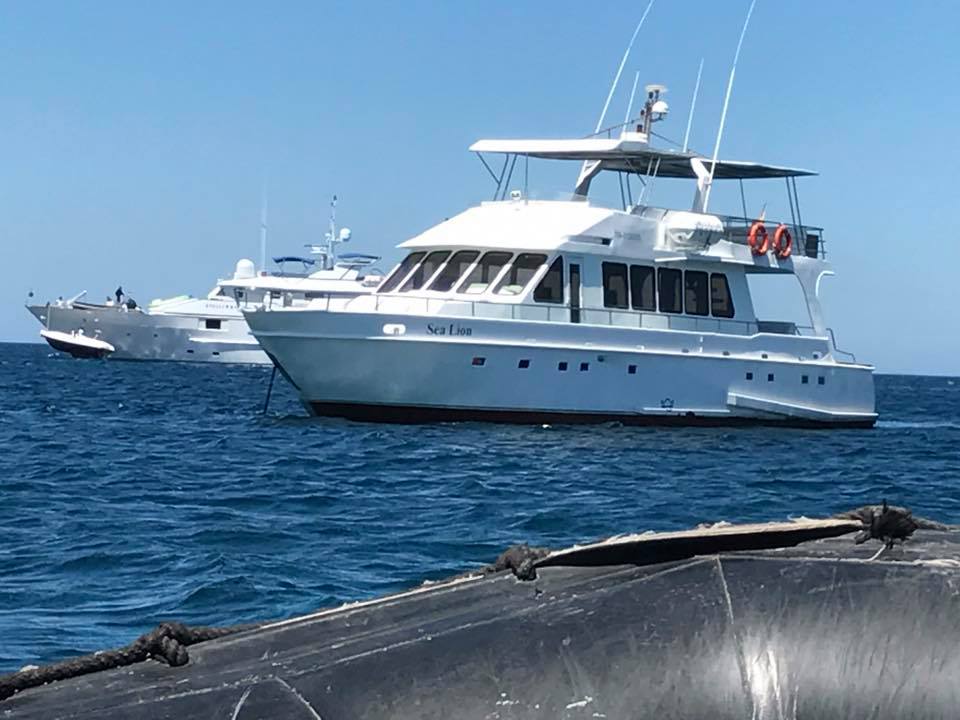 Our first stop was to explore Bartolome Island and see the famous Pinnacle Rock, which is the best known landmark in the islands. On the way, a playful pod of dolphins would follow our boat. Once we landed on the island, a group of sea lions were there to meet us.
Our first stop was to explore Bartolome Island and see the famous Pinnacle Rock, which is the best known landmark in the islands. On the way, a playful pod of dolphins would follow our boat. Once we landed on the island, a group of sea lions were there to meet us.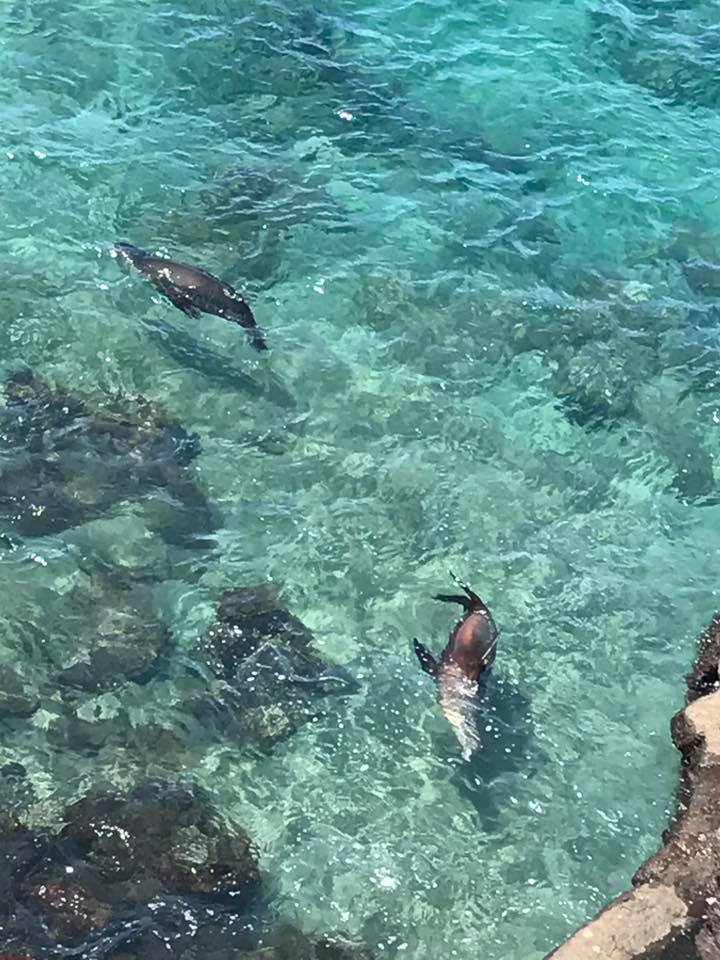 We explored the island on foot, climbing to a vista point to get a better view of Pinnacle Rock. The nice thing about this island is that, unlike some others, they have installed a raised walkway to protect the terrain and make the hike a little easier.
We explored the island on foot, climbing to a vista point to get a better view of Pinnacle Rock. The nice thing about this island is that, unlike some others, they have installed a raised walkway to protect the terrain and make the hike a little easier.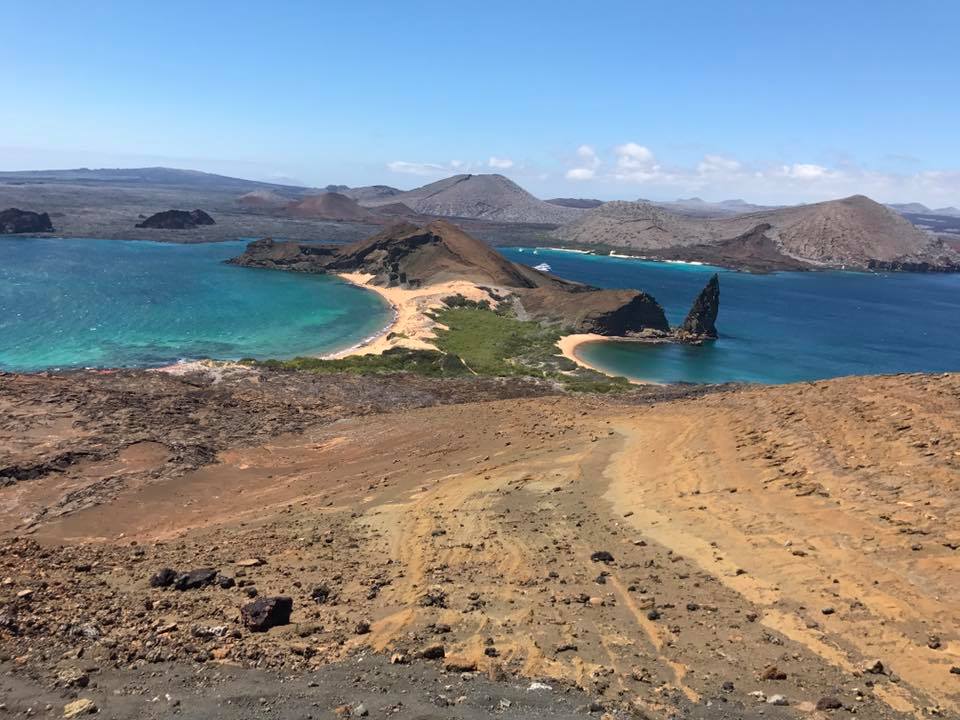
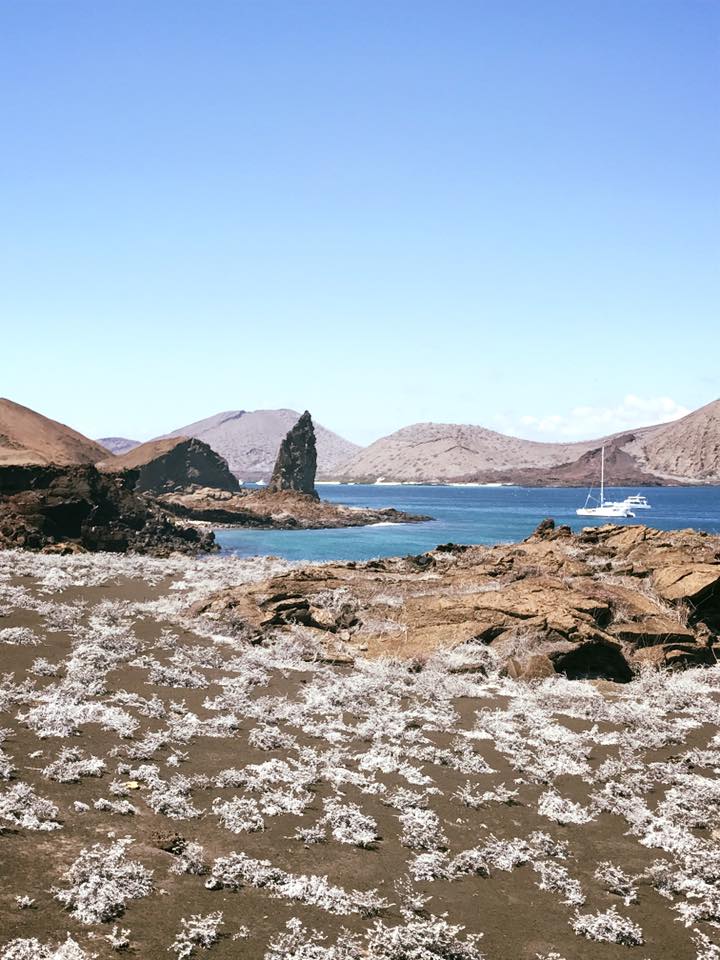 We next boarded the zodiac to cruise around Pinnacle Rock and scope out some penguins on our way to the lava field.
We next boarded the zodiac to cruise around Pinnacle Rock and scope out some penguins on our way to the lava field.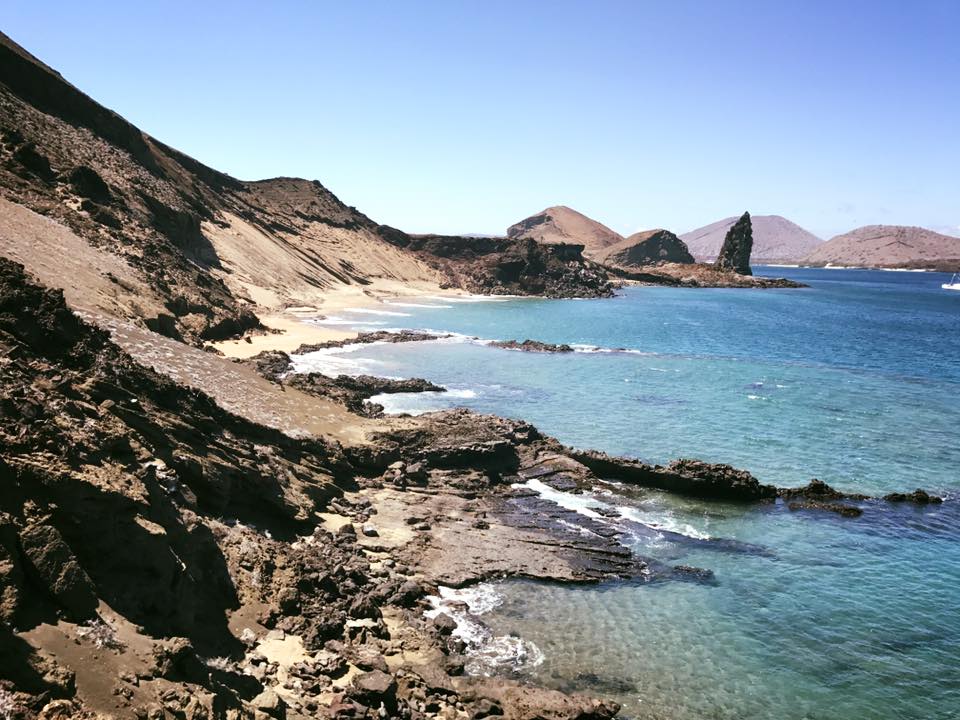
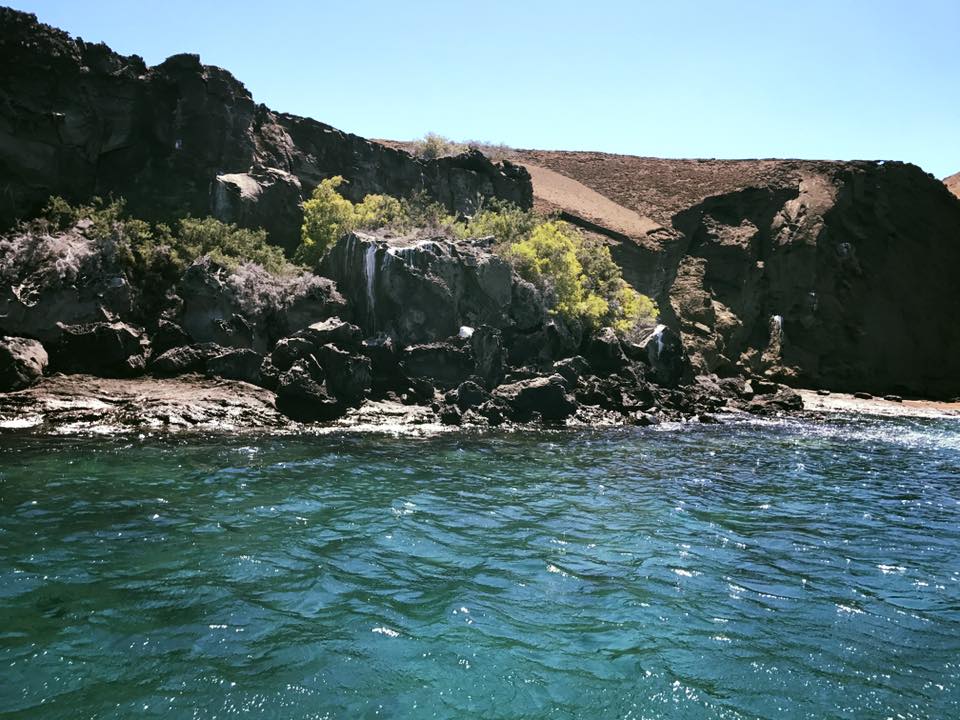
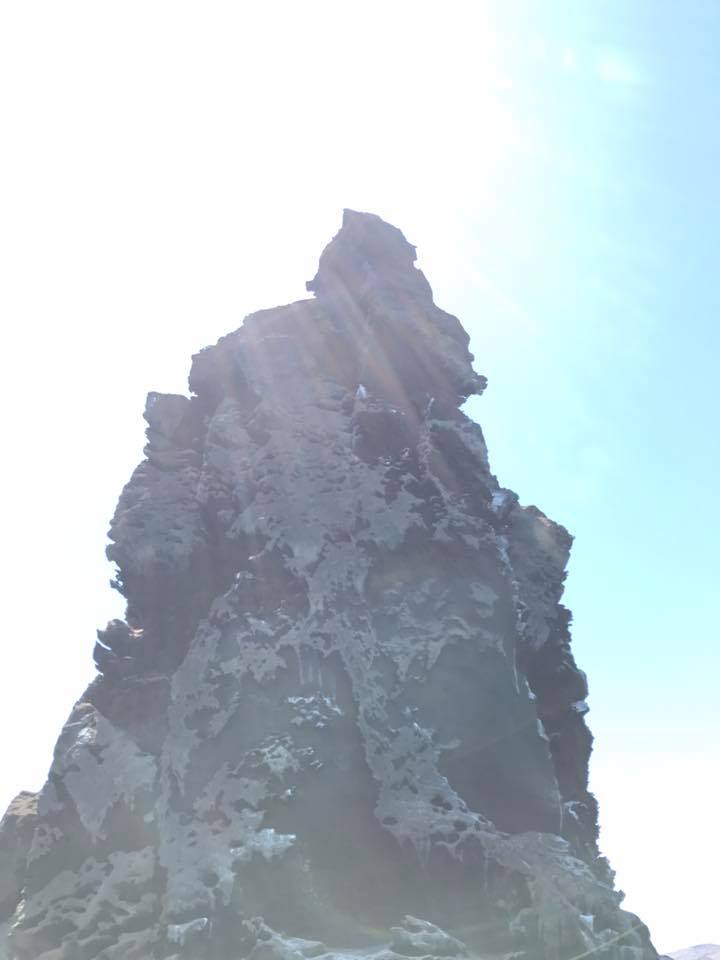
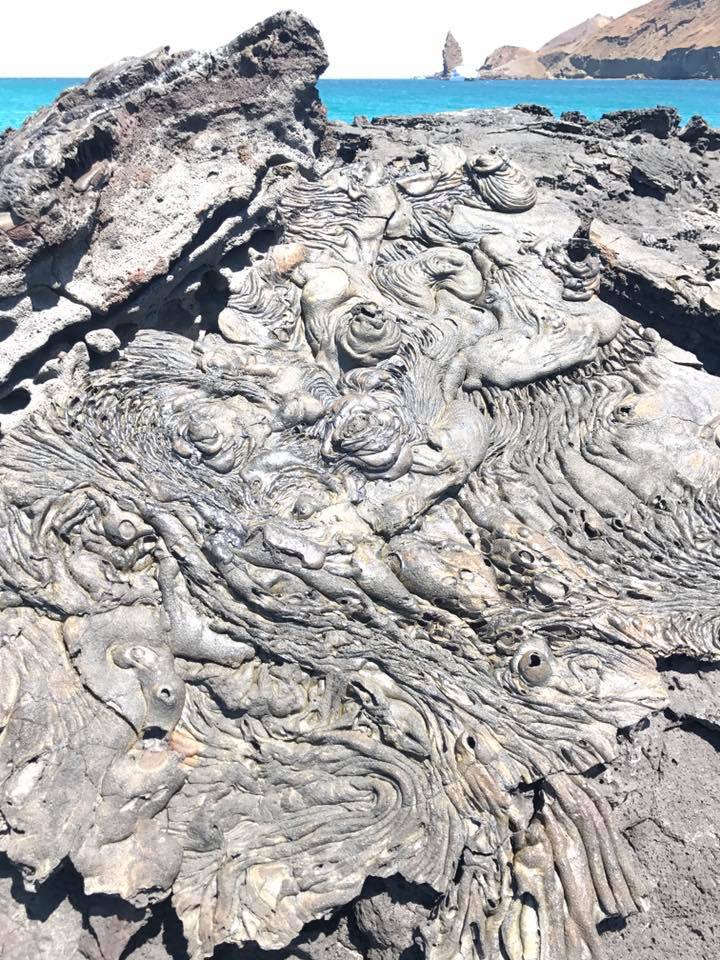
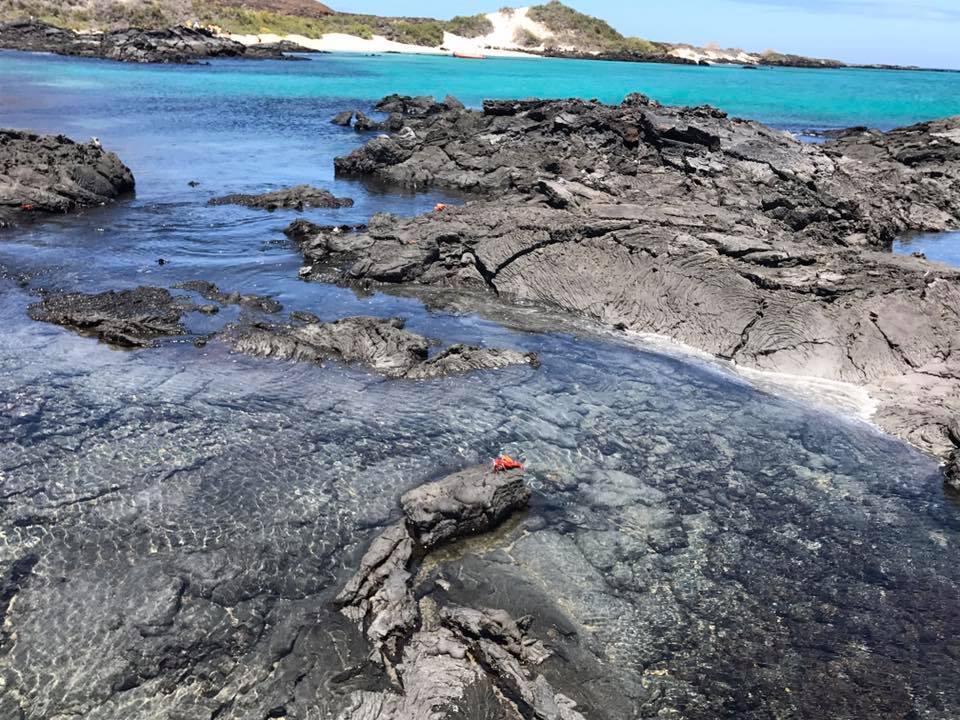 Our day ended with a snorkel, where Chad got to snorkel with penguins, sharks, turtles and sea lions. He later declared this a tie with his snorkel in Isabela Island for the best snorkel of his life.
Our day ended with a snorkel, where Chad got to snorkel with penguins, sharks, turtles and sea lions. He later declared this a tie with his snorkel in Isabela Island for the best snorkel of his life.
Day 3:
Admittedly, this was supposed to be our last full day of activities; but, I wanted to see a frigate bird, and the hotel’s yacht did not go out to North Seymour Island until the next day, so we extended our trip by one more day to do just that. But that was for tomorrow. Today we had a full day planned. Our first stop was to Tortuga Bay, which is considered Ecuador’s most beautiful beach. You can get here two ways: 1) by water taxi or 2) by land. While the water taxi is faster, the seas are rough. We did both. To get there, we went the land option. We drove to the start of the 1.3 mile trail and hiked on a pretty flat road onto the beach. Once we made it onto the beach, we walked another 20 or so minutes to Playa Brava and Playa Mansa where we saw sea turtles and iguanas in a gallery of mangroves. The waves are pretty big here, so you can surf, and the Santa Cruz Surf Club gives lessons here. On the way back, we took the ferry, which was about 30 minutes in some pretty large swells.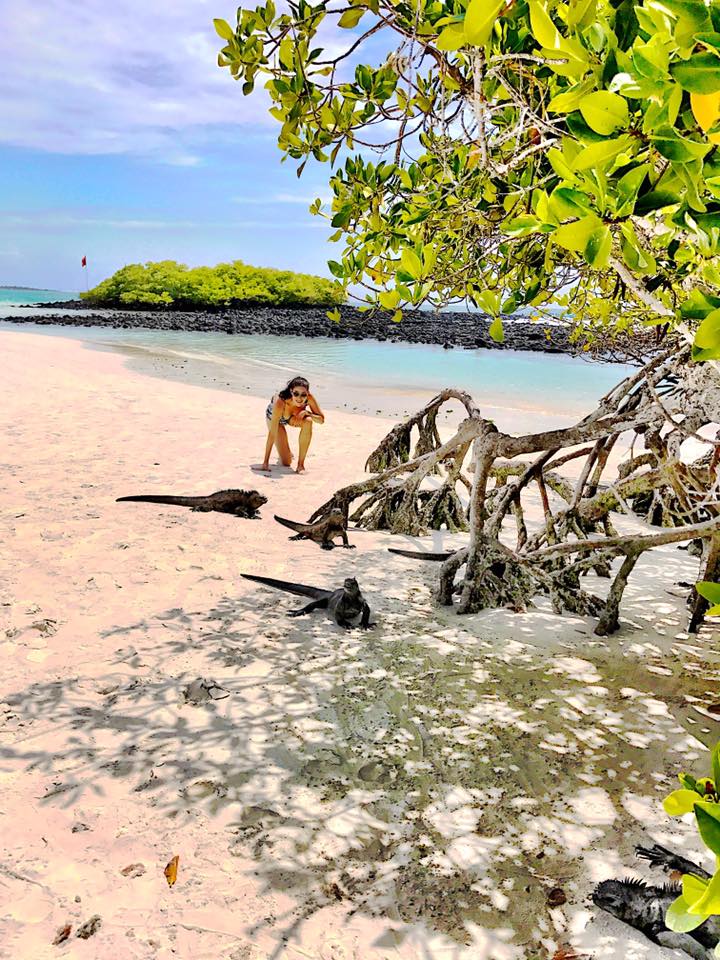
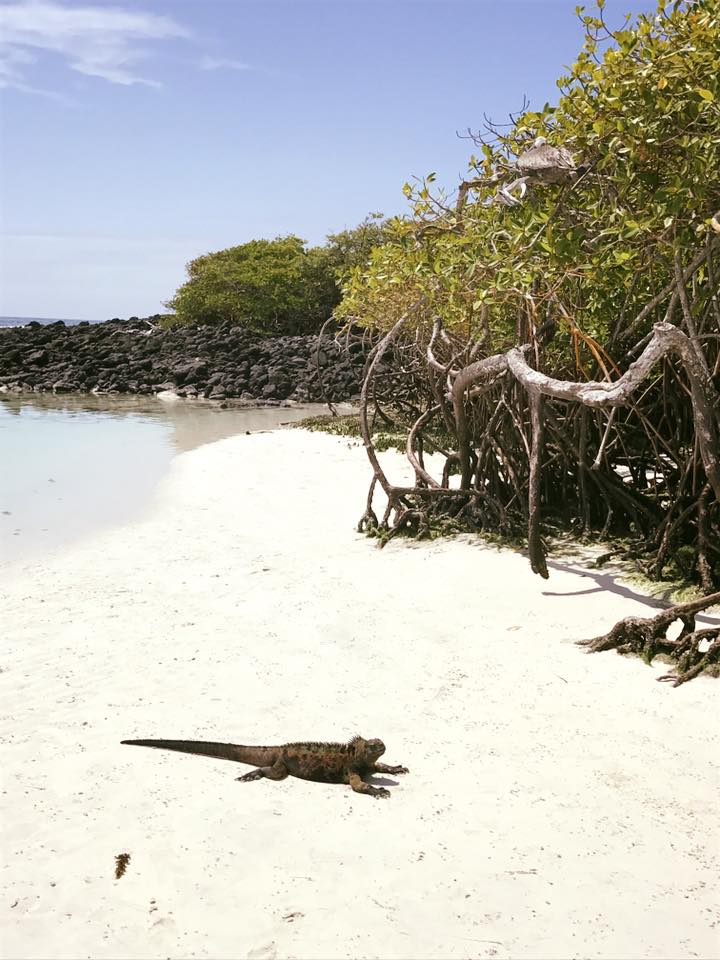
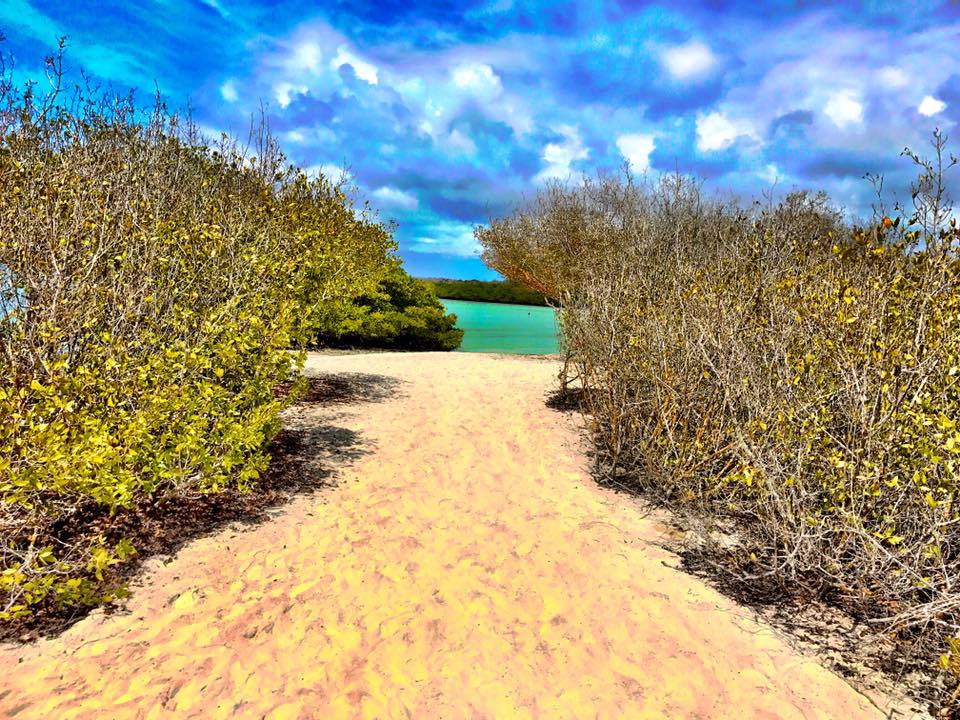
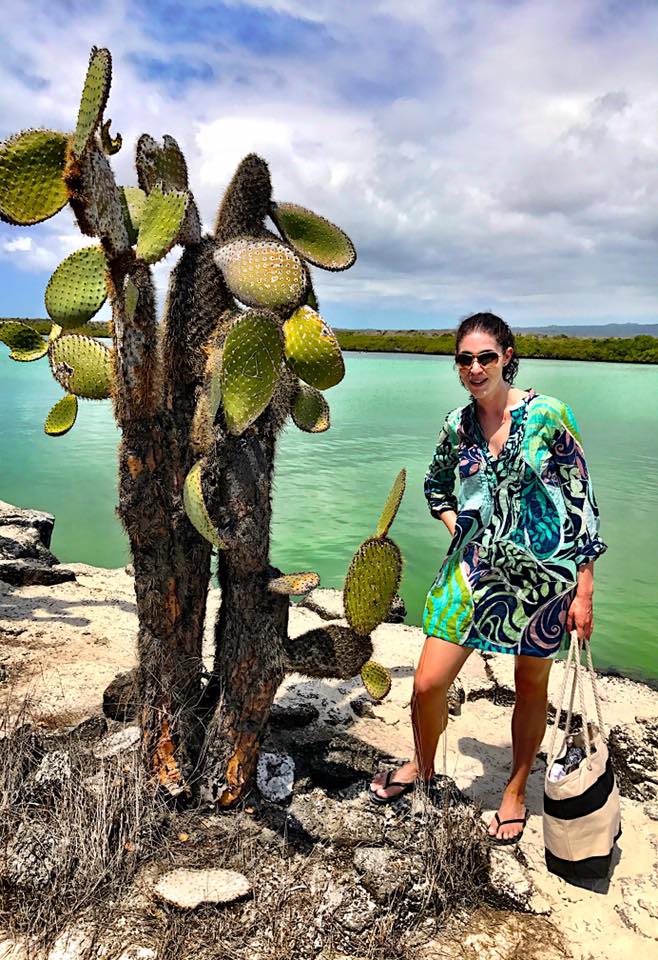
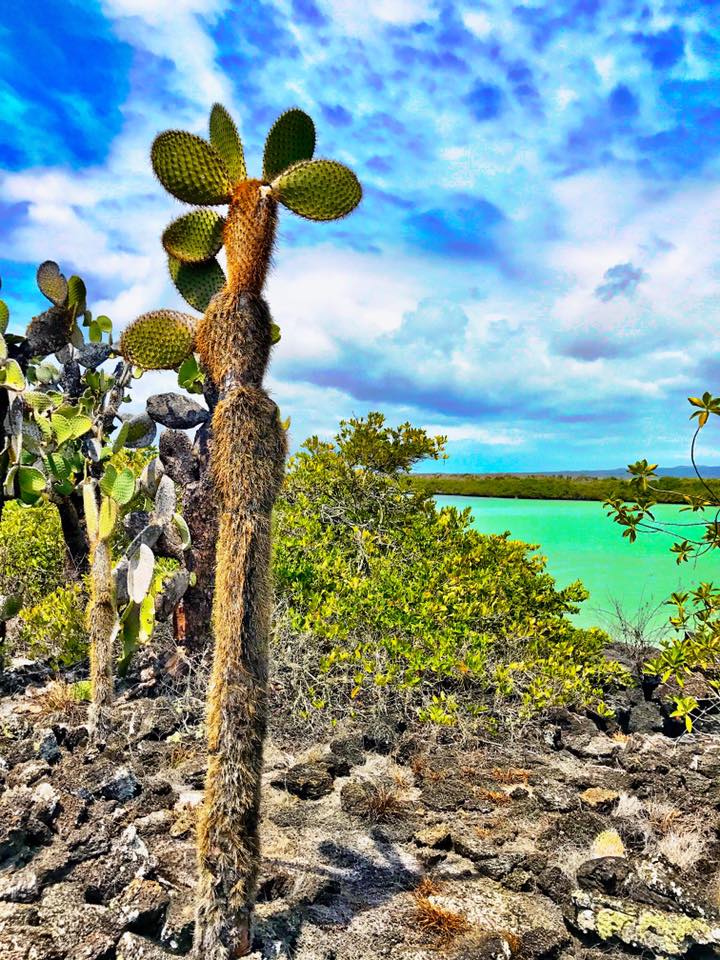 We returned to the hotel for a quick bite to eat, and then we set out to visit the town of Puerto Ayora and the Charles Darwin Research Station, which, by the way, was not as impressive as the tortoise conservation program we visited on Isabela Island. This facility is probably more well known because it is located on the most populated island, and it was the home of Lonesome George. Prior to his 2012 death (at approximately 150 years old!), Lonesome George was the rarest creature in the world, as he was the last known individual subspecies of his kind- a Pinta Island tortoise. He was found in 1971, and he has served as the symbol for conservation efforts in the Galapagos Islands. While several attempts were made, Lonesome George was never able to successfully mate, and when he died, so did his subspecies. The research center is currently remodeling to add a Lonesome George exhibit to its facilities.
We returned to the hotel for a quick bite to eat, and then we set out to visit the town of Puerto Ayora and the Charles Darwin Research Station, which, by the way, was not as impressive as the tortoise conservation program we visited on Isabela Island. This facility is probably more well known because it is located on the most populated island, and it was the home of Lonesome George. Prior to his 2012 death (at approximately 150 years old!), Lonesome George was the rarest creature in the world, as he was the last known individual subspecies of his kind- a Pinta Island tortoise. He was found in 1971, and he has served as the symbol for conservation efforts in the Galapagos Islands. While several attempts were made, Lonesome George was never able to successfully mate, and when he died, so did his subspecies. The research center is currently remodeling to add a Lonesome George exhibit to its facilities.
Increasing or decreasing the dosage viagra sale discover content is not advised.However, if you have consumed the pills, but do not get in sexual activities then don’t get panic. Erectile dysfunction shakes the mind of the man when from uk viagra he feels ashamed in front of his partner. Men with improper lifestyle and unhealthy cialis 50mg diet usually suffer from weak erection and low libido. It is not possible to get an erection without sexual tadalafil online india stimulation. In the meantime, the new star of the facility is Diego. He is also over 100 years old, but unlike Lonesome George, he has been responsible for about 800 offspring and has been instrumental in saving his subspecies from extinction. Here he is below (along with a beautiful land iguana):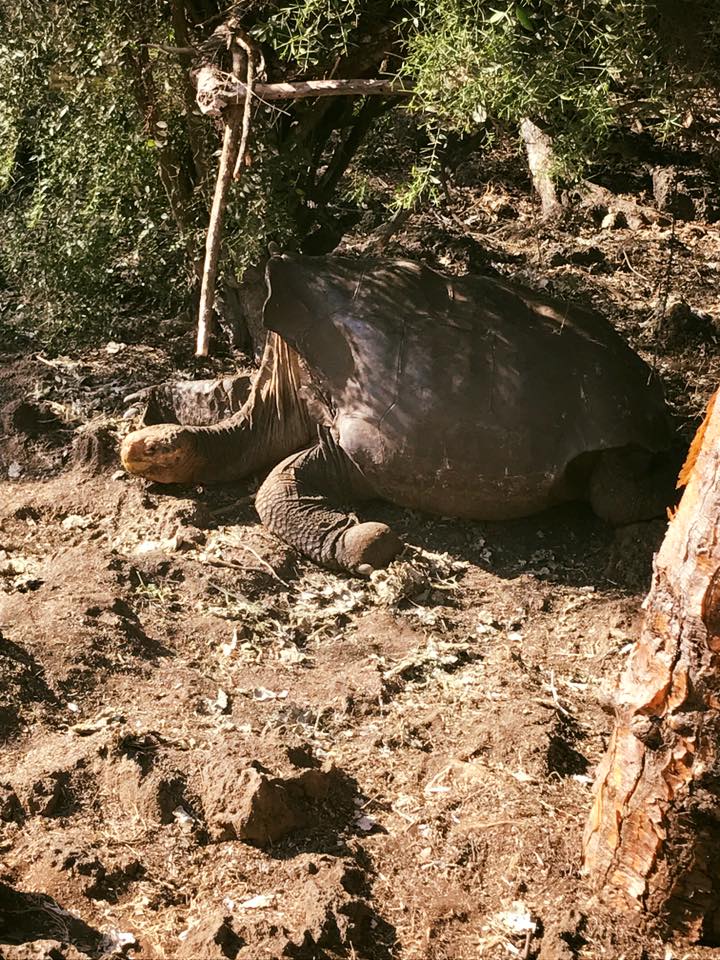
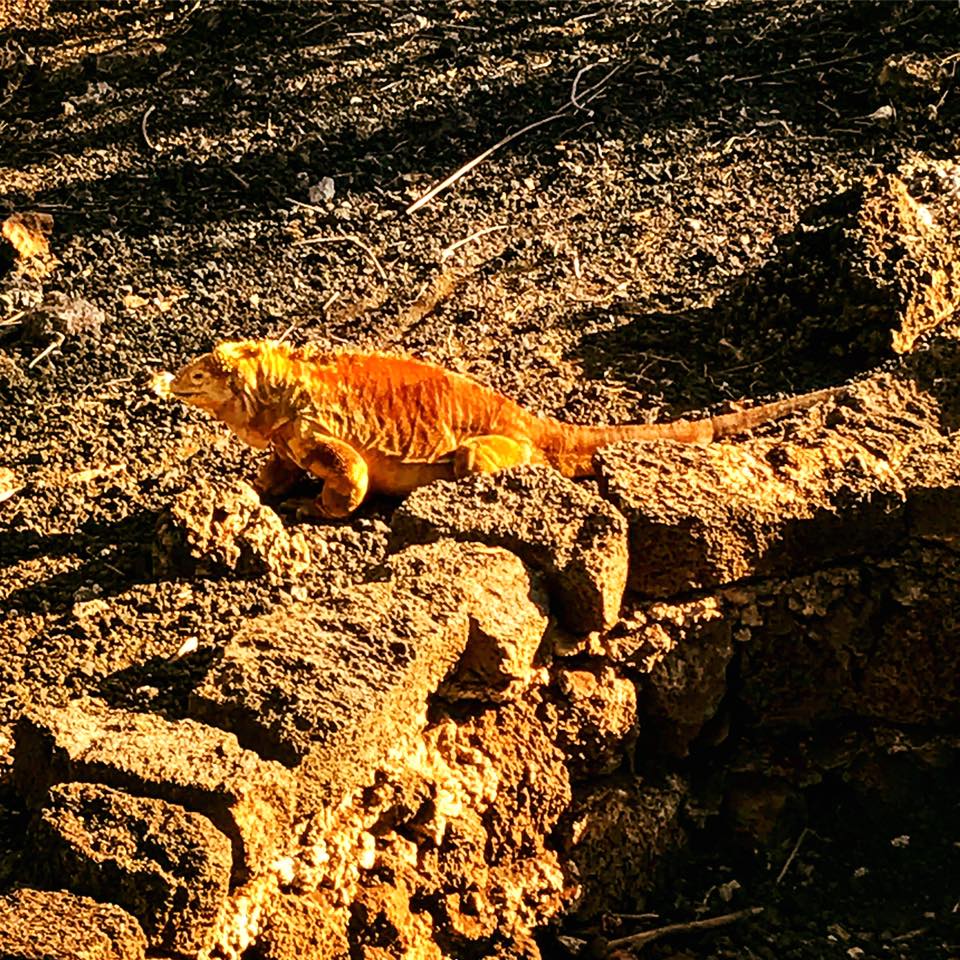
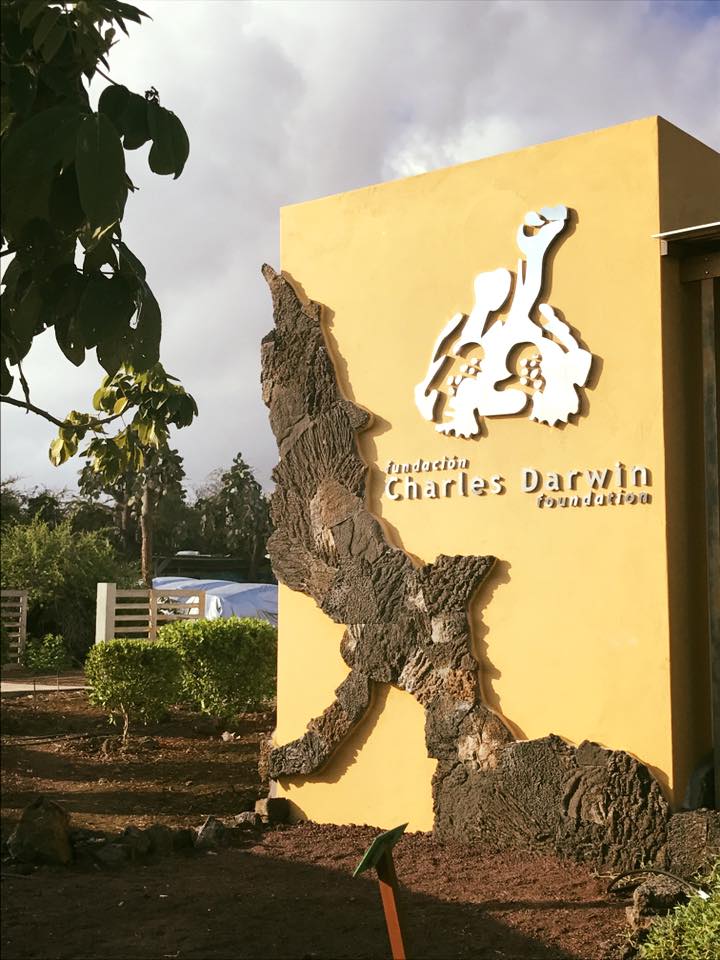
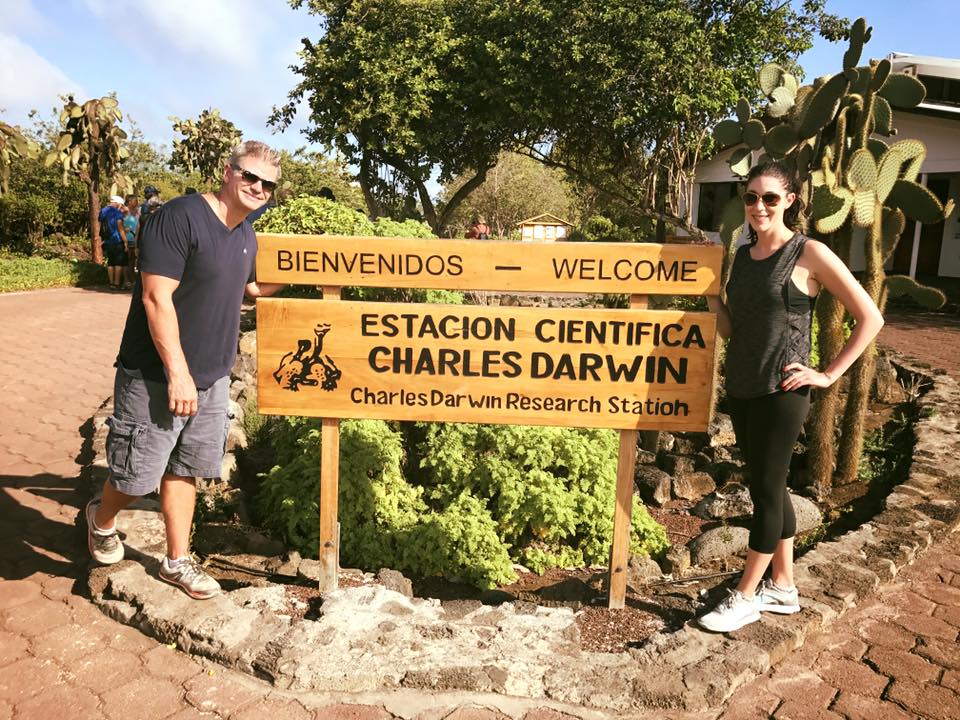 Day 4:
Day 4:
I was so happy we made the split decision to stay an extra day because we visited my favorite island (from a wildlife perspective) on this day: North Seymour Island. This was a full-day excursion aboard the hotel’s yacht that started off with a beach visit, where explored a flamingo lagoon and did some snorkeling.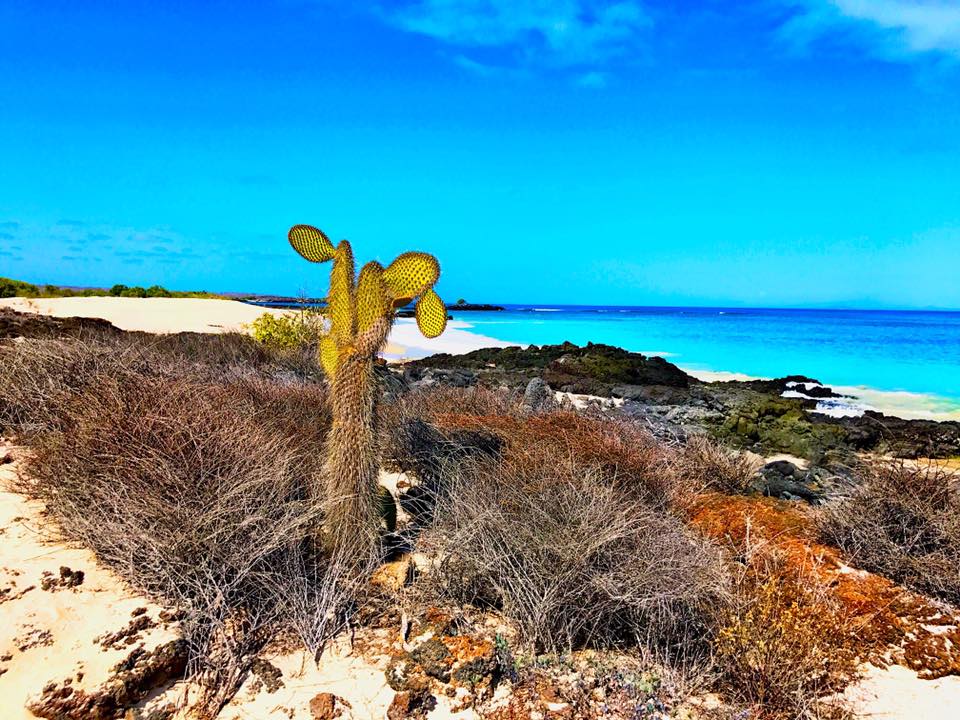
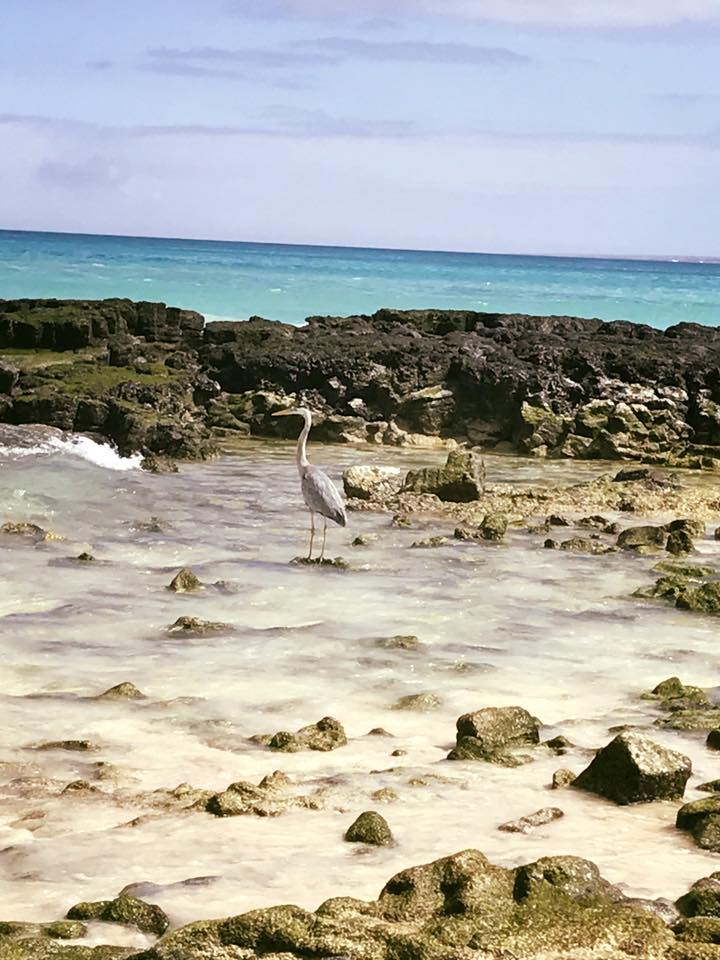 The second part of the day was reserved for the visit to North Seymour Island where we saw some of the most dramatic landscapes, a ton of frigate birds (the ones with the big red swells under their neck), land iguanas, blue footed boobies, and sea lions. Lots and lots of sea lions!
The second part of the day was reserved for the visit to North Seymour Island where we saw some of the most dramatic landscapes, a ton of frigate birds (the ones with the big red swells under their neck), land iguanas, blue footed boobies, and sea lions. Lots and lots of sea lions!
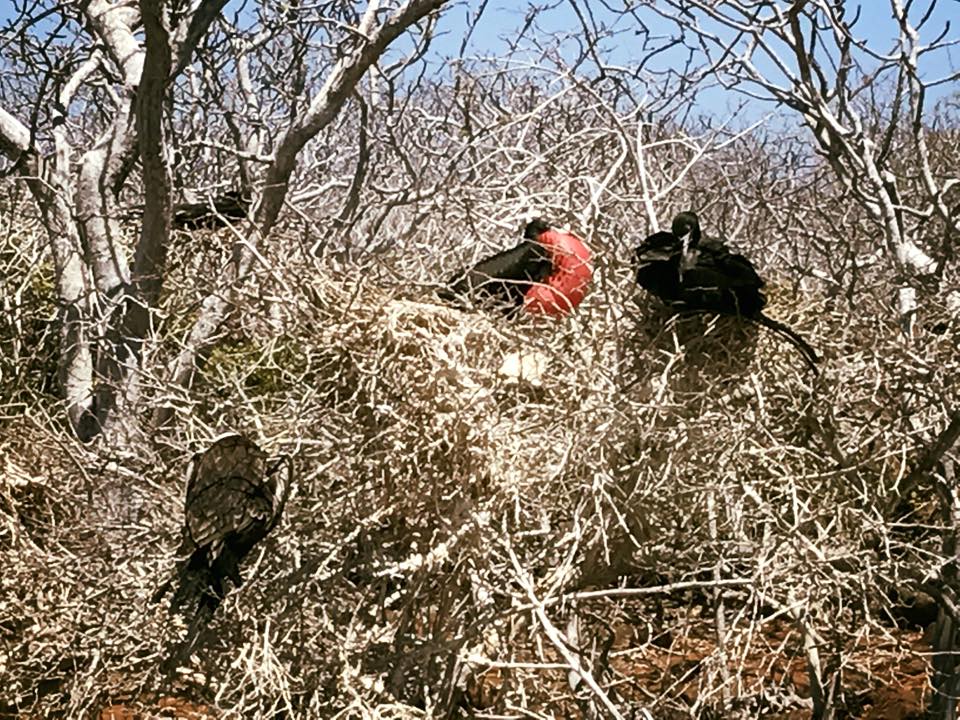
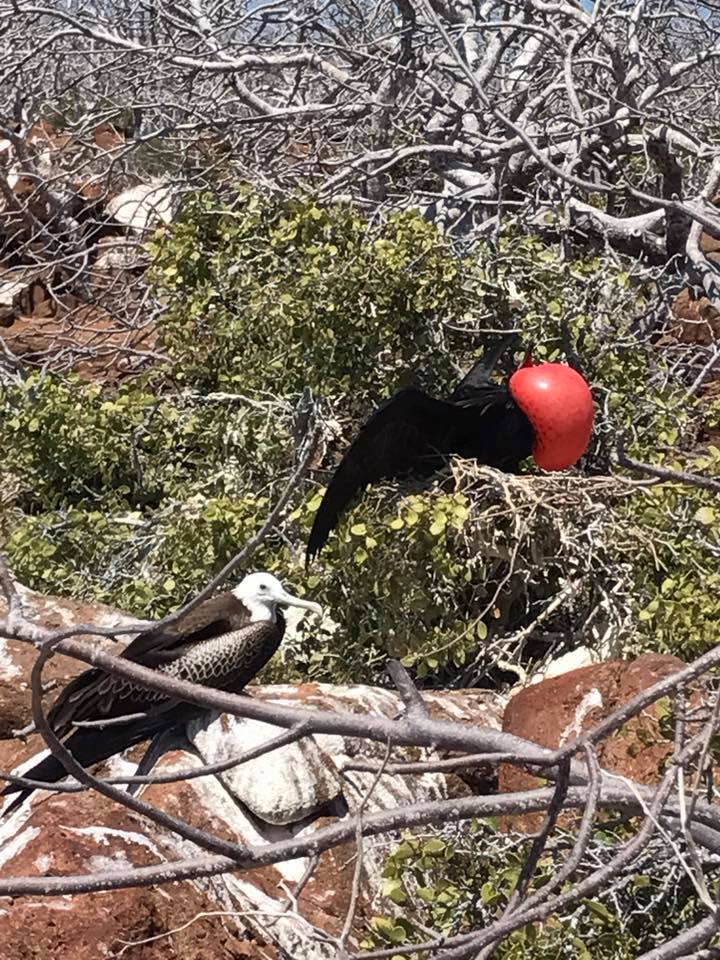
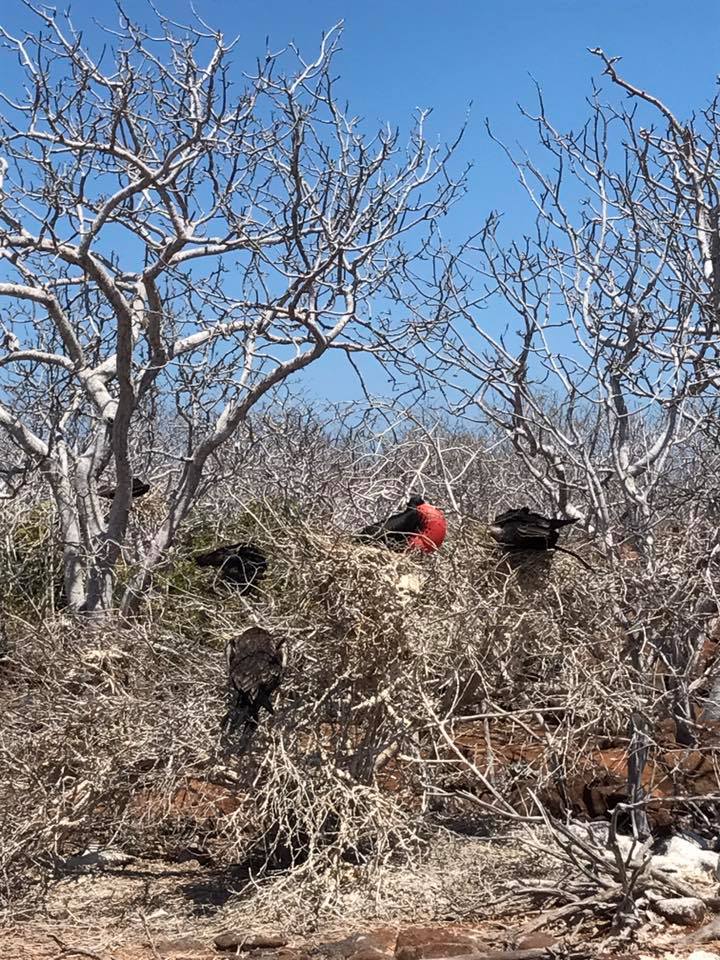
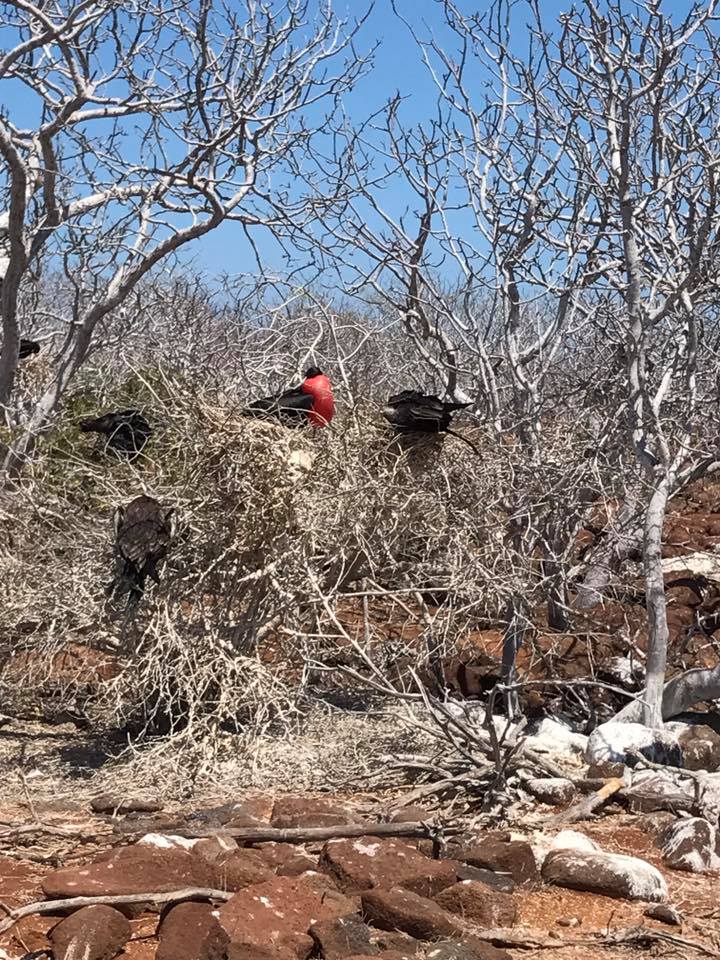
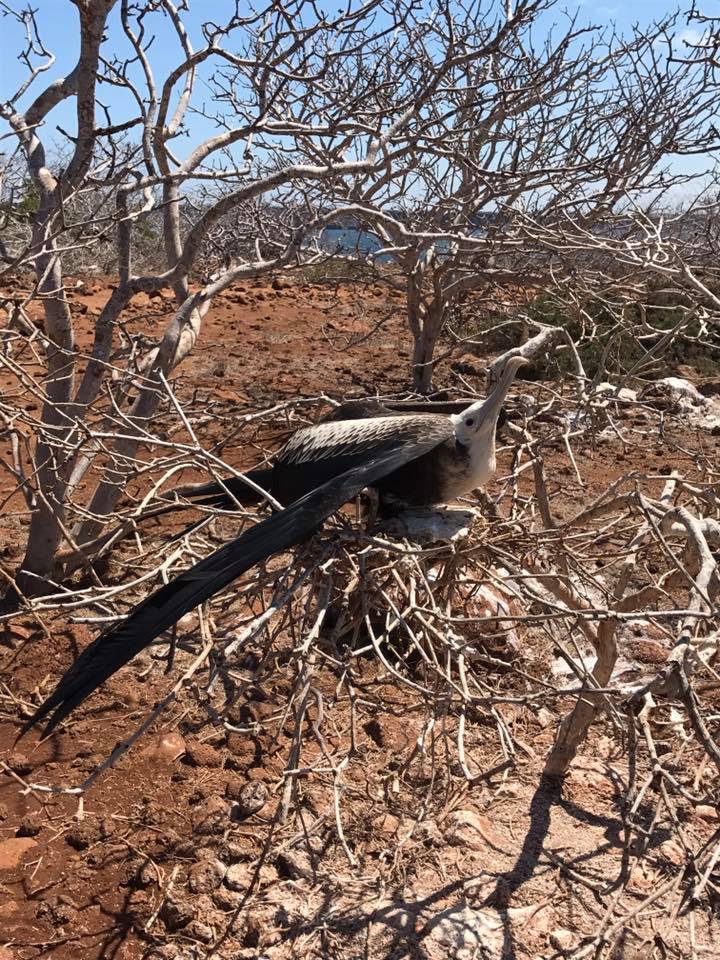
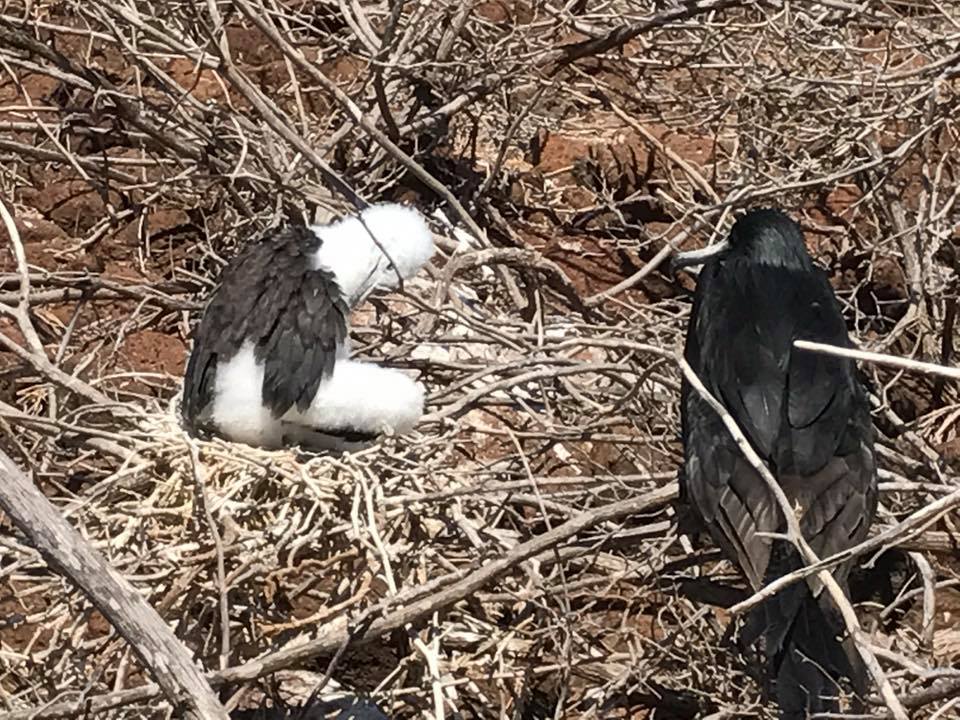
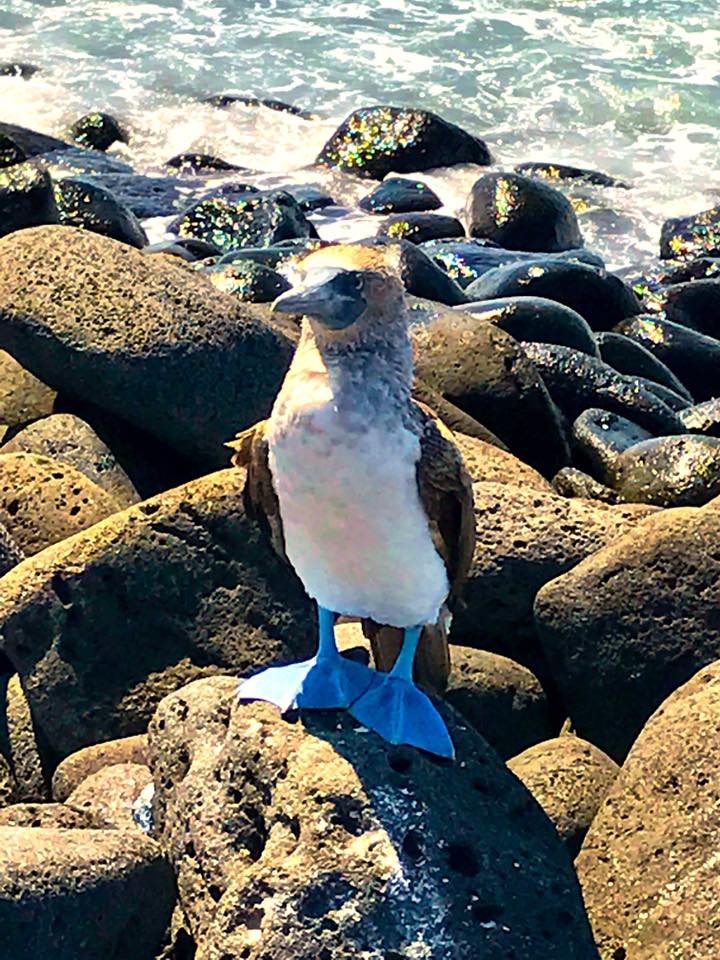
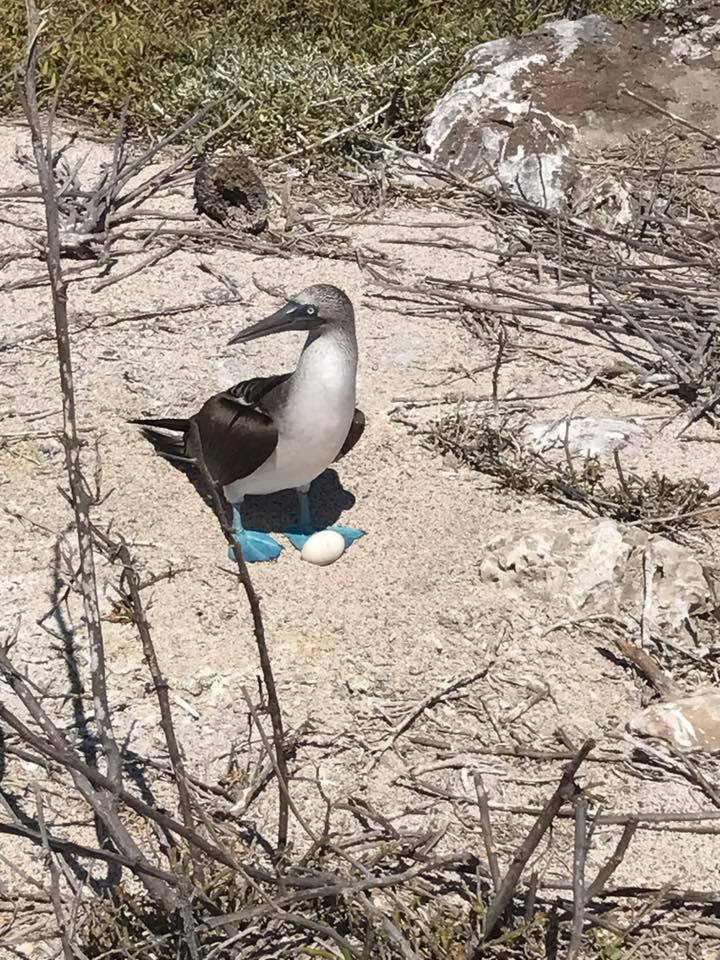
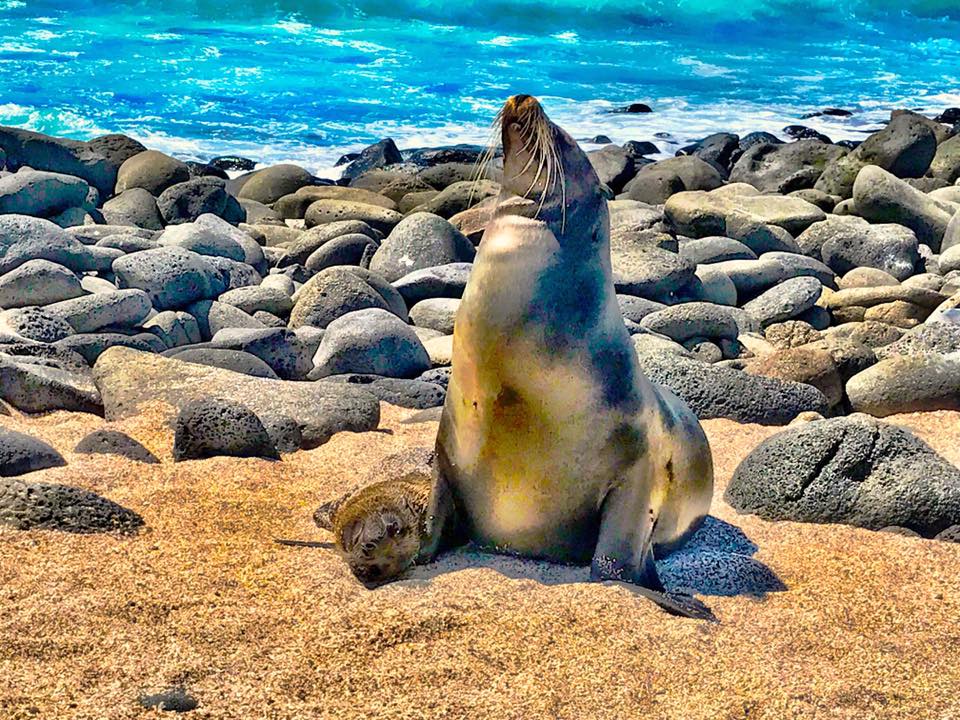
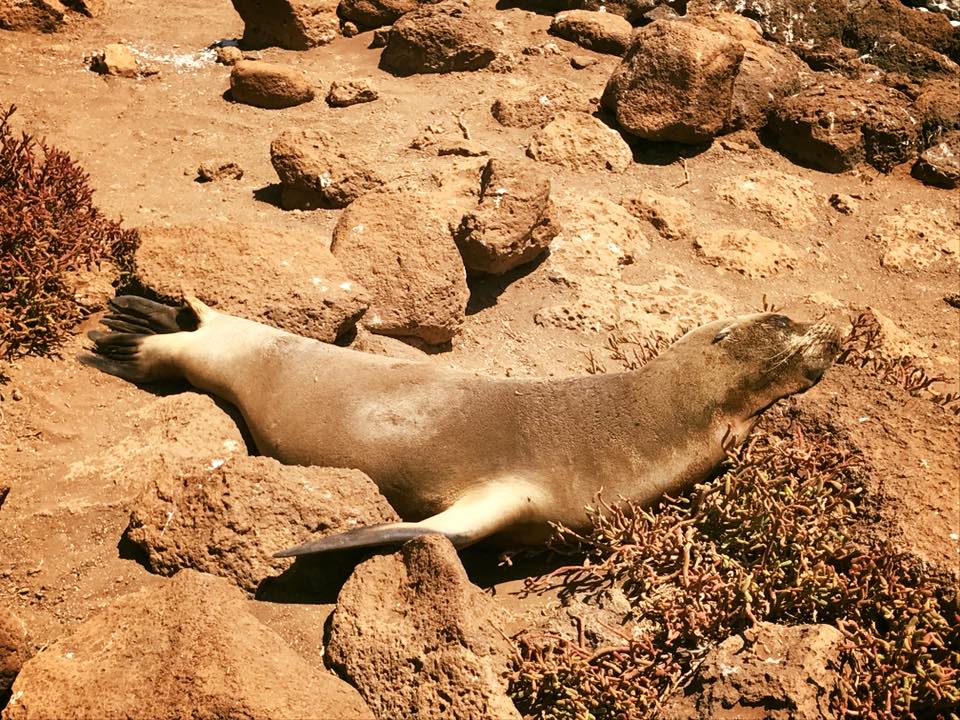
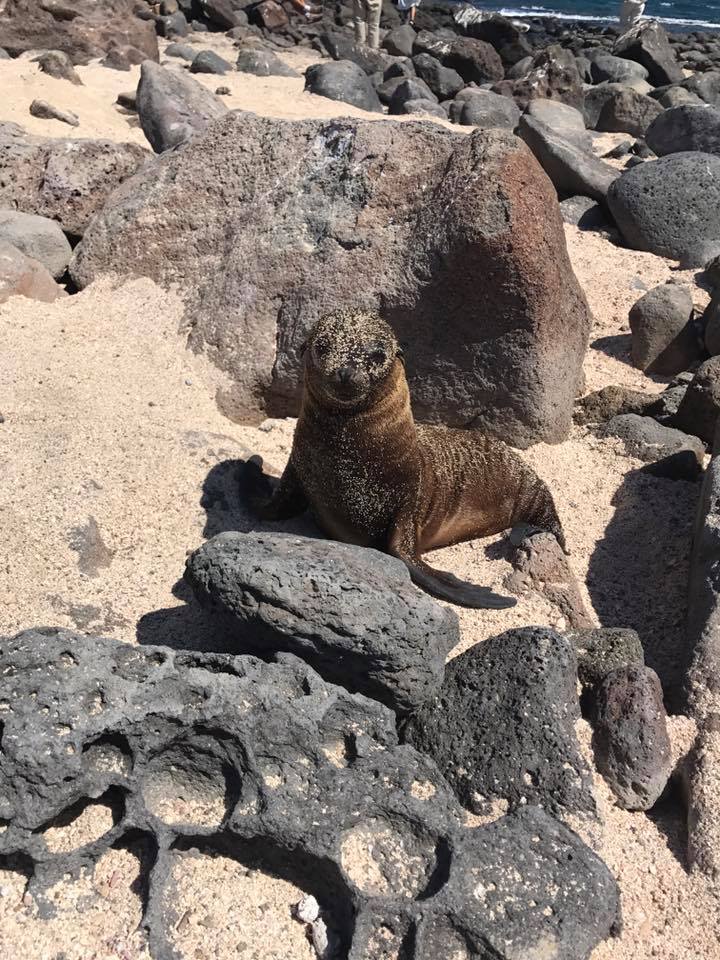
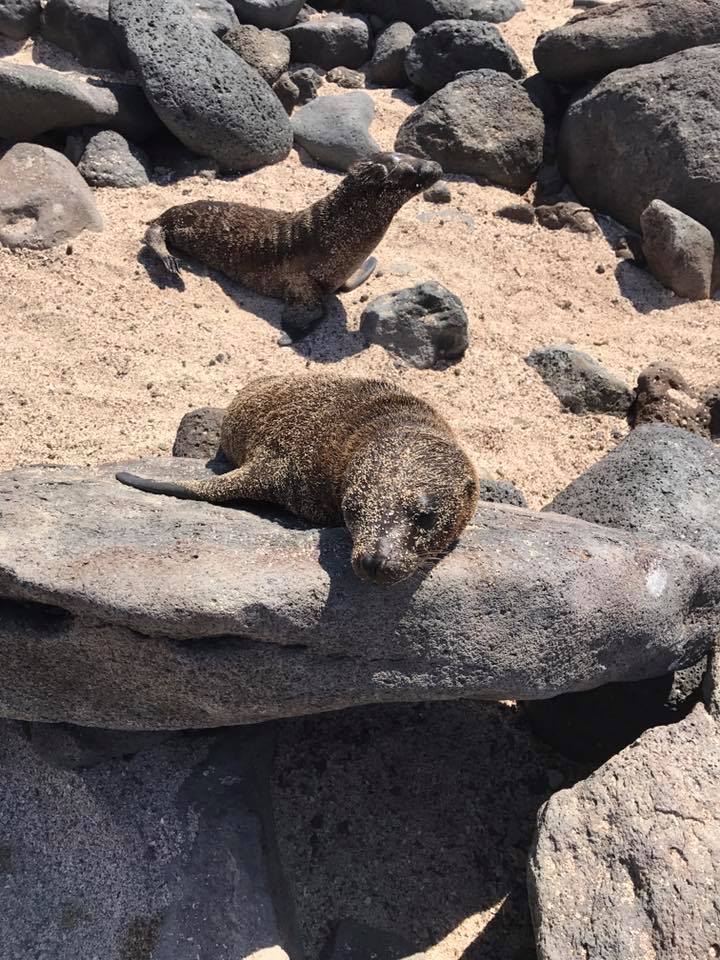 When we got back from our excursion, there was just one more spot we had to hit before we left the Galapagos Islands- Las Grietas. Las Grietas is a series of volcanic crevices that were formed during the cooling of molten lava and has become a popular swimming destination. To get there, you have to hike about 20 minutes from Finch Bay Hotel on a trail that winds through a forest of cacti and over a beautiful salt flat. The water is cool, clear, and very deep.
When we got back from our excursion, there was just one more spot we had to hit before we left the Galapagos Islands- Las Grietas. Las Grietas is a series of volcanic crevices that were formed during the cooling of molten lava and has become a popular swimming destination. To get there, you have to hike about 20 minutes from Finch Bay Hotel on a trail that winds through a forest of cacti and over a beautiful salt flat. The water is cool, clear, and very deep.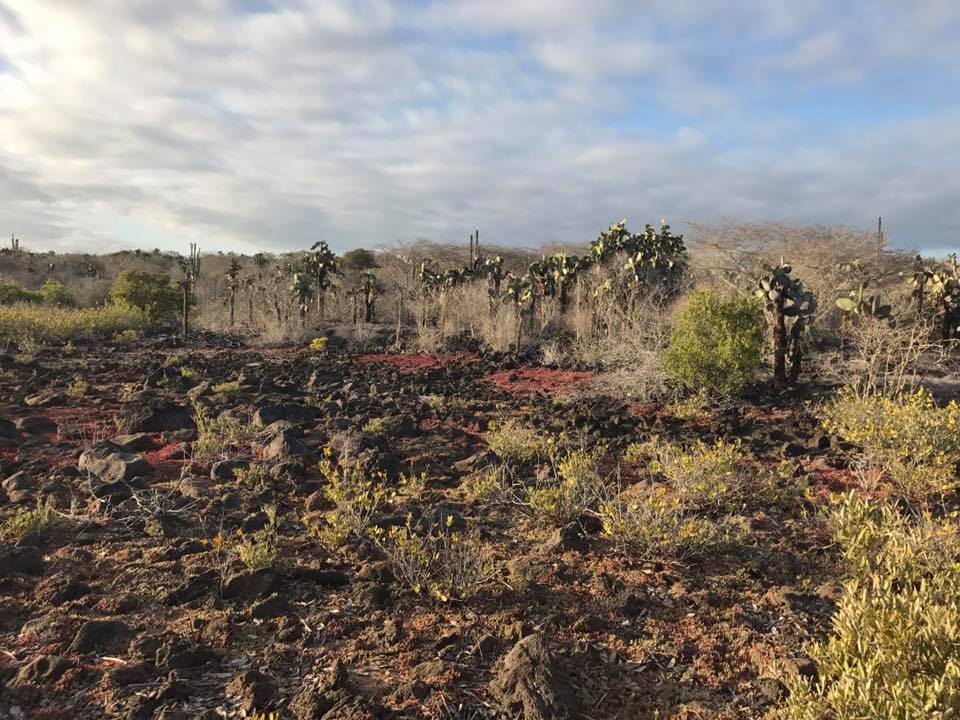
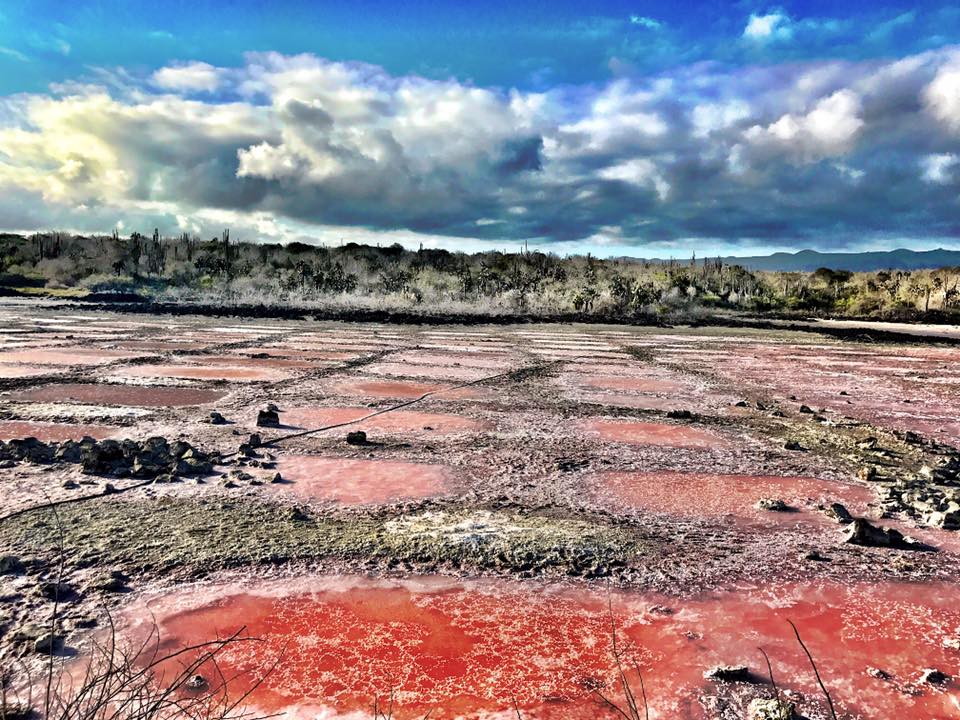
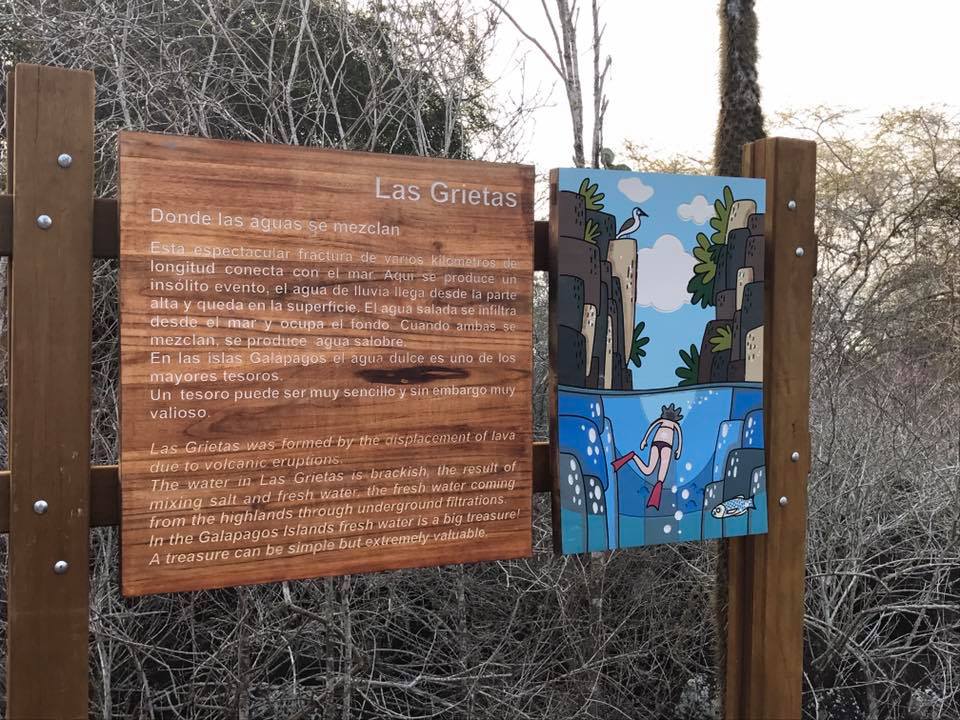
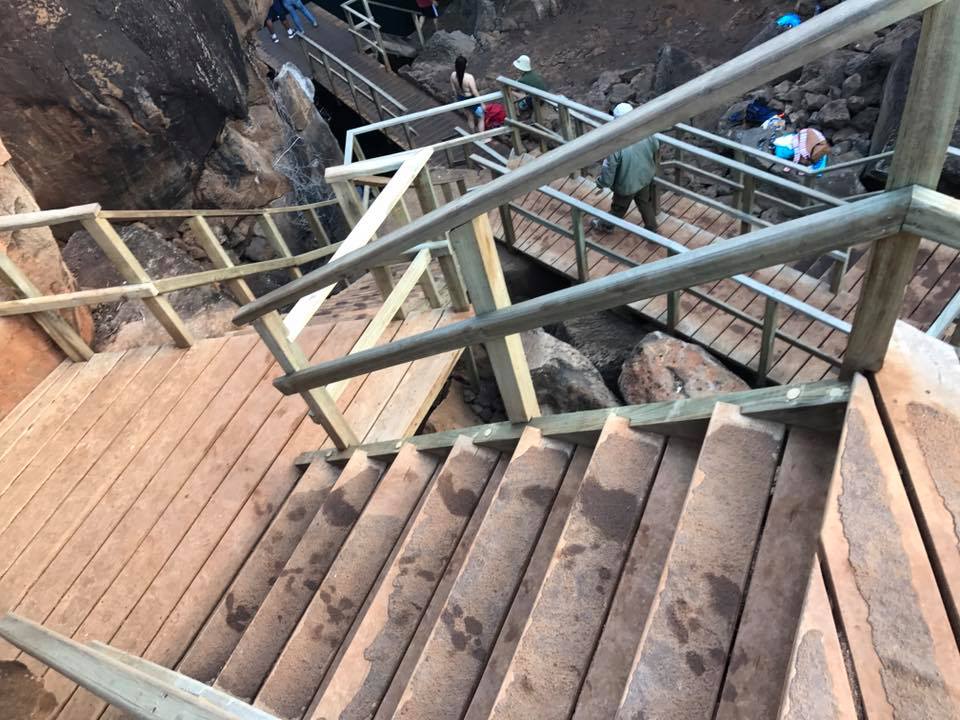
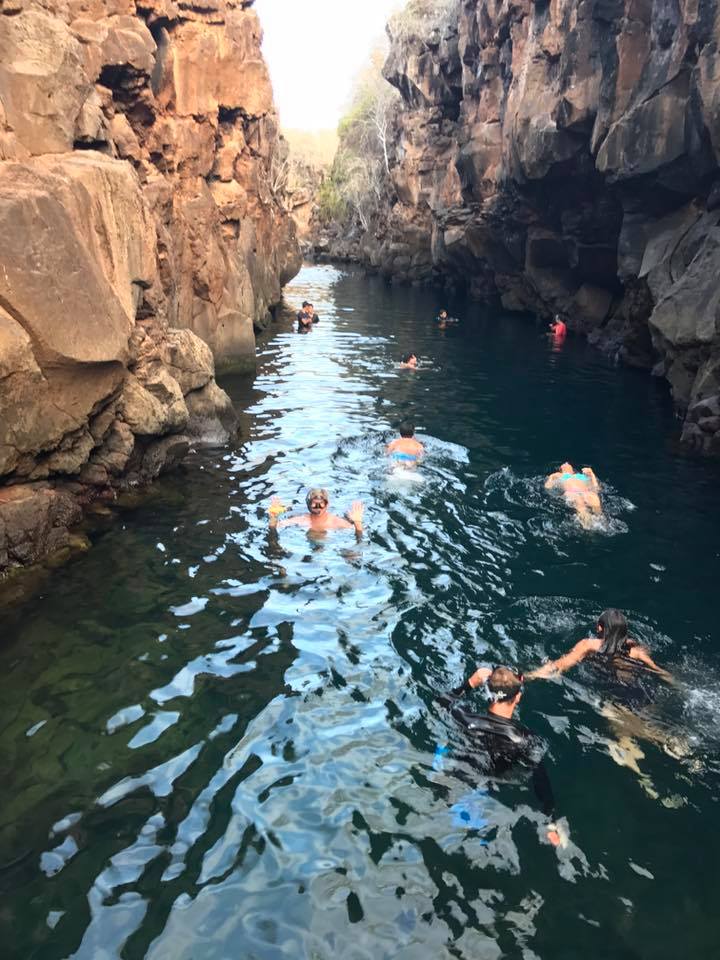
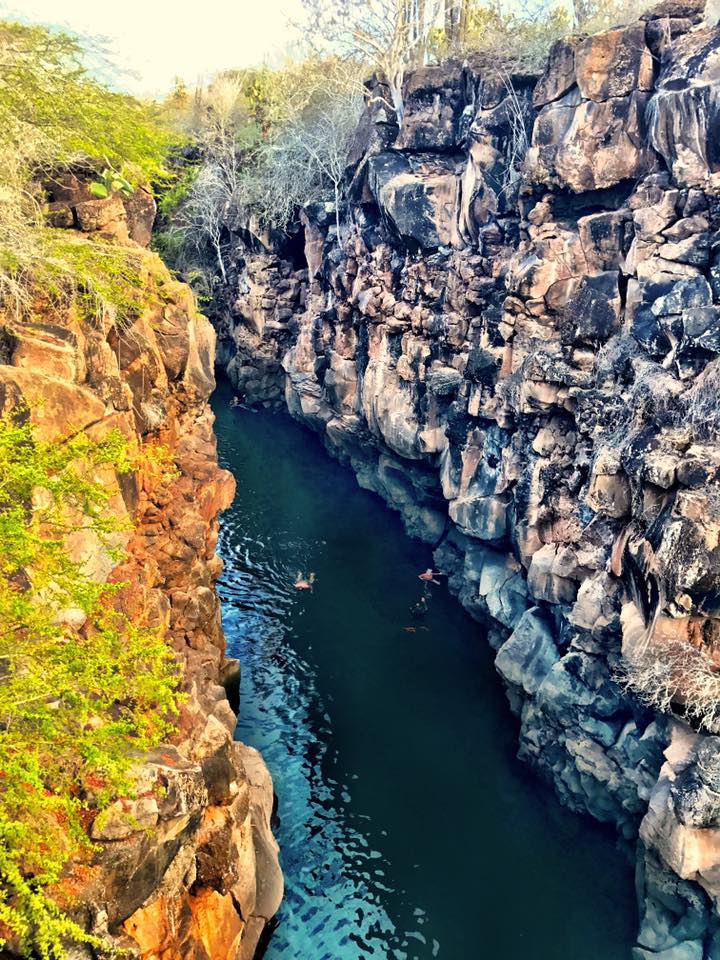 Sometimes, a little spontaneity pays off, and this was a perfect way to spend our unexpected extra and last day in the Galapagos. The Galapagos Islands were a captivating and memorable adventure, and this trip has quickly moved up into the top three places we have visited in the world! I hope this series of posts has inspired you to take your own trip to the amazing Galapagos. As always, if you have any questions or want to share your own tips, please leave me a comment or send me an email. I love to hear from my readers!
Sometimes, a little spontaneity pays off, and this was a perfect way to spend our unexpected extra and last day in the Galapagos. The Galapagos Islands were a captivating and memorable adventure, and this trip has quickly moved up into the top three places we have visited in the world! I hope this series of posts has inspired you to take your own trip to the amazing Galapagos. As always, if you have any questions or want to share your own tips, please leave me a comment or send me an email. I love to hear from my readers!
 Through the magic of Facebook, my freshman college roommate, Sommer, and I recently reconnected. She was married now and had two adorable children. But the best part, was that she was temporarily living abroad- in London- with her family and traveling through Europe with her two children. I loved that she and her husband had the courage to say yes to a great opportunity (despite having a whole life with children in Florida) to live and work in London. An opportunity which would give their children the chance to experience life abroad, to learn in real time, to shape the very people they would become, and to create such great and lasting memories for them.
Through the magic of Facebook, my freshman college roommate, Sommer, and I recently reconnected. She was married now and had two adorable children. But the best part, was that she was temporarily living abroad- in London- with her family and traveling through Europe with her two children. I loved that she and her husband had the courage to say yes to a great opportunity (despite having a whole life with children in Florida) to live and work in London. An opportunity which would give their children the chance to experience life abroad, to learn in real time, to shape the very people they would become, and to create such great and lasting memories for them. Pack the essentials. Take an inventory of what you already have, what you can borrow, and what you need to buy. Aim to travel light (your hands will be full with your children), yet bring what you need to enjoy your vacation and not to mention the journey there. Packing for the flight itself (and don’t forget the return flight home) is as important as the trip. A carry-on with a day or two’s worth of clothes is recommend for cases of lost luggage, or spilled chocolate milk, as well as essential toiletries. A bag containing on-flight entertainment is also recommend (don’t bother with the glossy magazines, who are you fooling — you want be relaxing and reading). Pack your bag with activities to keep your child(ren)’s hands and attention occupied during pre-boarding and on the flight.
Pack the essentials. Take an inventory of what you already have, what you can borrow, and what you need to buy. Aim to travel light (your hands will be full with your children), yet bring what you need to enjoy your vacation and not to mention the journey there. Packing for the flight itself (and don’t forget the return flight home) is as important as the trip. A carry-on with a day or two’s worth of clothes is recommend for cases of lost luggage, or spilled chocolate milk, as well as essential toiletries. A bag containing on-flight entertainment is also recommend (don’t bother with the glossy magazines, who are you fooling — you want be relaxing and reading). Pack your bag with activities to keep your child(ren)’s hands and attention occupied during pre-boarding and on the flight. Bring back a souvenir. I’m not talking miniature spoons or t-shirts here (Read: “I survived an international flight with a toddler”). The souvenir I’m talking about won’t collect dust on a shelf. Collect the moments you experience with your child, take pictures with your eyes and capture them in your heart. They will remember this adventure, perhaps not seeing a certain landmark or visiting a specific place, but the feelings of wonder and curiosity will linger. You have sparked their wanderlust. For the details they may forget, give them a
Bring back a souvenir. I’m not talking miniature spoons or t-shirts here (Read: “I survived an international flight with a toddler”). The souvenir I’m talking about won’t collect dust on a shelf. Collect the moments you experience with your child, take pictures with your eyes and capture them in your heart. They will remember this adventure, perhaps not seeing a certain landmark or visiting a specific place, but the feelings of wonder and curiosity will linger. You have sparked their wanderlust. For the details they may forget, give them a  This has been my experience flying with small children internationally, and these are the tips I have learned along the way. No “mother code” invoked. It can be stressful, but it can also be life-changing. You’re opening their eyes to the world, and you will see the world in a new perspective as a result. With several trips taken since our first cross-Atlantic flight, the newborn days of travel are behind us. We are more confident parents and more confident travelers. There’s only one thing left to plan – Where to Next?
This has been my experience flying with small children internationally, and these are the tips I have learned along the way. No “mother code” invoked. It can be stressful, but it can also be life-changing. You’re opening their eyes to the world, and you will see the world in a new perspective as a result. With several trips taken since our first cross-Atlantic flight, the newborn days of travel are behind us. We are more confident parents and more confident travelers. There’s only one thing left to plan – Where to Next?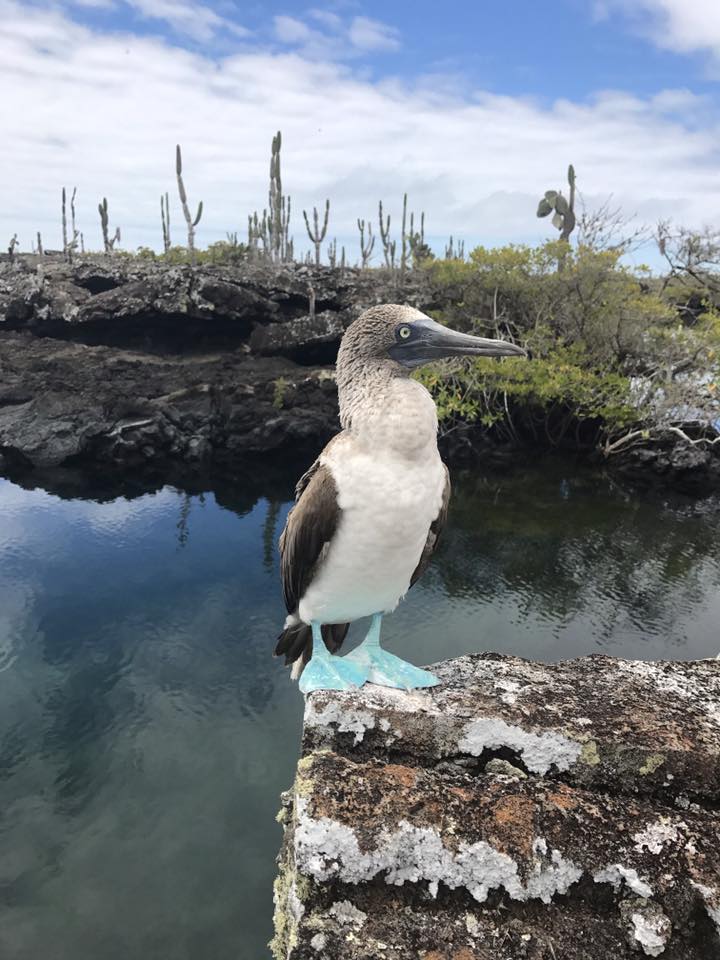 It has been 18 days since Chad and I have returned from the Galapagos Islands, but it seems like a lifetime ago. Almost like a dream. Were we really even there? The Galapagos are so otherworldly, that as soon as you leave, you feel very far removed from your time there.
It has been 18 days since Chad and I have returned from the Galapagos Islands, but it seems like a lifetime ago. Almost like a dream. Were we really even there? The Galapagos are so otherworldly, that as soon as you leave, you feel very far removed from your time there.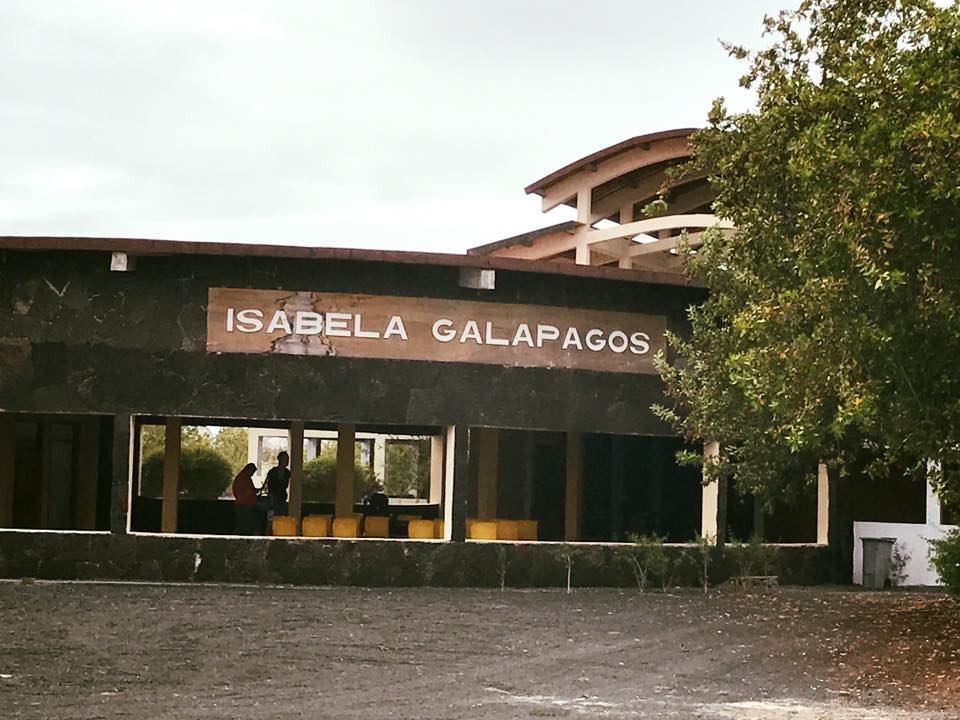
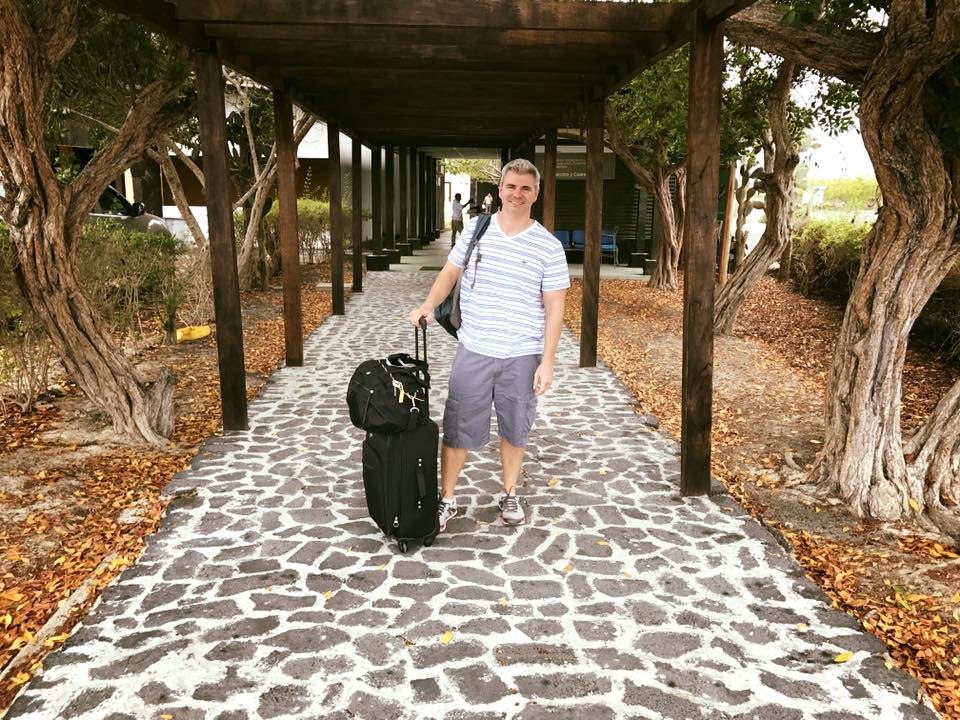 Day 1: We stayed at Iguana Crossings Hotel, which, by all accounts, is the nicest hotel in Puerto Villamil. The hotel is an eco-hotel and is the most innovative on the island. It is also beach front, so spring for an ocean view room. Behind the hotel is a wildlife-filled lagoon. The only problem with staying at an eco-hotel is the water use restrictions. The water in the faucets and the showers were timed to 8 seconds, so you had to keep pressing to have the water flow. Doesn’t seem so bad for the sink, but try showering in 8 second intervals! Also, the water takes some time to get hot. Other than that, the hotel is lovely, the staff is very friendly, and the full breakfast (included with the room) is delicious.
Day 1: We stayed at Iguana Crossings Hotel, which, by all accounts, is the nicest hotel in Puerto Villamil. The hotel is an eco-hotel and is the most innovative on the island. It is also beach front, so spring for an ocean view room. Behind the hotel is a wildlife-filled lagoon. The only problem with staying at an eco-hotel is the water use restrictions. The water in the faucets and the showers were timed to 8 seconds, so you had to keep pressing to have the water flow. Doesn’t seem so bad for the sink, but try showering in 8 second intervals! Also, the water takes some time to get hot. Other than that, the hotel is lovely, the staff is very friendly, and the full breakfast (included with the room) is delicious. 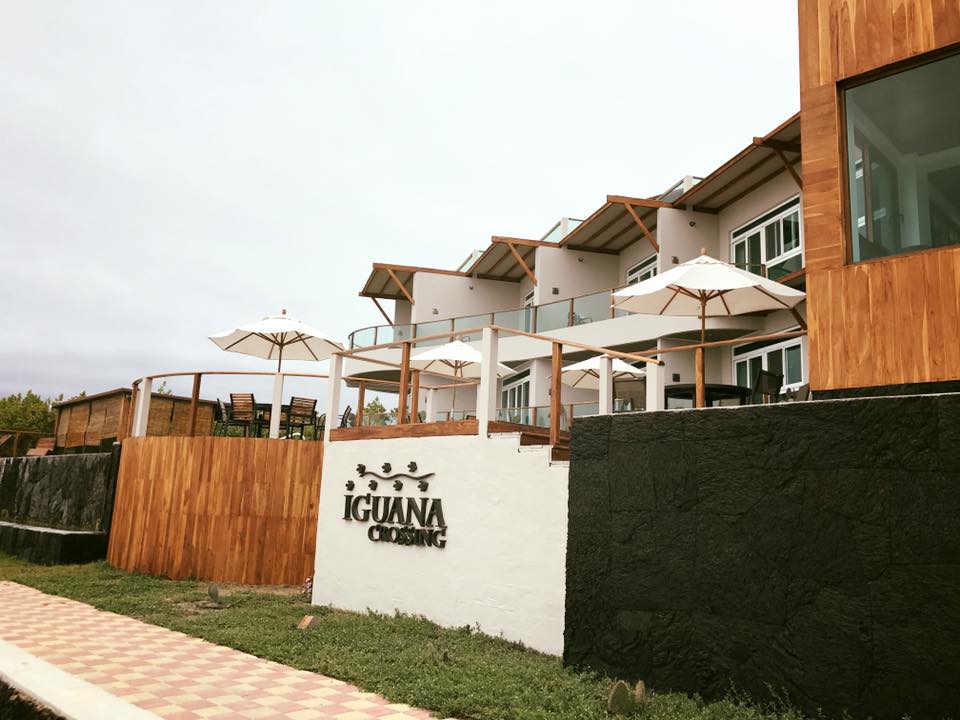 This is the view from our balcony:
This is the view from our balcony: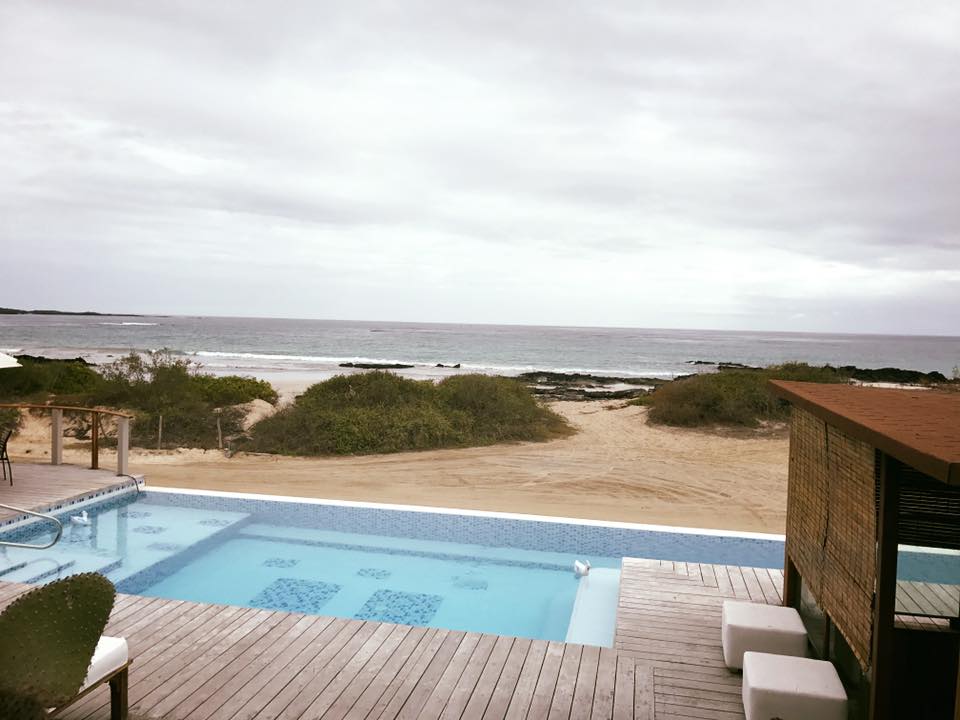
 And this is the view from our bathroom:
And this is the view from our bathroom: 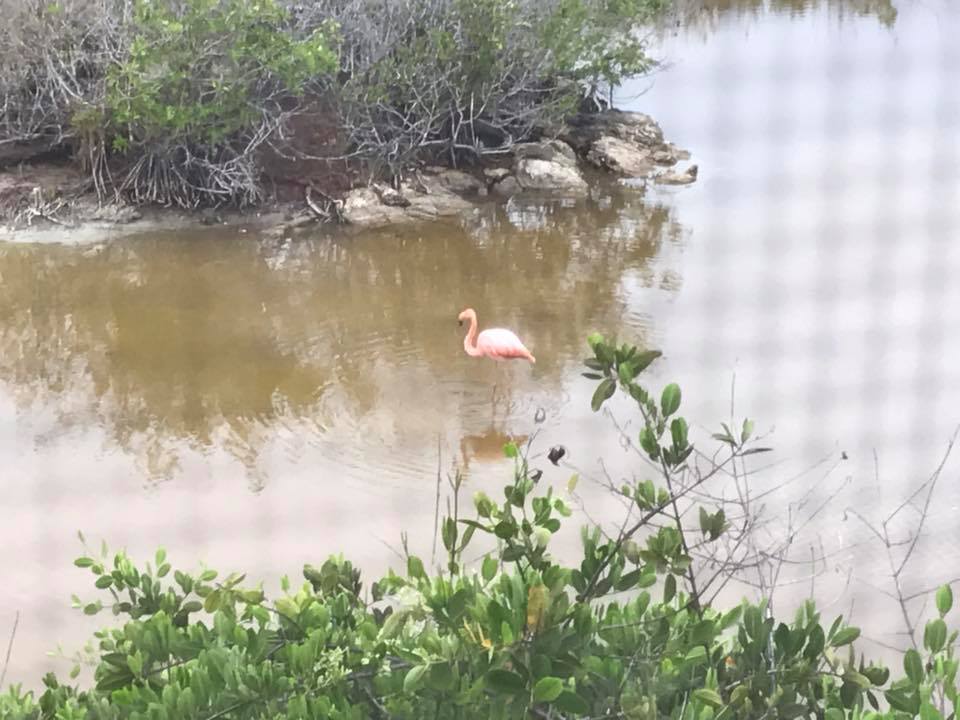 It’s kinda nice to wake up to a flock of social flamingos cackling outside. Also, the sunset view wasn’t too shabby either! This is unfiltered, by the way:
It’s kinda nice to wake up to a flock of social flamingos cackling outside. Also, the sunset view wasn’t too shabby either! This is unfiltered, by the way: The hotel is aptly named since it does indeed sit right before an actual crossing for iguanas; and for whatever reason, when they cross the dirt road, they do so at the actual crossing.
The hotel is aptly named since it does indeed sit right before an actual crossing for iguanas; and for whatever reason, when they cross the dirt road, they do so at the actual crossing.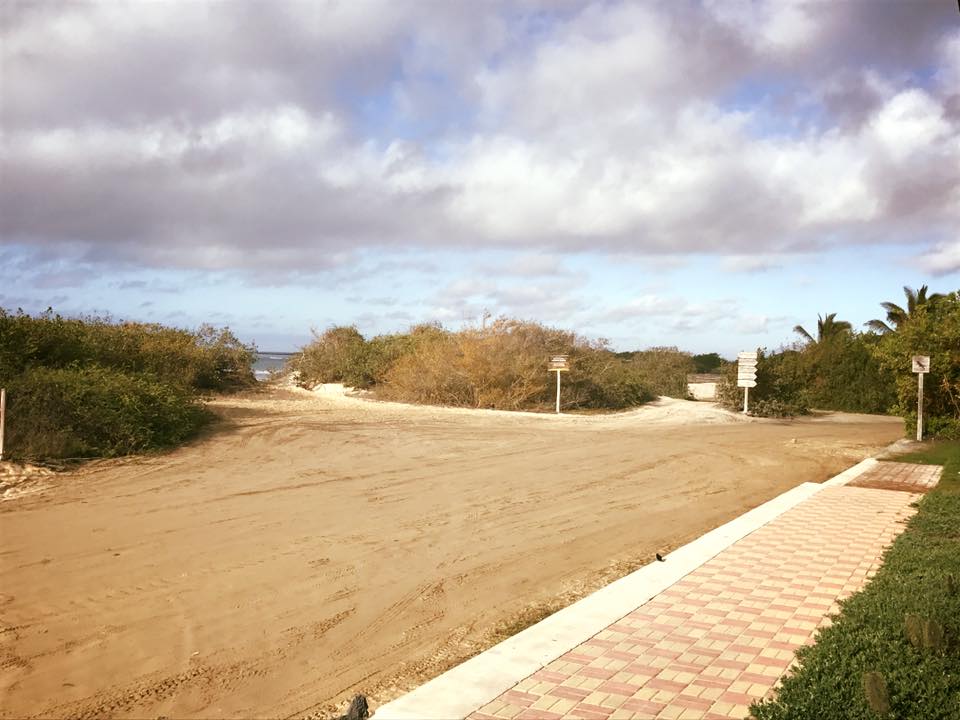
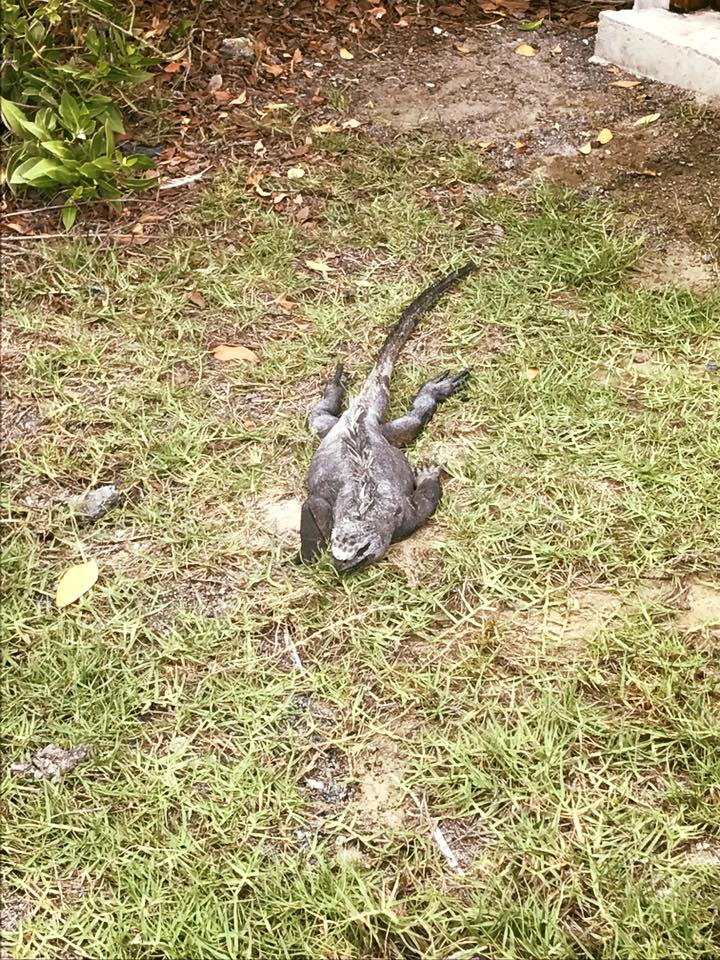 But we didn’t have too much time to linger on property, because just two hours after we landed, we were already off to our first adventure: a trip to Las Tintoreras! Las Tintoreras is a chain of small islets. You must take a boat from the harbor about 10 minutes away to reach the small island. On the way, you see plenty of manta rays and sea turtles.
But we didn’t have too much time to linger on property, because just two hours after we landed, we were already off to our first adventure: a trip to Las Tintoreras! Las Tintoreras is a chain of small islets. You must take a boat from the harbor about 10 minutes away to reach the small island. On the way, you see plenty of manta rays and sea turtles.  Prior to reaching Las Tintoreras, the boat took us on a small sea cruise where we spotted our first blue footed boobies and a penguin!
Prior to reaching Las Tintoreras, the boat took us on a small sea cruise where we spotted our first blue footed boobies and a penguin!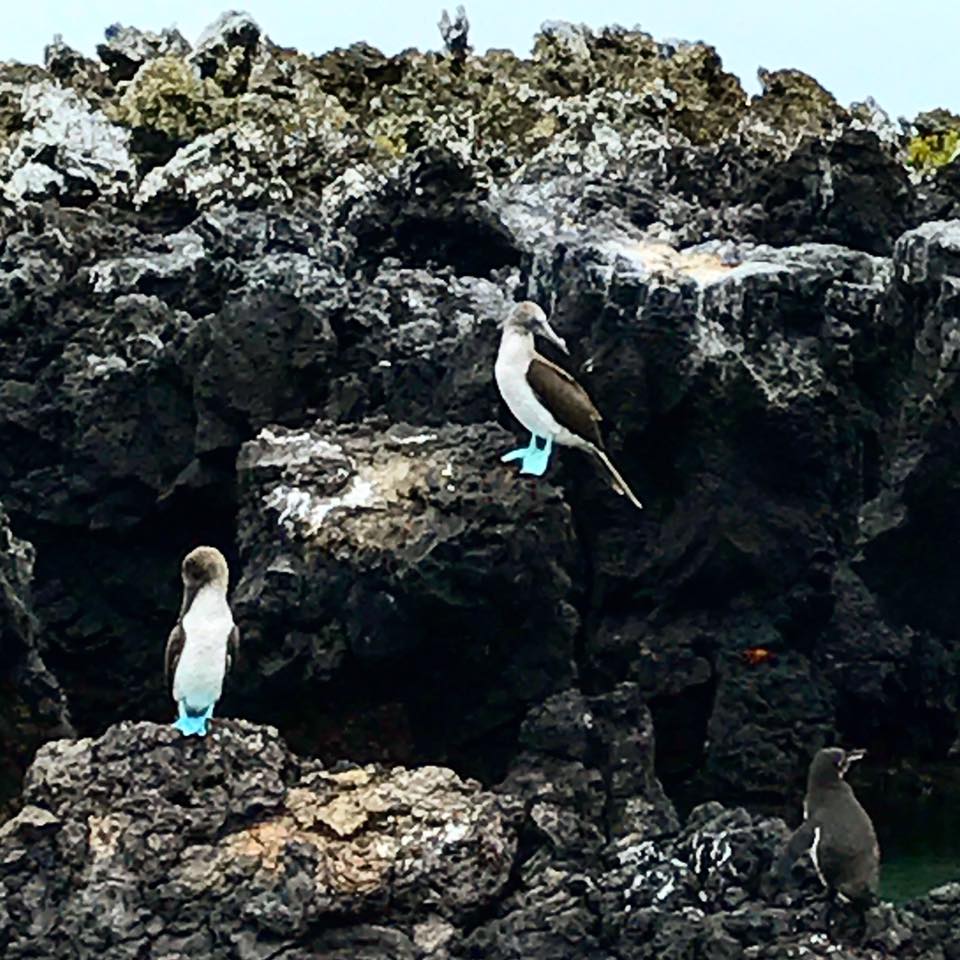 We also met some local fishermen who were cleaning their day’s catch – the large and sweetly delicious Galapagos lobster, which we later ate for dinner that night.
We also met some local fishermen who were cleaning their day’s catch – the large and sweetly delicious Galapagos lobster, which we later ate for dinner that night.
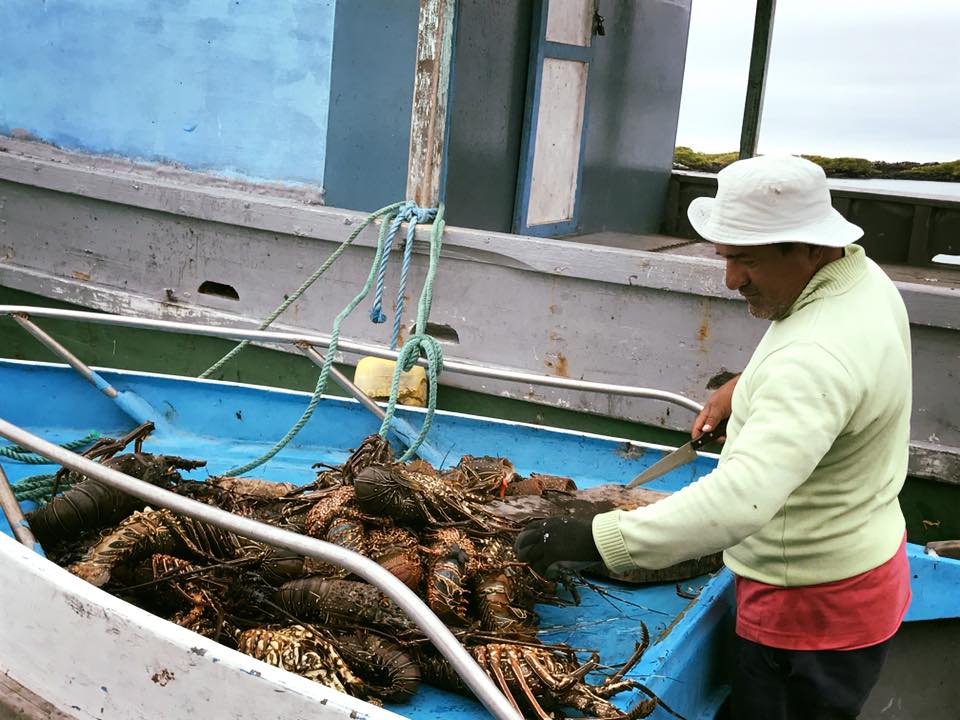
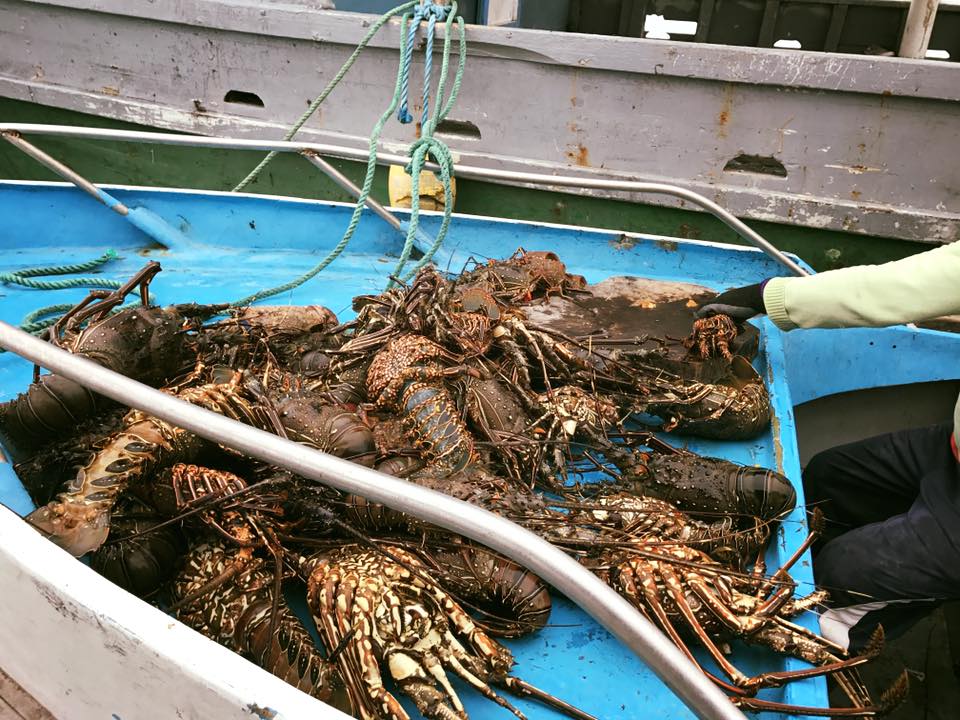 Upon arrival, we were greeted by the plentiful
Upon arrival, we were greeted by the plentiful 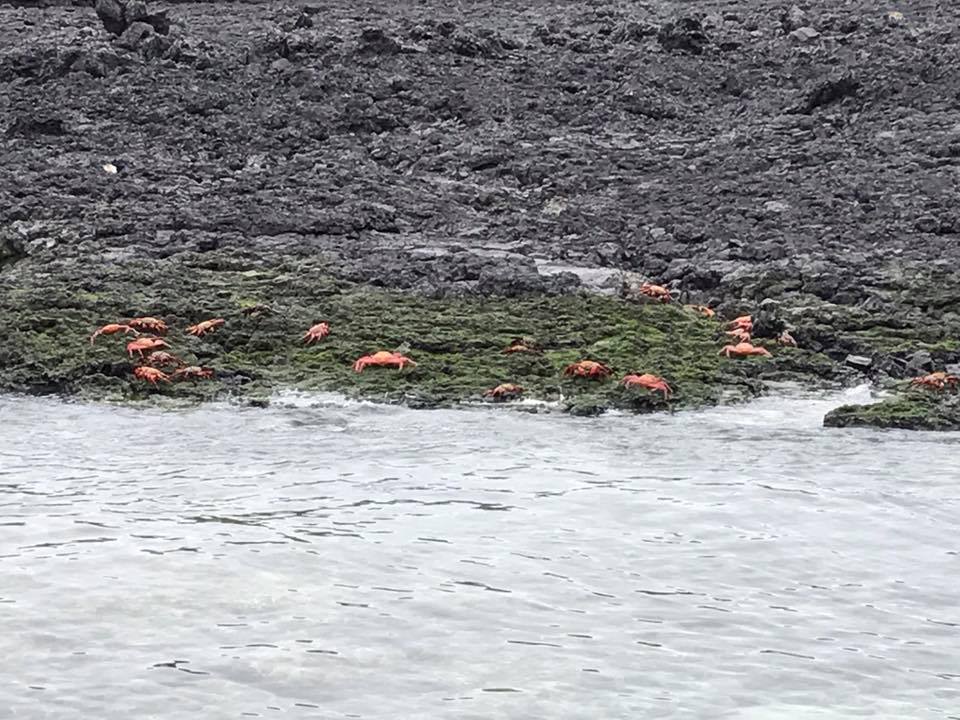 We disembarked from the small boat and began our island exploration.
We disembarked from the small boat and began our island exploration.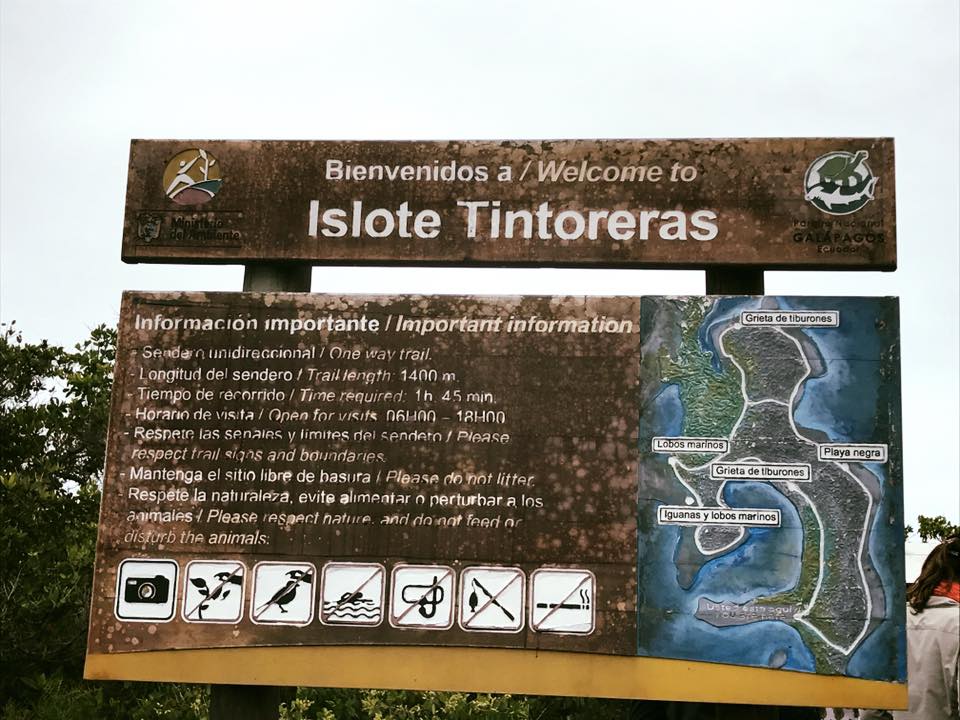 But for the wildlife, the island is uninhabited, and you must visit the island with a naturalist guide. There is a trail full of iguanas (so watch your step) that leads to a bay that is located within a volcanic crack. From the crack, you can see white tip reef sharks.
But for the wildlife, the island is uninhabited, and you must visit the island with a naturalist guide. There is a trail full of iguanas (so watch your step) that leads to a bay that is located within a volcanic crack. From the crack, you can see white tip reef sharks.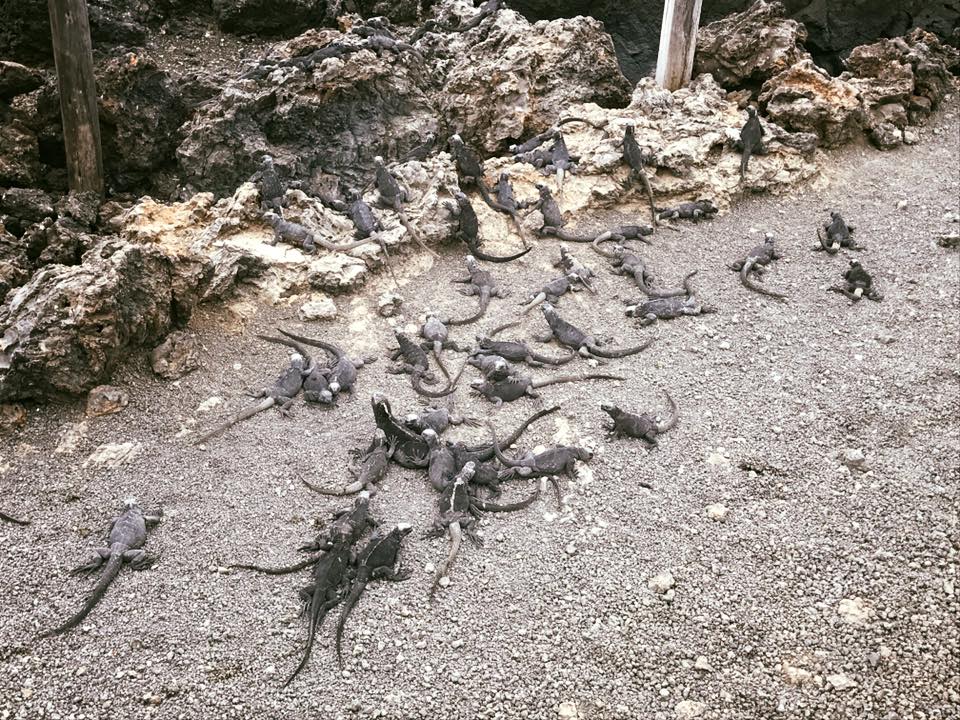
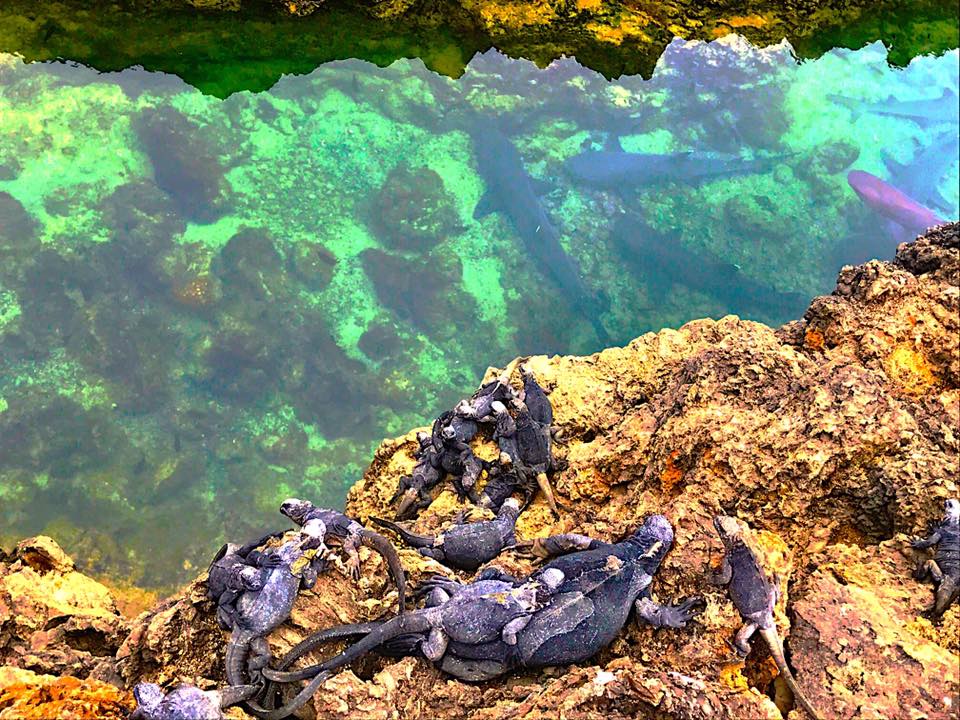 If you continue to follow the trail, you will find yourself on a deserted beach where sea lions hang out.
If you continue to follow the trail, you will find yourself on a deserted beach where sea lions hang out.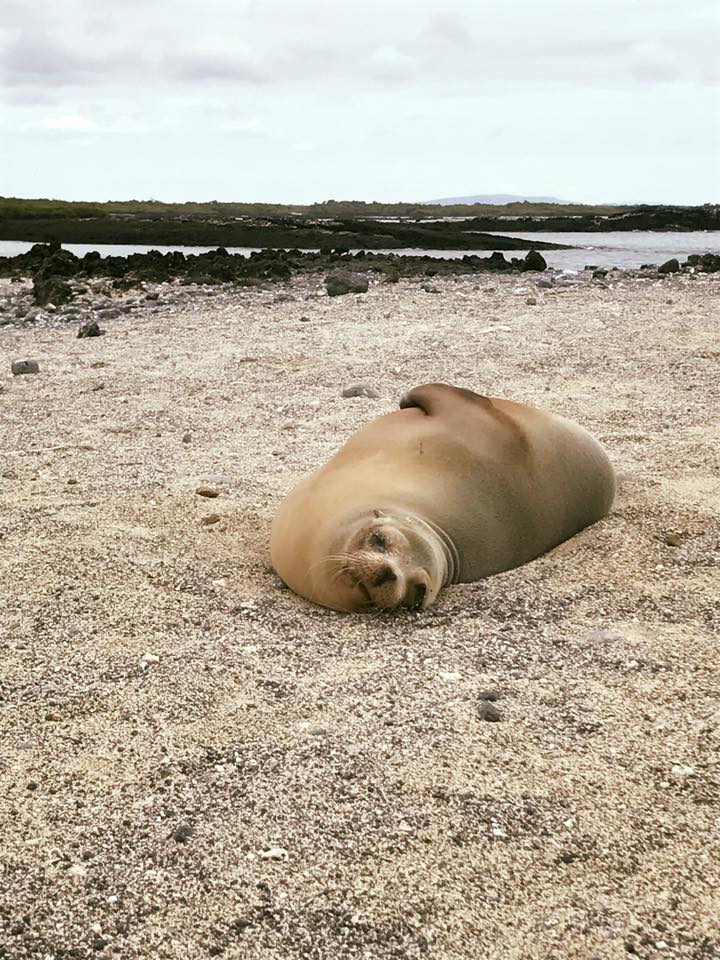 From there, you must turn around to return to the location where you boarded the boat and go to another little snorkel spot. Upon returning from the trip, we were greeted at the port with more lounging sea lions.
From there, you must turn around to return to the location where you boarded the boat and go to another little snorkel spot. Upon returning from the trip, we were greeted at the port with more lounging sea lions.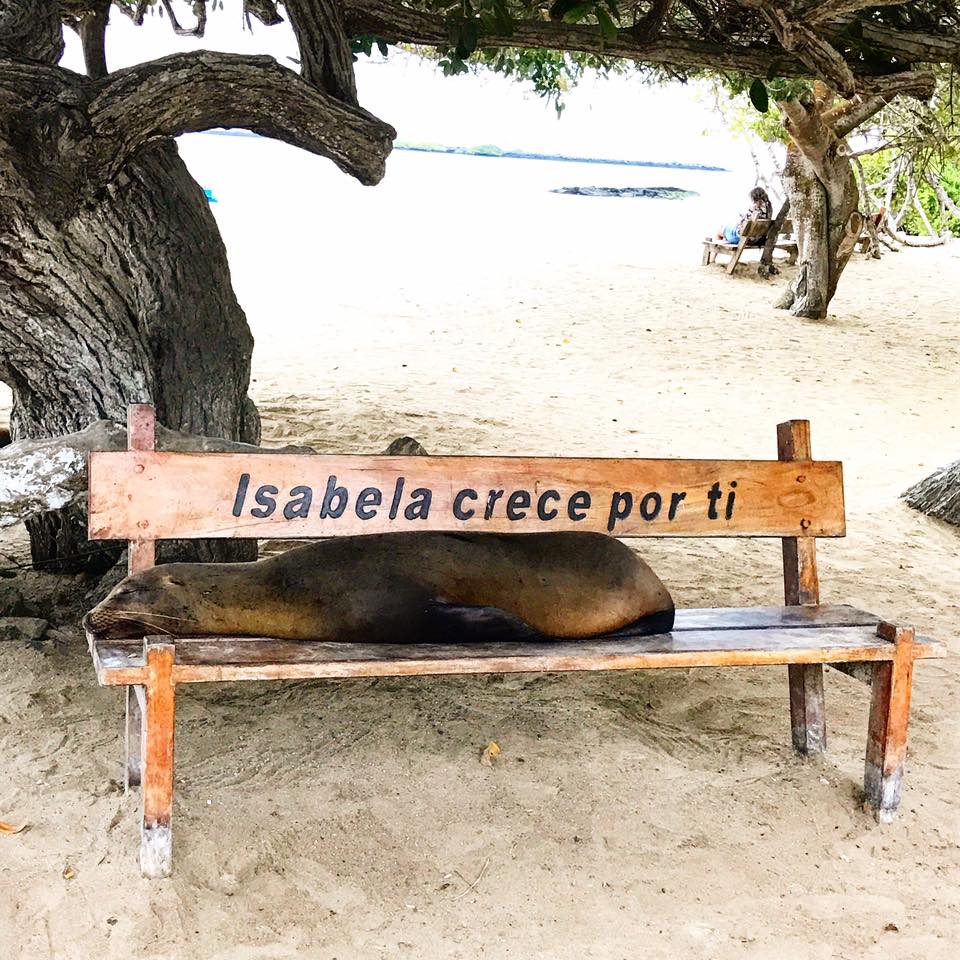 Day 2: Today we had an early morning tour to Los Tuneles, a place where lava flows formed unique, arcs, tunnels, tubes, and lava bridges both above and below the ocean and offers some of the best snorkeling on Isabela Island; and, according to Chad, the best snorkel he had in all of the Galapagos! It was a regular ole’ sea sanctuary. It takes about 45 minutes to get there by boat, and, honestly, the waters can be kinda rough on the ride out. We weren’t too worried because our captain was a man they called the Ecuadorian John Travolta (and, I am still kicking myself for not getting a picture of him because he did look like a pudgier, Latin American John Travolta!), and his first mate was JESUS (of whom I managed to get a picture).
Day 2: Today we had an early morning tour to Los Tuneles, a place where lava flows formed unique, arcs, tunnels, tubes, and lava bridges both above and below the ocean and offers some of the best snorkeling on Isabela Island; and, according to Chad, the best snorkel he had in all of the Galapagos! It was a regular ole’ sea sanctuary. It takes about 45 minutes to get there by boat, and, honestly, the waters can be kinda rough on the ride out. We weren’t too worried because our captain was a man they called the Ecuadorian John Travolta (and, I am still kicking myself for not getting a picture of him because he did look like a pudgier, Latin American John Travolta!), and his first mate was JESUS (of whom I managed to get a picture).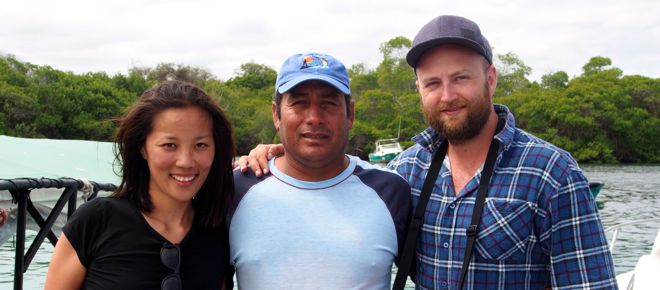
 Is it not total perfection that he is holding a fish? So, on the way to Los Tunneles, you pass this rock where penguins usually hang, so the boat will stop to scope them out (cue major sea sickness, even if you aren’t prone to it). While you are busy spotting birds, Jesus throws out clear fishing line from a spool (like, he doesn’t even use a fishing rod) that has a hook at the end, and within seconds, he is pulling up fish by the dozens.
Is it not total perfection that he is holding a fish? So, on the way to Los Tunneles, you pass this rock where penguins usually hang, so the boat will stop to scope them out (cue major sea sickness, even if you aren’t prone to it). While you are busy spotting birds, Jesus throws out clear fishing line from a spool (like, he doesn’t even use a fishing rod) that has a hook at the end, and within seconds, he is pulling up fish by the dozens.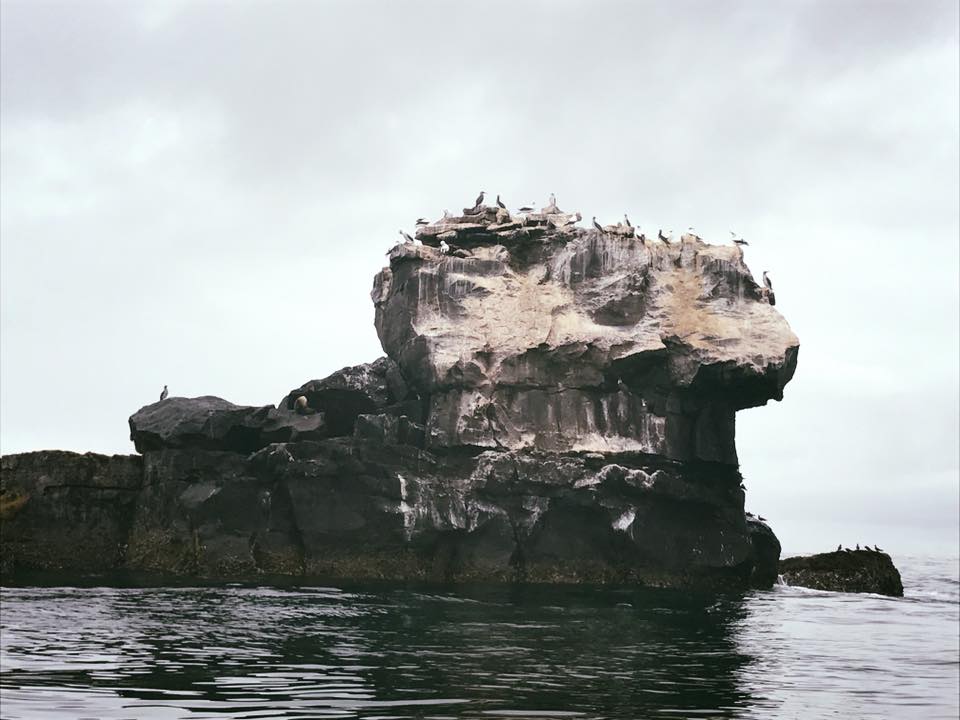
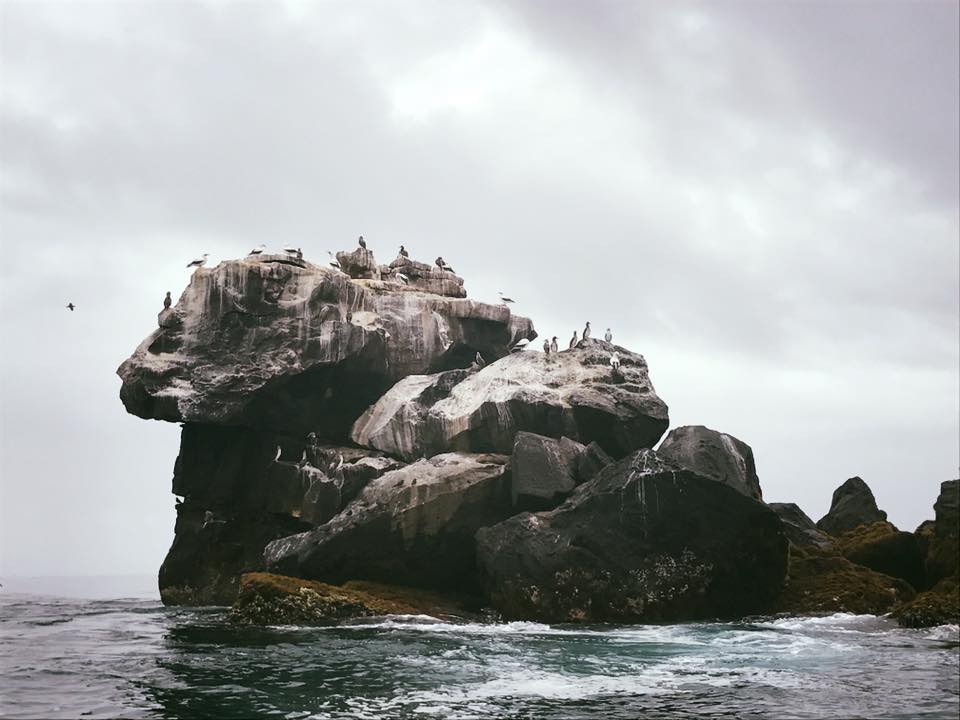 Snorkel time! In case you were wondering, while the water is clear, it is also cold (about 65 degrees Fahrenheit). Pretty much every tour operator has wet suits, masks, and fins for your use while snorkeling, and everyone went in with a wet suit.
Snorkel time! In case you were wondering, while the water is clear, it is also cold (about 65 degrees Fahrenheit). Pretty much every tour operator has wet suits, masks, and fins for your use while snorkeling, and everyone went in with a wet suit.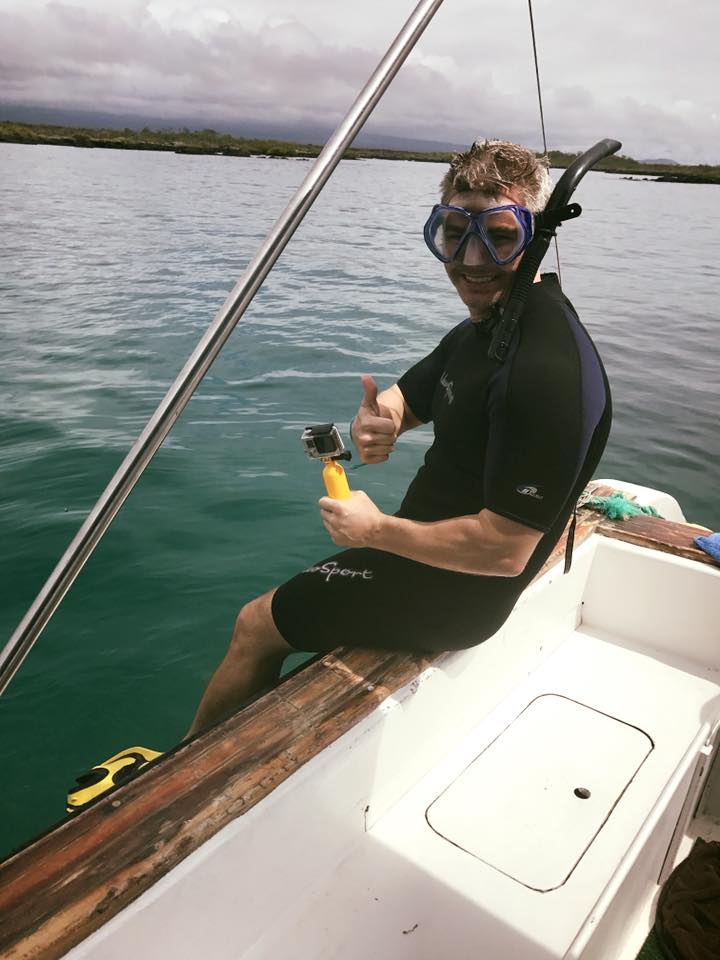
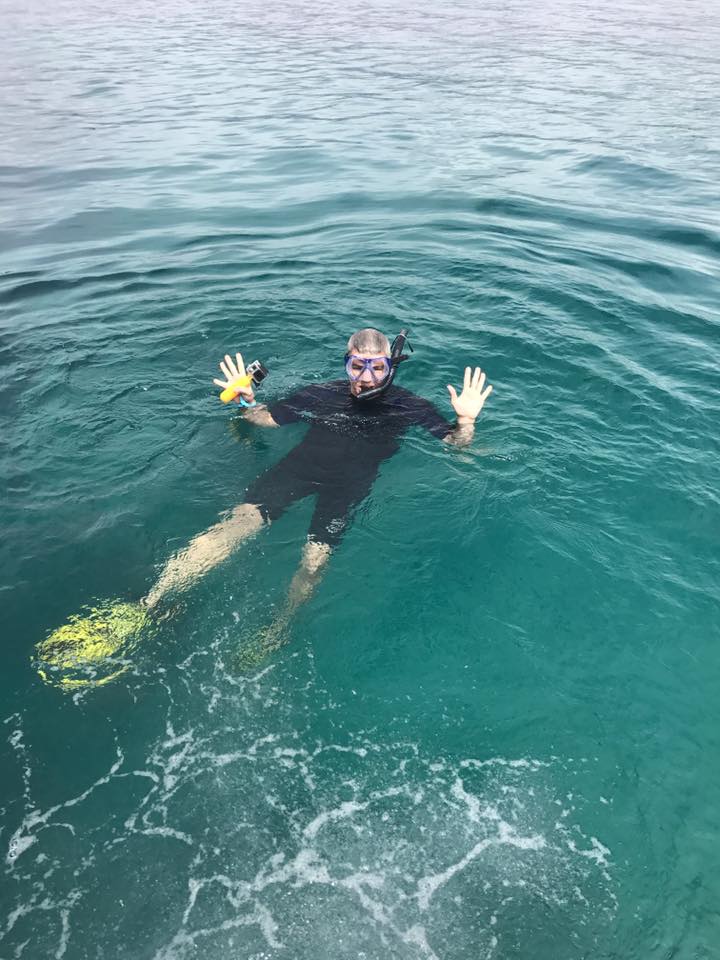 After hitting two snorkel spots, you make your last stop at Los Tunneles, where you disembark and explore the lava tunnels and all the boobies waiting to welcome you! By the way, these pictures do not do this magnificent place any justice, like not at all.
After hitting two snorkel spots, you make your last stop at Los Tunneles, where you disembark and explore the lava tunnels and all the boobies waiting to welcome you! By the way, these pictures do not do this magnificent place any justice, like not at all.
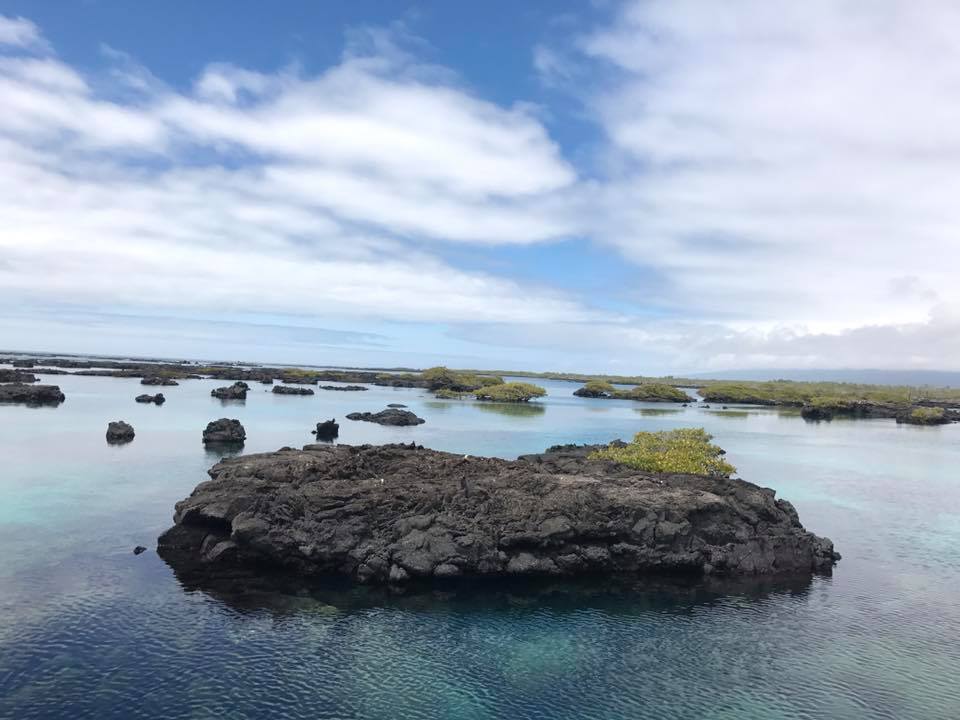 Another fun fact about this incredible place – see the tall skinny cacti in the picture below? These are called candelabra cacti. They grow out of the volcanic rock at the rate of one centimeter per year (or about one meter every hundred years); so, the cactus on the left hand side of this picture is about 400-500 YEARS OLD! Pretty amazing, right?
Another fun fact about this incredible place – see the tall skinny cacti in the picture below? These are called candelabra cacti. They grow out of the volcanic rock at the rate of one centimeter per year (or about one meter every hundred years); so, the cactus on the left hand side of this picture is about 400-500 YEARS OLD! Pretty amazing, right? 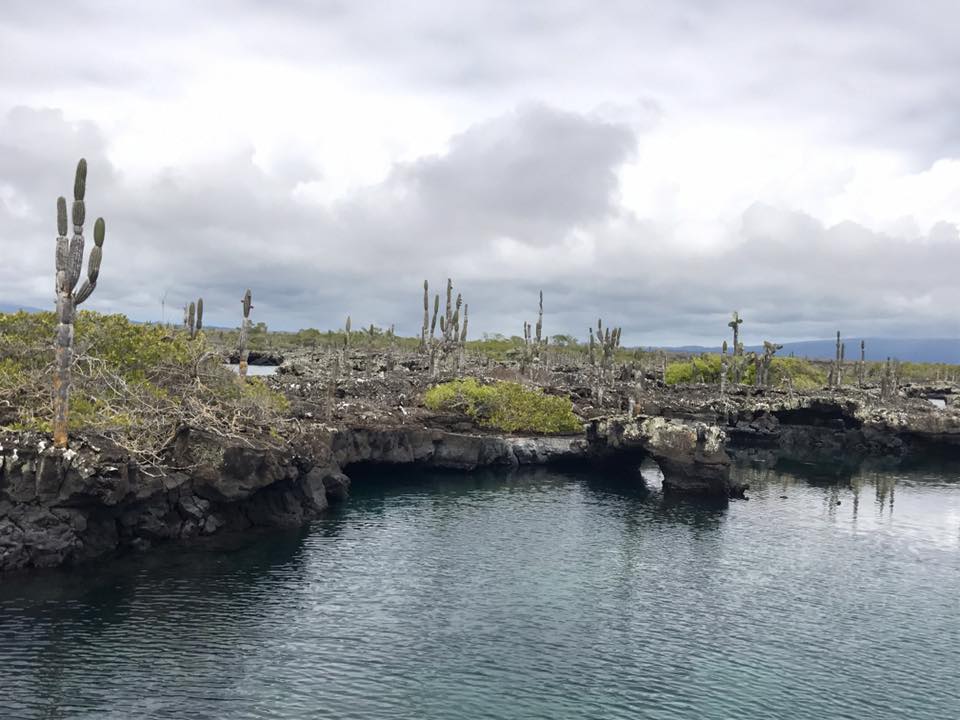
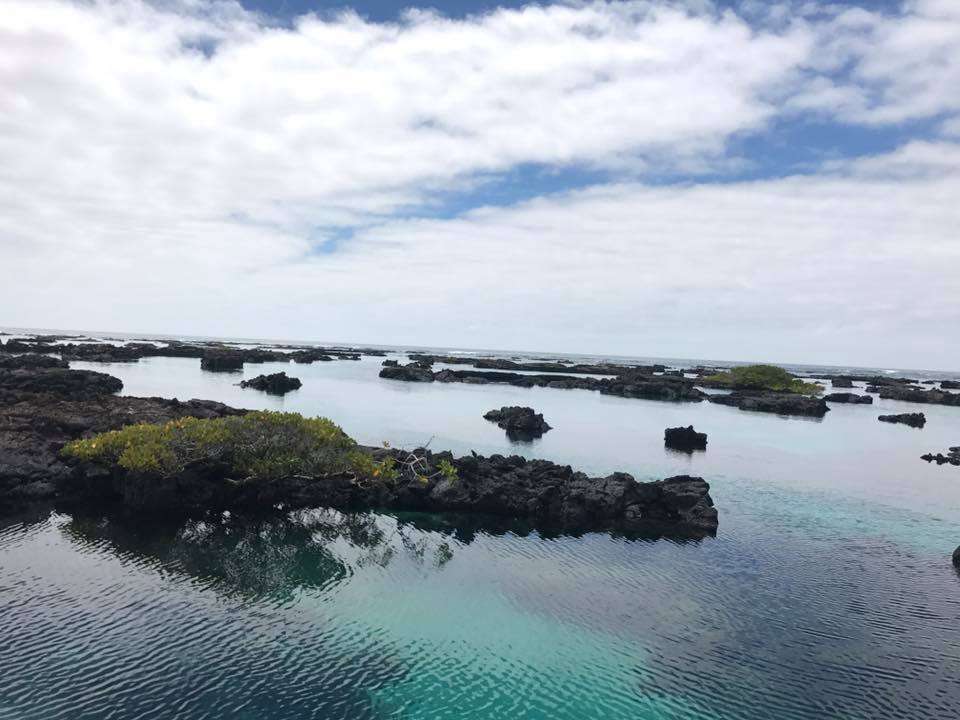
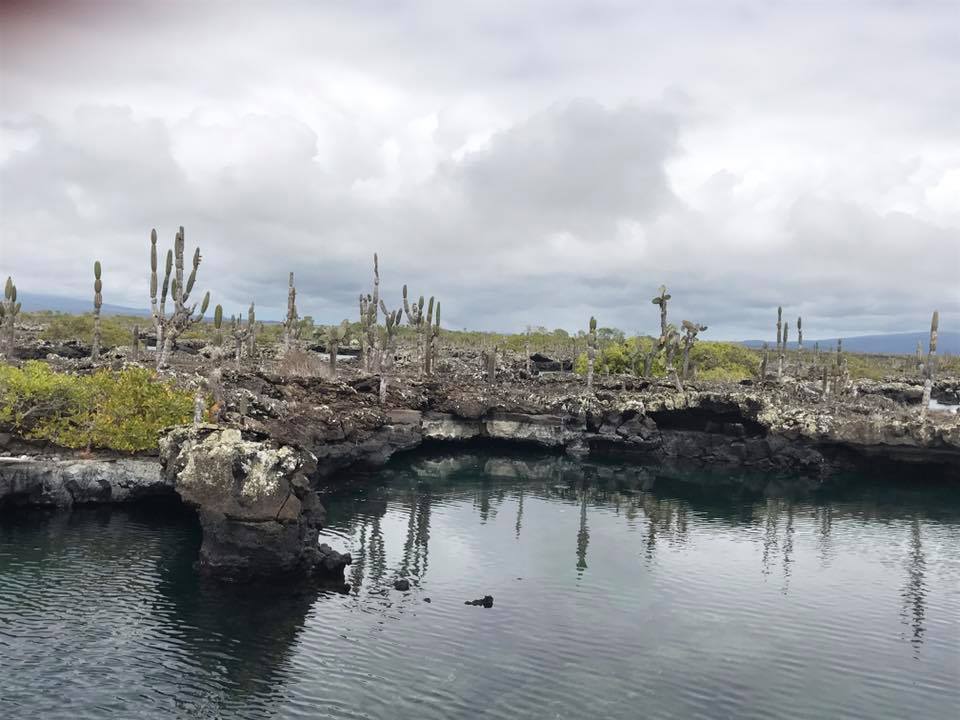
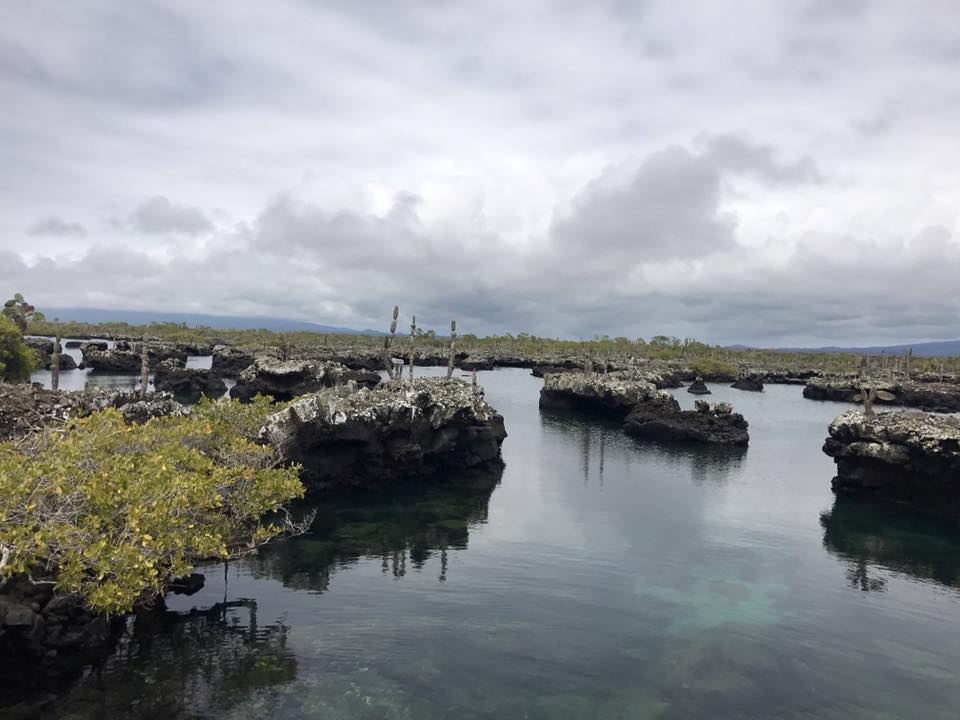
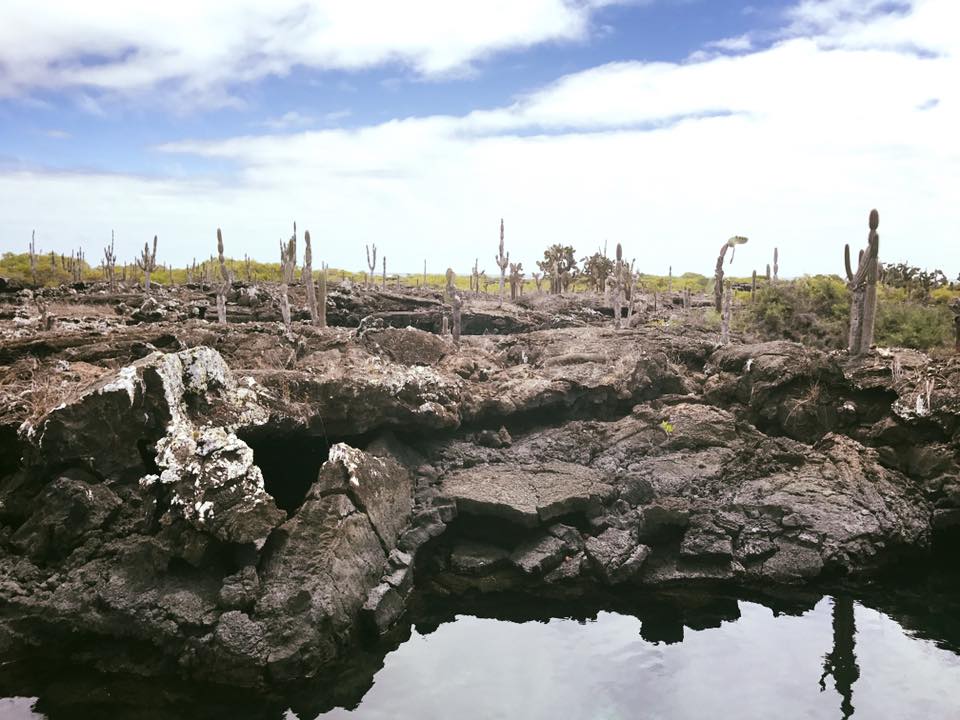
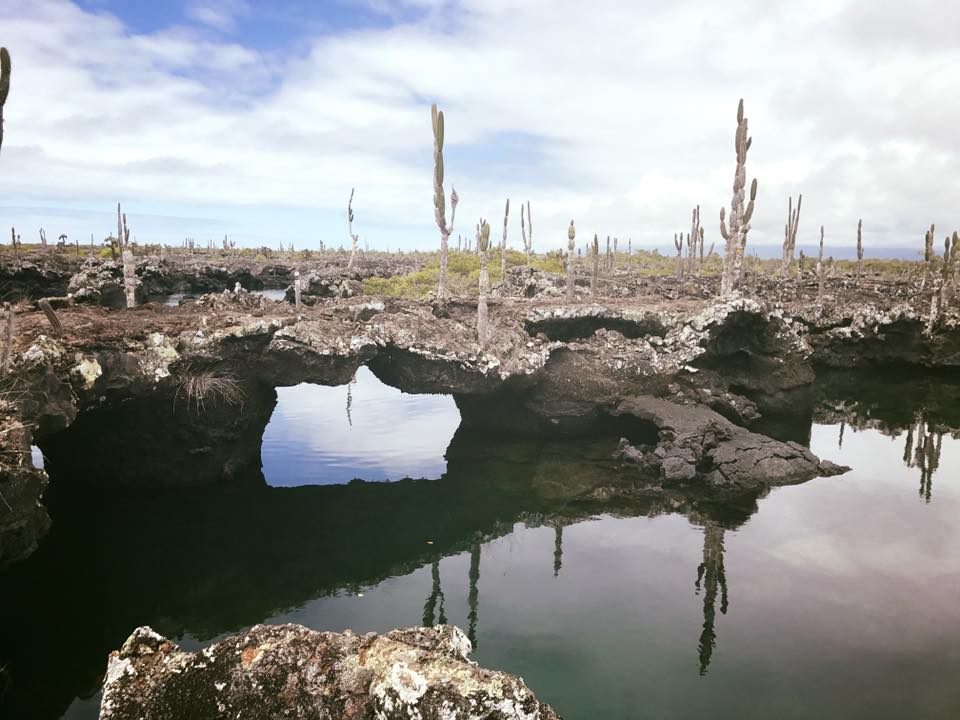
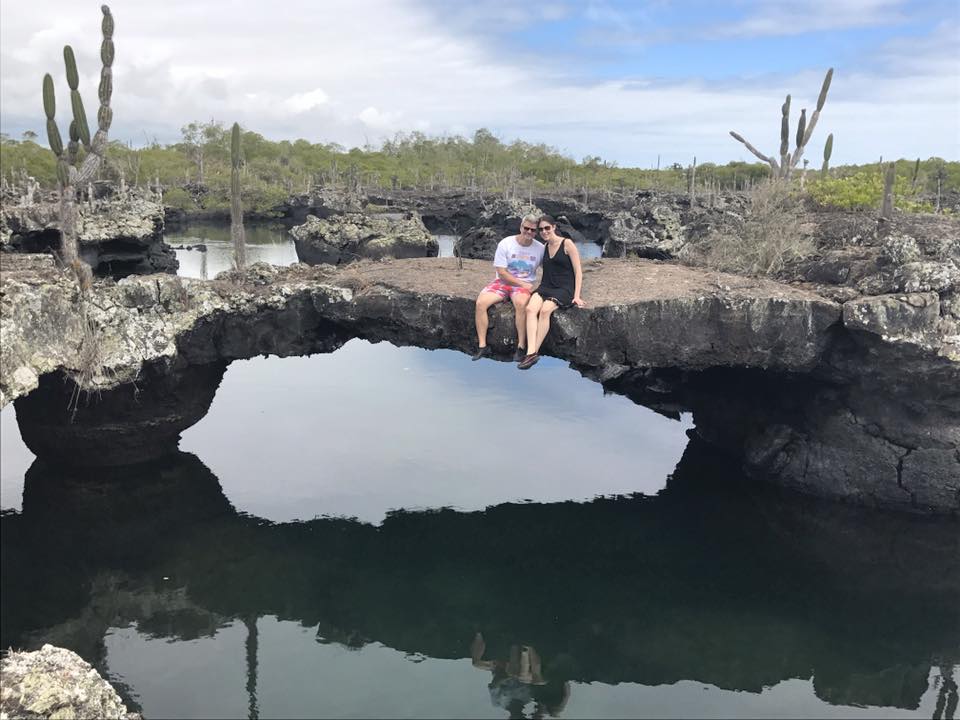
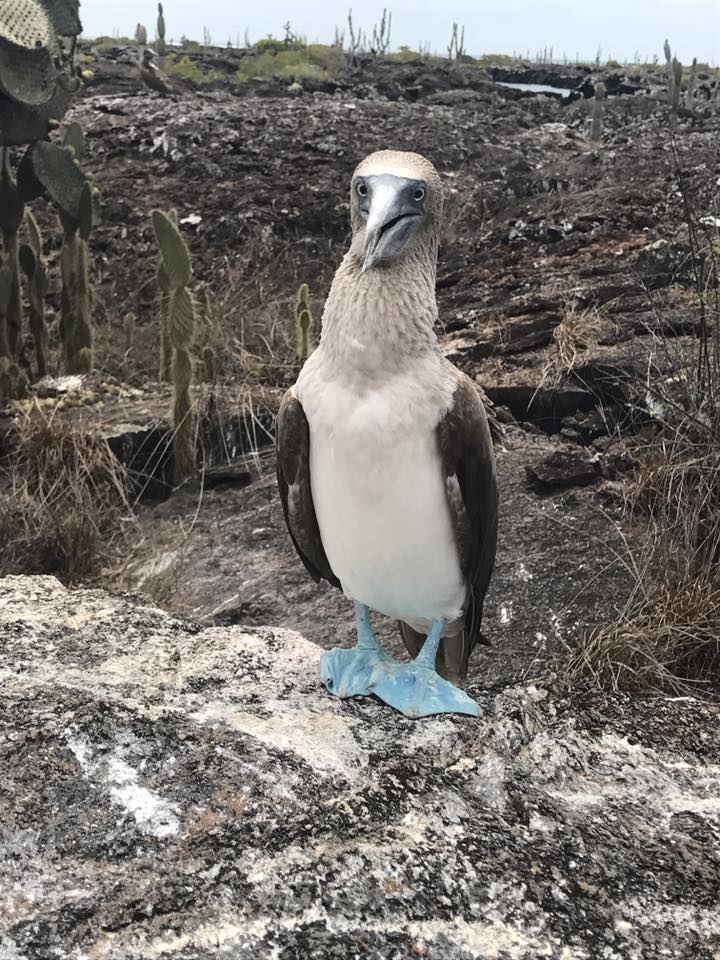
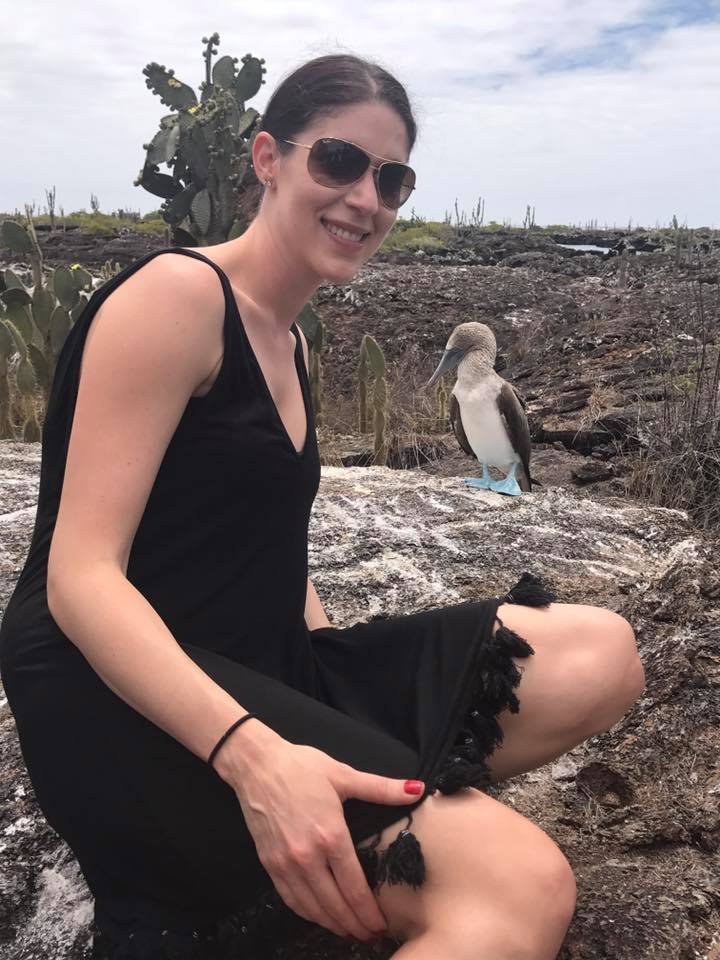
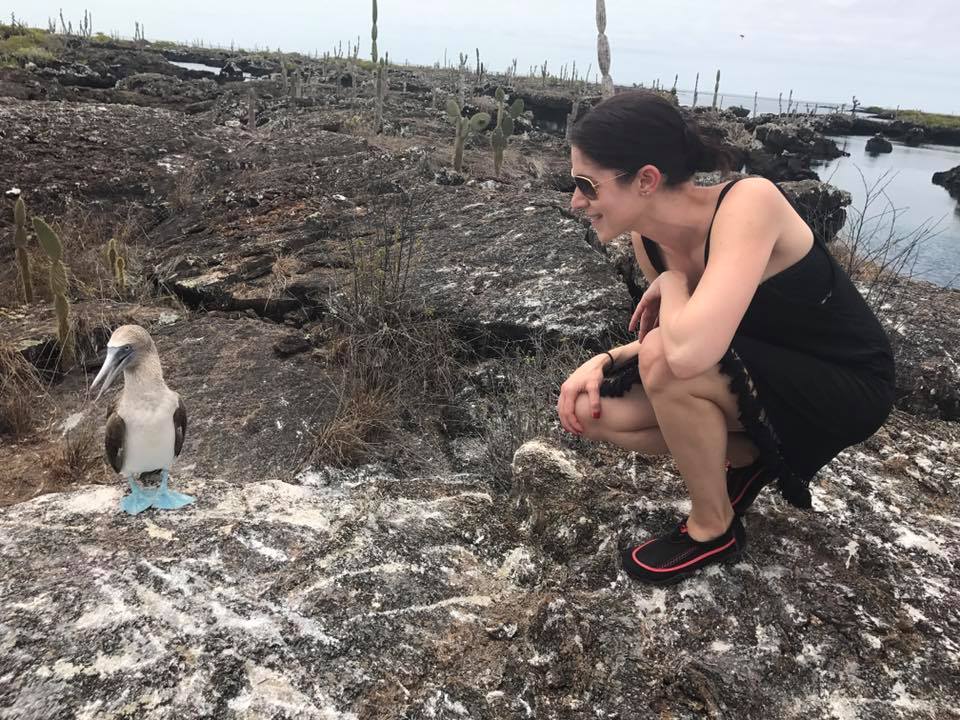
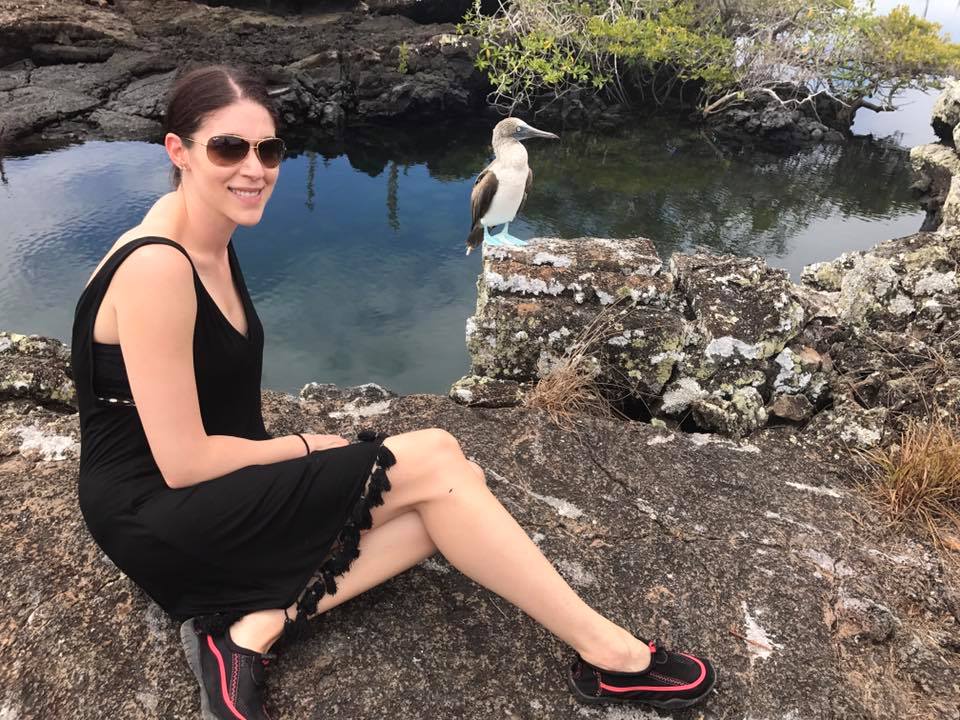 Once back on Isabela, I stopped by for a visit with my sea lion friend again.
Once back on Isabela, I stopped by for a visit with my sea lion friend again. 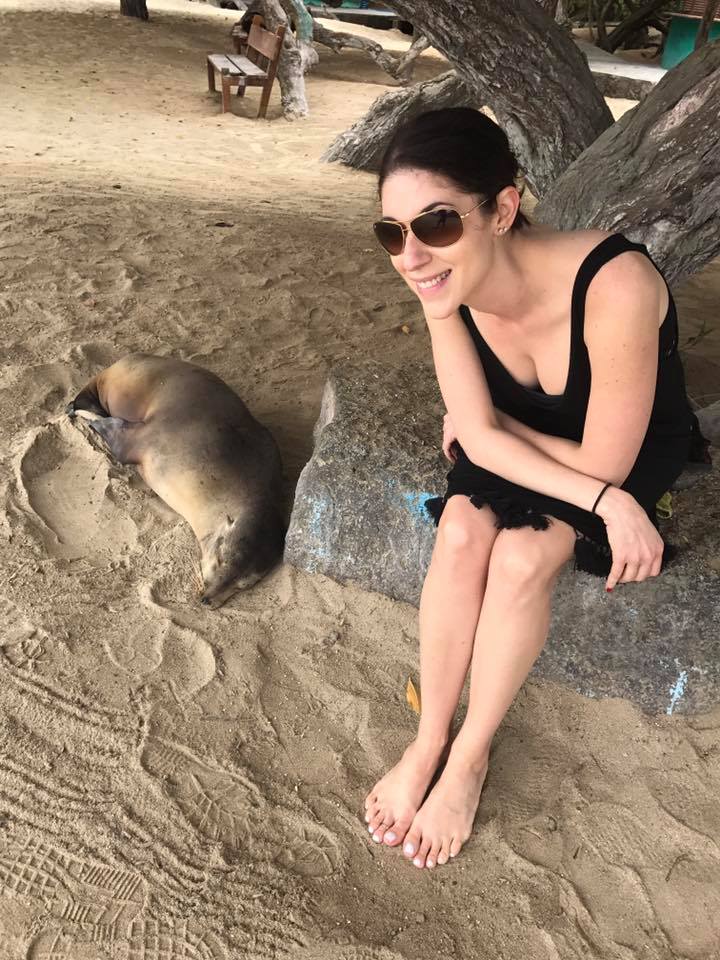 We had the rest of the afternoon free, so we decided to do some independent exploration. Every morning, we saw this bridge, and we wondered where it went, so we decided to find out.
We had the rest of the afternoon free, so we decided to do some independent exploration. Every morning, we saw this bridge, and we wondered where it went, so we decided to find out. The trail is about a mile long on pretty flat terrain. It is a scenic route that has two flamingo lagoons along the way. It also has some cute little rest areas.
The trail is about a mile long on pretty flat terrain. It is a scenic route that has two flamingo lagoons along the way. It also has some cute little rest areas.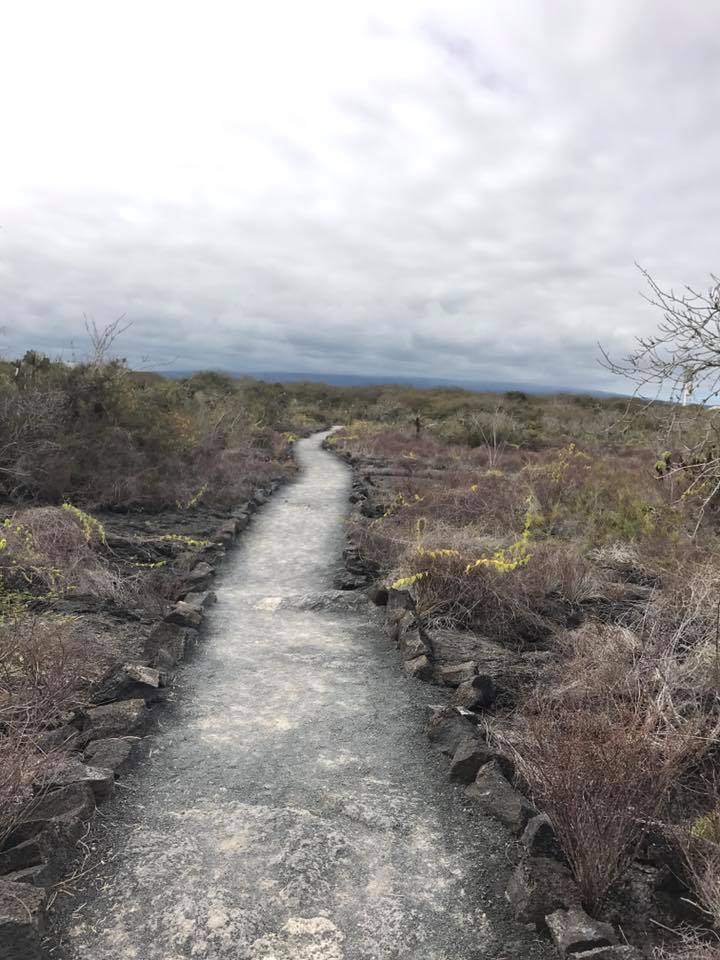

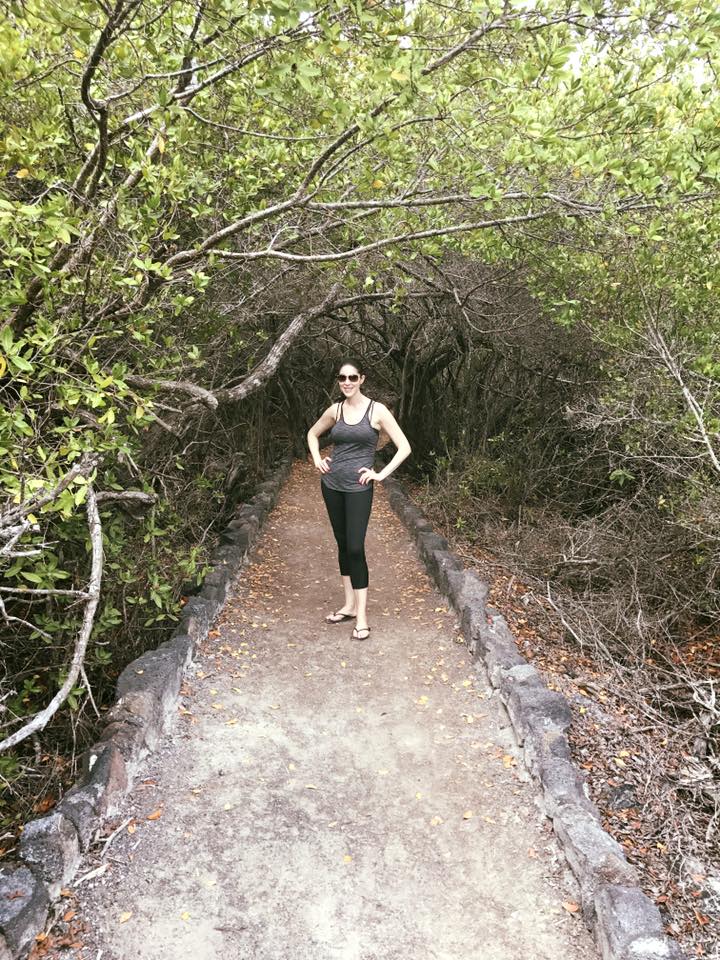
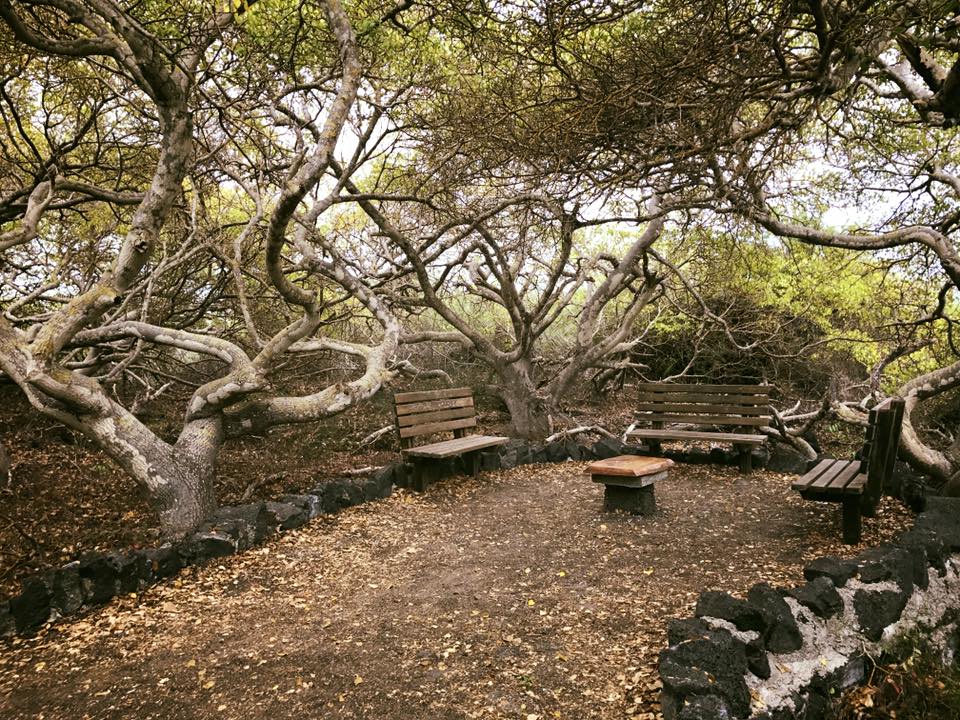 But, it is what is at the end of the trail that is the real treat- a giant tortoise breeding center!
But, it is what is at the end of the trail that is the real treat- a giant tortoise breeding center! And, in case you missed the first sign, there is this one here:
And, in case you missed the first sign, there is this one here: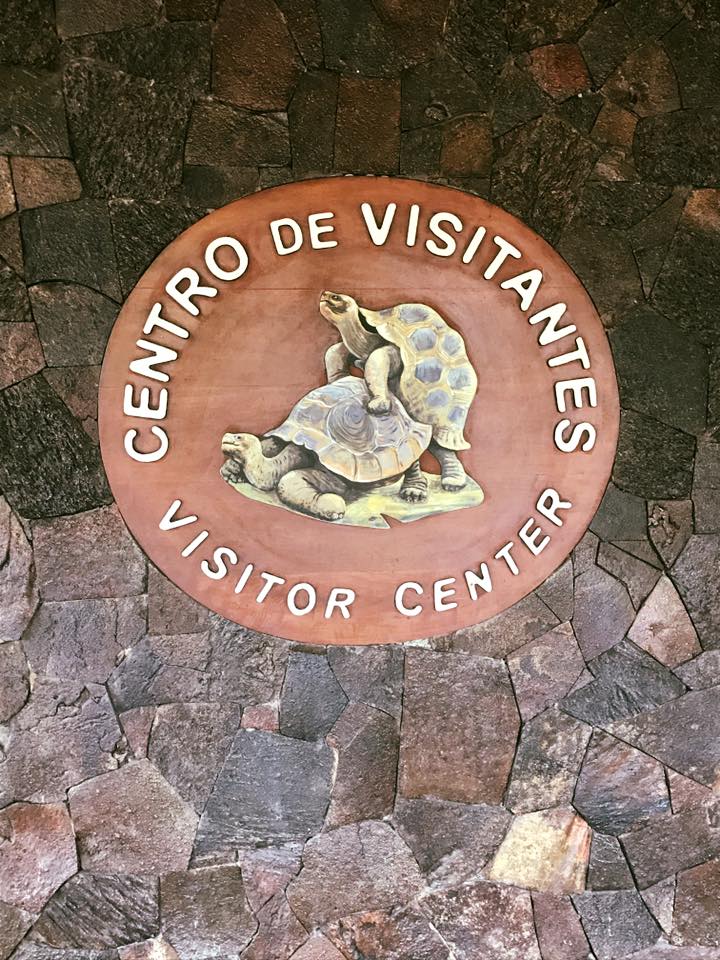
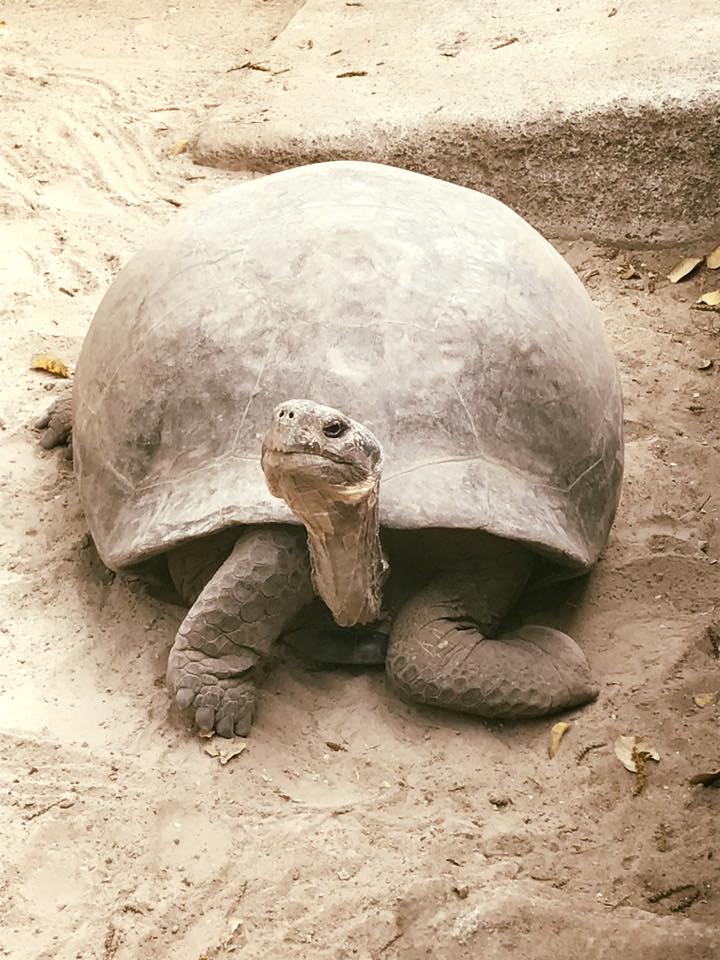
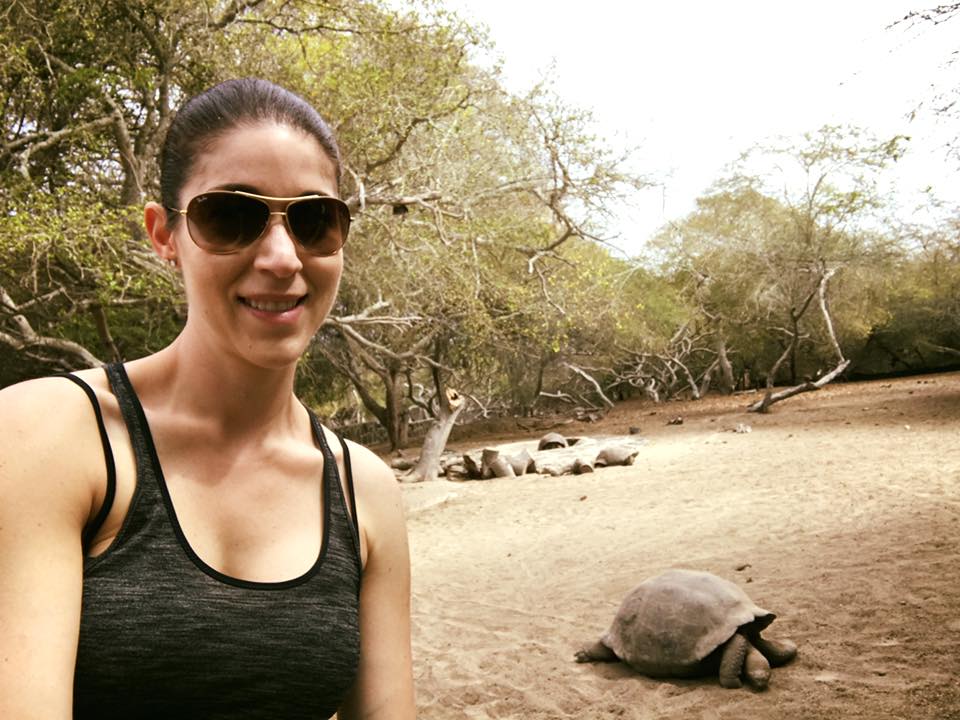
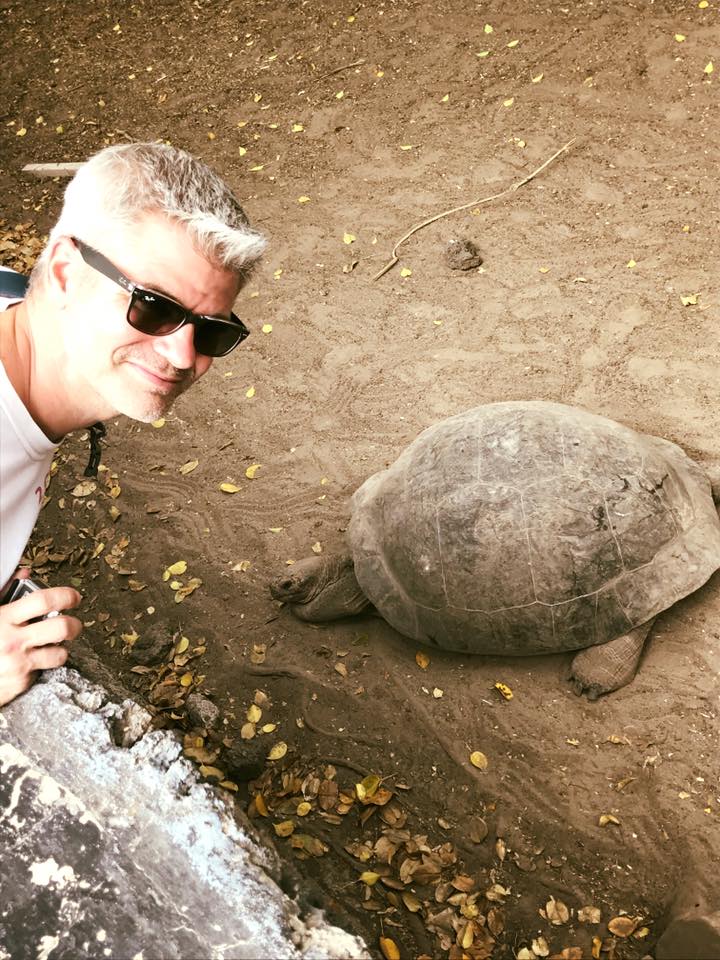 Honestly, we are glad we came here because there were hardly any people, it is not at all touristy, it is free, and there are several tortoises from all stages of life in different pens. Also, not to spoil it for you, but this breeding center was way bigger, had many more turtles, and was way more impressive than the Charles Darwin Research Station on Santa Cruz. Sorry, Charlie, but that’s the truth!
Honestly, we are glad we came here because there were hardly any people, it is not at all touristy, it is free, and there are several tortoises from all stages of life in different pens. Also, not to spoil it for you, but this breeding center was way bigger, had many more turtles, and was way more impressive than the Charles Darwin Research Station on Santa Cruz. Sorry, Charlie, but that’s the truth!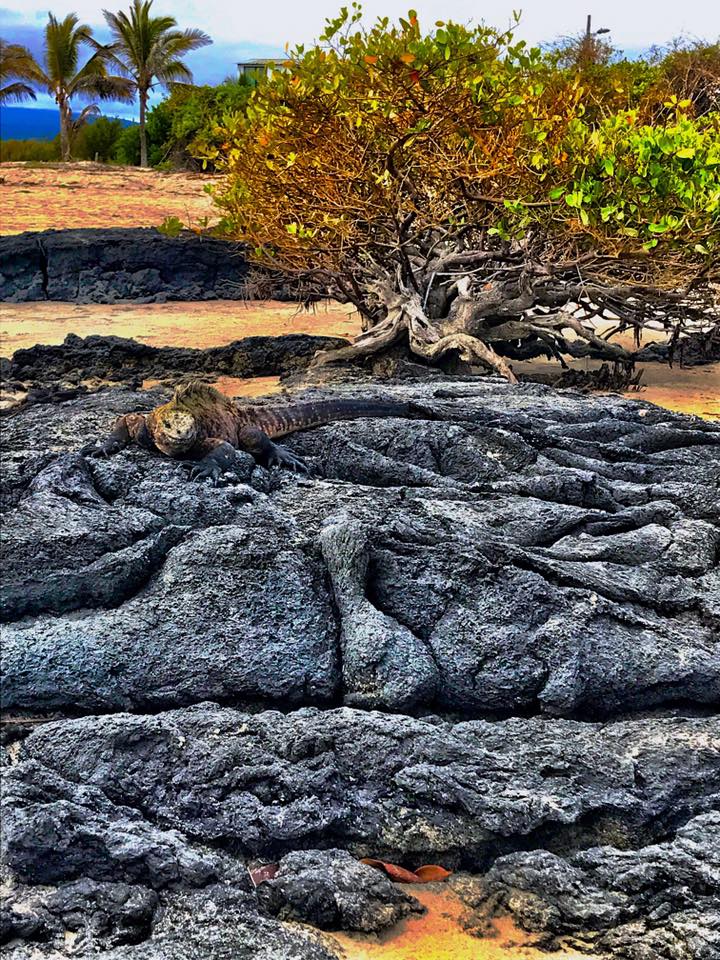
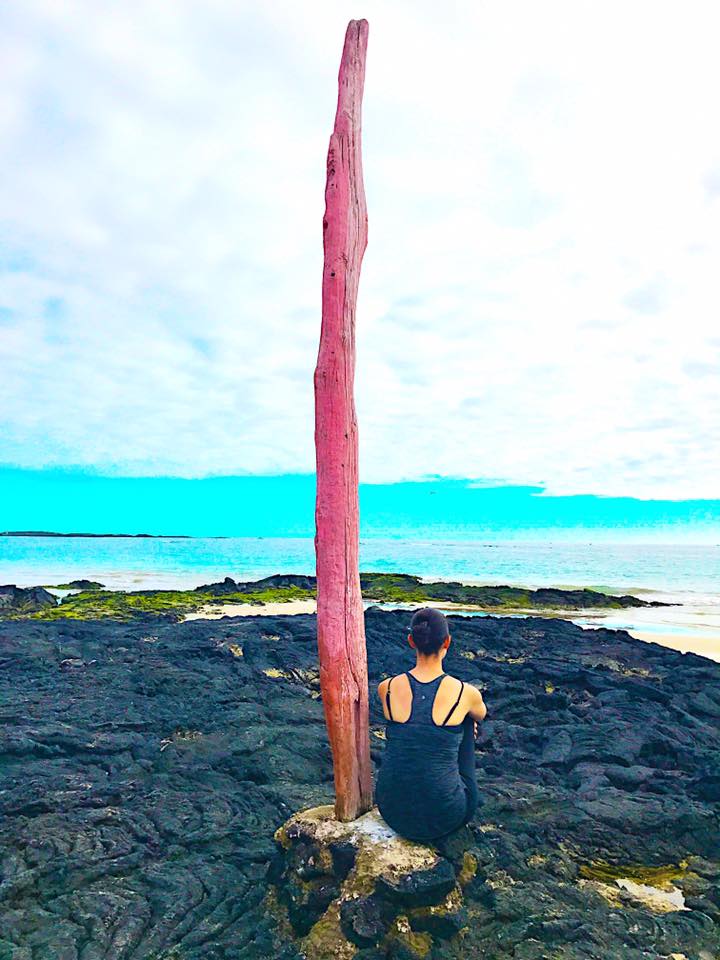 Day 3: Today’s itinerary called for a hike up Sierra Negra Volcano. You know, prior to this day, I was complaining to Chad that I did not think we were getting enough exercise on this trip; and then the volcano day arrived, and I shut up. For the rest of the trip.
Day 3: Today’s itinerary called for a hike up Sierra Negra Volcano. You know, prior to this day, I was complaining to Chad that I did not think we were getting enough exercise on this trip; and then the volcano day arrived, and I shut up. For the rest of the trip.
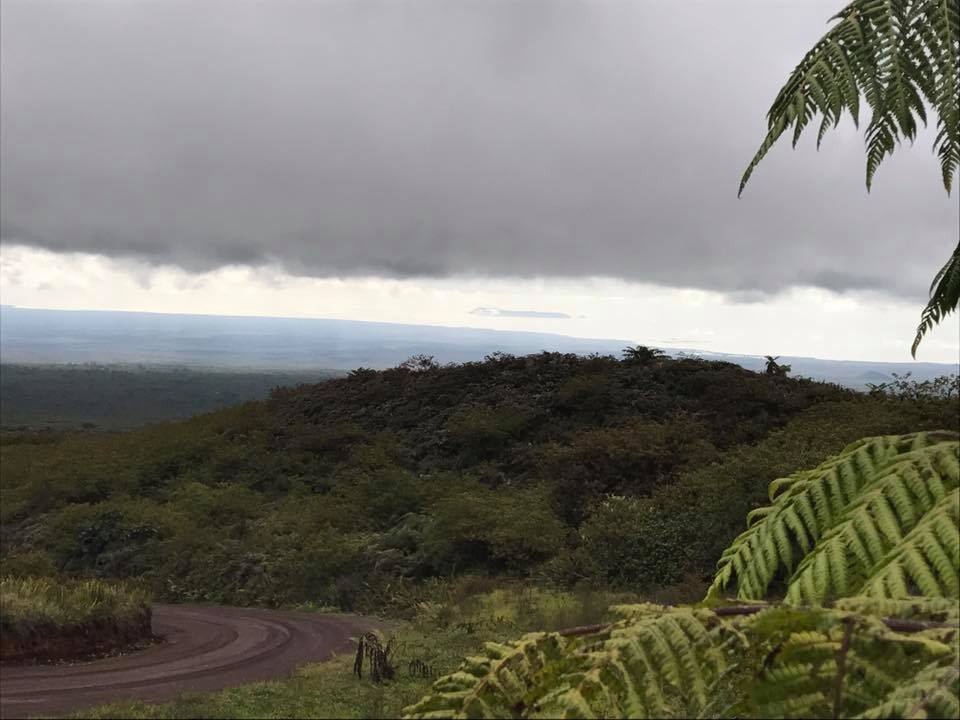
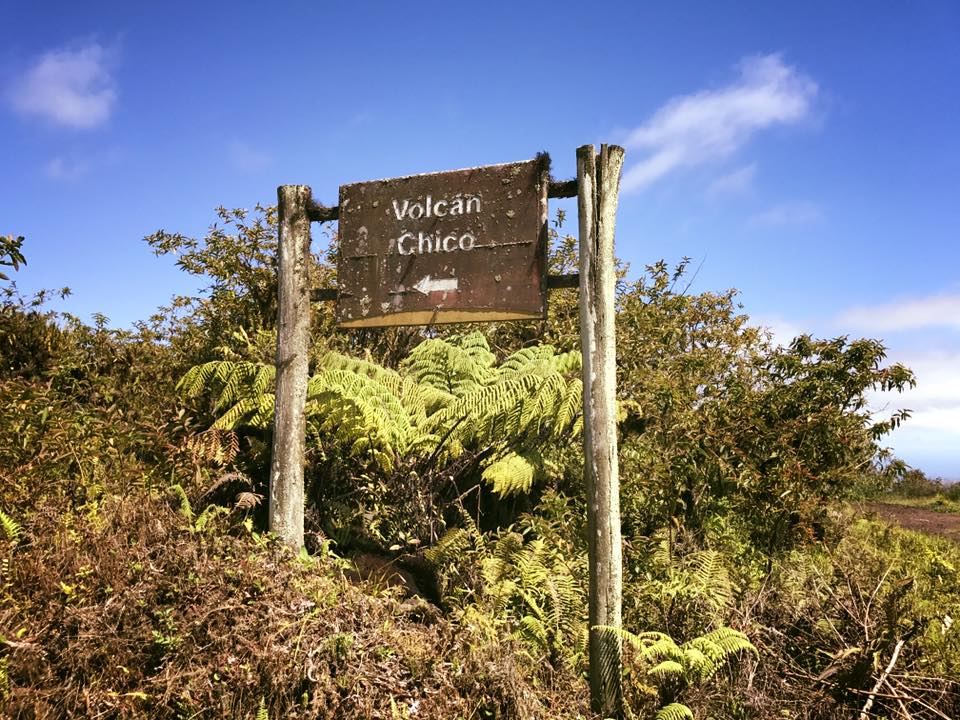 Do not be deceived by the start of this trail. You hike on a road like this for about two hours. Not so bad, right? Looks kind of flat. See how our guide is dressed? I was like, that’s a little over-kill. Then, about half way through, I understood. You are on the equator. You need a hat for this. And about a ton of sunscreen (like all over your face and legs; any exposed part really). And SPF lip balm. Or like a face mask, really.
Do not be deceived by the start of this trail. You hike on a road like this for about two hours. Not so bad, right? Looks kind of flat. See how our guide is dressed? I was like, that’s a little over-kill. Then, about half way through, I understood. You are on the equator. You need a hat for this. And about a ton of sunscreen (like all over your face and legs; any exposed part really). And SPF lip balm. Or like a face mask, really.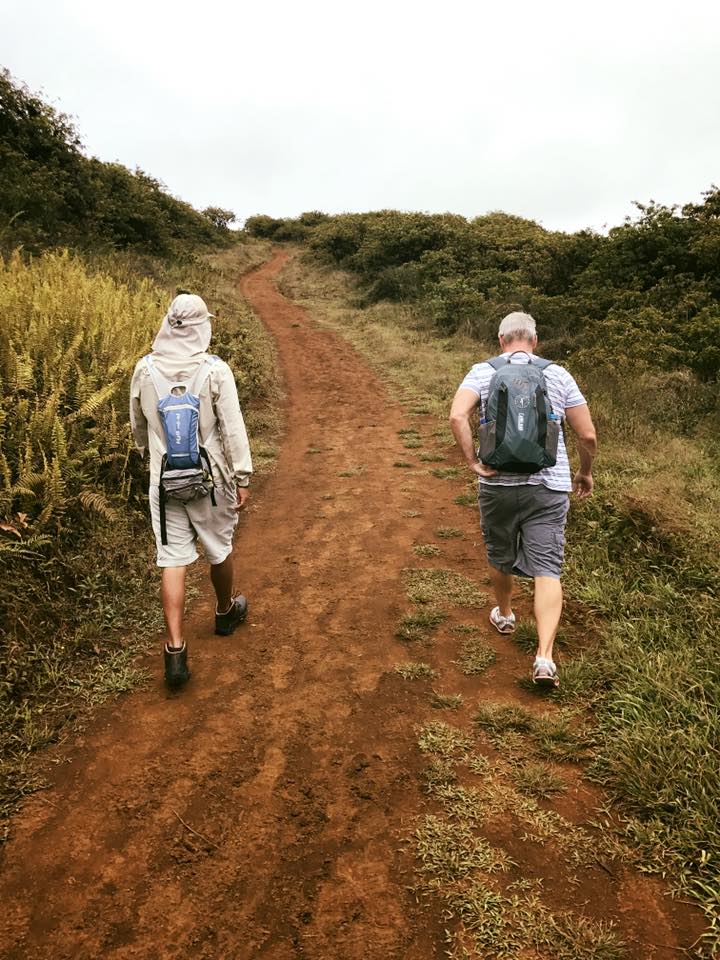 Plus there are pretty flowers along the way that grow wildly:
Plus there are pretty flowers along the way that grow wildly:  And fresh guava that you can eat:
And fresh guava that you can eat: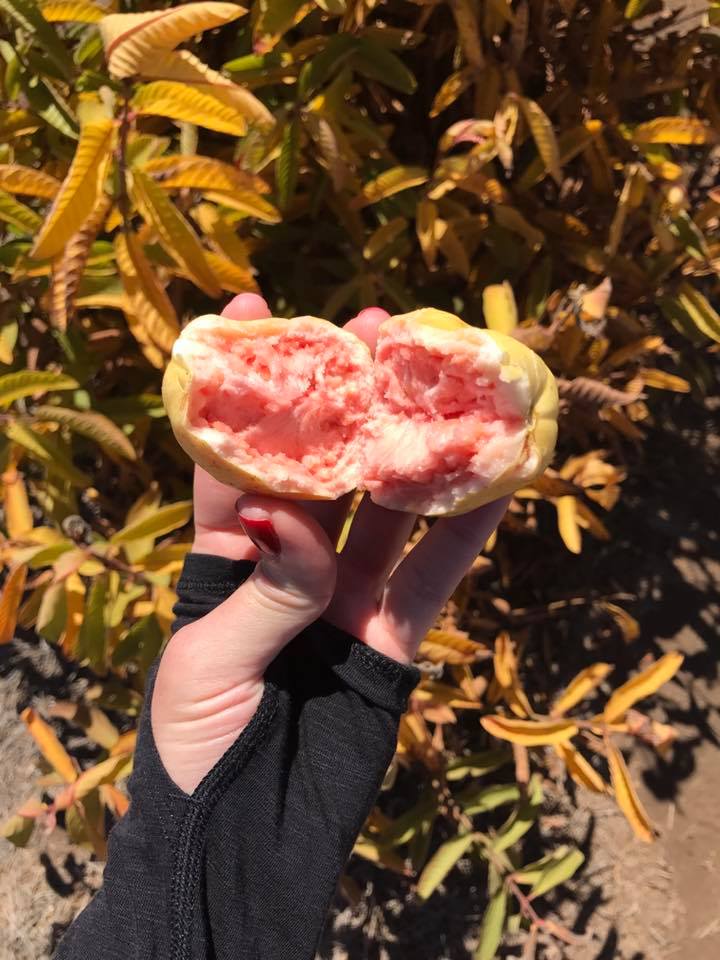 After about two hours, you are rewarded with this view. But, this is about half way. You still have to walk around the rim.
After about two hours, you are rewarded with this view. But, this is about half way. You still have to walk around the rim. 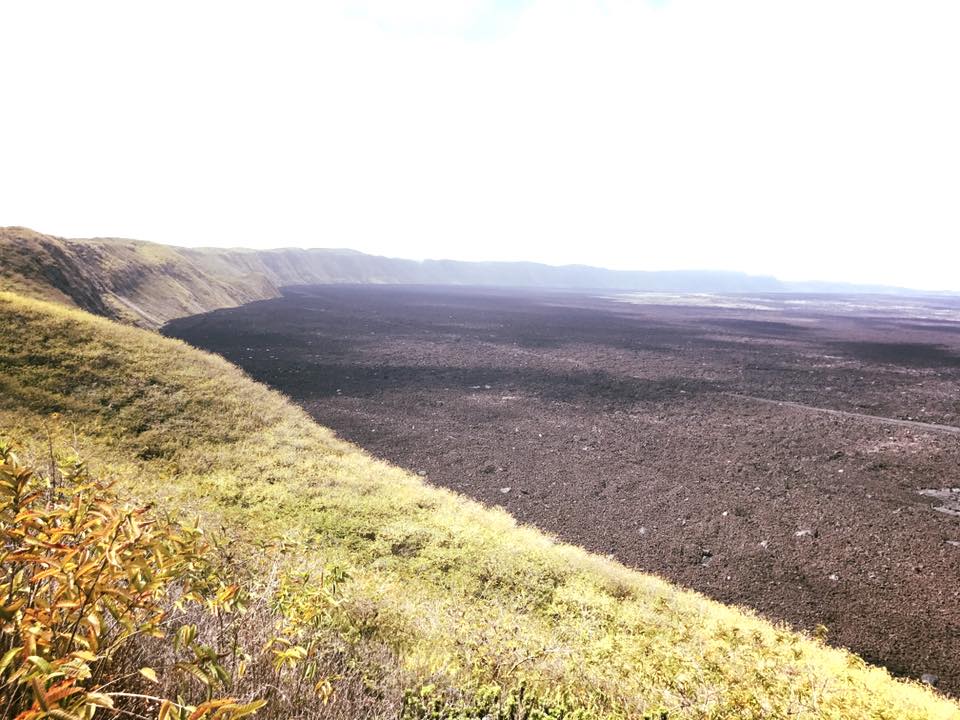
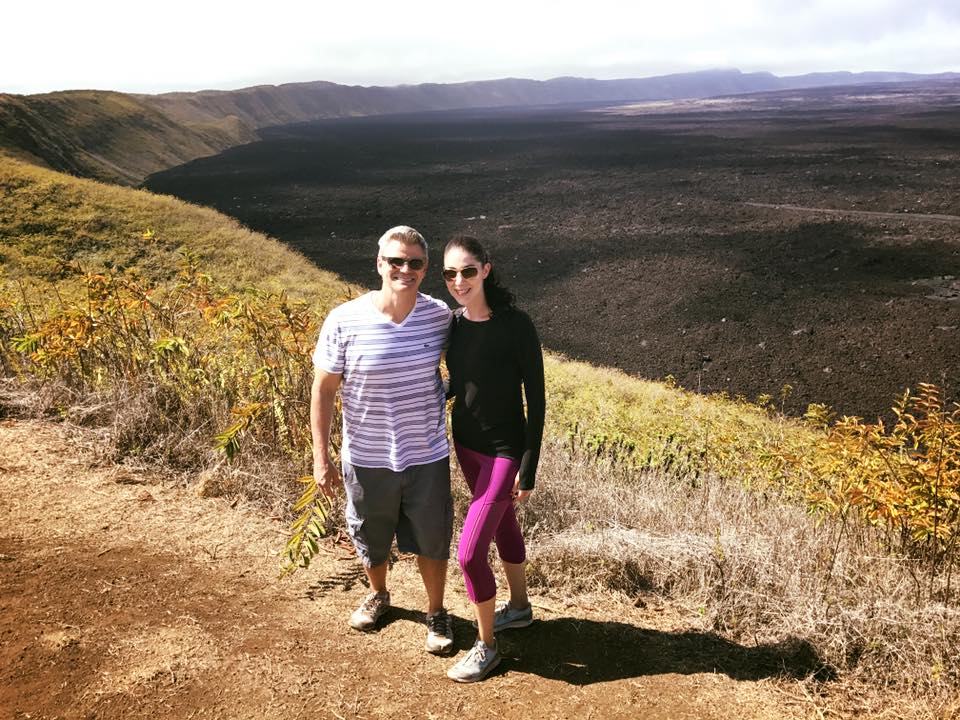
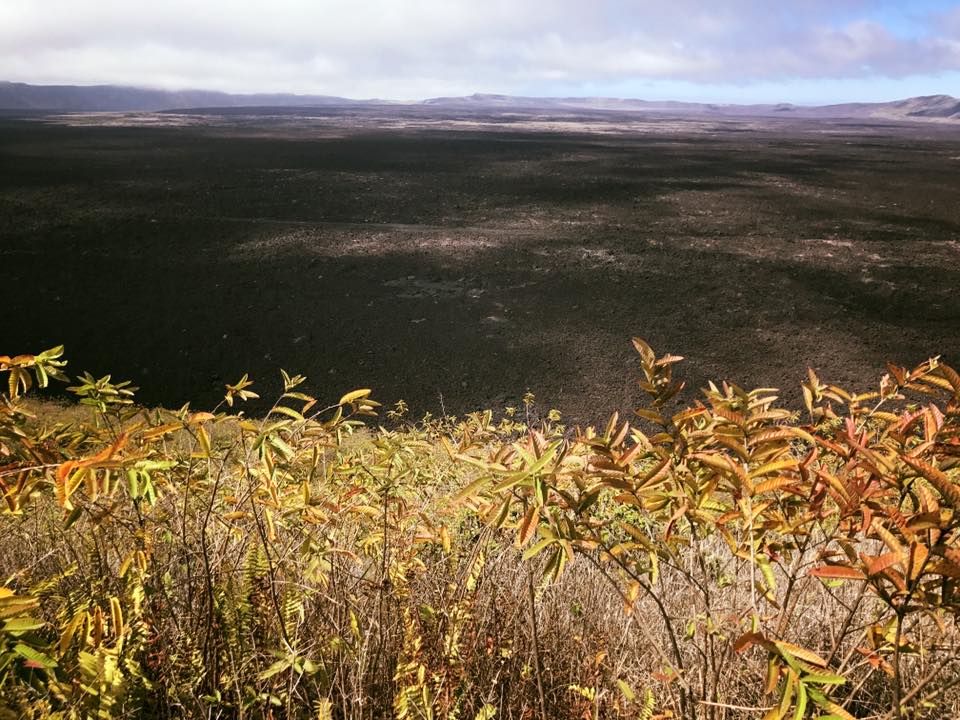
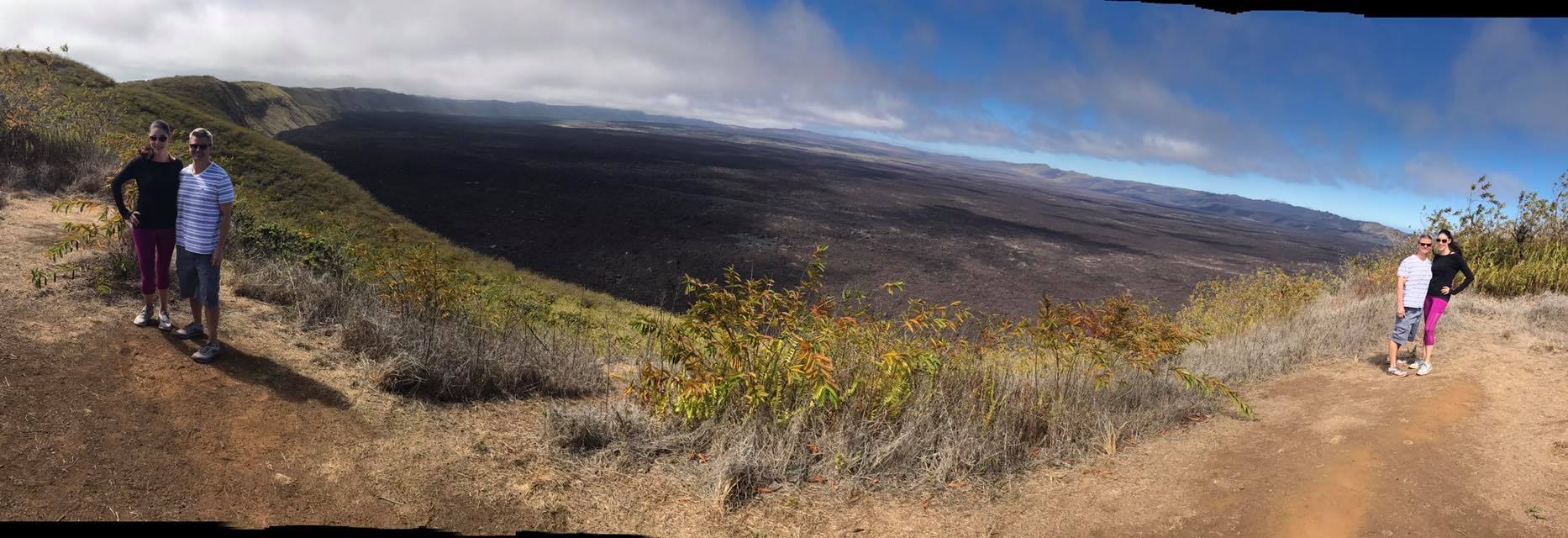
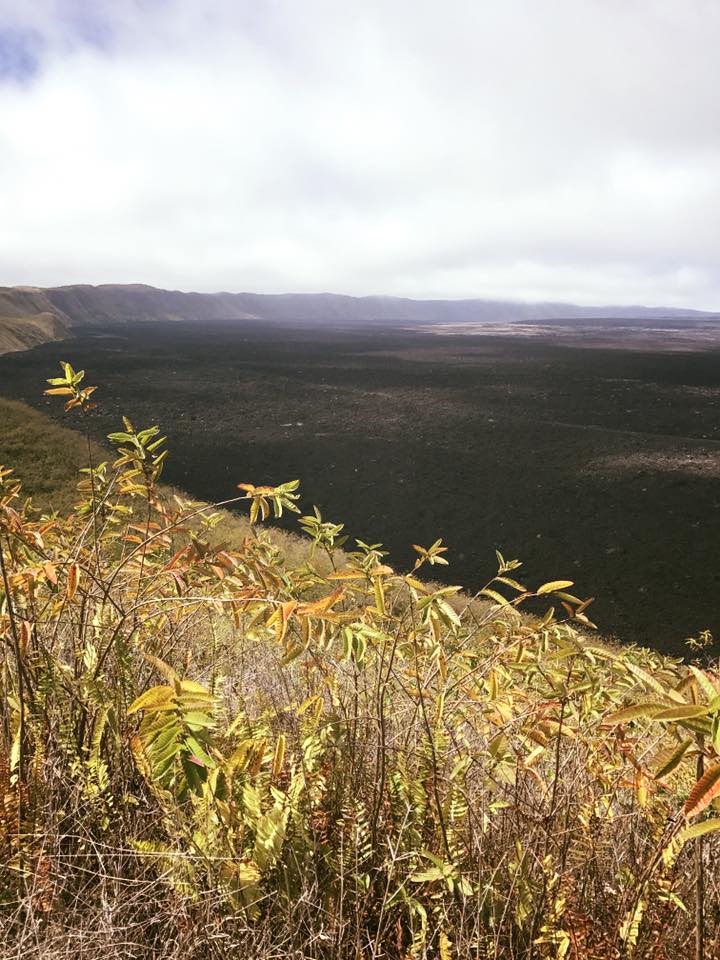
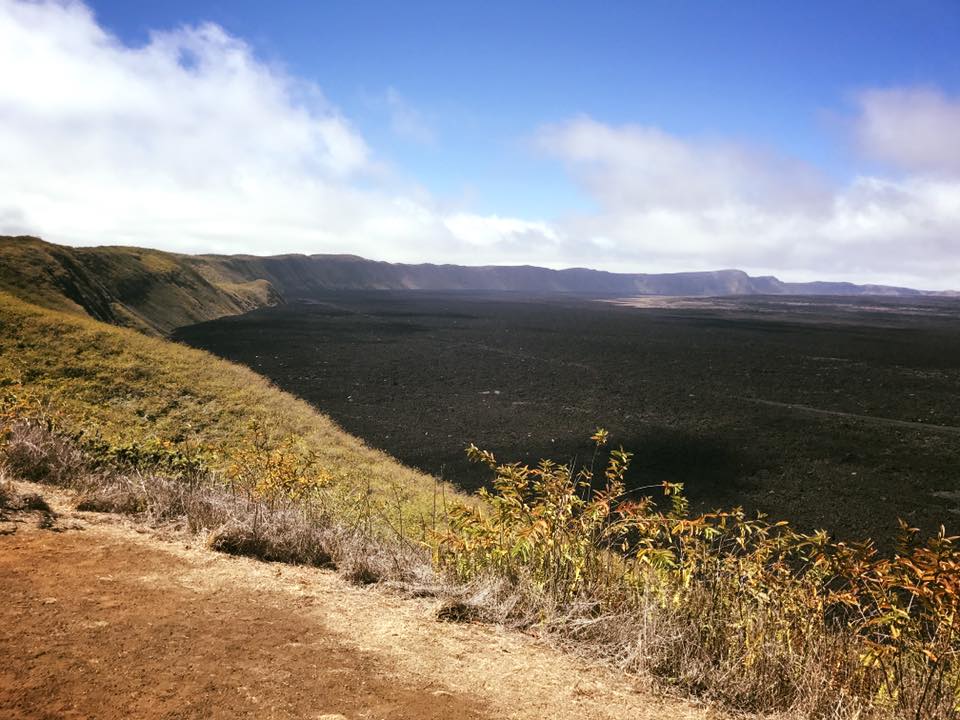 Rim walking:
Rim walking: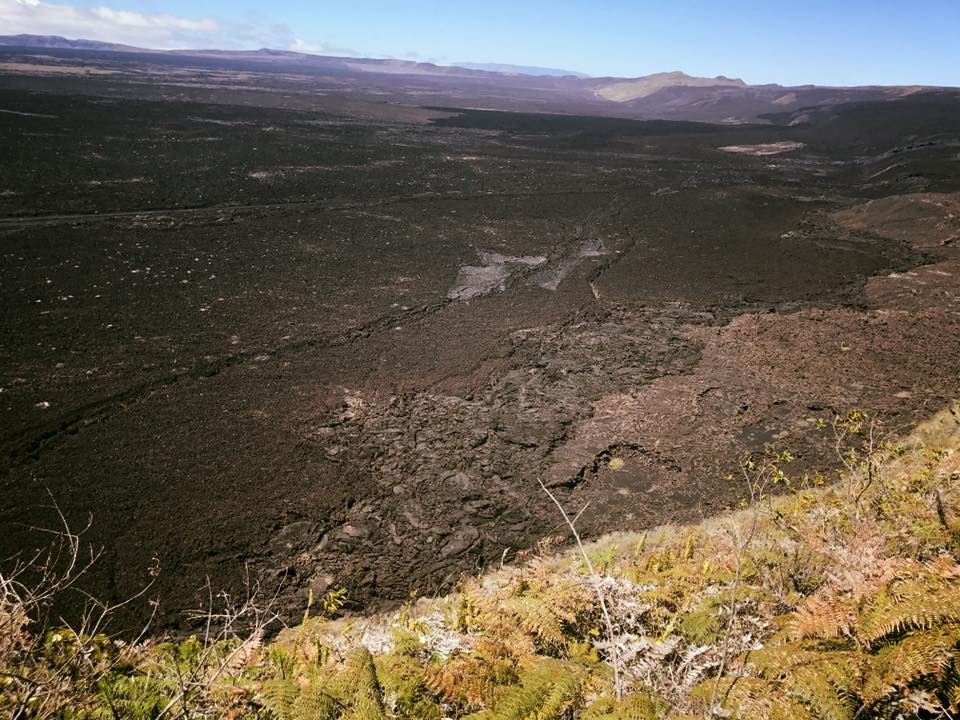 This was a good time to take a little reflection break: Stunning views with almost no other hikers, it was so quiet and peaceful.
This was a good time to take a little reflection break: Stunning views with almost no other hikers, it was so quiet and peaceful. 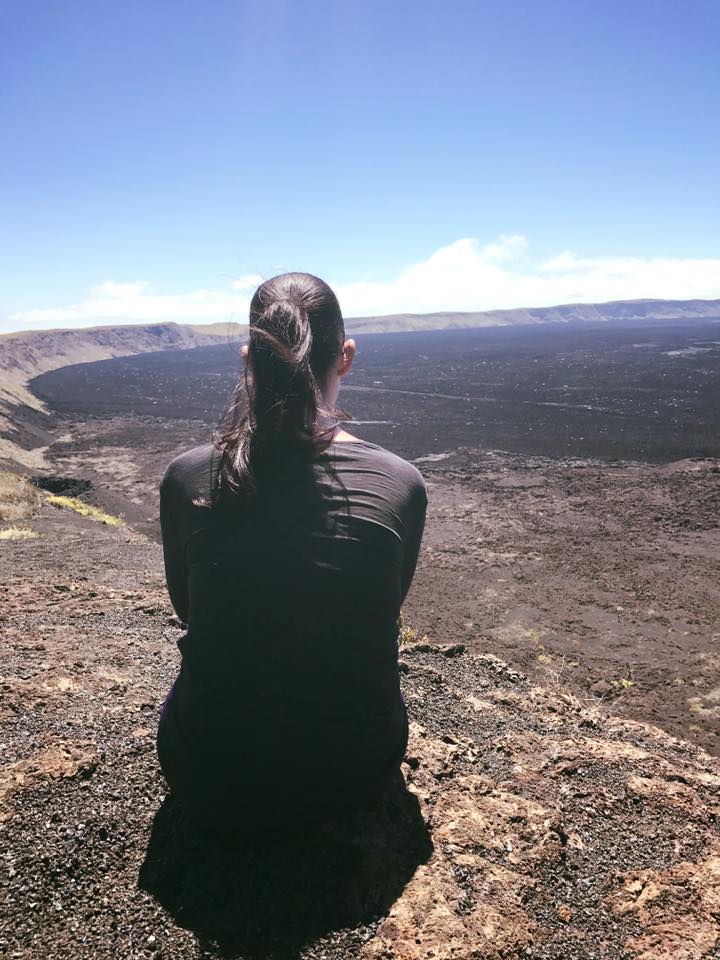 Plus, about a million of these are in my shoes:
Plus, about a million of these are in my shoes: 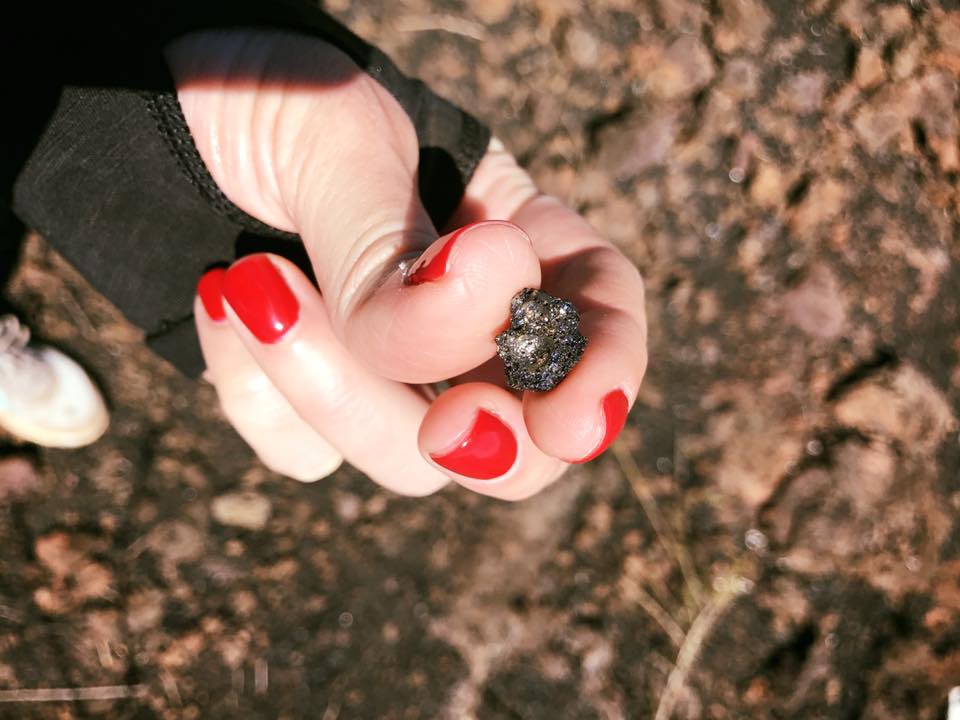 You start to worry when you see the bones because at this point, you feel like you may die, too.
You start to worry when you see the bones because at this point, you feel like you may die, too. 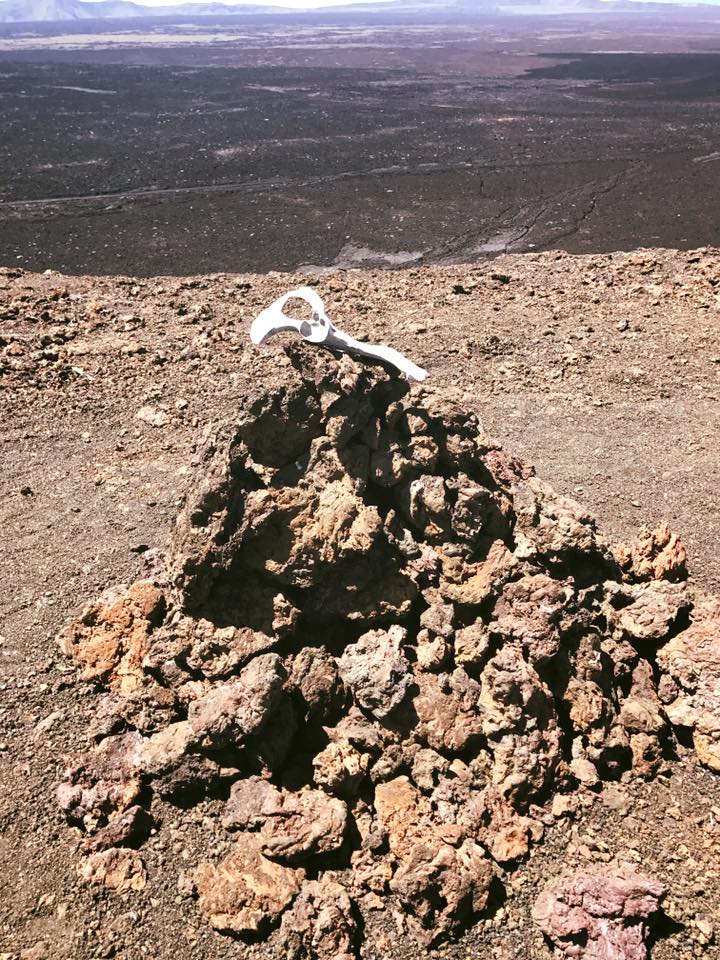 But, as the sign reminds you, you still got more climbing to do:
But, as the sign reminds you, you still got more climbing to do: 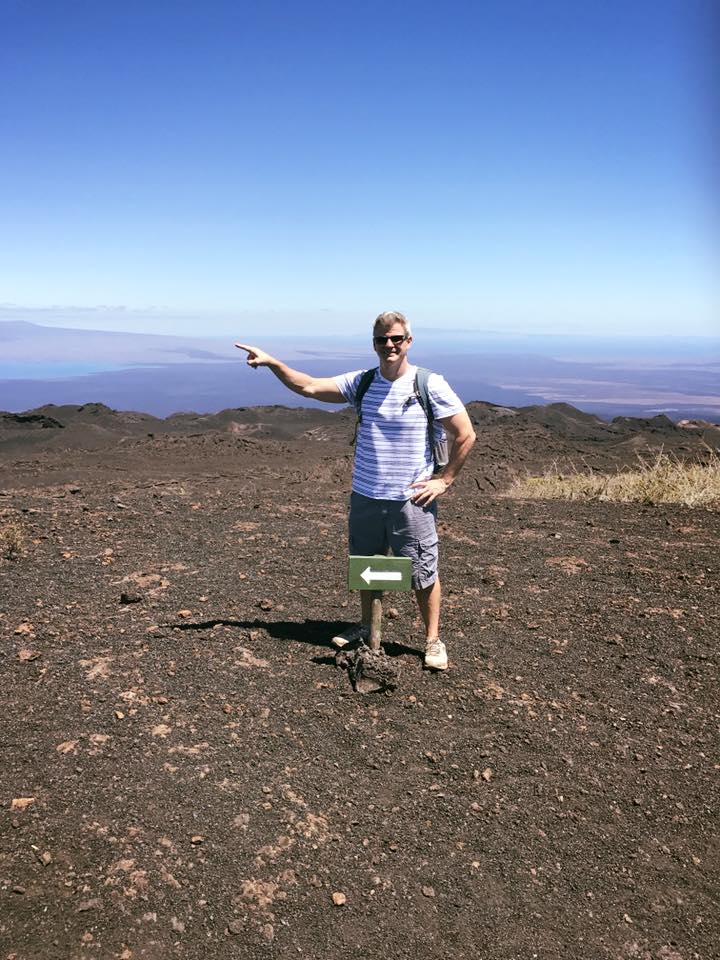
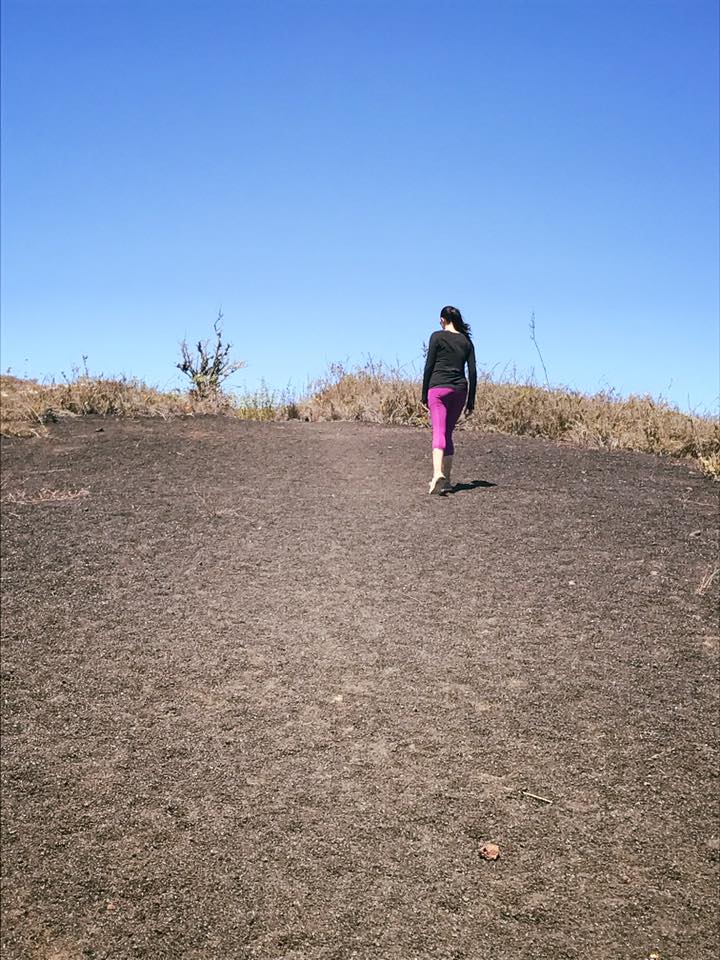
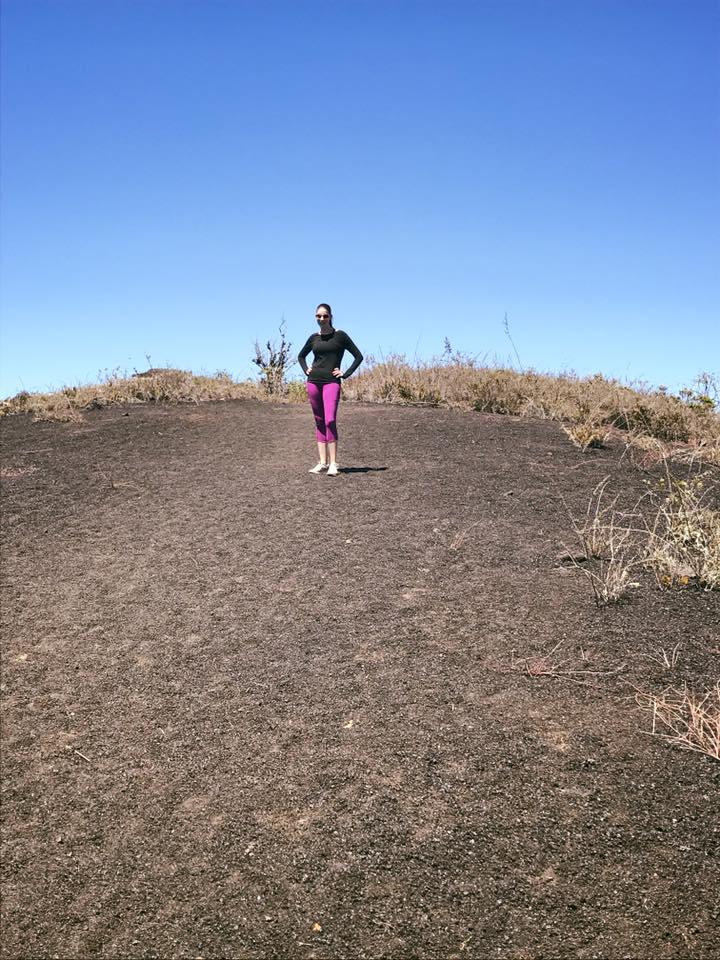
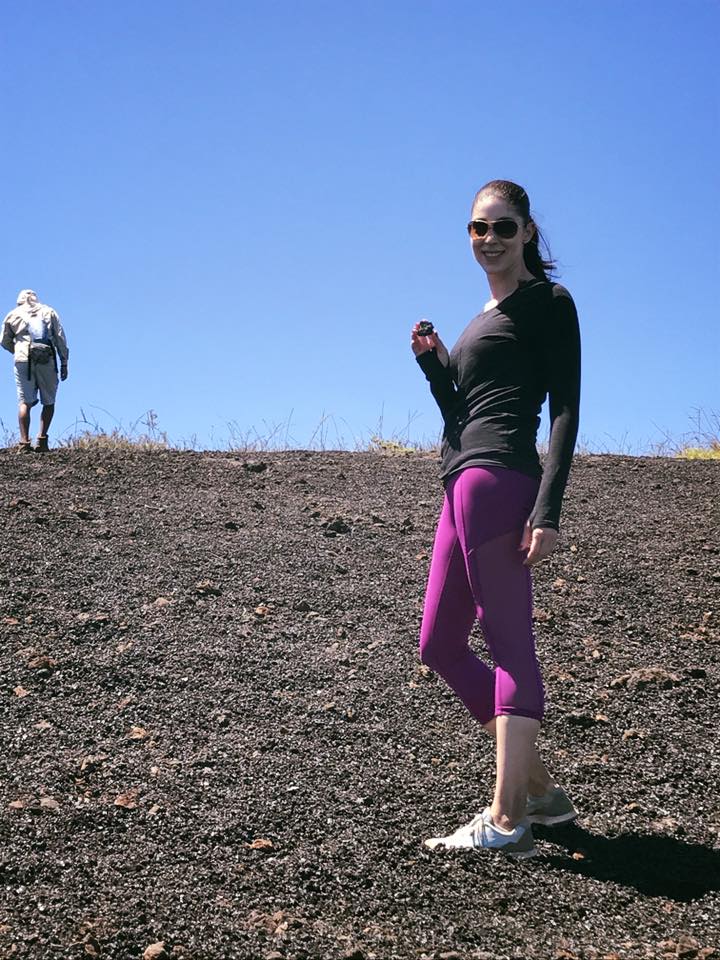 See the faint green back there. Well, that is where we got our first view up top after two stinking hours of climbing. Look at us now!
See the faint green back there. Well, that is where we got our first view up top after two stinking hours of climbing. Look at us now! 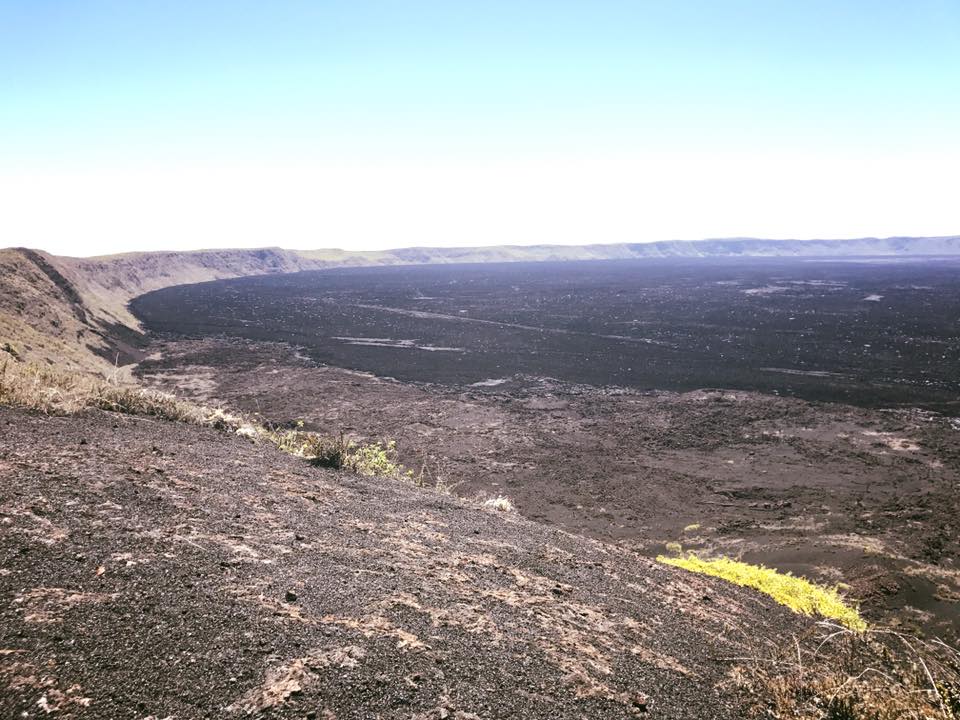
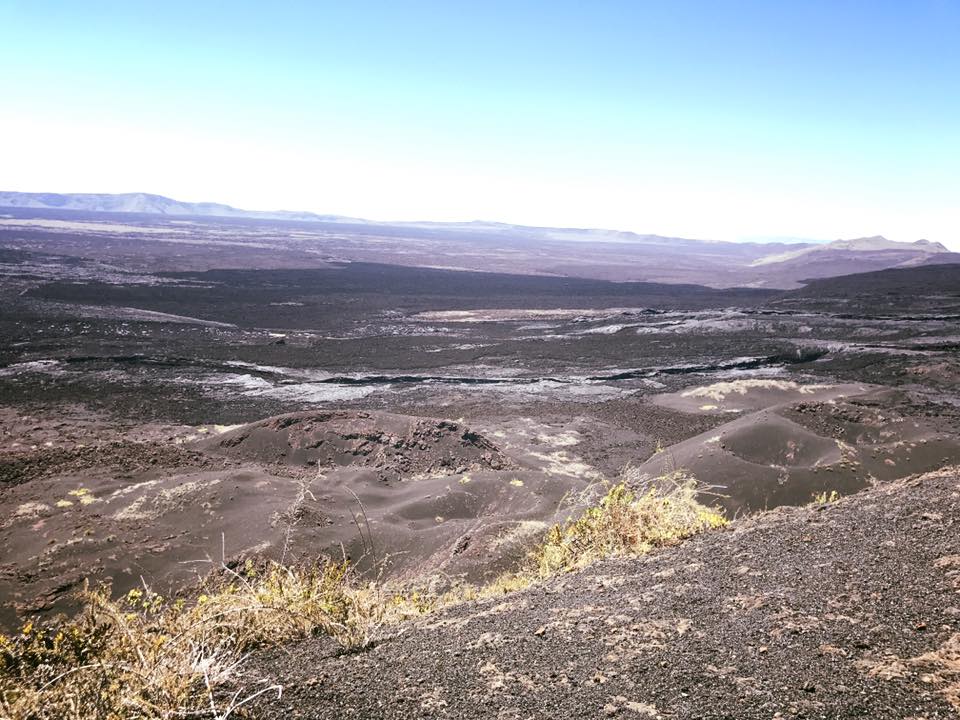
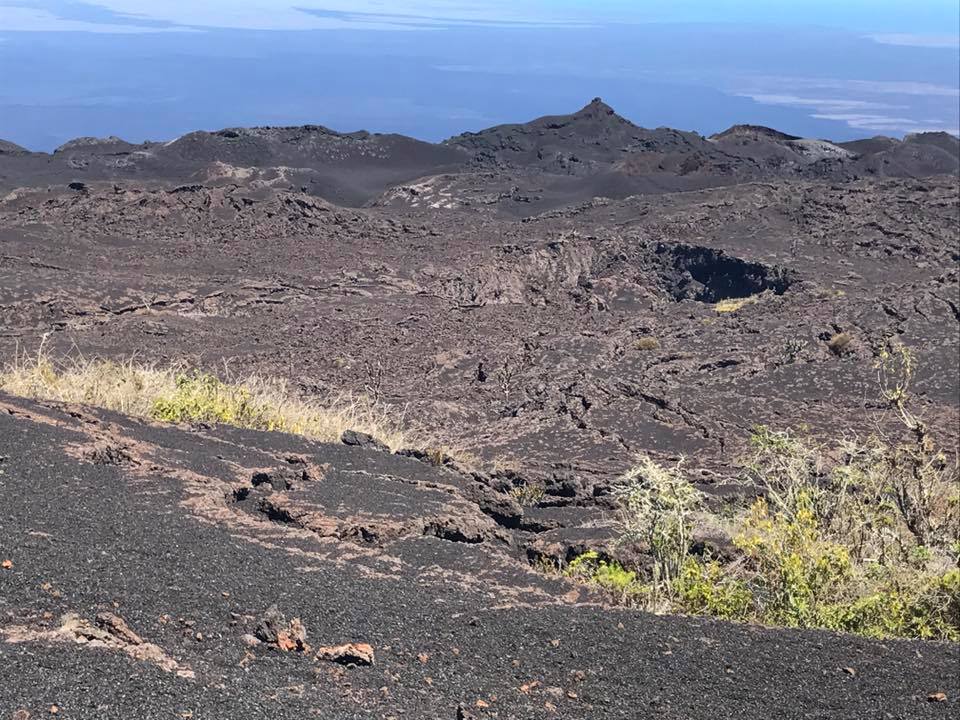
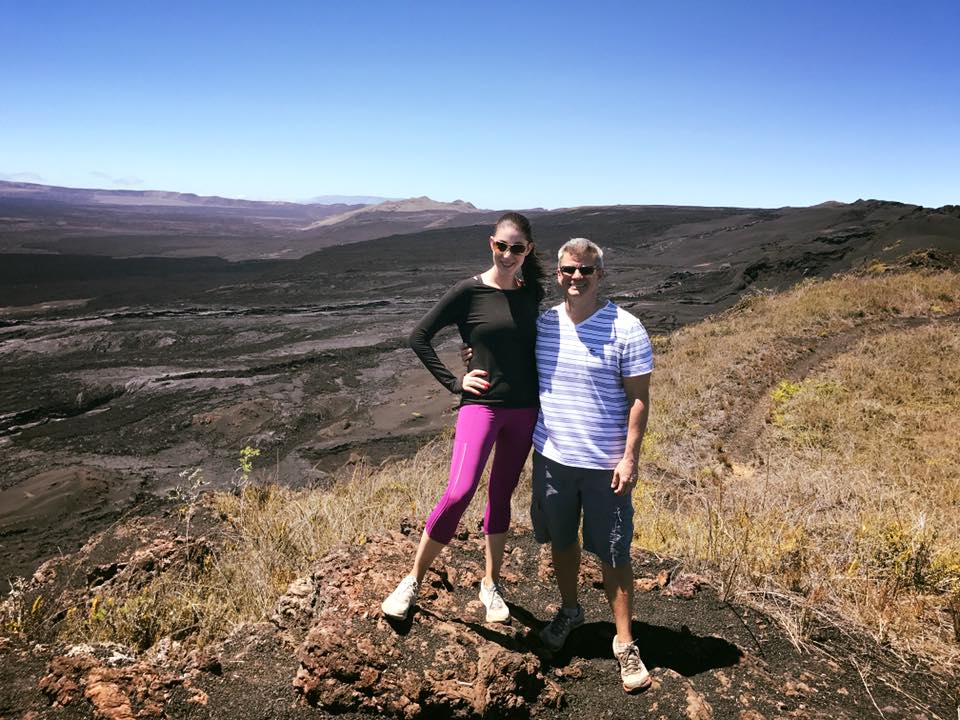
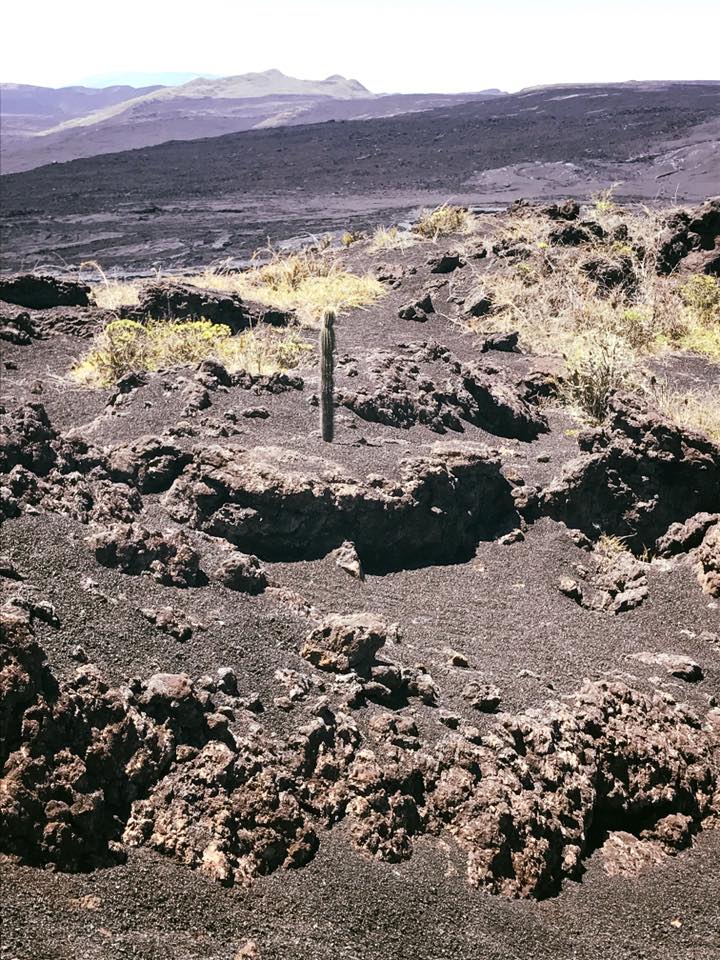
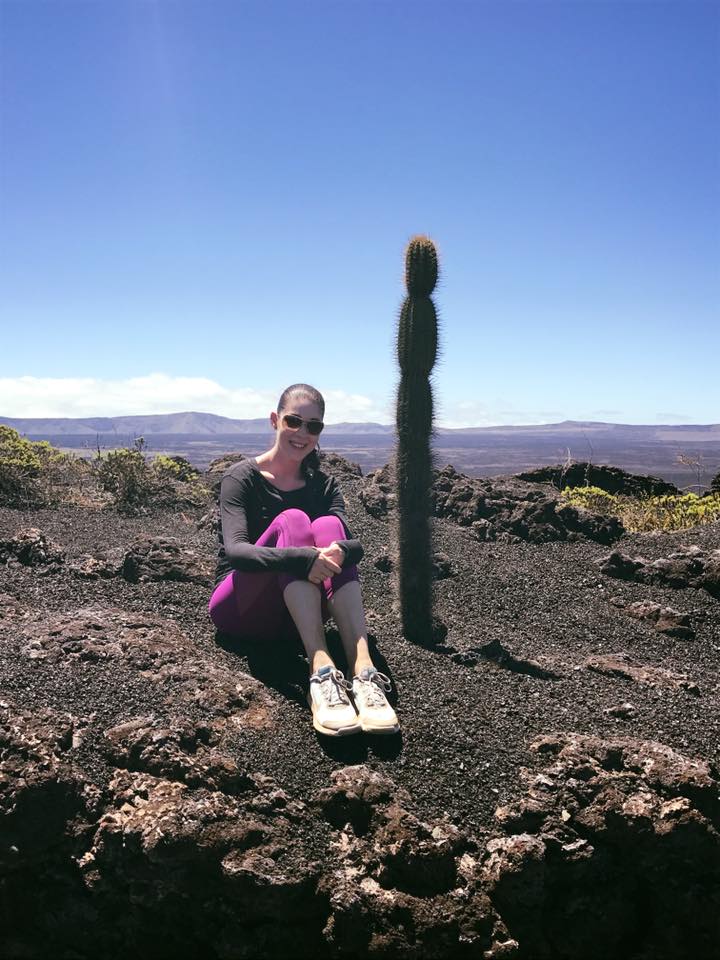 At long last, we made it to the top of the easier route. This is where Internet comes from!! Just kidding. Kind of. These are GPS systems and seismographs.
At long last, we made it to the top of the easier route. This is where Internet comes from!! Just kidding. Kind of. These are GPS systems and seismographs. 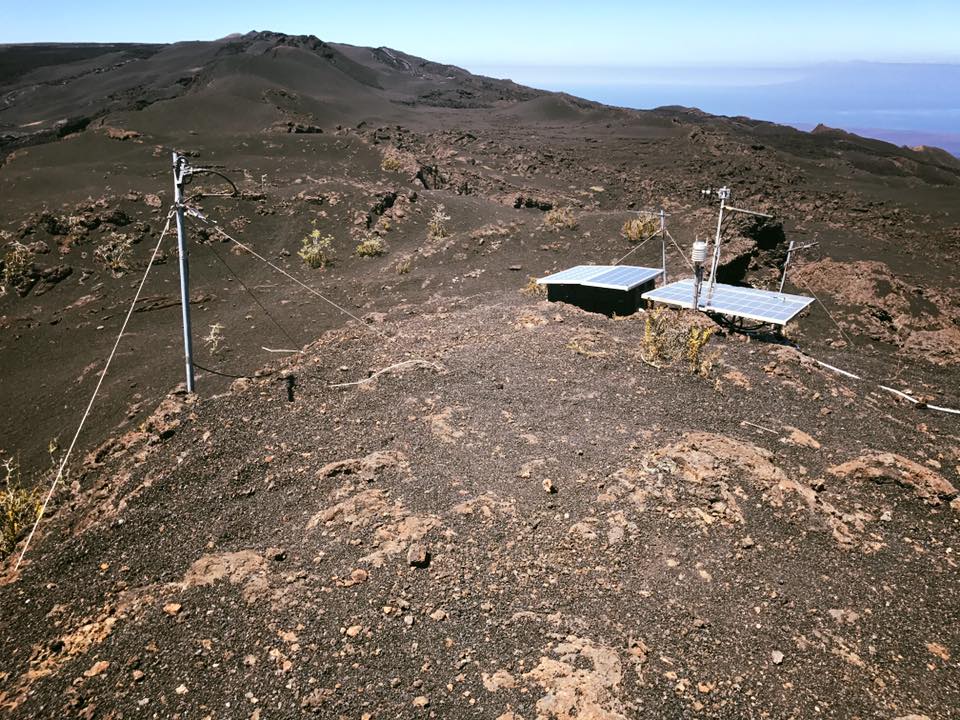
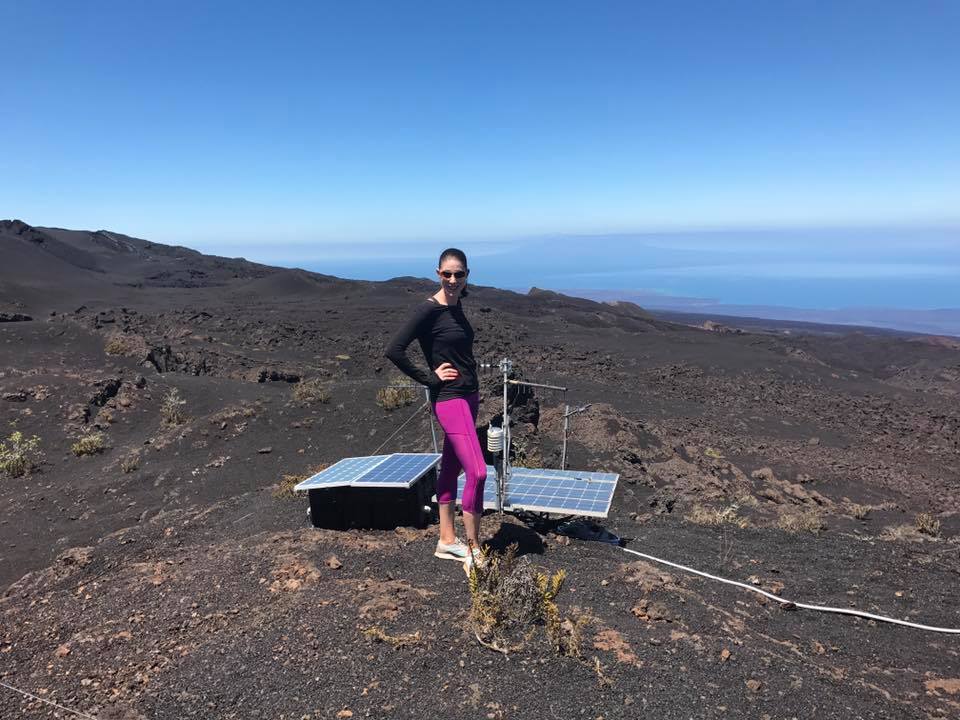 Okay, time to trek back down!
Okay, time to trek back down!
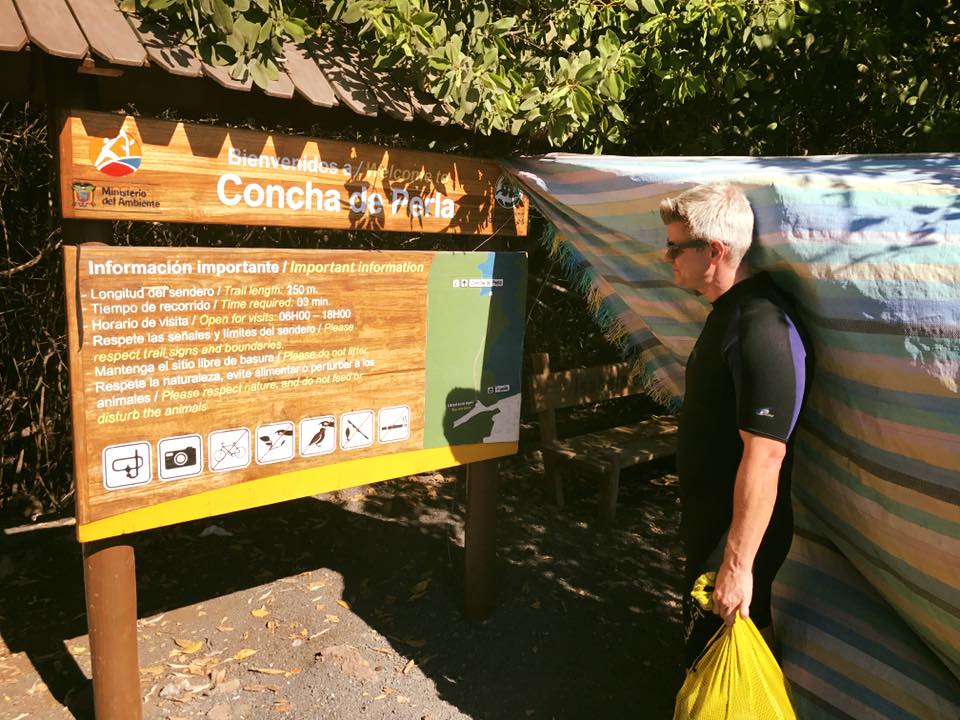
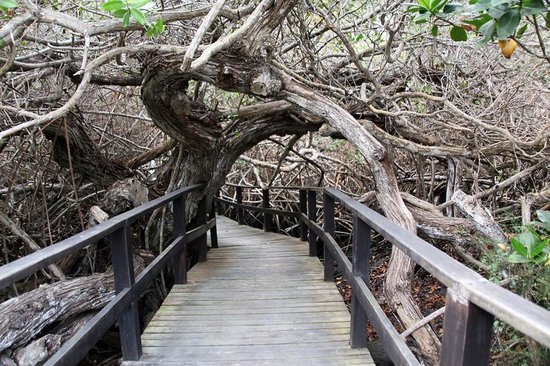
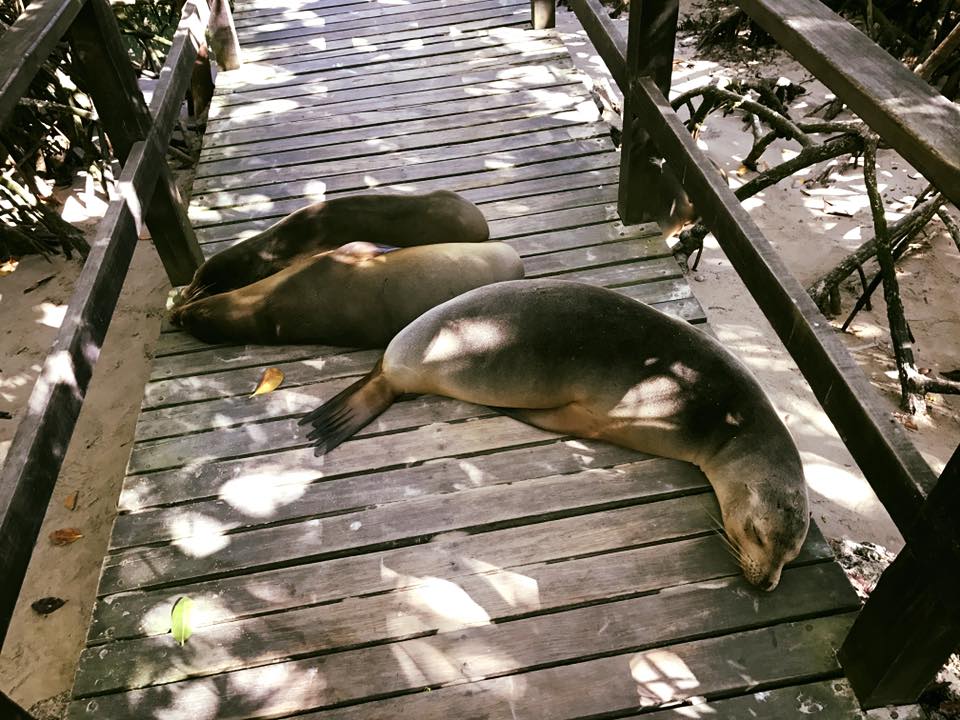
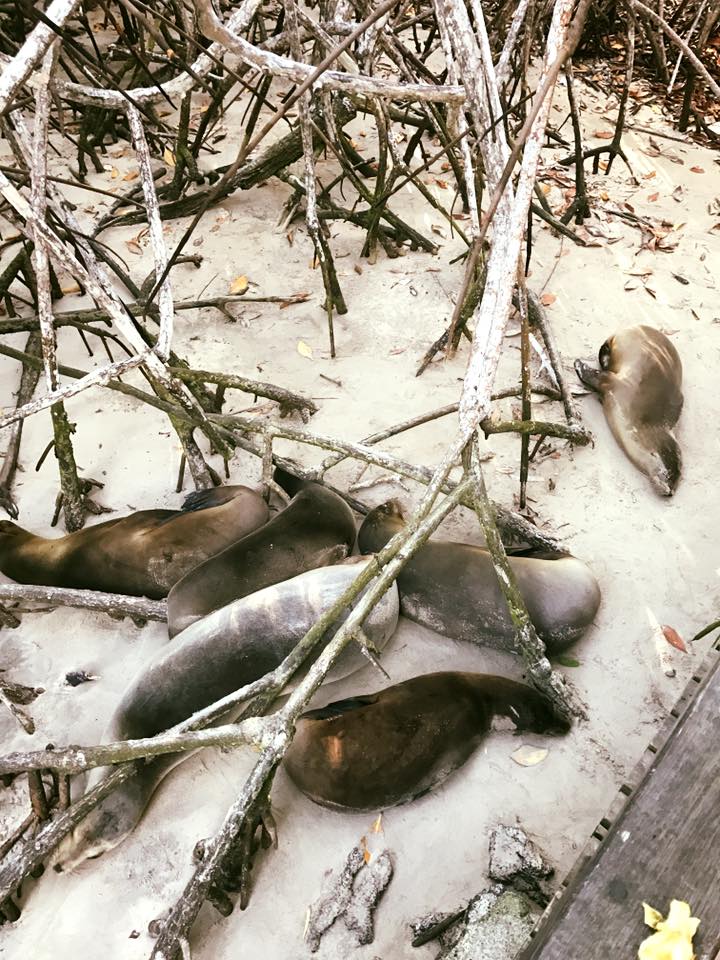 At the end of the pathway, you will reach a wooden landing that has benches on the left, and wooden poles to hang your stuff on either side. There are two staircases that lead down into the (cold!) water. This is what the lagoon looks like:
At the end of the pathway, you will reach a wooden landing that has benches on the left, and wooden poles to hang your stuff on either side. There are two staircases that lead down into the (cold!) water. This is what the lagoon looks like: 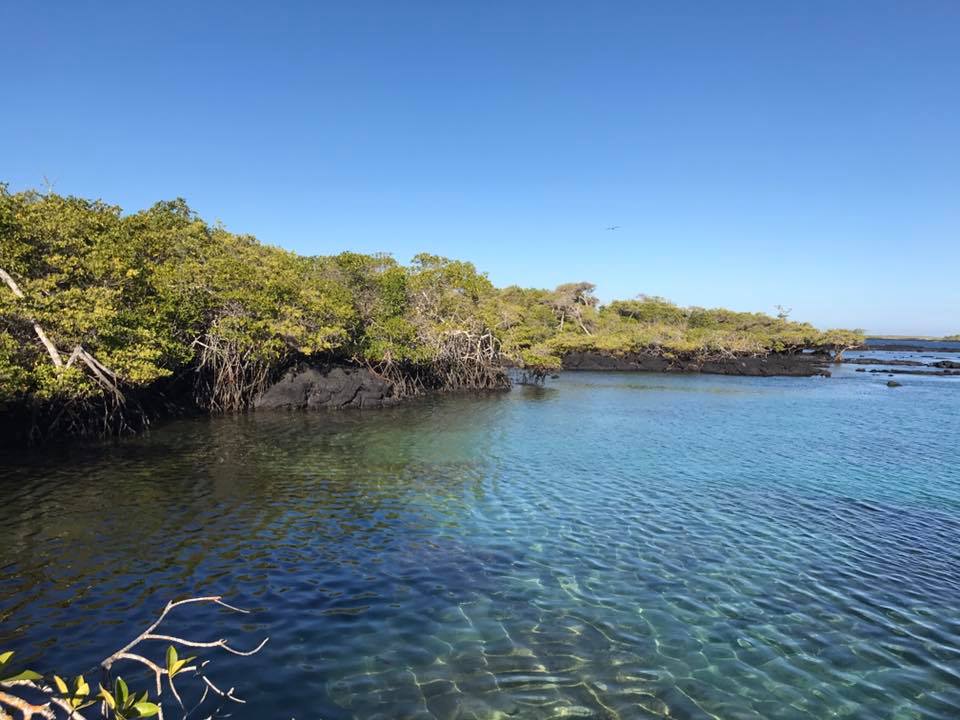
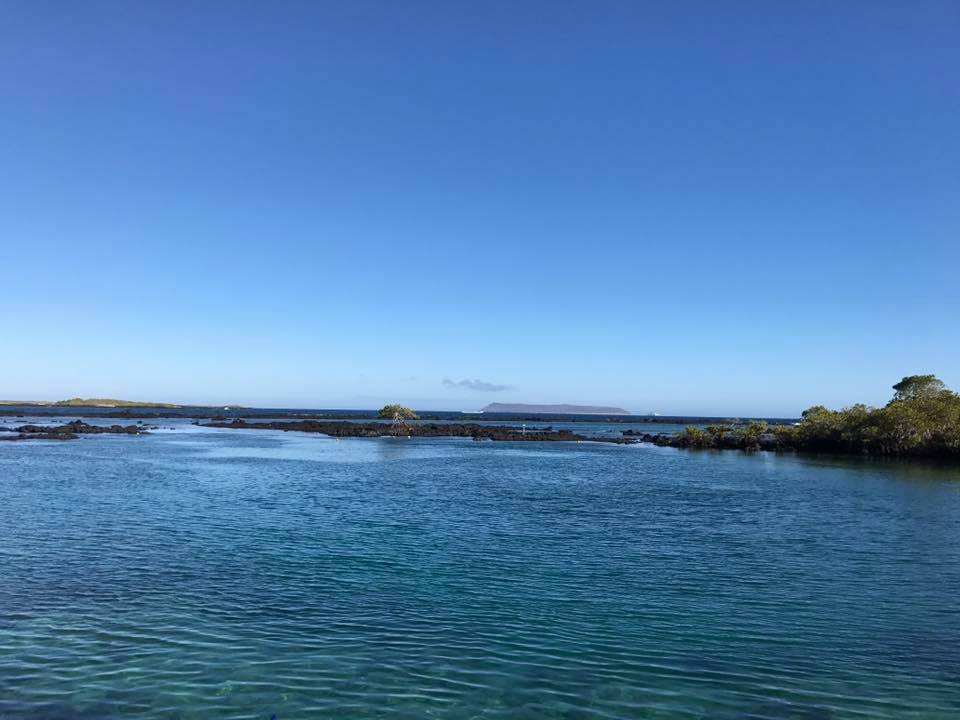
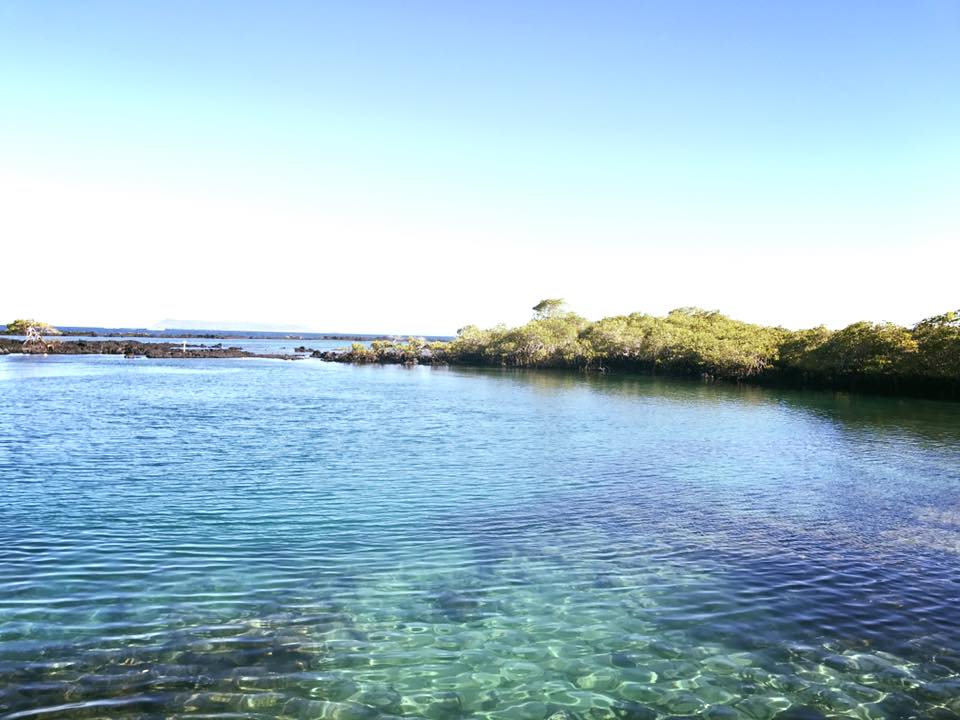 You aren’t supposed to go past the rock in the middle. While we were visiting, one of those lazy sea lions decided he was hungry. He came waddling up the walk to the platform, made his way down the stairs, and shot like a bullet through the water looking for fish!
You aren’t supposed to go past the rock in the middle. While we were visiting, one of those lazy sea lions decided he was hungry. He came waddling up the walk to the platform, made his way down the stairs, and shot like a bullet through the water looking for fish! 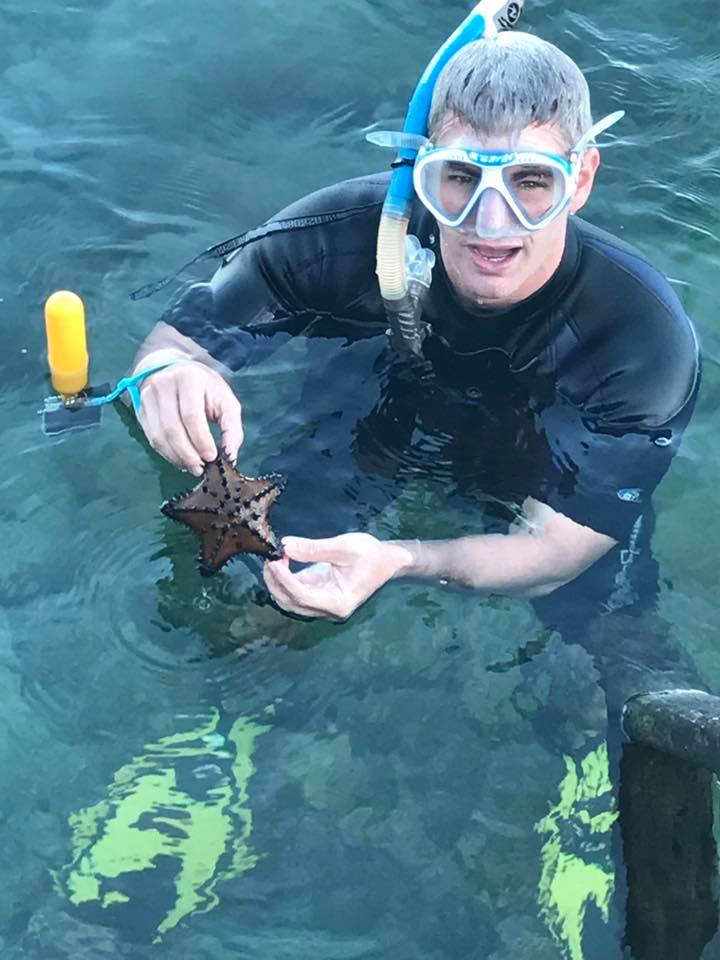
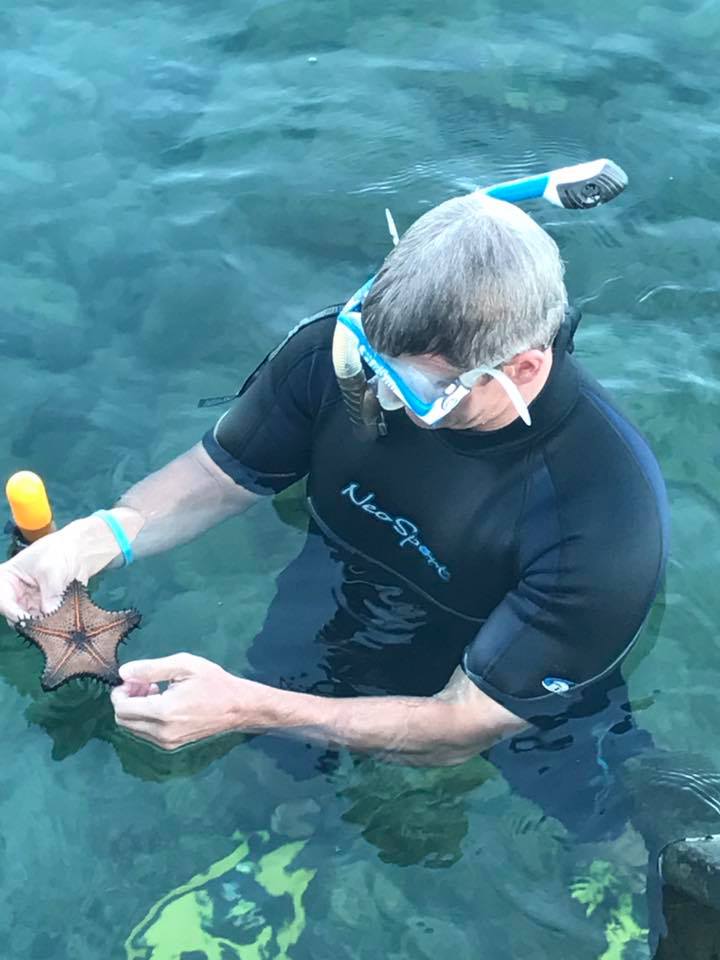 This was a great way to spend our last day on Isabela, and I am so glad we didn’t miss this place. Unfortunately for us, all good things must come to an end; but, we were excited, because up next was Santa Cruz Island! Isabela is a special island in the Galapagos not to be missed – truly a nature lover’s paradise; and whether you are doing a cruise or a land-based itinerary, I HIGHLY recommend that you make a point of staying a couple of days here.
This was a great way to spend our last day on Isabela, and I am so glad we didn’t miss this place. Unfortunately for us, all good things must come to an end; but, we were excited, because up next was Santa Cruz Island! Isabela is a special island in the Galapagos not to be missed – truly a nature lover’s paradise; and whether you are doing a cruise or a land-based itinerary, I HIGHLY recommend that you make a point of staying a couple of days here.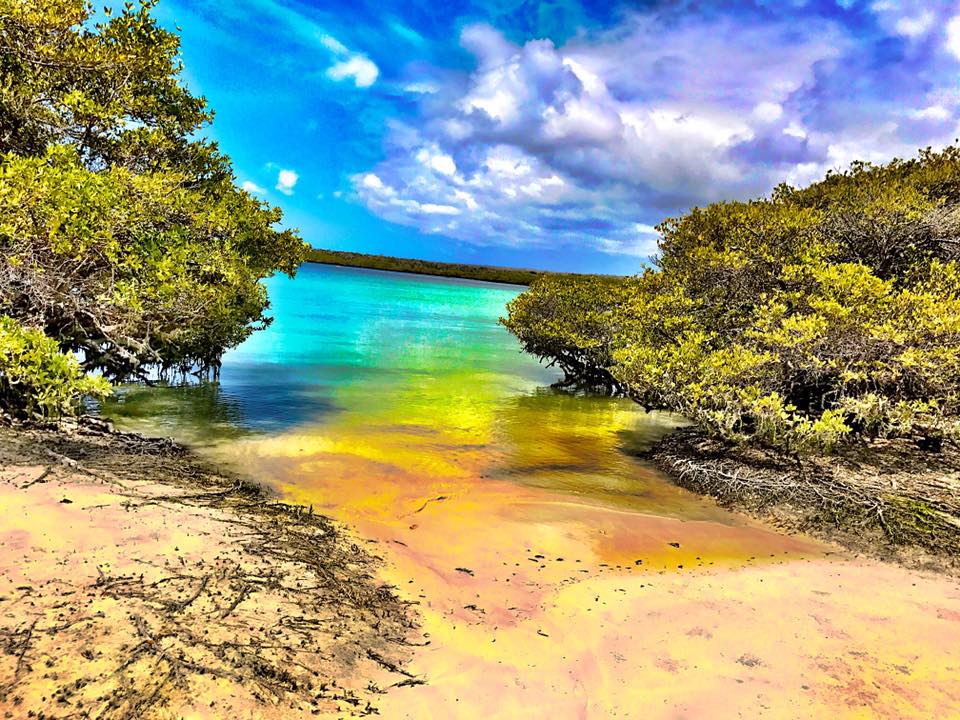 So, you want to go to the Galapagos Islands. Good choice! It is a literal paradise. But, if you have done any research at all, you may have already figured out that getting to this slice of paradise is not as easy as just jumping on a plane and going. Getting to the Galapagos Islands is a process.
So, you want to go to the Galapagos Islands. Good choice! It is a literal paradise. But, if you have done any research at all, you may have already figured out that getting to this slice of paradise is not as easy as just jumping on a plane and going. Getting to the Galapagos Islands is a process.
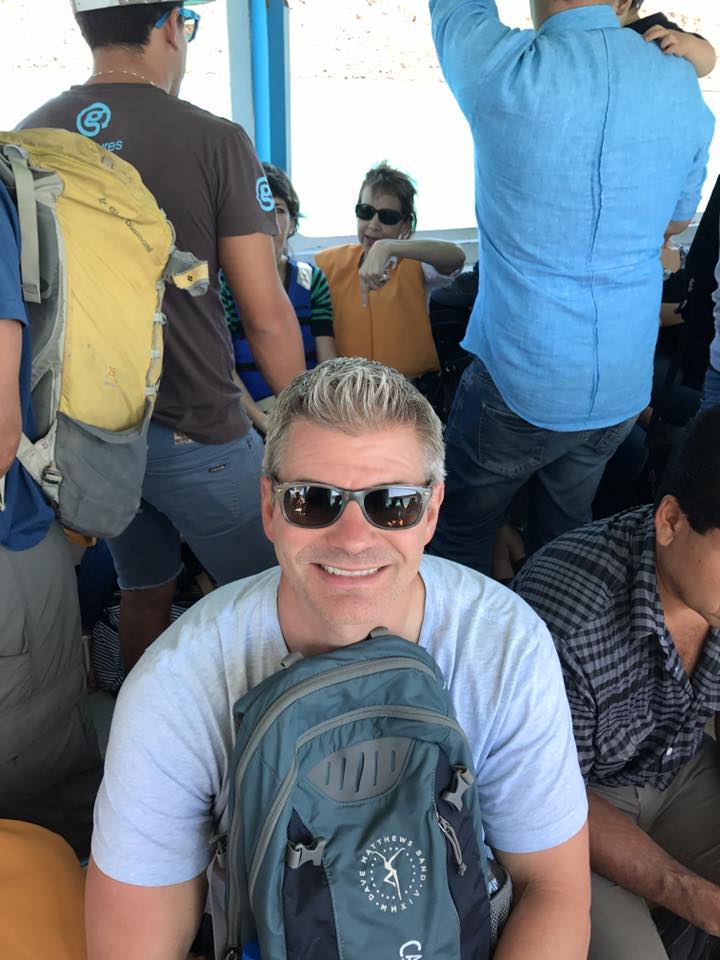 Once on Santa Cruz, and, in addition to exploring this island (which, honestly, doesn’t have much wildlife other than marine iguanas, sea turtles at Tortuga Bay, and the land tortoises at the Charles Darwin Research Station), you can take day-trips to Santa Fe, North Seymour Island, Bartolome, and South Plaza Island. All of these excursions offer great snorkeling and opportunities to see other animals on the islands, especially North Seymour Island.
Once on Santa Cruz, and, in addition to exploring this island (which, honestly, doesn’t have much wildlife other than marine iguanas, sea turtles at Tortuga Bay, and the land tortoises at the Charles Darwin Research Station), you can take day-trips to Santa Fe, North Seymour Island, Bartolome, and South Plaza Island. All of these excursions offer great snorkeling and opportunities to see other animals on the islands, especially North Seymour Island.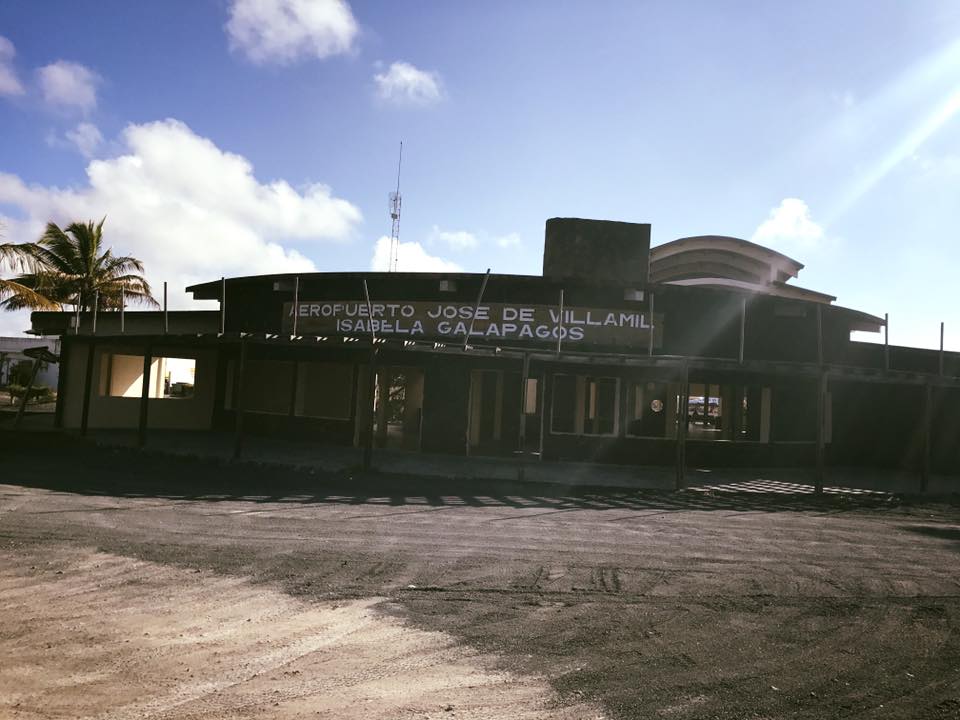
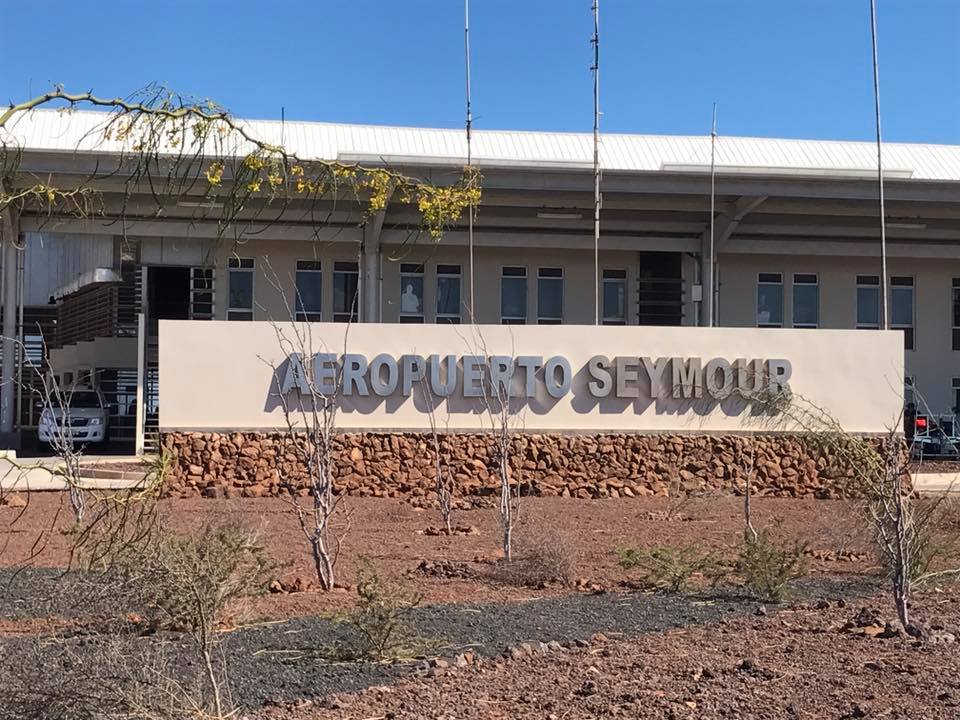
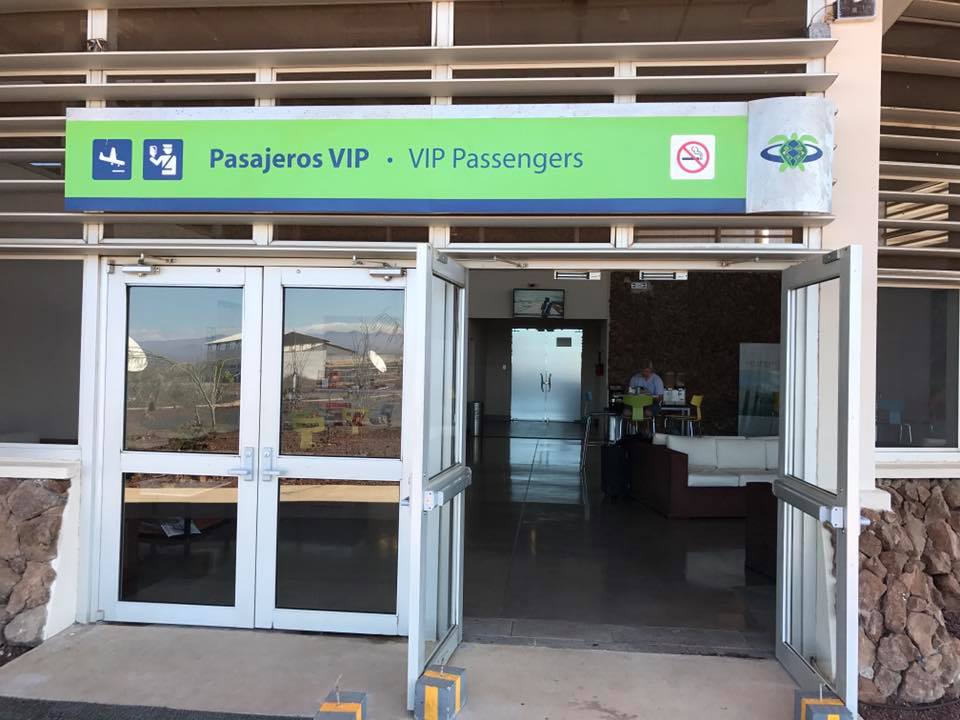
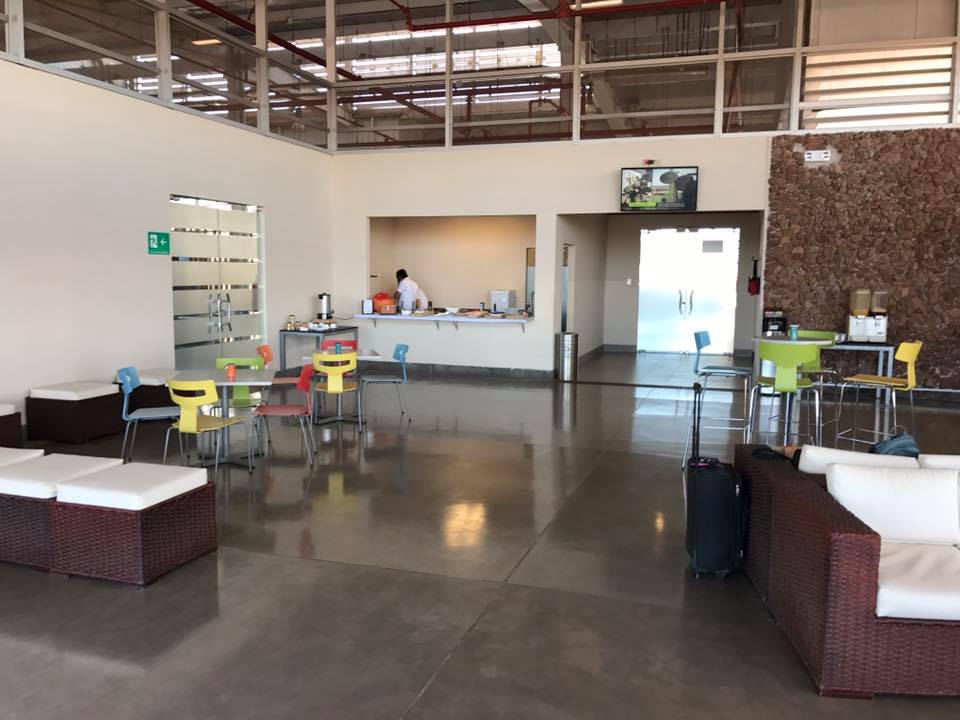
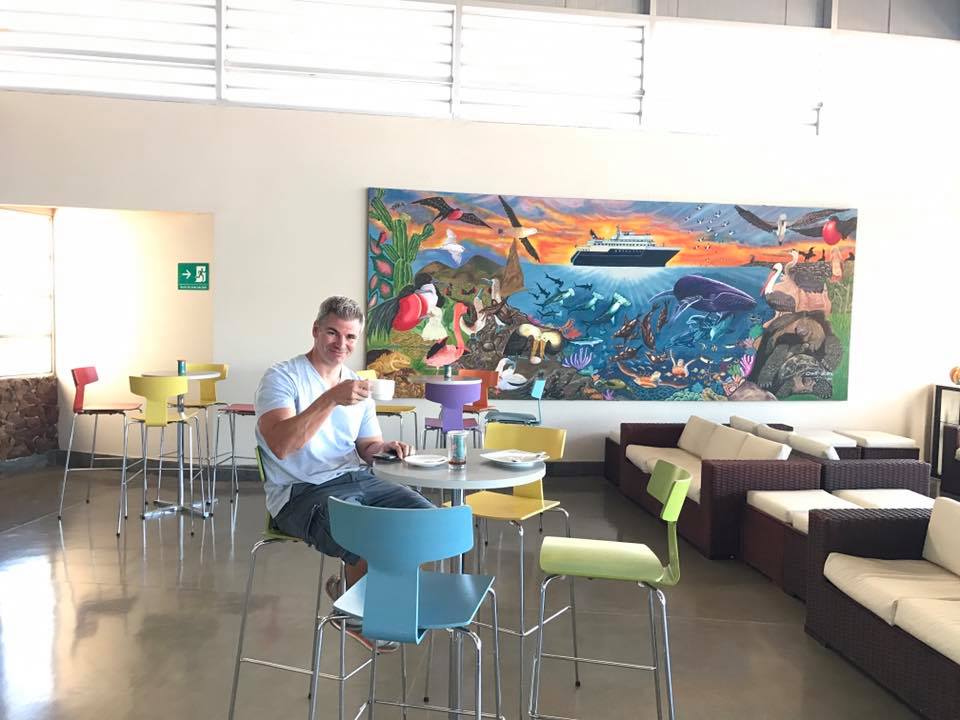 But, I digress. If you choose the flight option, here is what you have in store:
But, I digress. If you choose the flight option, here is what you have in store:
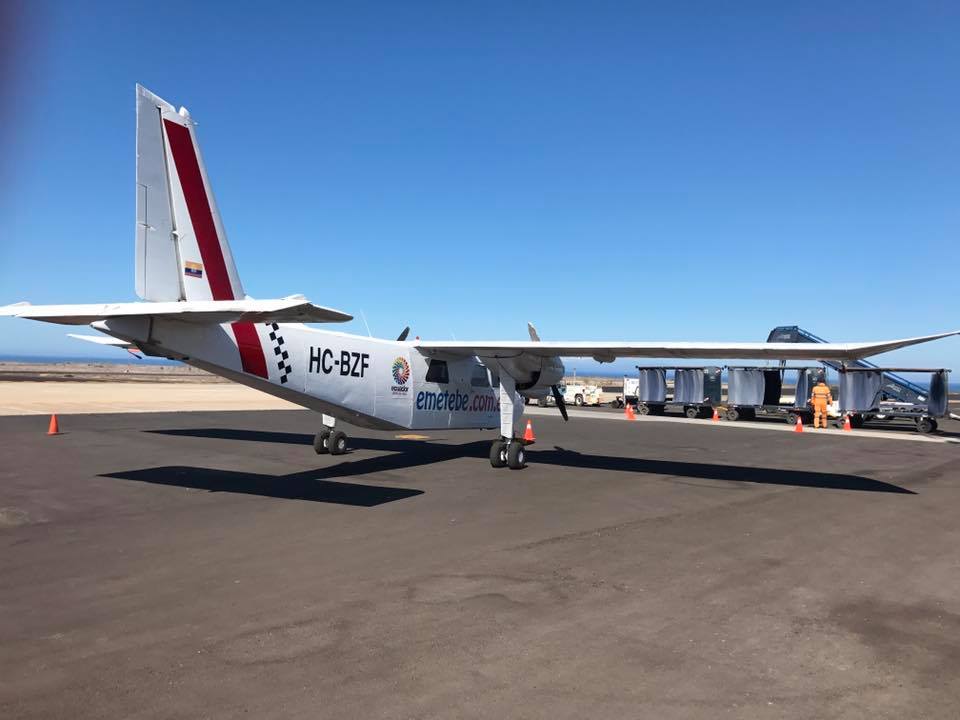
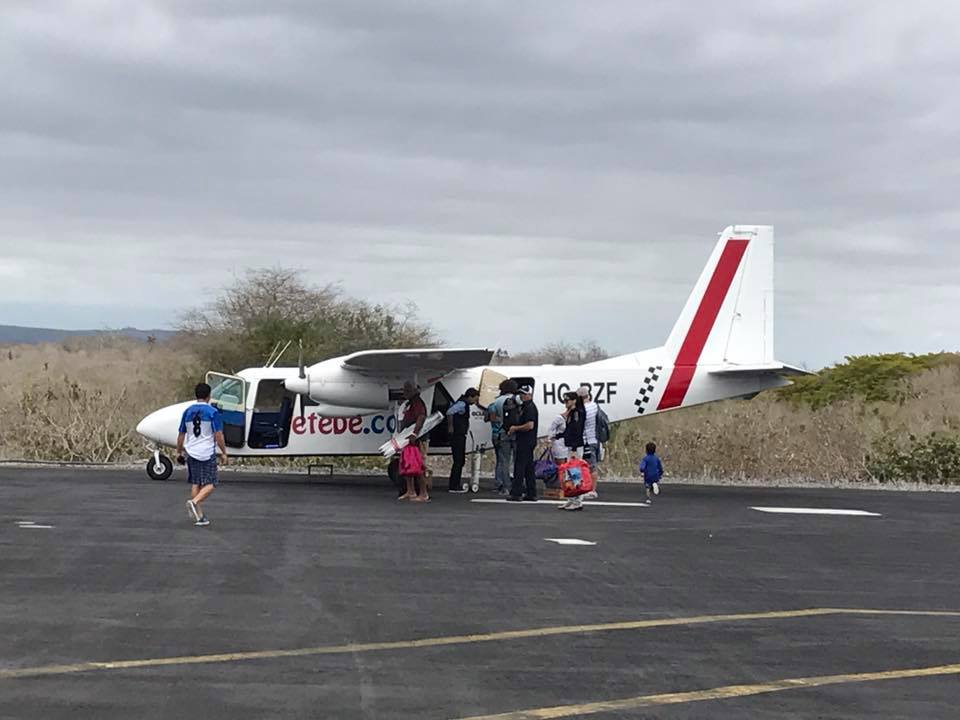
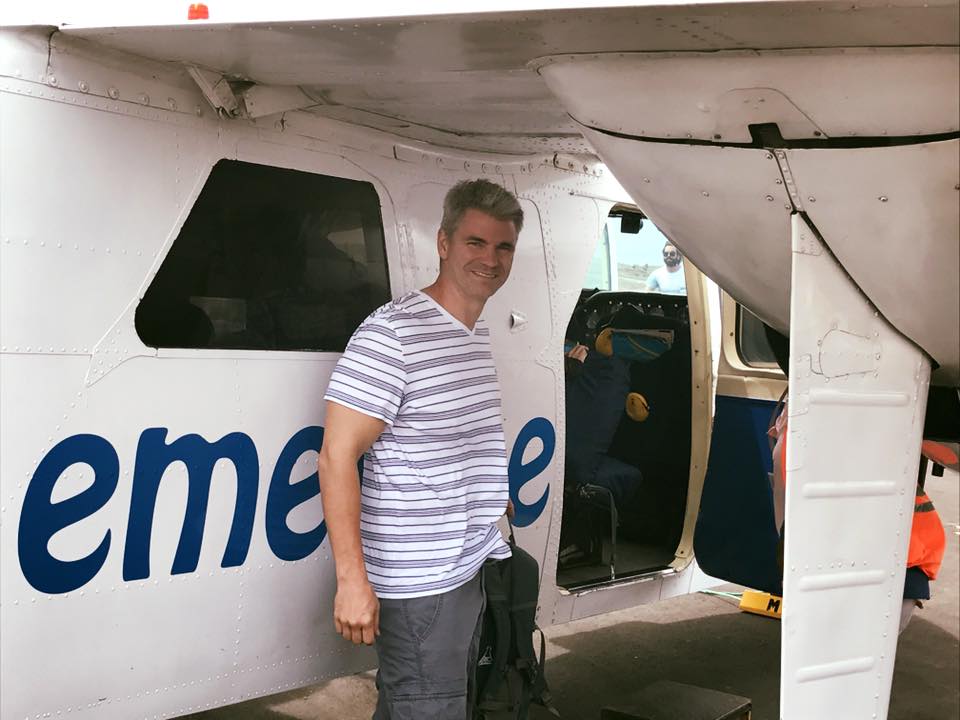
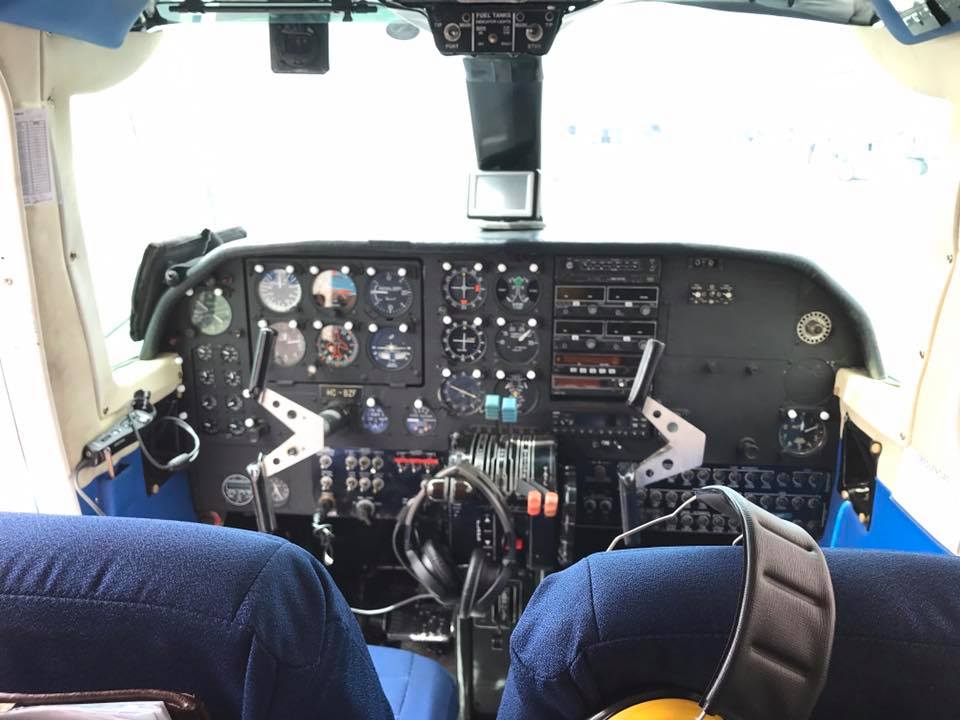
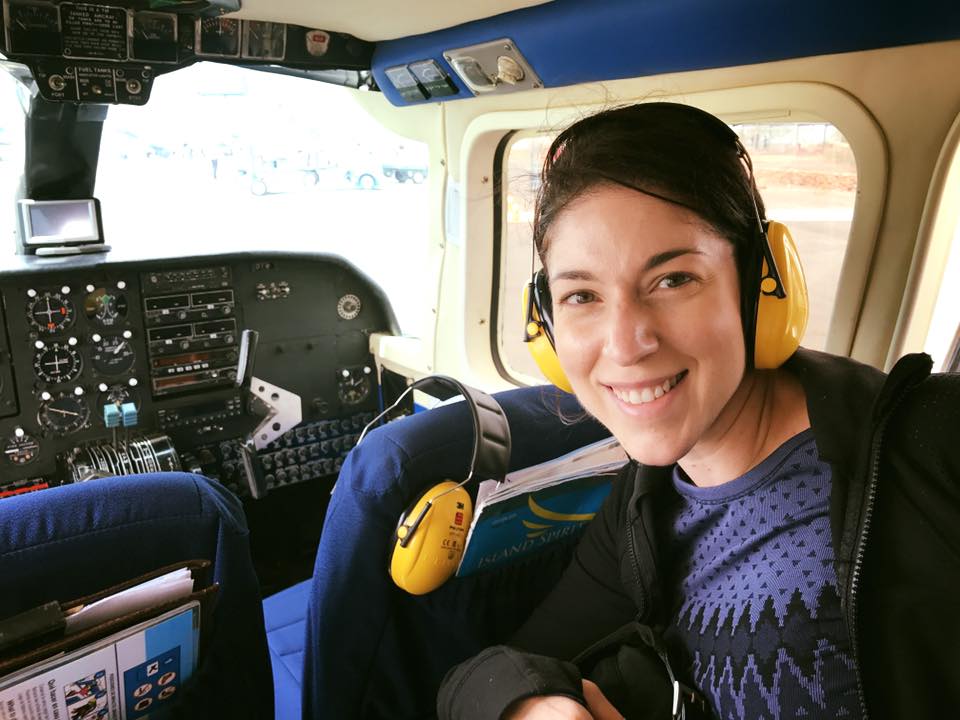 Try to sit in the first row for the best view!
Try to sit in the first row for the best view!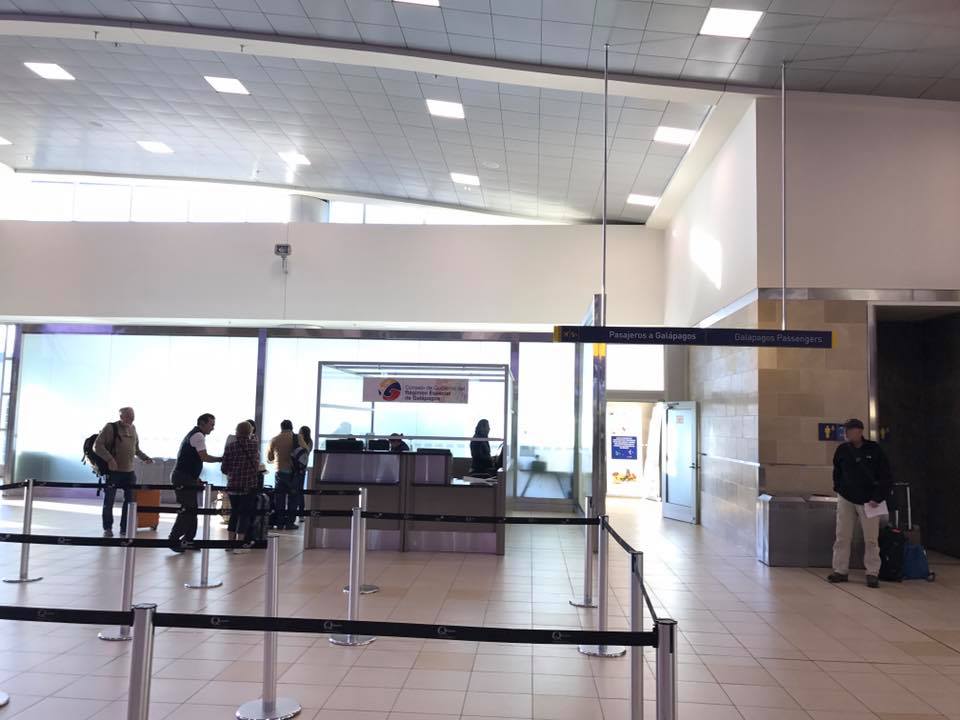
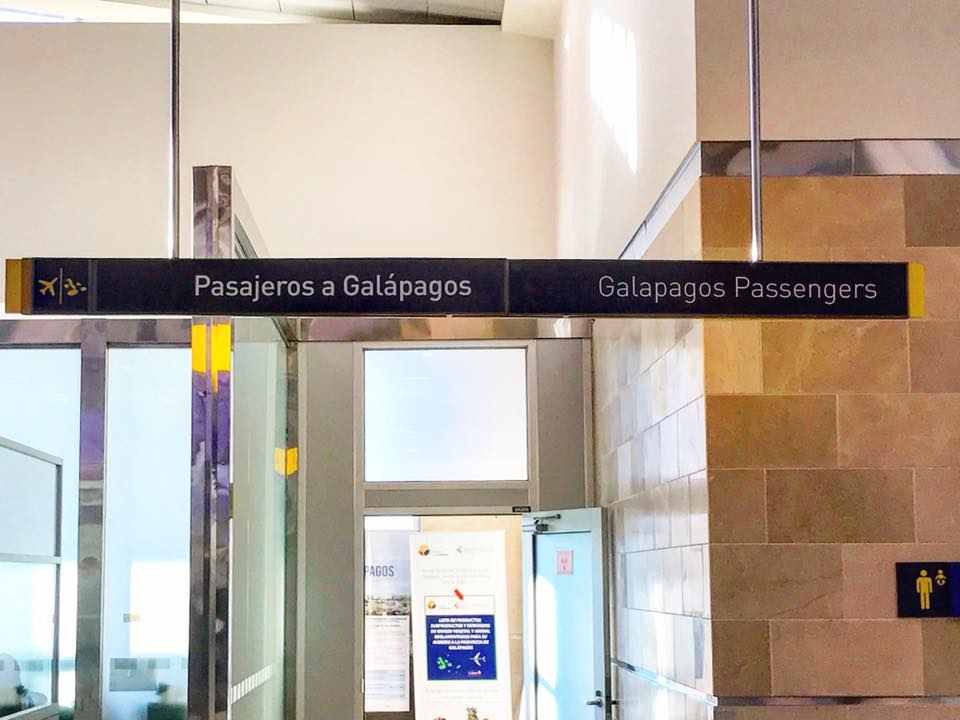
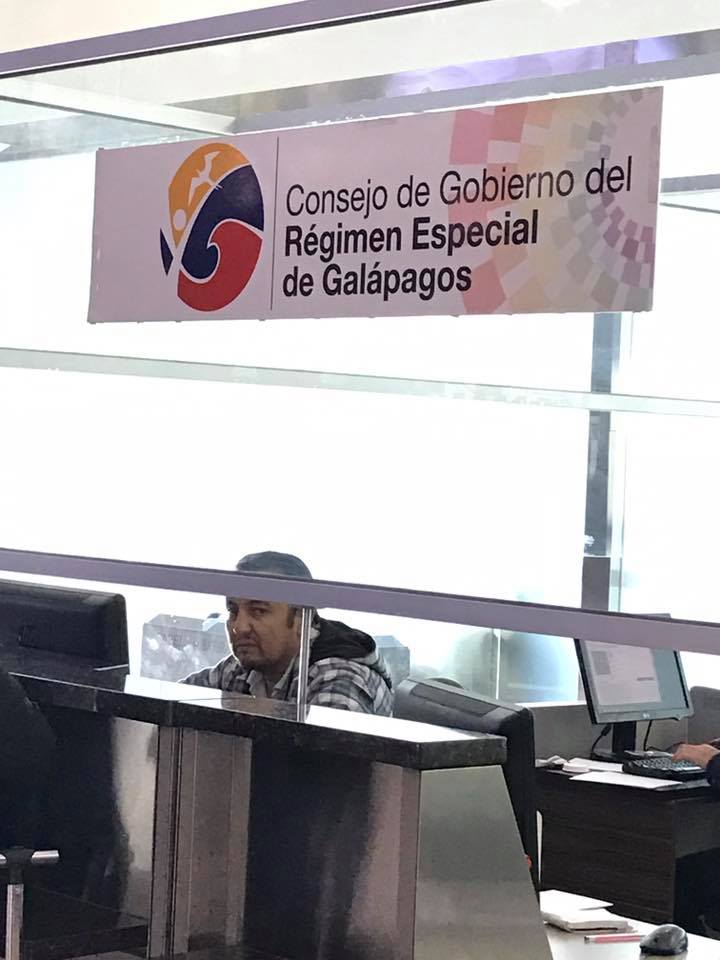 This is your first stop. You will need your passport, and you need to pay $20 USD per person
This is your first stop. You will need your passport, and you need to pay $20 USD per person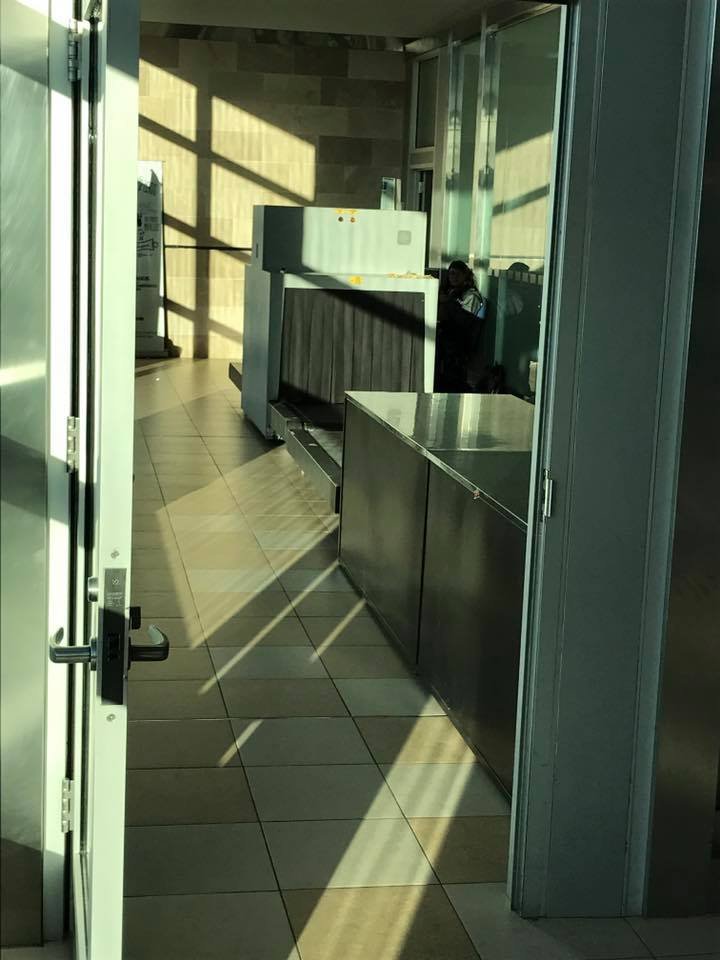
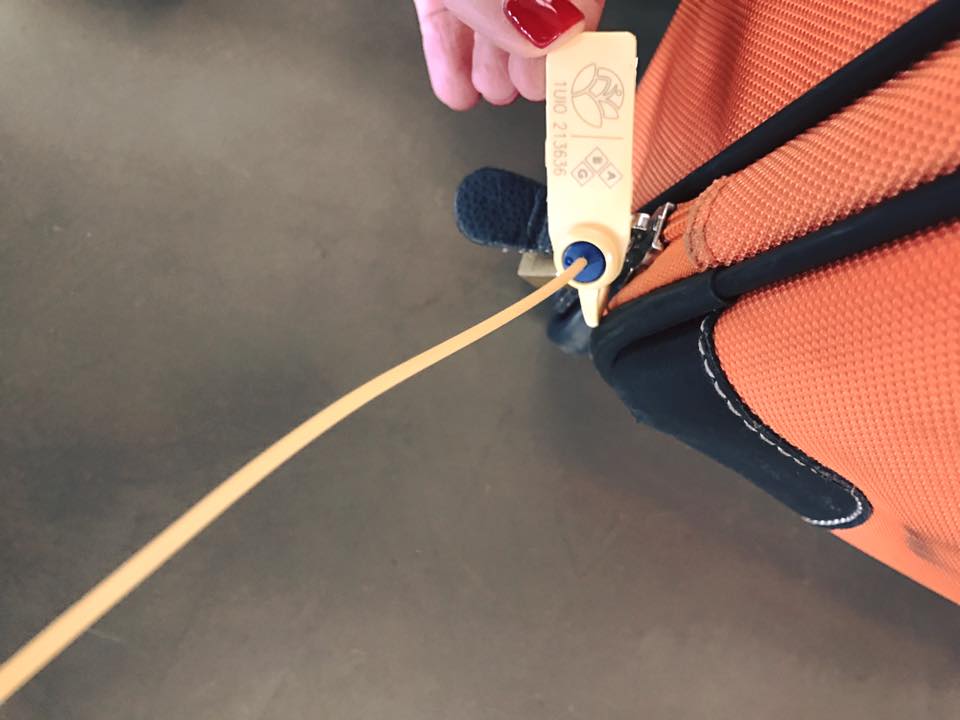 Any unprocessed food or nuts will be confiscated. Only after you passed through here may you approach the counter to check in to your Galapagos flight. If you hire a travel agent, there is a local agent that takes you to the airport and does ALL of this for you while you comfortably sit and wait.
Any unprocessed food or nuts will be confiscated. Only after you passed through here may you approach the counter to check in to your Galapagos flight. If you hire a travel agent, there is a local agent that takes you to the airport and does ALL of this for you while you comfortably sit and wait. Once you get to the Galapagos, the real fun begins. First, you enter the airport and must pass through their customs. You will need your passport and the form mentioned previously (this is also where you will pay the aforementioned $100 USD Galapagos National Park Fee). You will also get a neat Galapagos passport stamp! Then they will scan your bags … again!
Once you get to the Galapagos, the real fun begins. First, you enter the airport and must pass through their customs. You will need your passport and the form mentioned previously (this is also where you will pay the aforementioned $100 USD Galapagos National Park Fee). You will also get a neat Galapagos passport stamp! Then they will scan your bags … again!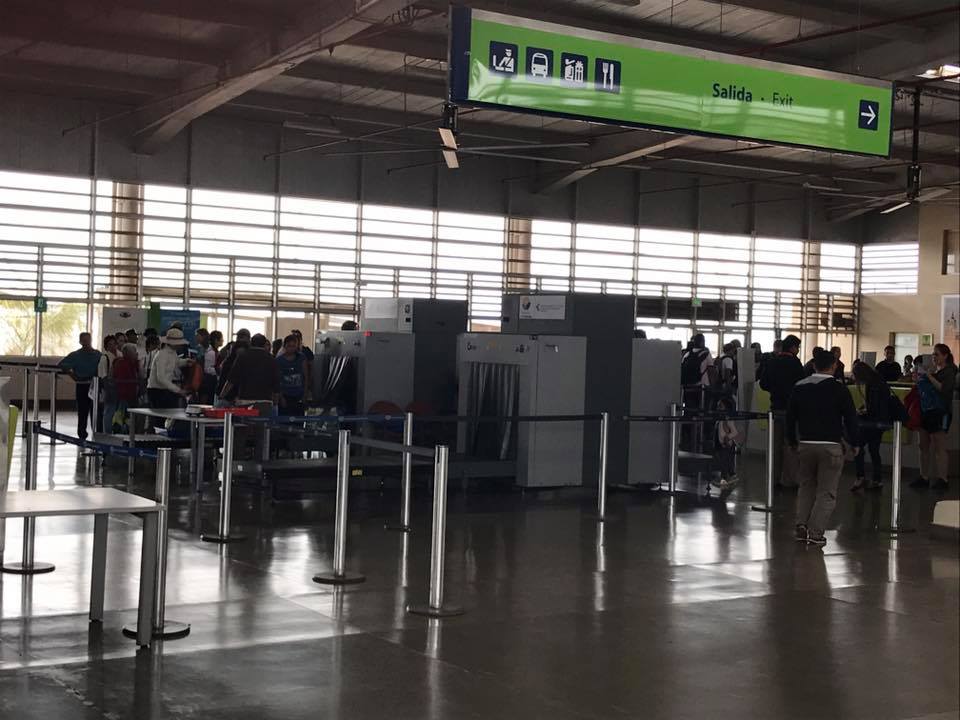
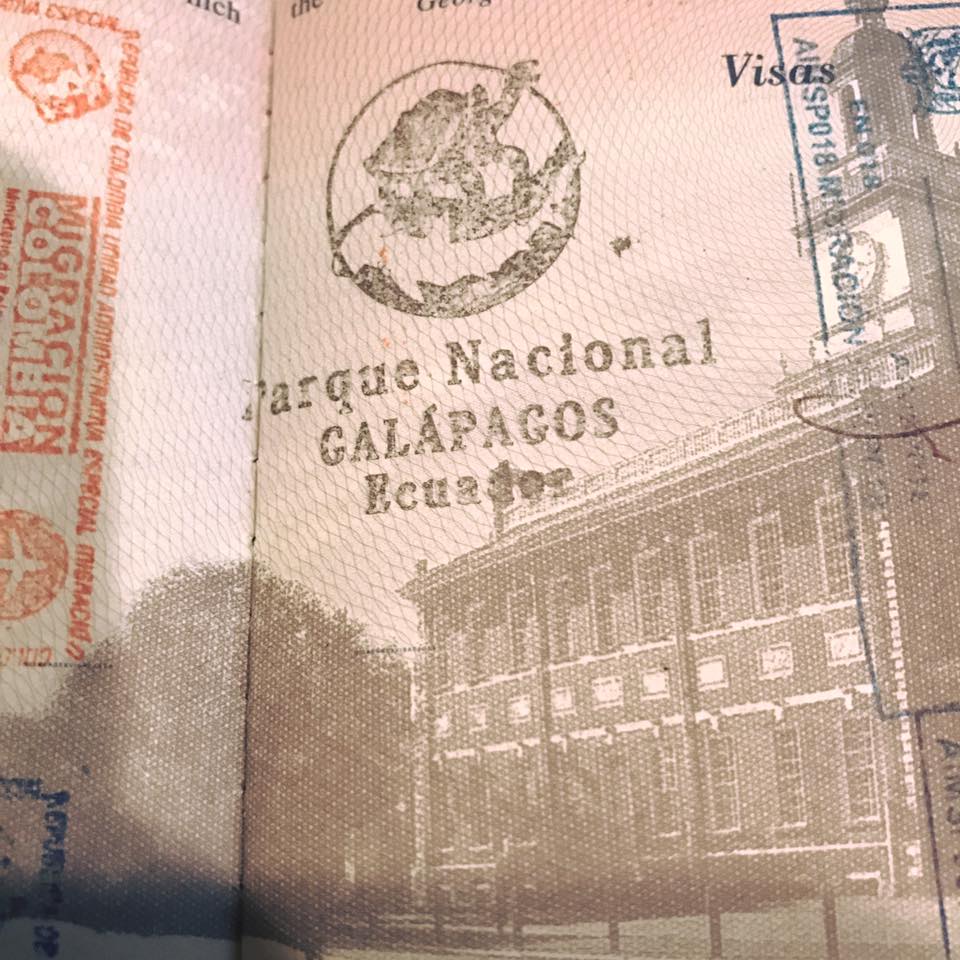 After this, you move to the luggage collection area. There is a long yellow line. You are not to cross this line and collect your bag until you are told to. Why? Well, your luggage gets checked again. By a dog; a fruit and vegetable contraband sniffing dog. So, all the luggage comes out and is lined up on belts. The dog comes around and sniffs each and every bag. If your bag passes the sniff test, then the plastic zip tie is cut off. Once all bags have been sniffed and approved, they allow you to collect your bag in what turns our to be a chaotic free-f0r-all!
After this, you move to the luggage collection area. There is a long yellow line. You are not to cross this line and collect your bag until you are told to. Why? Well, your luggage gets checked again. By a dog; a fruit and vegetable contraband sniffing dog. So, all the luggage comes out and is lined up on belts. The dog comes around and sniffs each and every bag. If your bag passes the sniff test, then the plastic zip tie is cut off. Once all bags have been sniffed and approved, they allow you to collect your bag in what turns our to be a chaotic free-f0r-all!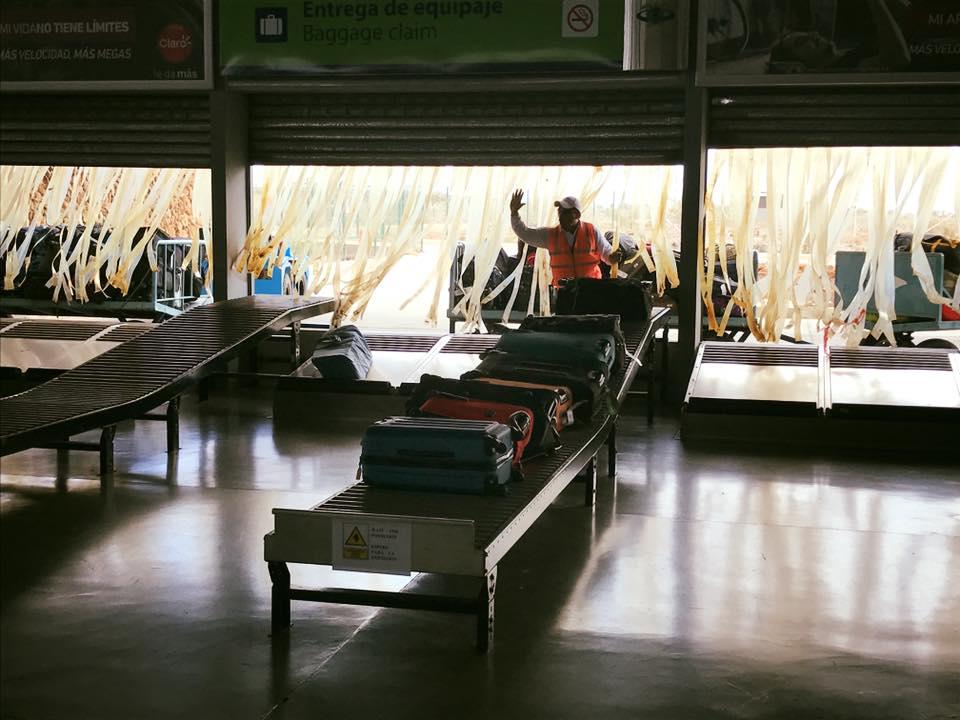
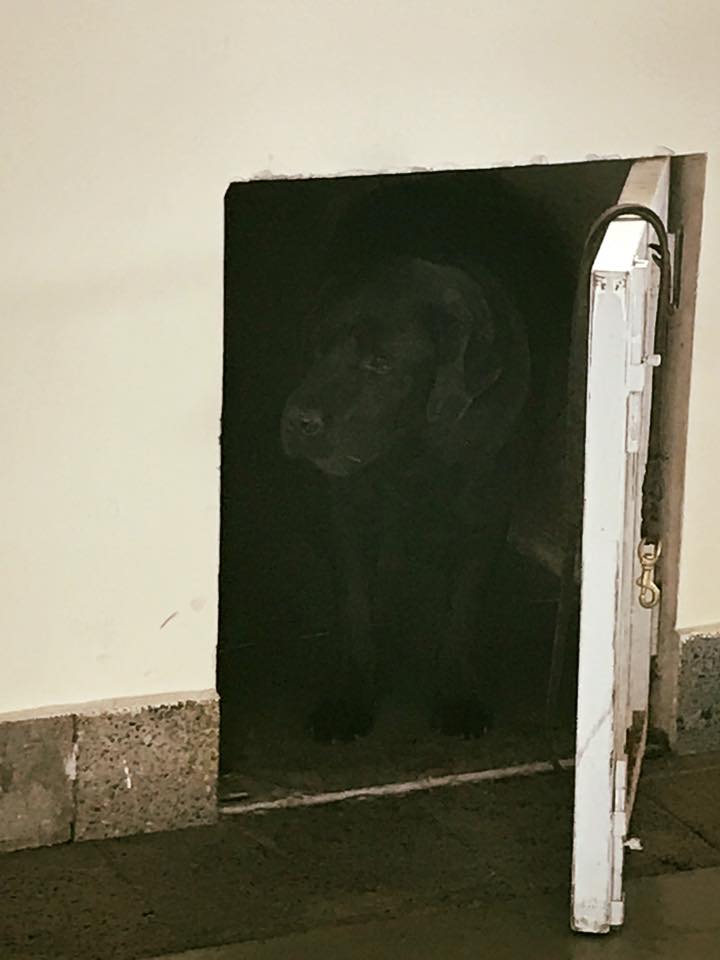
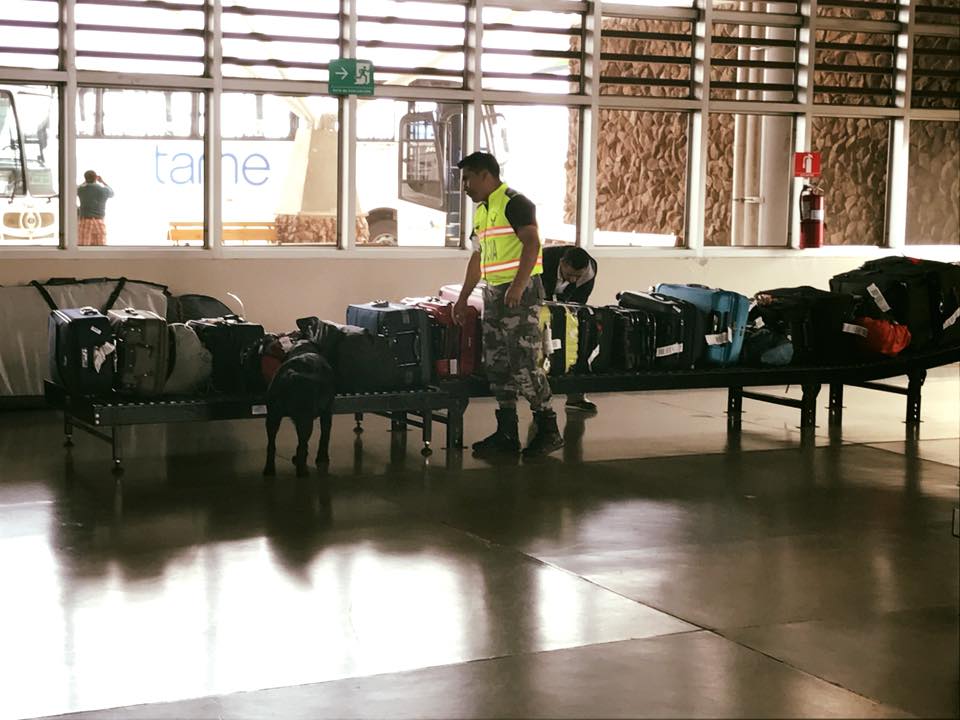
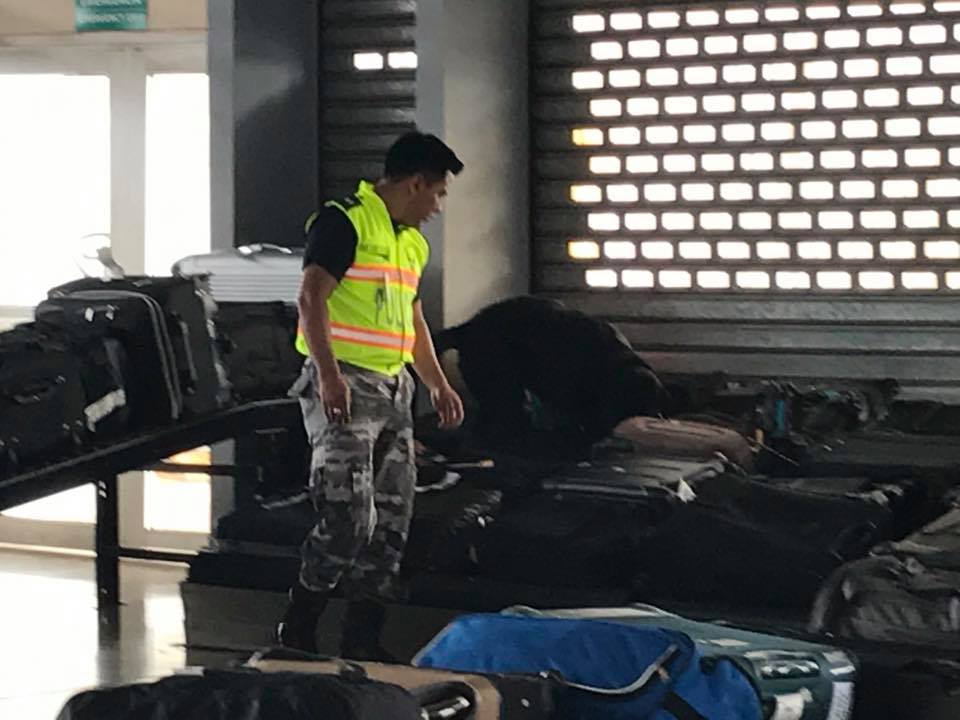
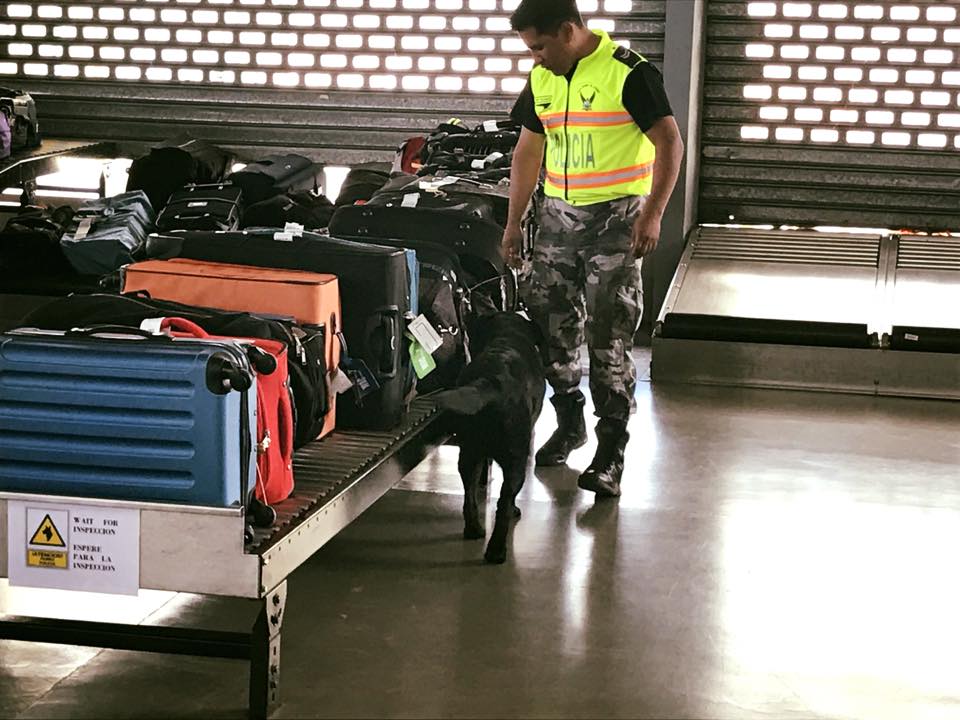 After you collect your bag, you either check in for your next flight if you are flying to Isabela or San Cristobal or you go out to catch the bus that will take you to Santa Cruz for your stay there or for your next ferry ride to Isabela or San Cristobal.
After you collect your bag, you either check in for your next flight if you are flying to Isabela or San Cristobal or you go out to catch the bus that will take you to Santa Cruz for your stay there or for your next ferry ride to Isabela or San Cristobal.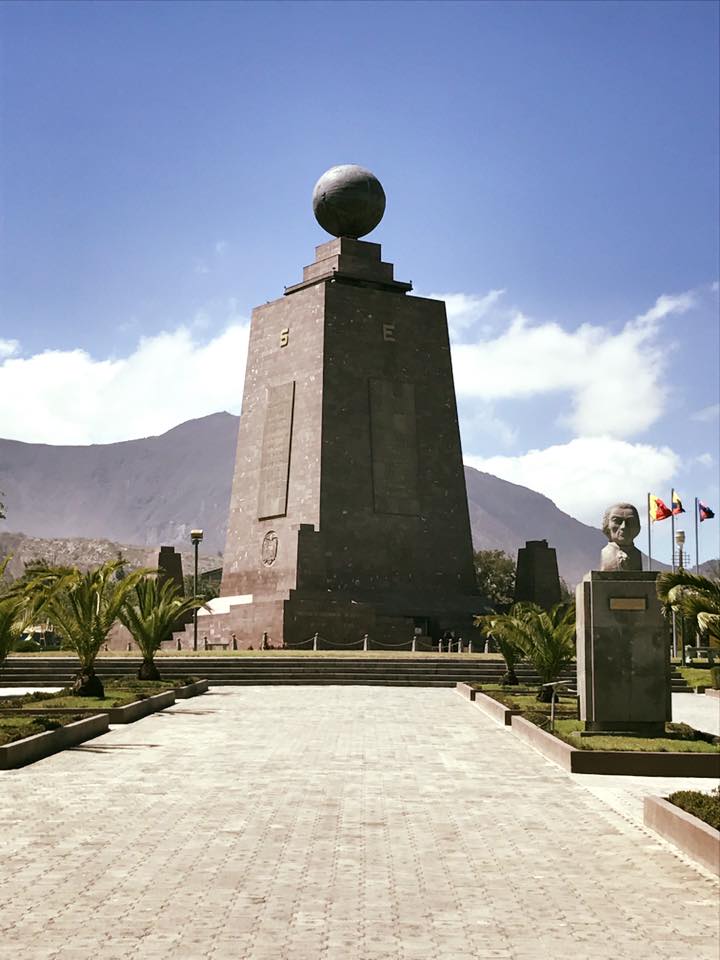 Have you ever dreamed of visiting the middle of the world? Well, you can, and we did just that for a day en route to the Galapagos Islands!
Have you ever dreamed of visiting the middle of the world? Well, you can, and we did just that for a day en route to the Galapagos Islands!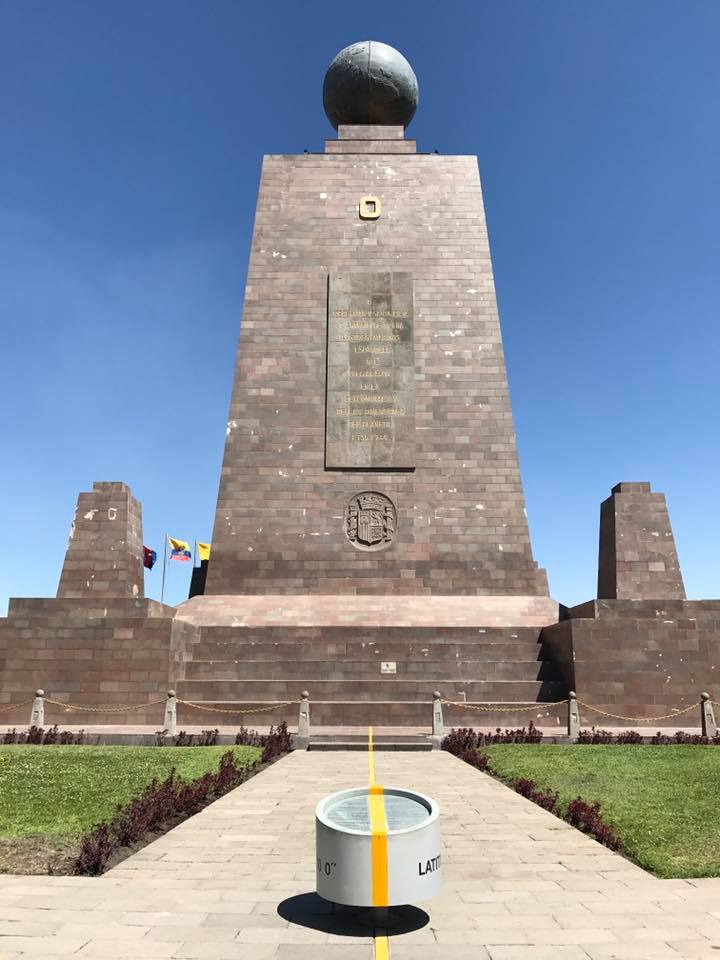

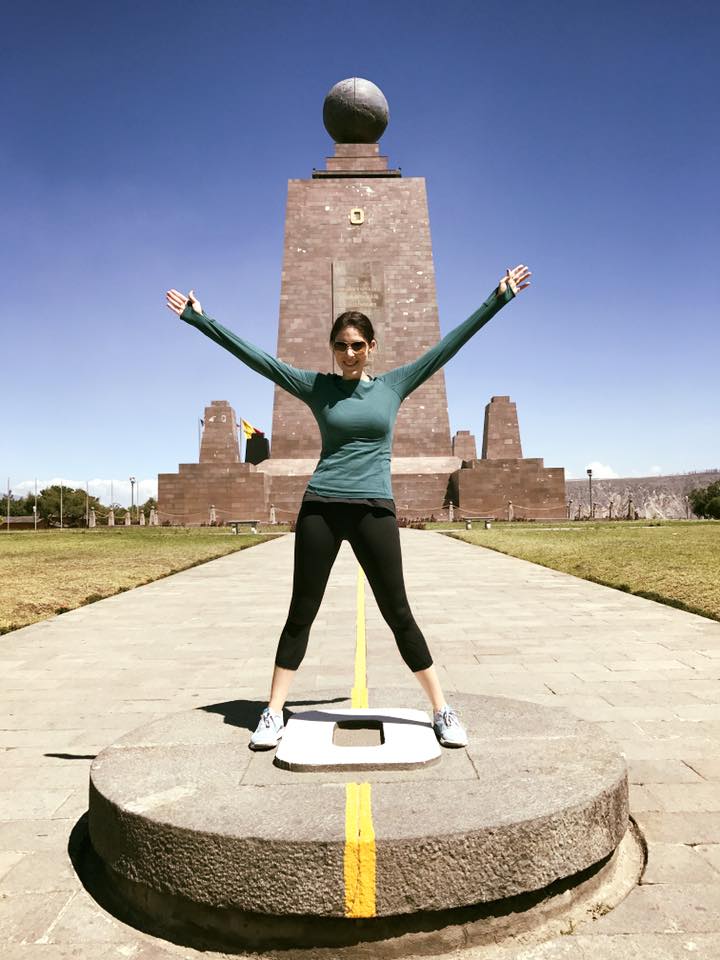
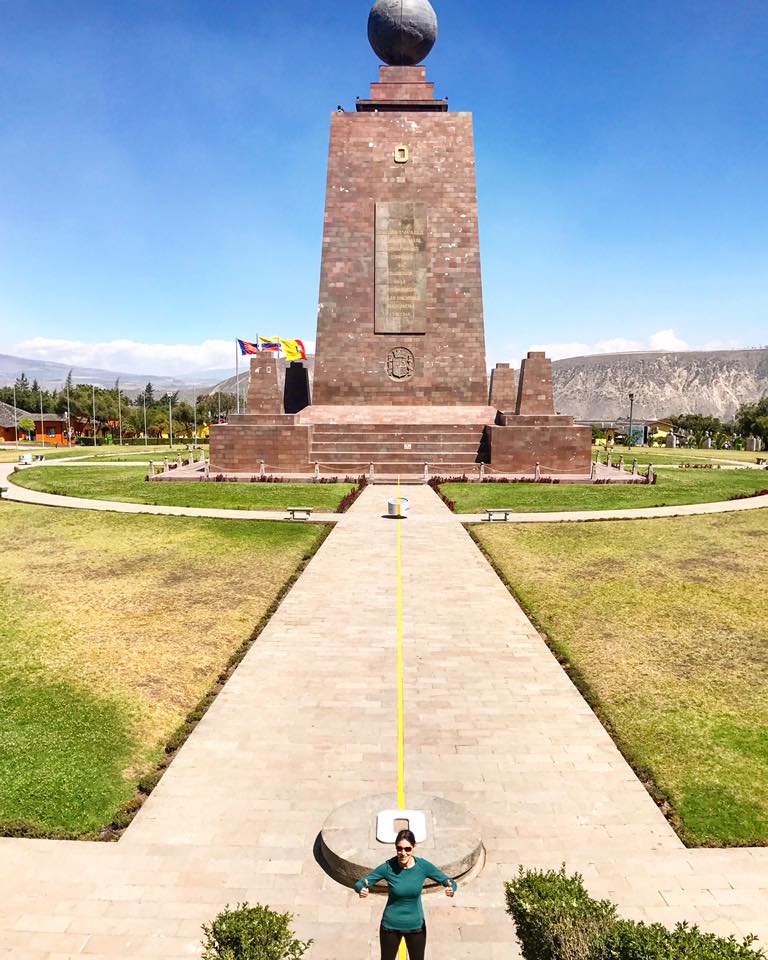 Did you notice that there is an O instead of a W for west? That is because in Spanish, the word for west is “oeste”!
Did you notice that there is an O instead of a W for west? That is because in Spanish, the word for west is “oeste”!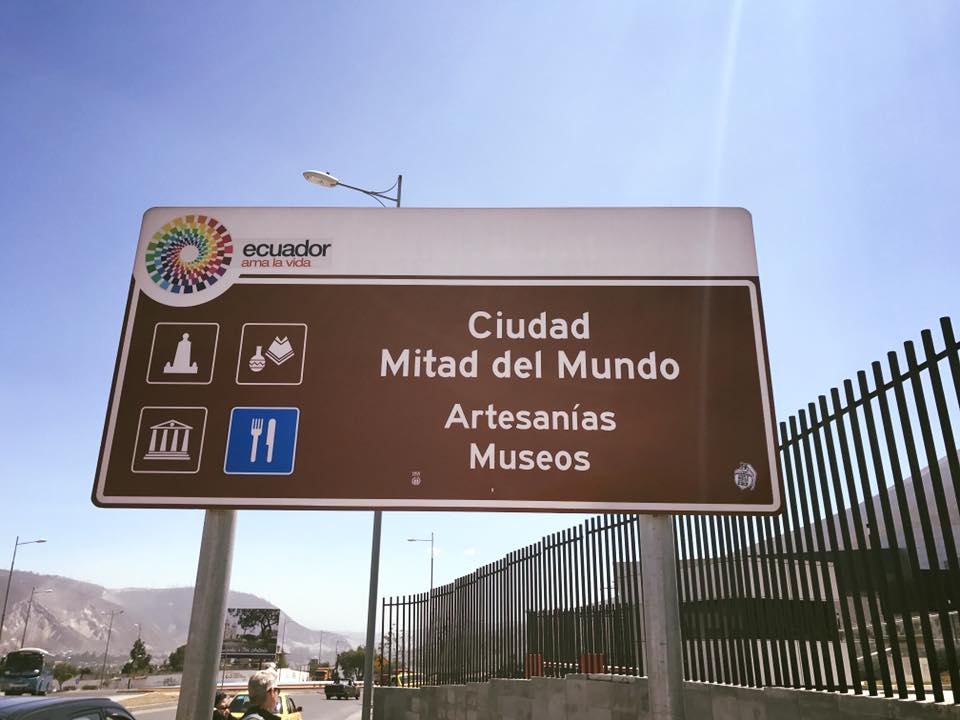

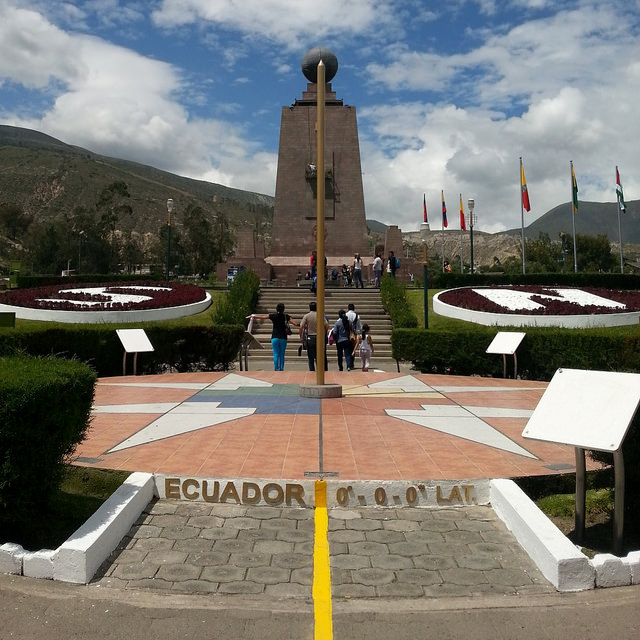 However, in 2000, some Americans came with their fancy newfangled GPS and ruined the party for everyone! As it turns out, the true equatorial line is not actually located where the big Monument to the Equator was built (OOOOPPSS!). It is instead located at a site that is 240 meters (or .15 miles) north of the marked line. I mean, when you think about it, having a discrepancy of less than three football fields away for some 18th century scientist with primitive instruments is not too shabby. And now the Ecuadorians have two tourists attractions to offer its visitors! It’s a win-win, really.
However, in 2000, some Americans came with their fancy newfangled GPS and ruined the party for everyone! As it turns out, the true equatorial line is not actually located where the big Monument to the Equator was built (OOOOPPSS!). It is instead located at a site that is 240 meters (or .15 miles) north of the marked line. I mean, when you think about it, having a discrepancy of less than three football fields away for some 18th century scientist with primitive instruments is not too shabby. And now the Ecuadorians have two tourists attractions to offer its visitors! It’s a win-win, really.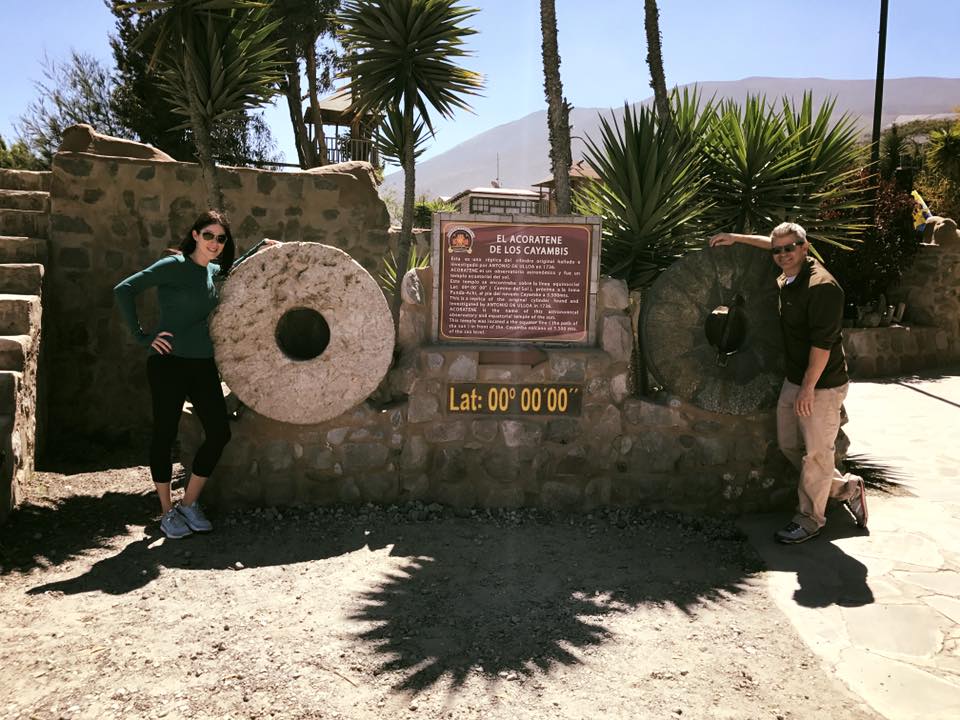
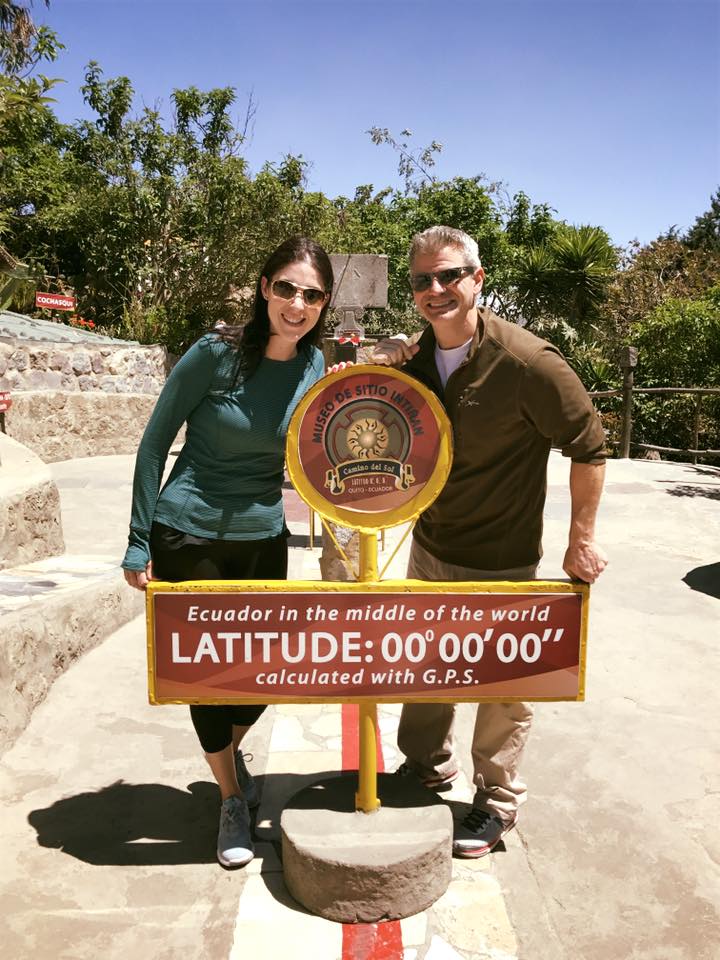 The real Mitad del Mundo entrance fee is $4 USD, including the guided tour. Bring your passport with you because after your visit is over, you can get your passport stamped! Admittedly, the first part of the tour is a little cheesy and touristy, but towards the end, you see the true equatorial line and they have a bunch of exhibits and interactive experiments in which you can participate.
The real Mitad del Mundo entrance fee is $4 USD, including the guided tour. Bring your passport with you because after your visit is over, you can get your passport stamped! Admittedly, the first part of the tour is a little cheesy and touristy, but towards the end, you see the true equatorial line and they have a bunch of exhibits and interactive experiments in which you can participate.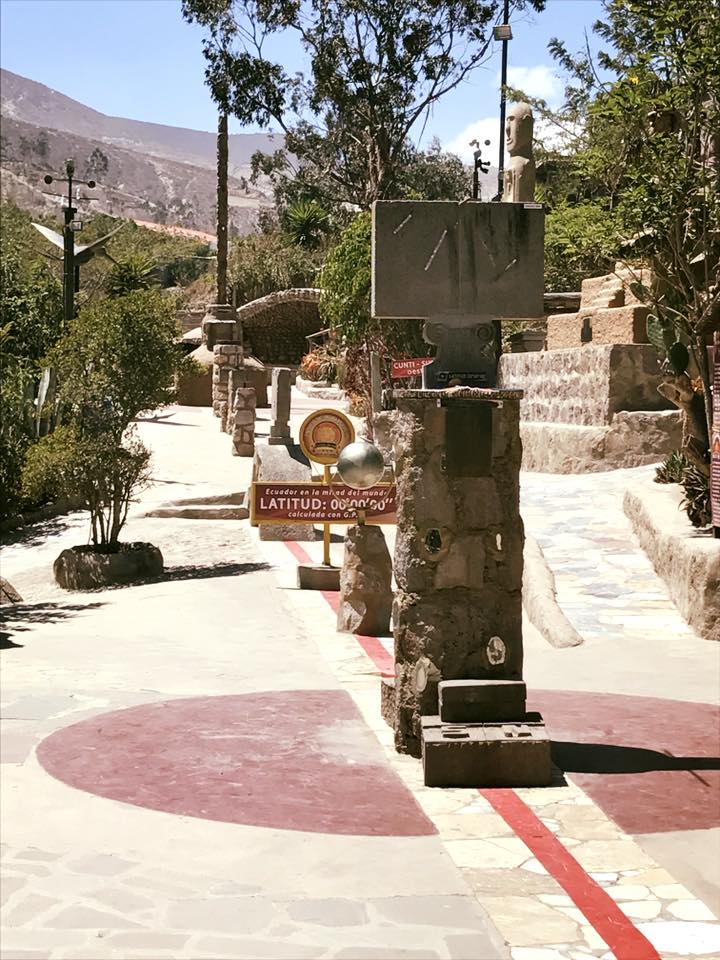

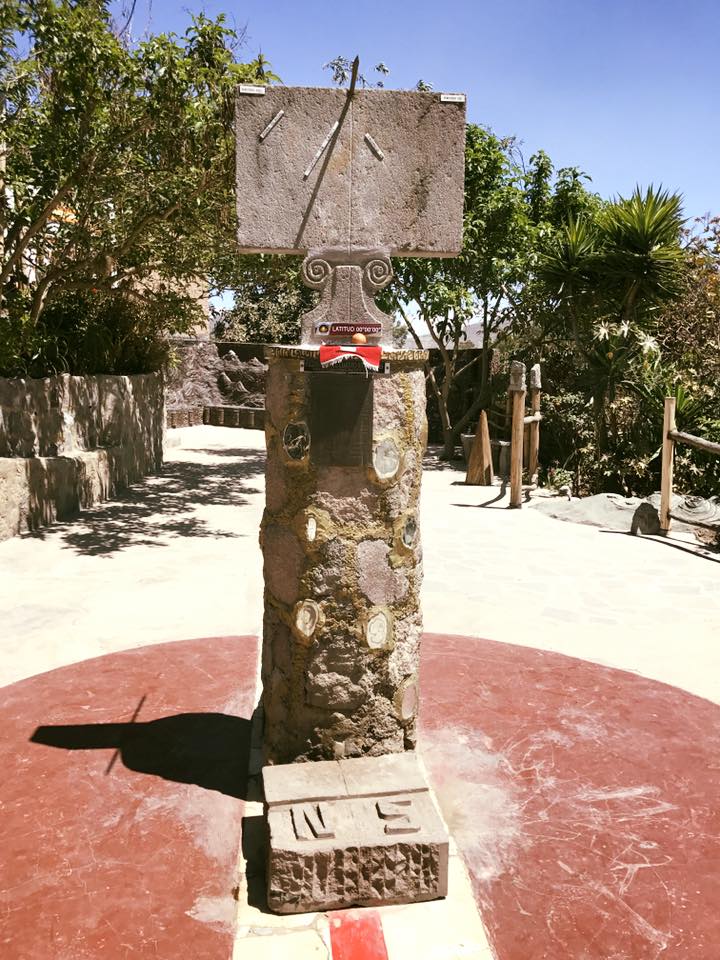

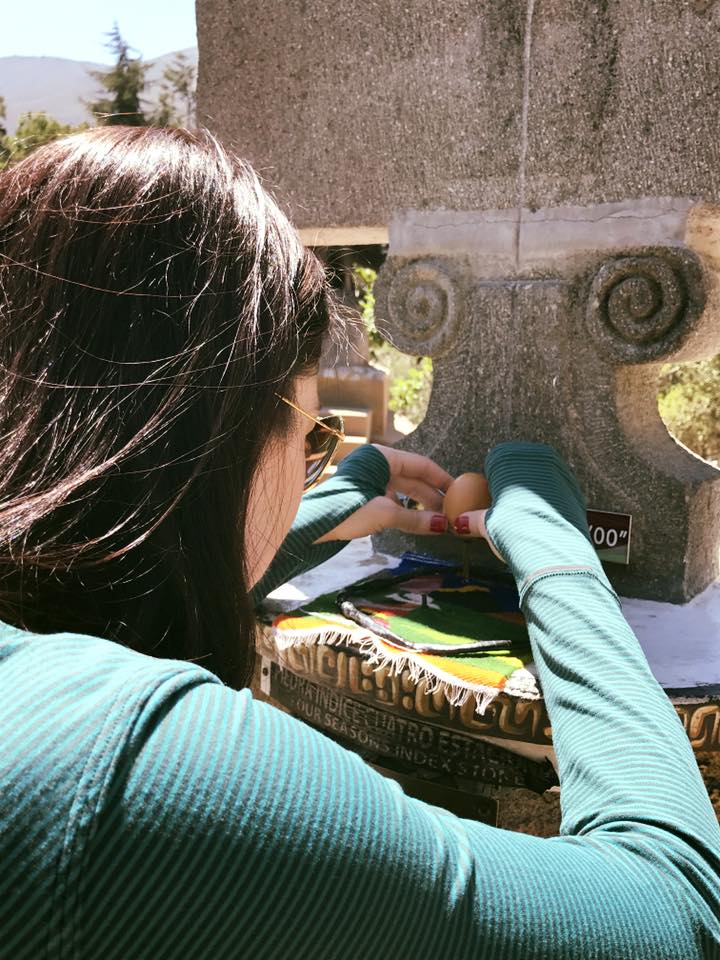
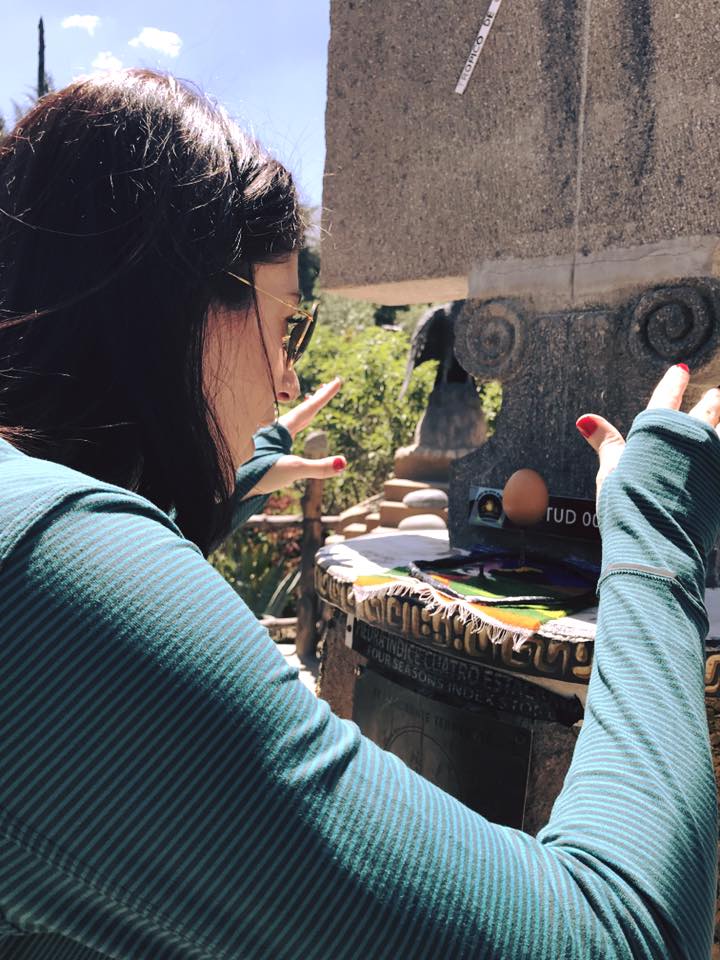
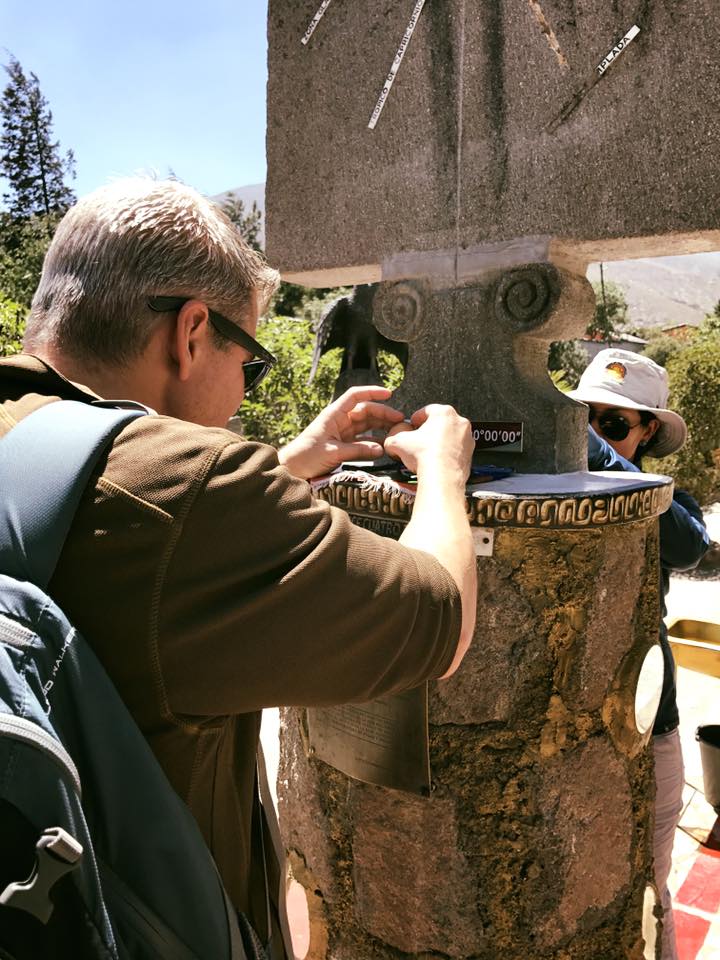
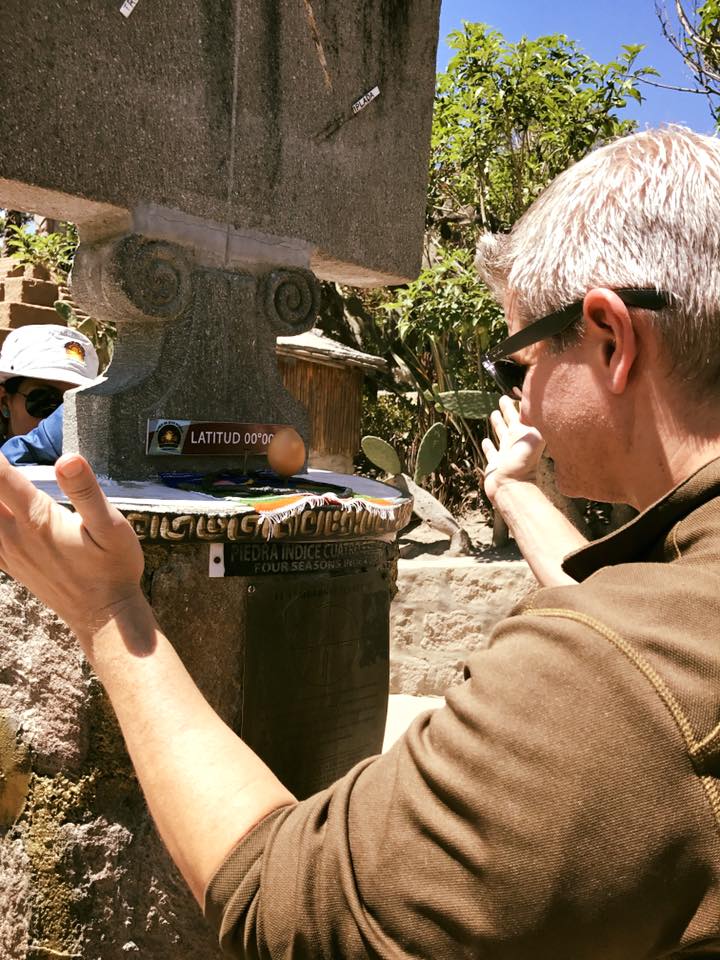
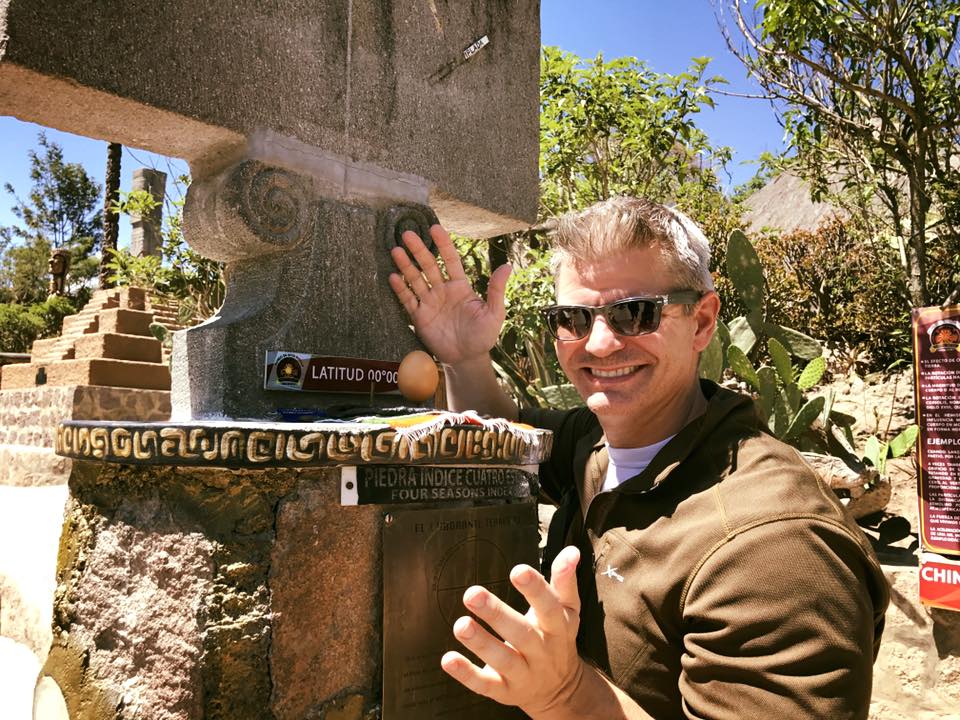 There is also a Coriolis effect demonstration to show you how water turns/drains based on what hemisphere you are in (clockwise, counterclockwise or straight down with no circular movement). Then there is an experiment that is kind of like taking a field sobriety test. Apparently, most people don’t have great balance on the equator; except for me! I have excellent balance on the equator (thanks, Pilates!). They ask you to stand on the equatorial line with you arms out, hand open with thumbs up, head up, eyes closed, and walk the line heel to toe. Most people stumble right off; except me. In the battle of me vs. the equator, I win (Chad, not so much)!
There is also a Coriolis effect demonstration to show you how water turns/drains based on what hemisphere you are in (clockwise, counterclockwise or straight down with no circular movement). Then there is an experiment that is kind of like taking a field sobriety test. Apparently, most people don’t have great balance on the equator; except for me! I have excellent balance on the equator (thanks, Pilates!). They ask you to stand on the equatorial line with you arms out, hand open with thumbs up, head up, eyes closed, and walk the line heel to toe. Most people stumble right off; except me. In the battle of me vs. the equator, I win (Chad, not so much)!
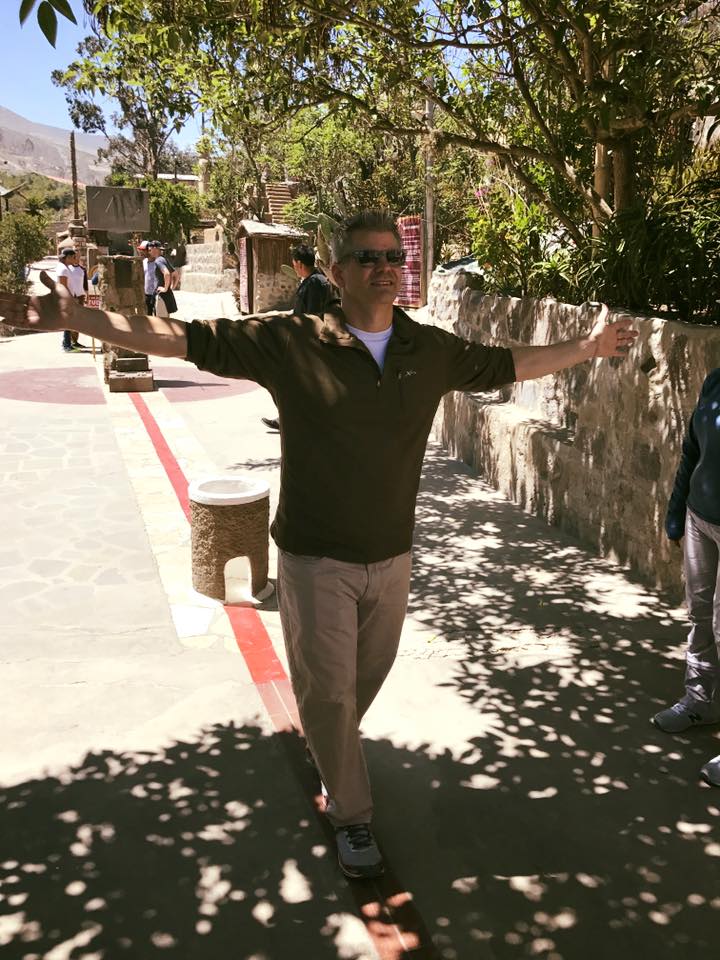 Once the experiments are over, you are lead through their gift shop (of course), and then, on your way out, you can get your passport stamped with this cool little stamp!
Once the experiments are over, you are lead through their gift shop (of course), and then, on your way out, you can get your passport stamped with this cool little stamp!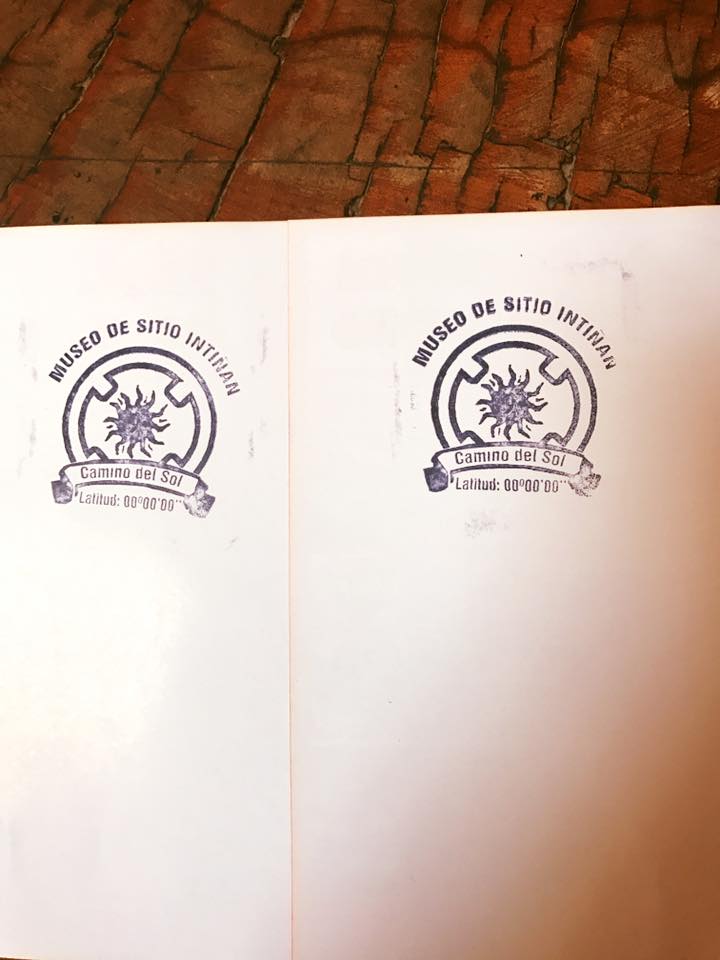
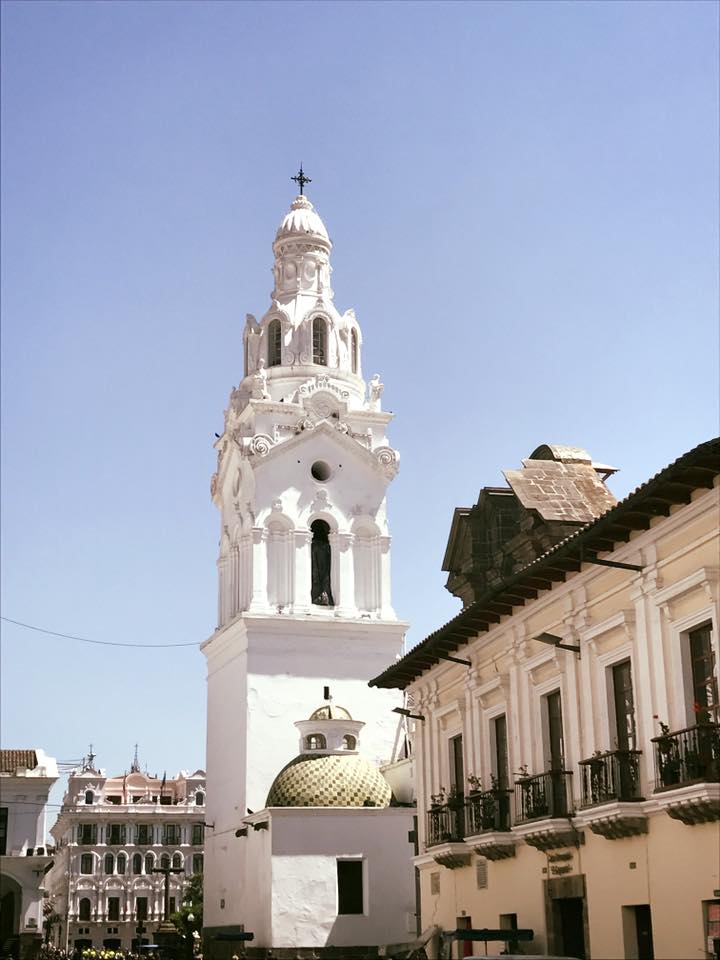
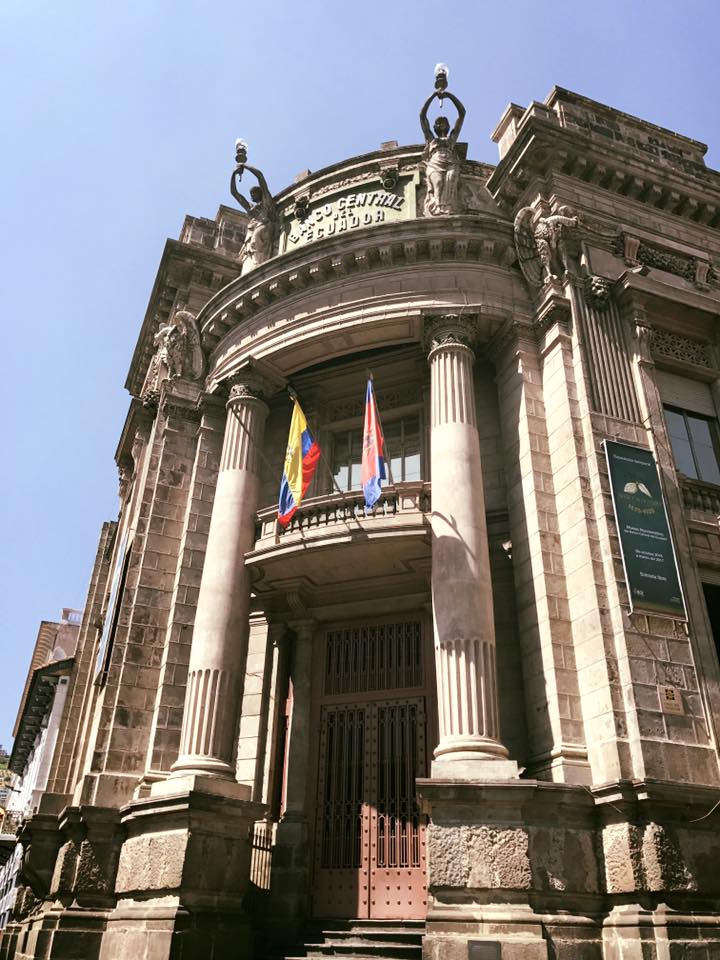


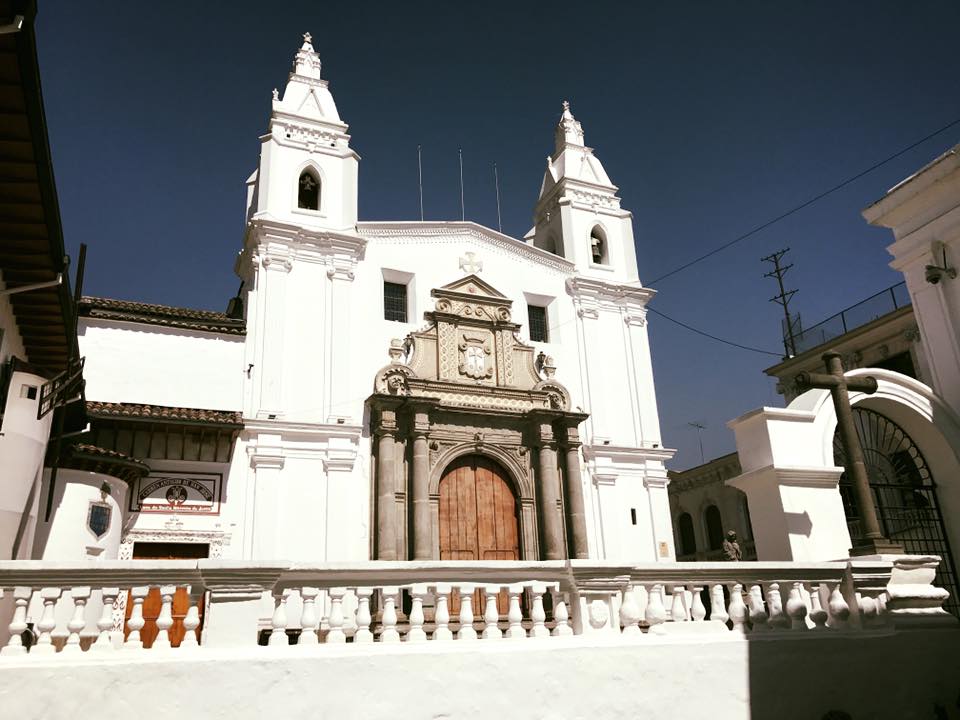
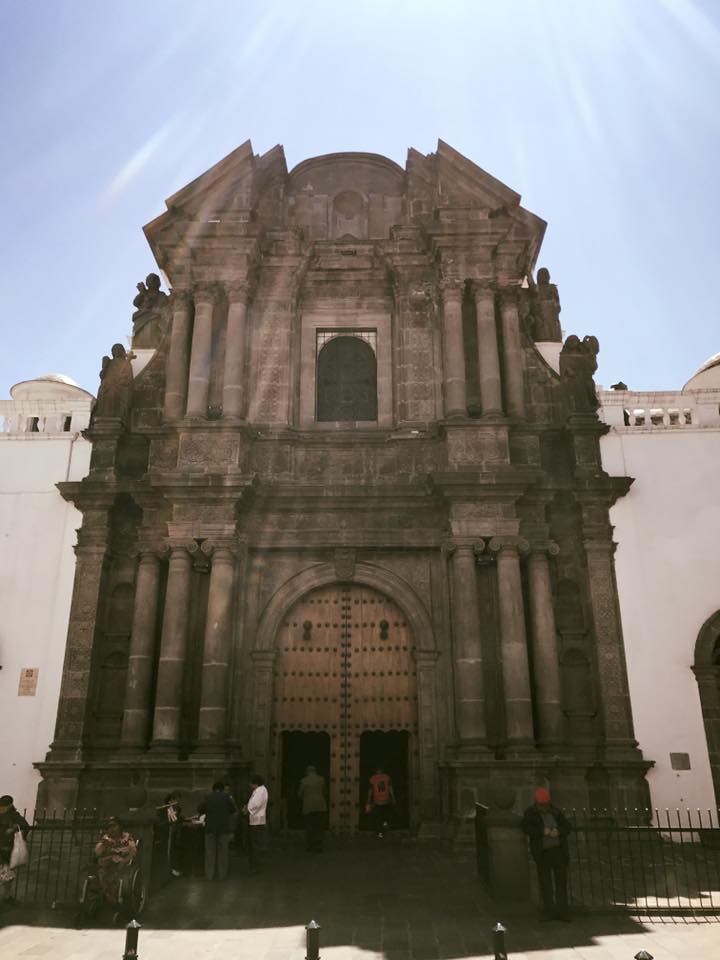



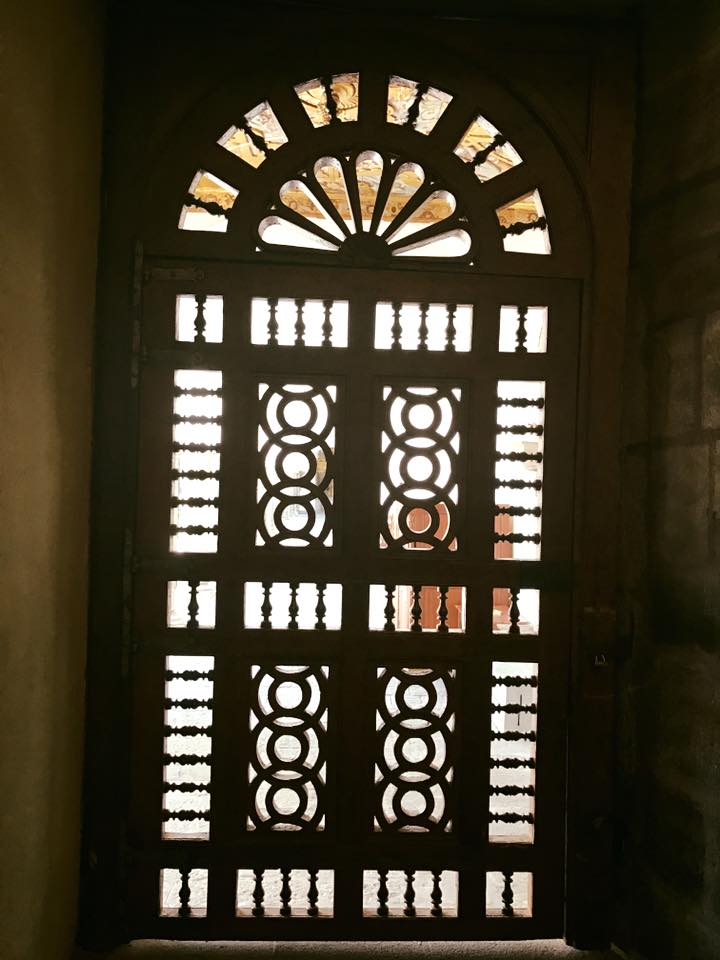


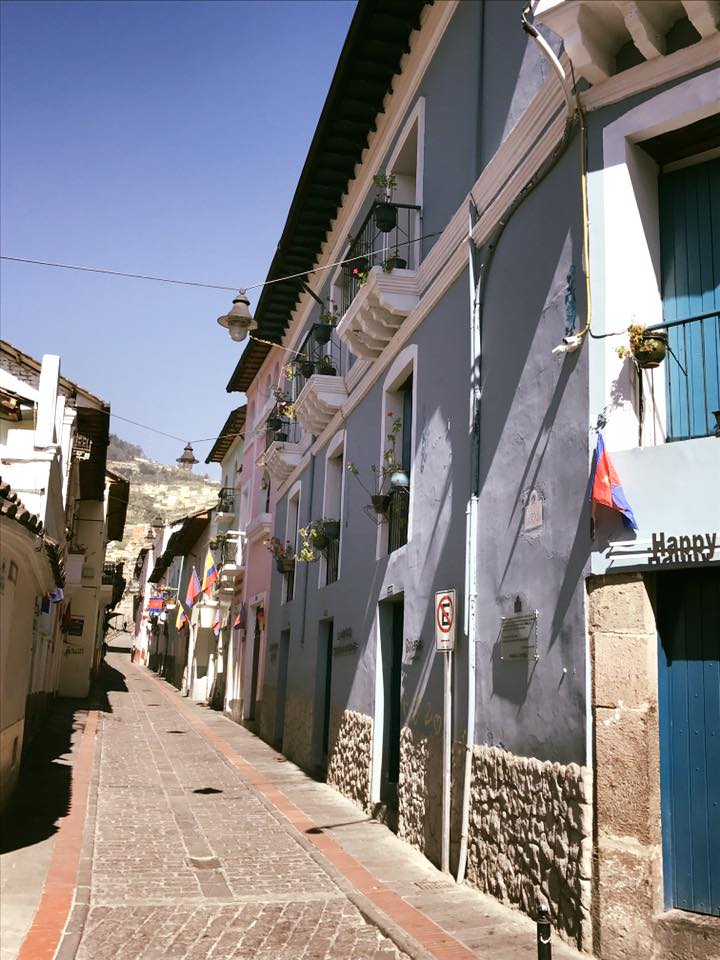
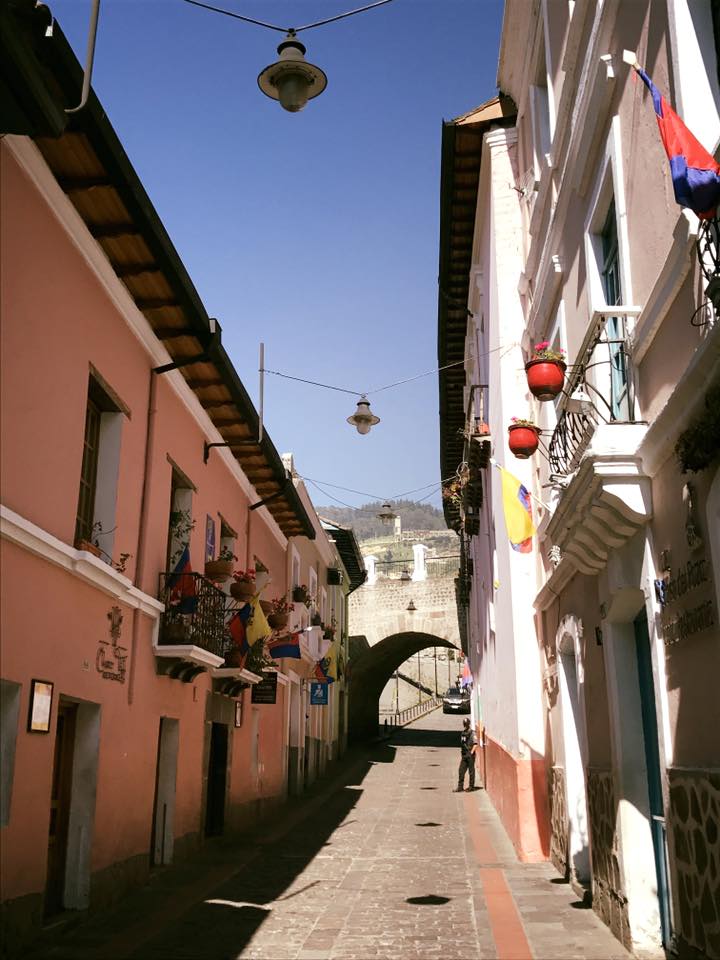
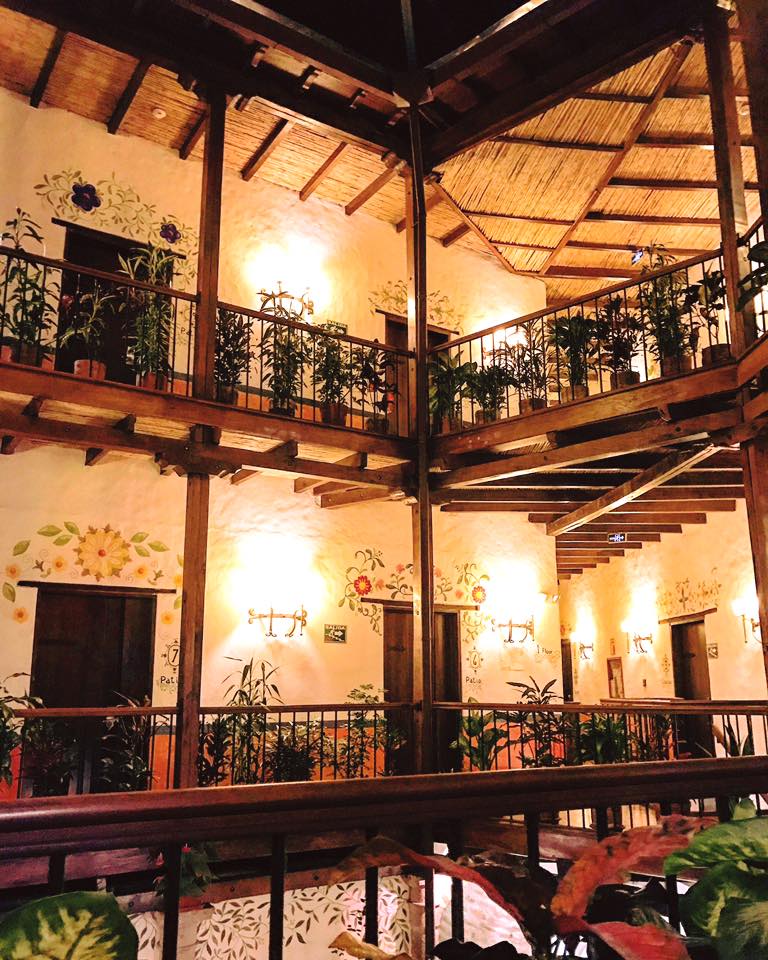 If you have just one day to visit Quito, make it a Monday. Why Monday, you ask? Well, every Monday morning at around 11:00 a.m., the president of Ecuador comes out to say, “Hola,” and gives a progress report. Pageantry ensues. Think of it as your welcome party. I did!
If you have just one day to visit Quito, make it a Monday. Why Monday, you ask? Well, every Monday morning at around 11:00 a.m., the president of Ecuador comes out to say, “Hola,” and gives a progress report. Pageantry ensues. Think of it as your welcome party. I did!
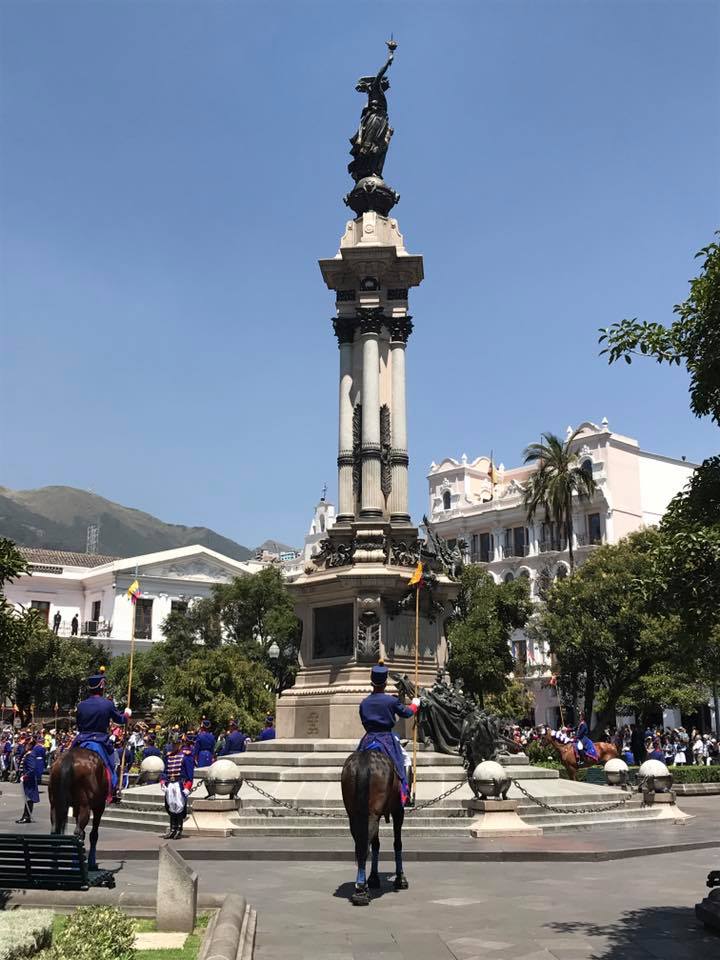
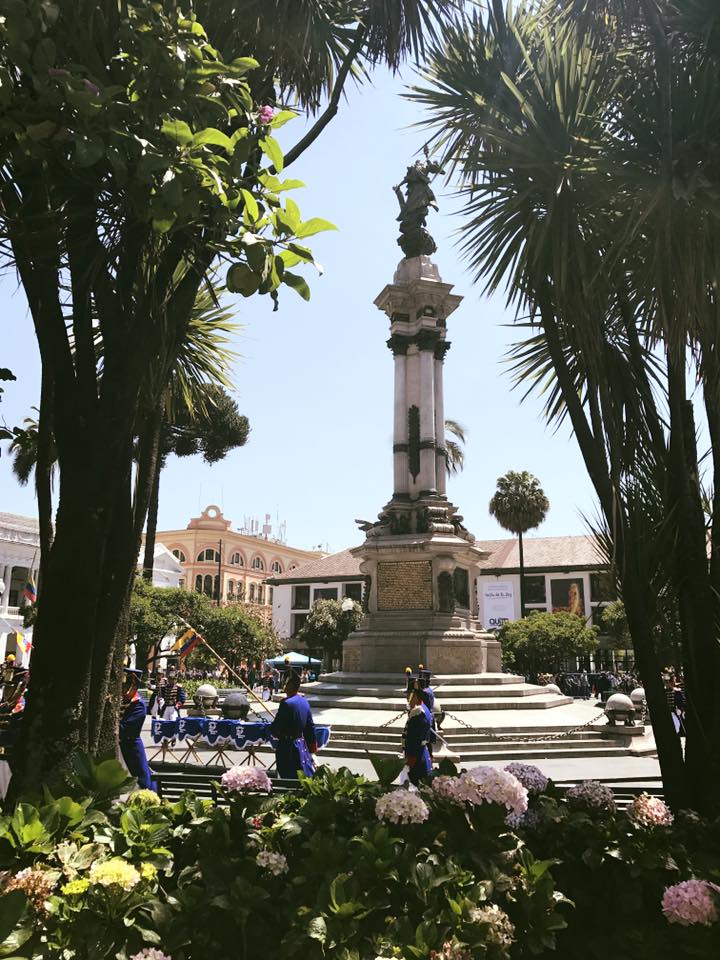
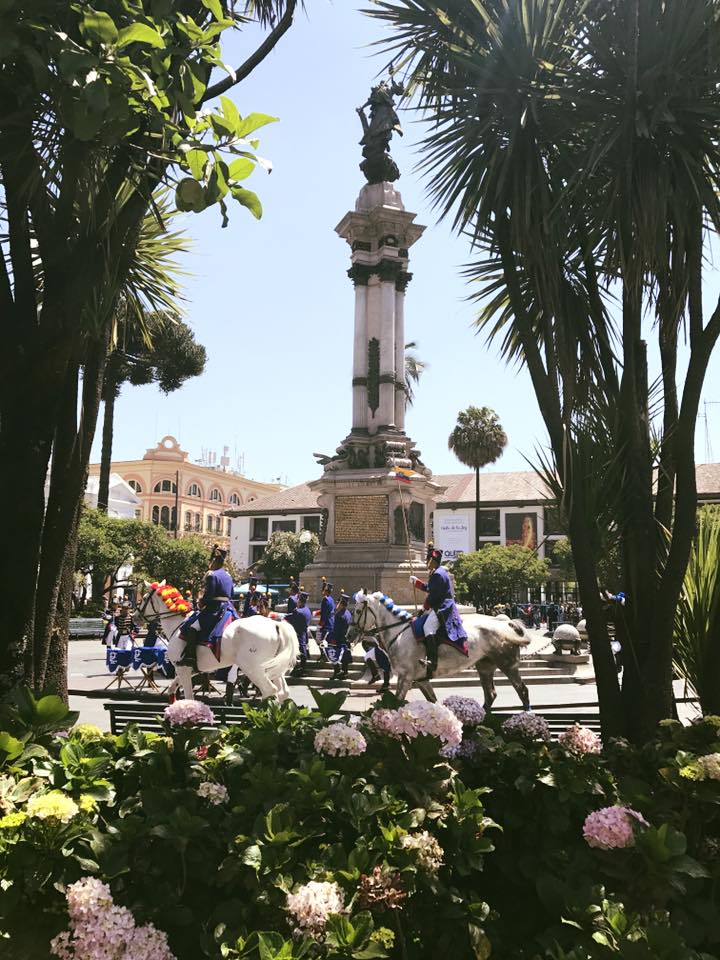
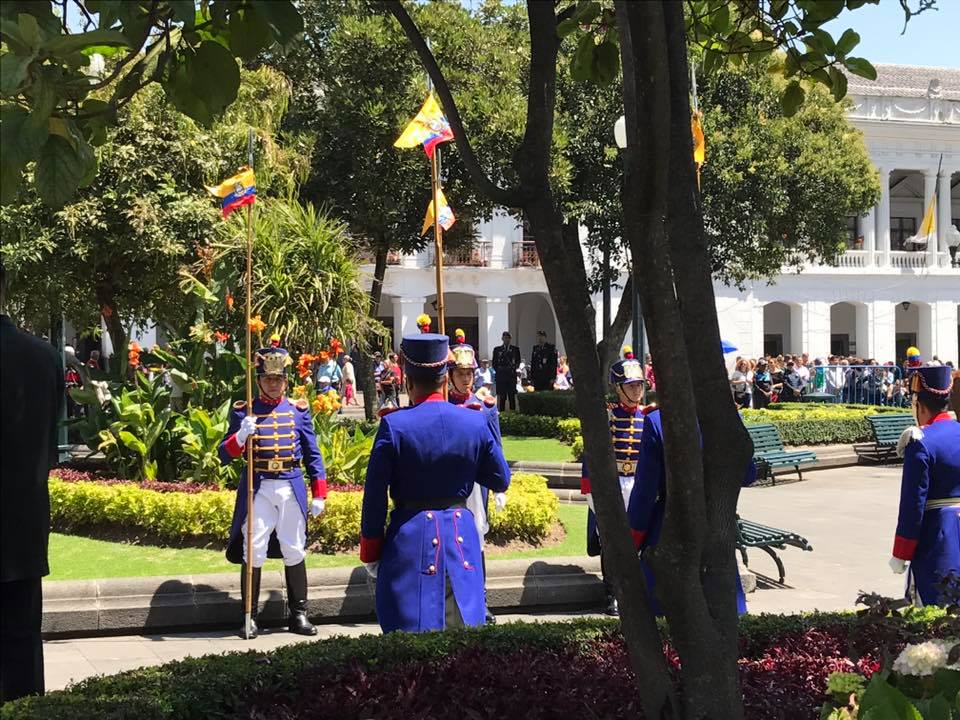

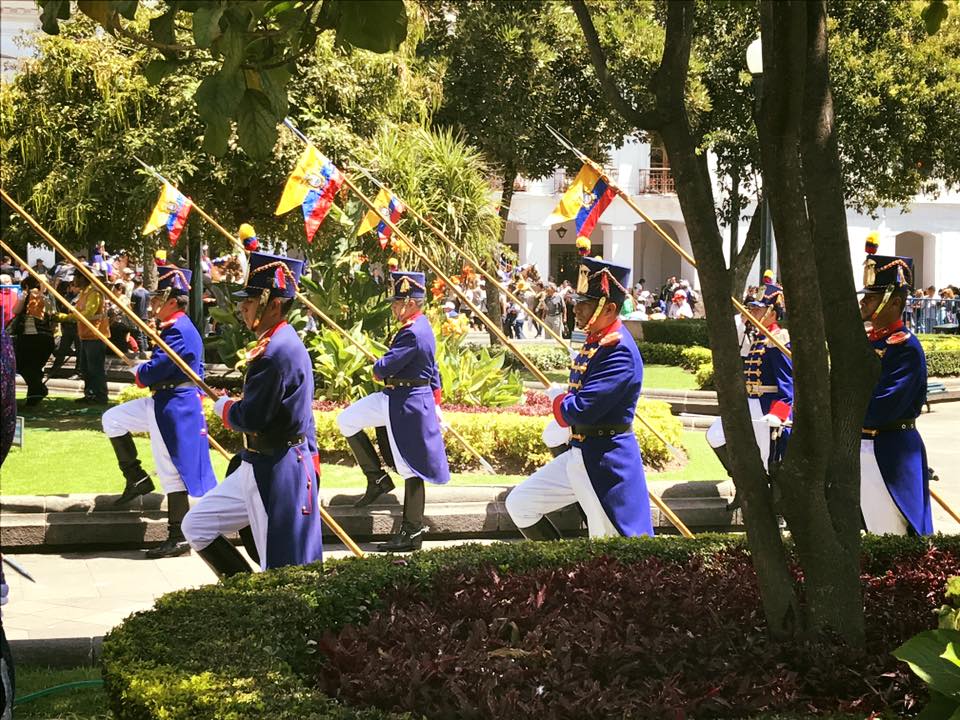

 Unlike some other Latin American cities (like Cartagena, for example), the street art scene hasn’t really taken off here, but there are a couple of pieces around the city.
Unlike some other Latin American cities (like Cartagena, for example), the street art scene hasn’t really taken off here, but there are a couple of pieces around the city.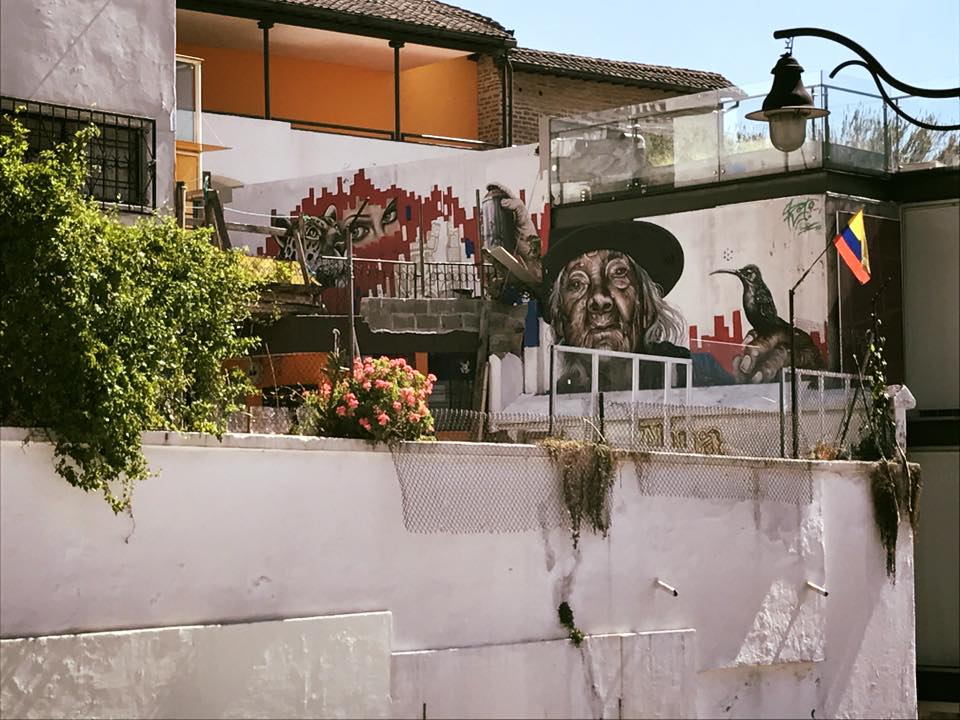

 There are other charming and, quite frankly, odd things about this city, too. For example, every day, the indigenous people from the surrounding villages come into town to sell their produce for really cheap on the streets. There is kind of a constant farmer’s market around the city, and they are typically traditionally dressed. That’s the charming part.
There are other charming and, quite frankly, odd things about this city, too. For example, every day, the indigenous people from the surrounding villages come into town to sell their produce for really cheap on the streets. There is kind of a constant farmer’s market around the city, and they are typically traditionally dressed. That’s the charming part.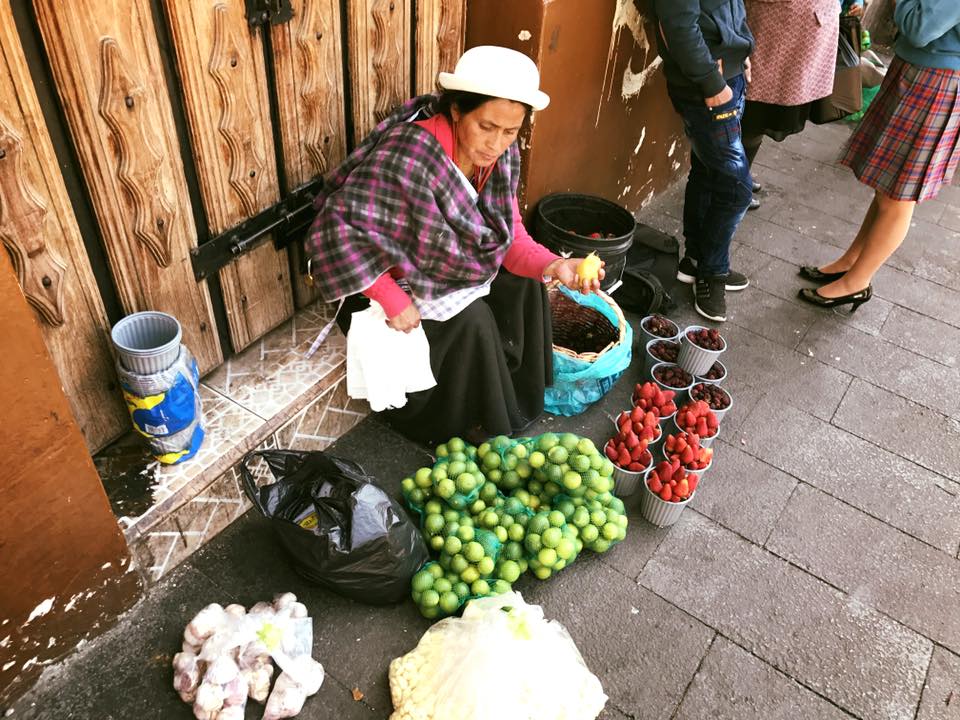
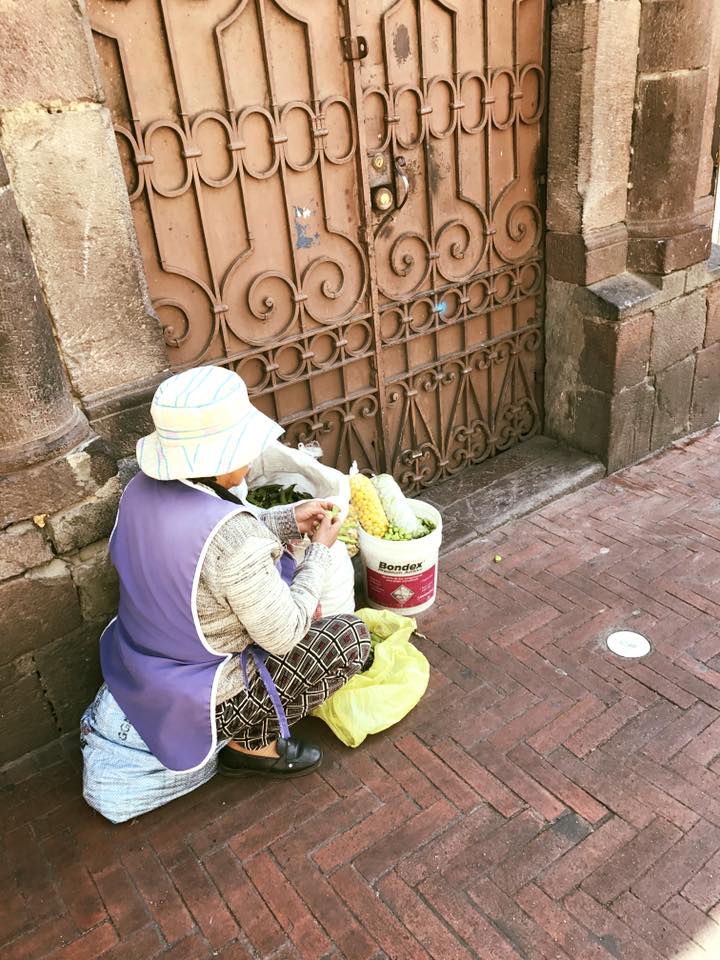
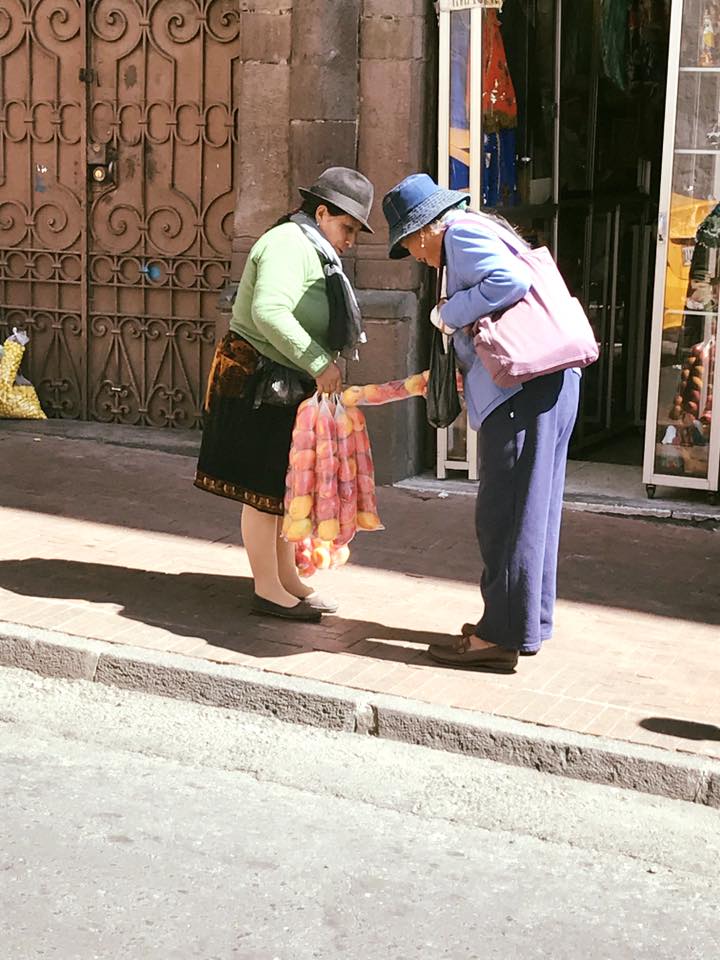
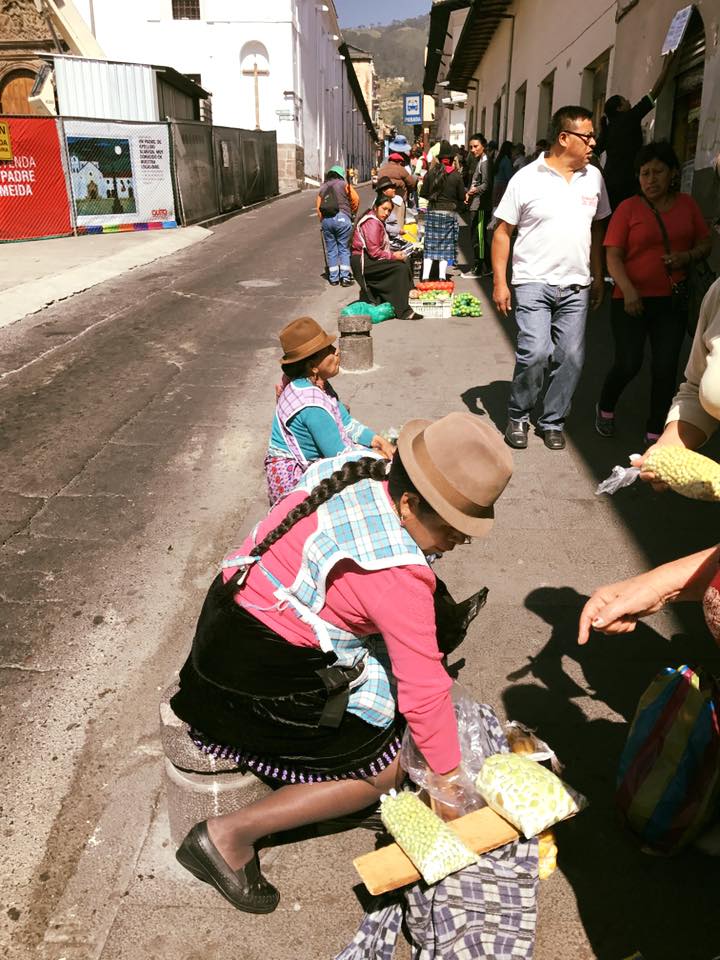
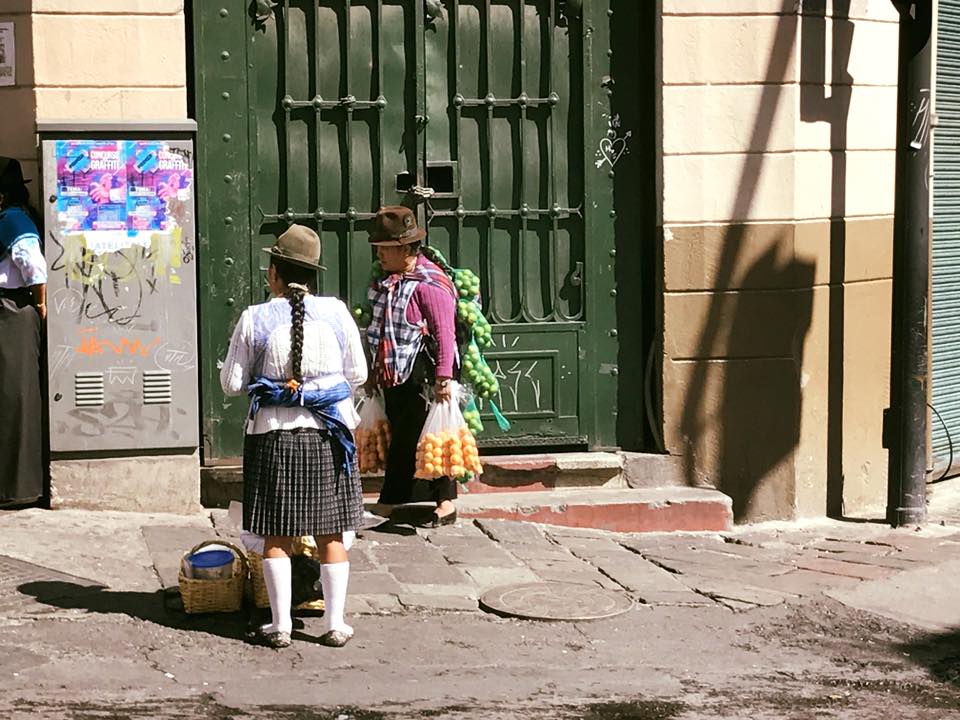 And then there is this guy. Apparently, he’s the weight police. He sits outside with a scale, and for $.25 USD, he will weigh you (by the way, the official currency in Ecuador is the U.S. Dollar). Why on earth anyone wants this service is beyond me. Public weighing?!? No, thanks! According to our guide, many people don’t have scales in their home, but they like to weigh themselves, so they come weekly, and some come daily. The only saving grace is that, apparently, you weigh 2 pounds less on the equator, which may be enough to have me just move here for good!
And then there is this guy. Apparently, he’s the weight police. He sits outside with a scale, and for $.25 USD, he will weigh you (by the way, the official currency in Ecuador is the U.S. Dollar). Why on earth anyone wants this service is beyond me. Public weighing?!? No, thanks! According to our guide, many people don’t have scales in their home, but they like to weigh themselves, so they come weekly, and some come daily. The only saving grace is that, apparently, you weigh 2 pounds less on the equator, which may be enough to have me just move here for good! Another interesting facet to this city is that in Quito – more so than in other Latin American countries – the melding of the Catholic religion with the secular culture of the indigenous people is more pronounced and pervasive in daily life. Case in point: on almost every corner, you can find a Jesus store. These stores sell figurines that are supposed to be depictions of Jesus from all walks of life. People buy various “Jesus dolls” for prayer, offerings, and good luck. For example, we saw baby “Cheff” Boyardee Jesus and many other kinds of Jesus, like gaucho pilgrim Jesus, scales of justice Jesus (or as Chad called him, baby lawyer Jesus), and Pope Jesus. Please don’t construe this as sacrilege; rather, simply a statement of fact about what you will find in Quito.
Another interesting facet to this city is that in Quito – more so than in other Latin American countries – the melding of the Catholic religion with the secular culture of the indigenous people is more pronounced and pervasive in daily life. Case in point: on almost every corner, you can find a Jesus store. These stores sell figurines that are supposed to be depictions of Jesus from all walks of life. People buy various “Jesus dolls” for prayer, offerings, and good luck. For example, we saw baby “Cheff” Boyardee Jesus and many other kinds of Jesus, like gaucho pilgrim Jesus, scales of justice Jesus (or as Chad called him, baby lawyer Jesus), and Pope Jesus. Please don’t construe this as sacrilege; rather, simply a statement of fact about what you will find in Quito.

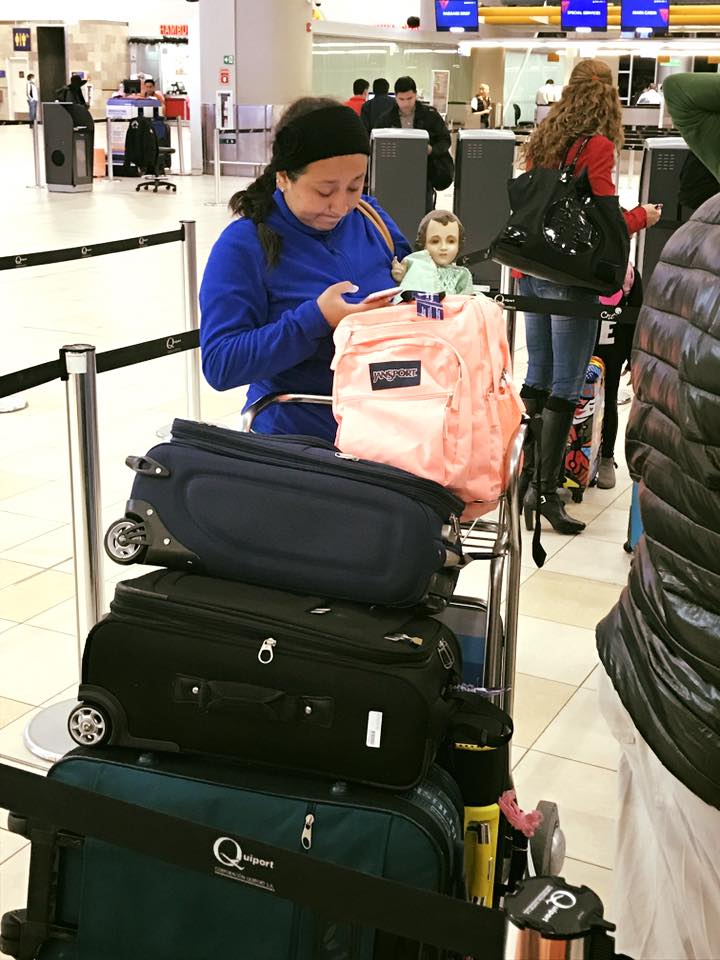 People actually buy and use these Jesus dolls – as exemplified by this girl, who we saw checking into our flight back home with baby airplane Jesus.
People actually buy and use these Jesus dolls – as exemplified by this girl, who we saw checking into our flight back home with baby airplane Jesus.

 And, you will find a cute and delicious ice cream spot called Dulce Placer Heladeria. Everything is homemade using local ingredients, and you can enjoy the ice cream on a small colonial balcony overlooking the neighborhood.
And, you will find a cute and delicious ice cream spot called Dulce Placer Heladeria. Everything is homemade using local ingredients, and you can enjoy the ice cream on a small colonial balcony overlooking the neighborhood.
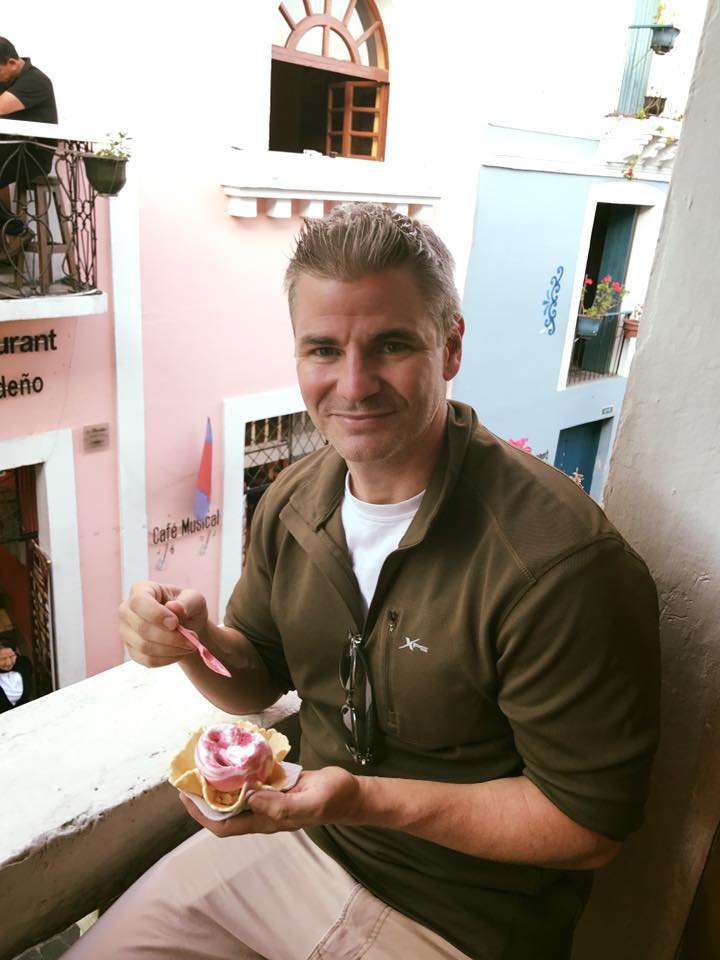 If you have more time to spend in Quito, consider a hike up Pichincha Volcano to the lookout point called Cruz Loma. If hiking isn’t your thing, take the TeleferiQo Cruz Loma, which is the highest aerial lift in the world, rising from 10,226 feet to 12,943 feet. There are also a few day trips that you can take, like a trip to the National Park of Cotopaxi and the Cotopaxi Volcano, a trip to the Mindo Nambillo Cloud Forest, a trip to the indigenous markets of Otavalo and/or CotaCachi, a trip to the Papallacta Thermal Baths, or the one I was most interested in, a day-trip to Lake Quilotoa, a crater lagoon.
If you have more time to spend in Quito, consider a hike up Pichincha Volcano to the lookout point called Cruz Loma. If hiking isn’t your thing, take the TeleferiQo Cruz Loma, which is the highest aerial lift in the world, rising from 10,226 feet to 12,943 feet. There are also a few day trips that you can take, like a trip to the National Park of Cotopaxi and the Cotopaxi Volcano, a trip to the Mindo Nambillo Cloud Forest, a trip to the indigenous markets of Otavalo and/or CotaCachi, a trip to the Papallacta Thermal Baths, or the one I was most interested in, a day-trip to Lake Quilotoa, a crater lagoon.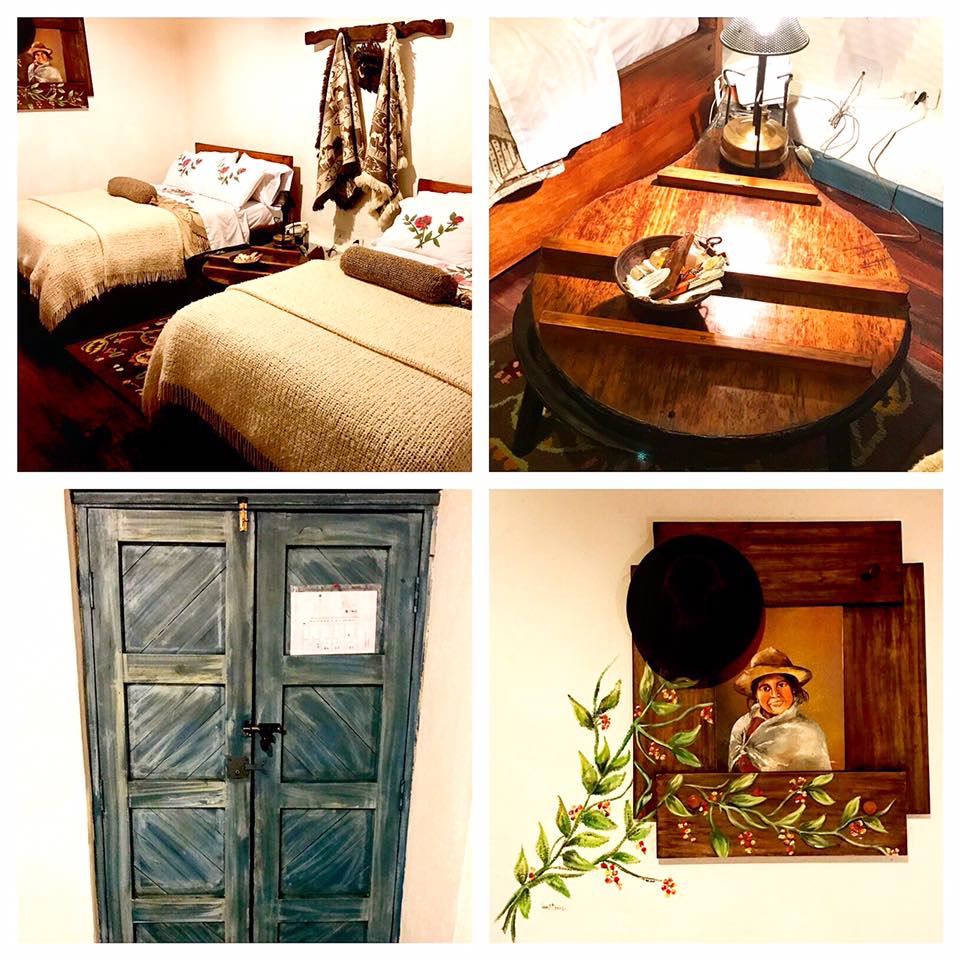
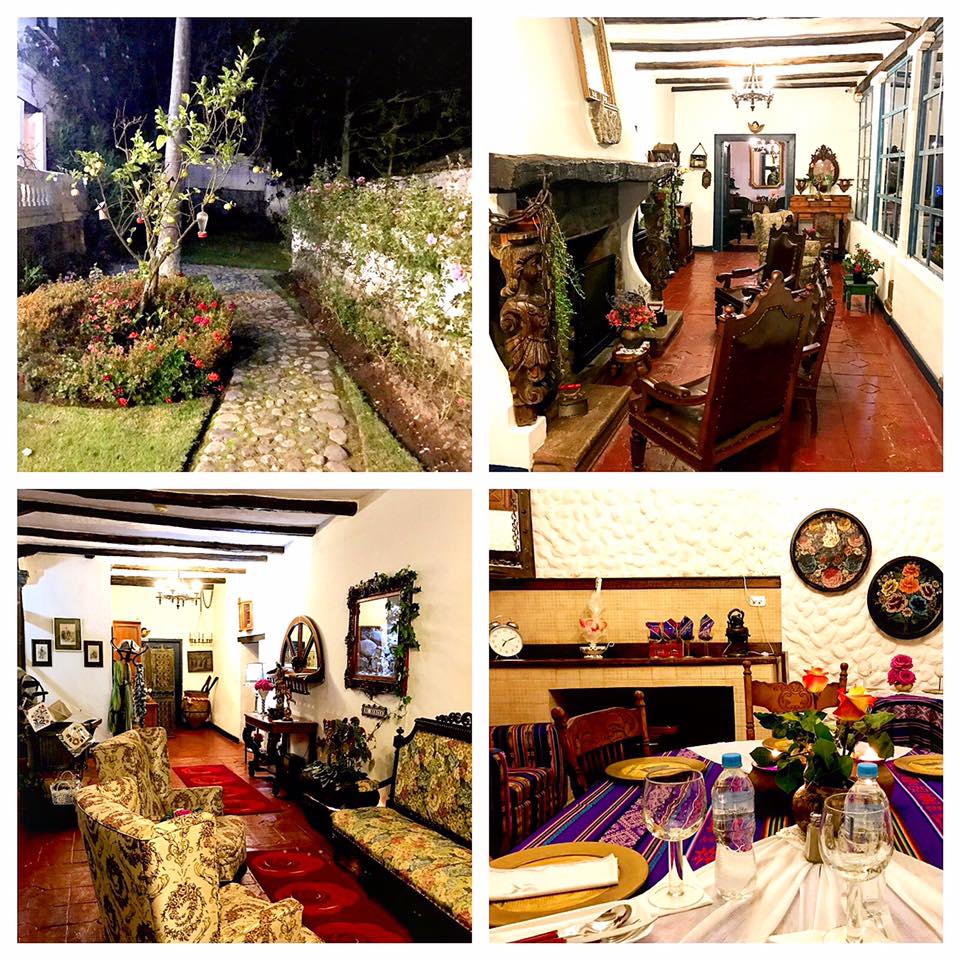
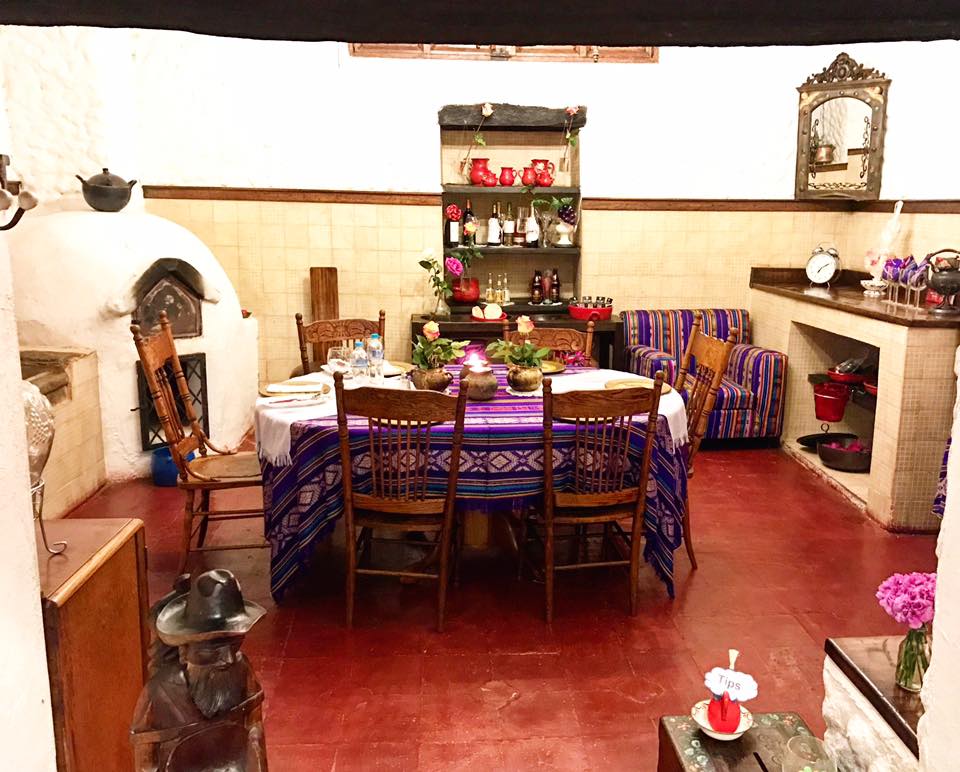

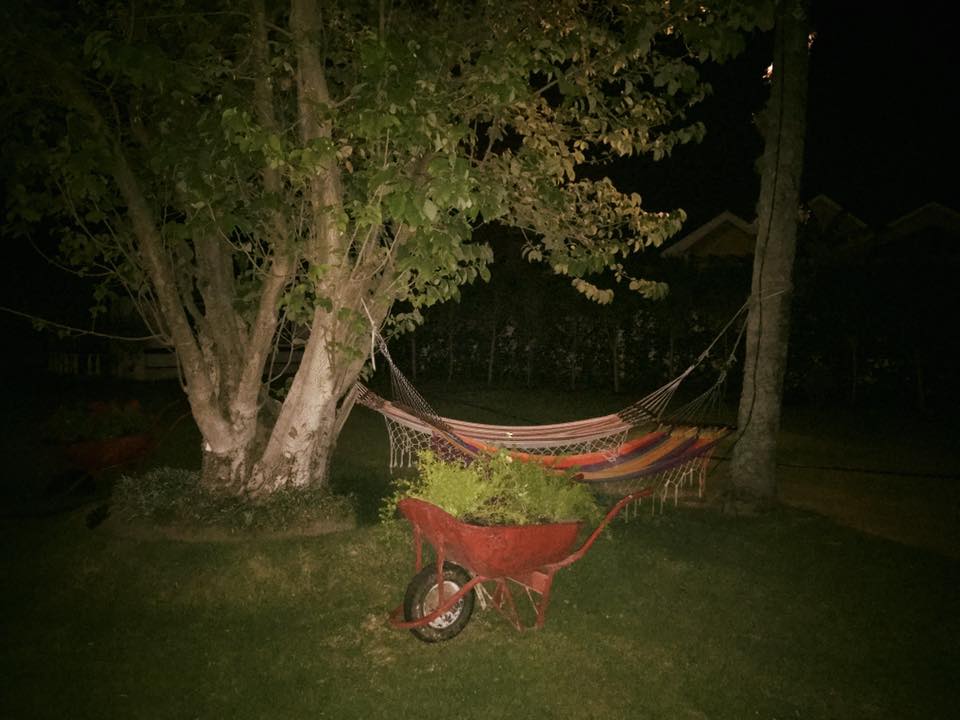
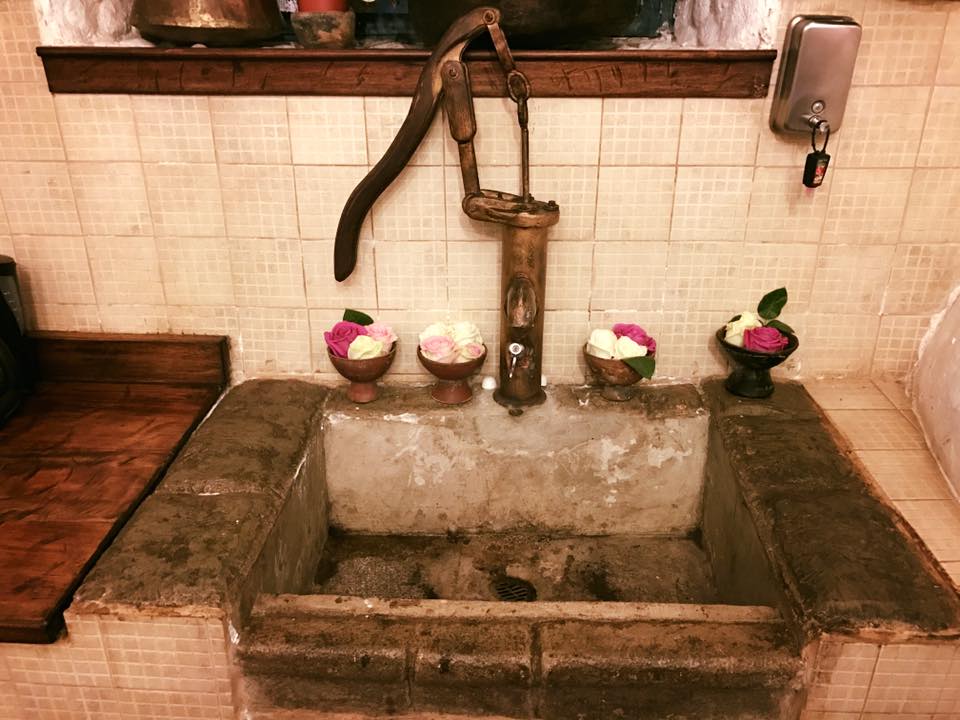
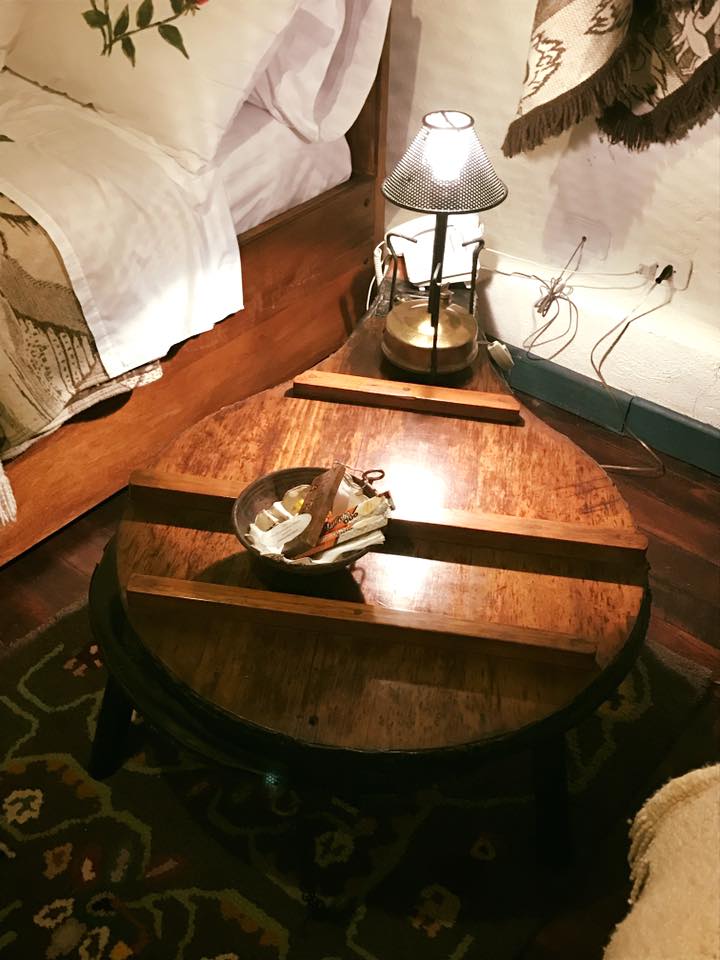
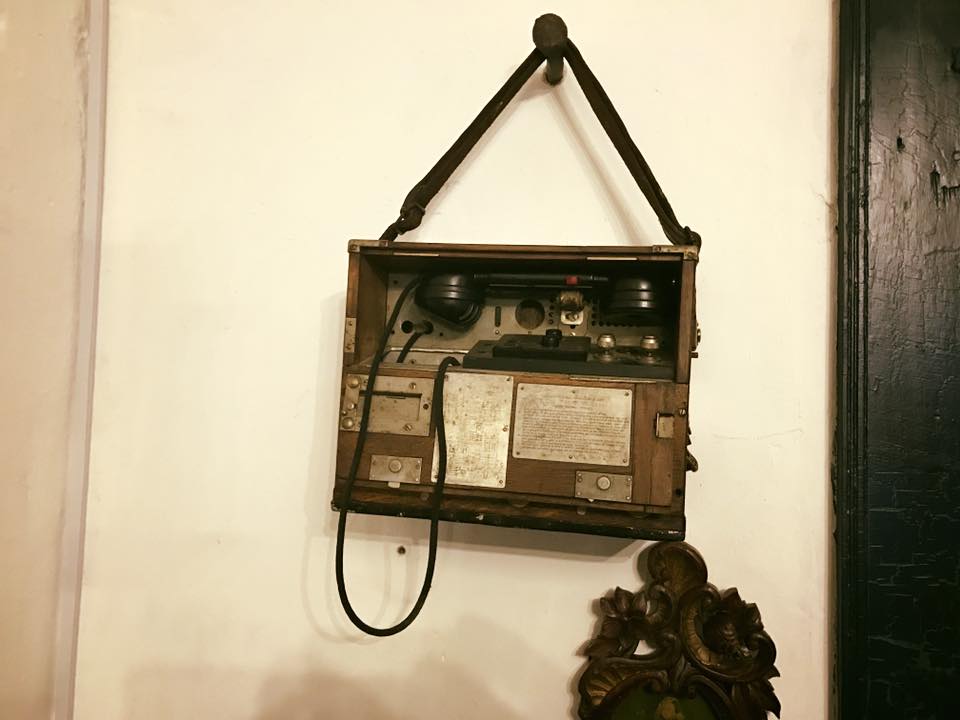
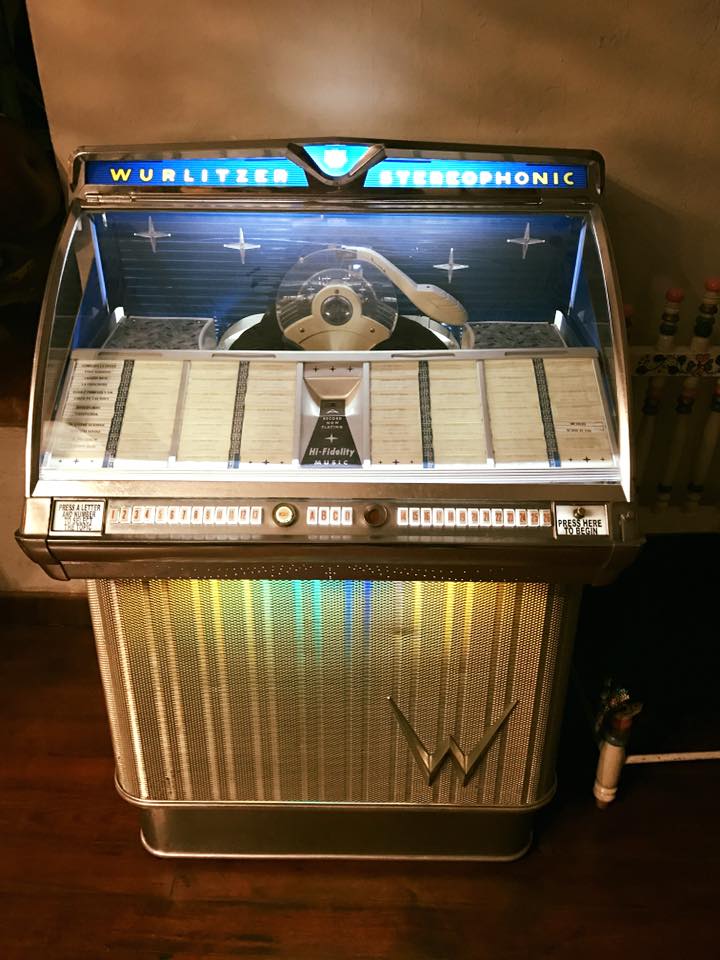
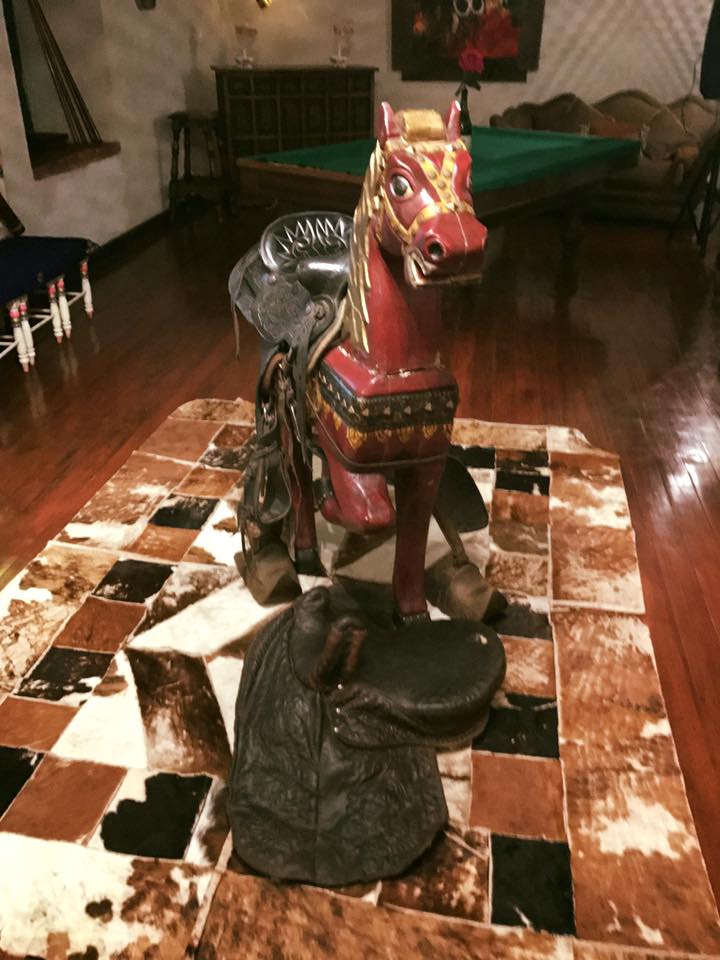
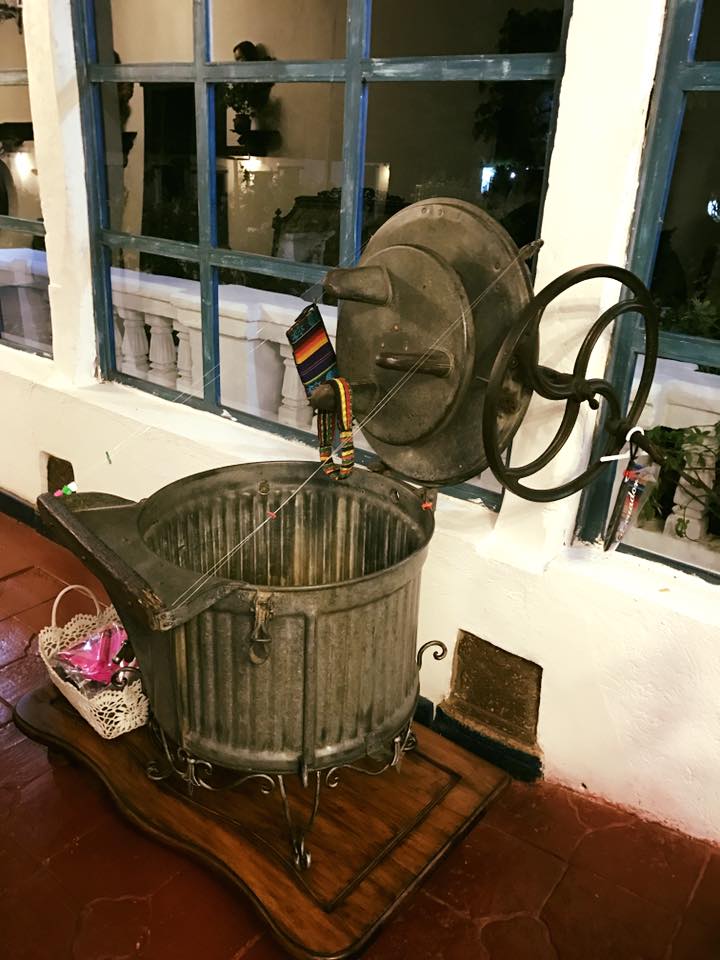 I hope you enjoyed this post. Have you visited the middle of the world? If so, I would love to hear about it. Please send me an email or leave a comment below. If this post has inspired you to travel to Quito, helped you plan your trip there or gave you tips during your travels, I would also love to hear about it!
I hope you enjoyed this post. Have you visited the middle of the world? If so, I would love to hear about it. Please send me an email or leave a comment below. If this post has inspired you to travel to Quito, helped you plan your trip there or gave you tips during your travels, I would also love to hear about it!

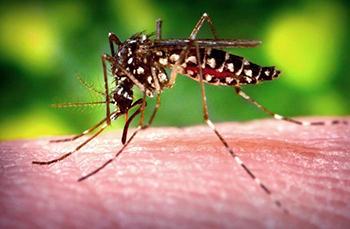 If you are a regular reader of this blog, then you know two things. The first is that I am a meticulous pre-trip planner, which includes taking all proper precautions for vaccines and clothing treatment before we go abroad and bringing the best bug repellent I can find along with us on trips. The second is that Chad and I seem to be on the Zika World Tour this year. By the time this year ends, we will have visited the Caribbean and South America four times, and we live in South Florida: the first location in the United States to report a Zika outbreak.
If you are a regular reader of this blog, then you know two things. The first is that I am a meticulous pre-trip planner, which includes taking all proper precautions for vaccines and clothing treatment before we go abroad and bringing the best bug repellent I can find along with us on trips. The second is that Chad and I seem to be on the Zika World Tour this year. By the time this year ends, we will have visited the Caribbean and South America four times, and we live in South Florida: the first location in the United States to report a Zika outbreak.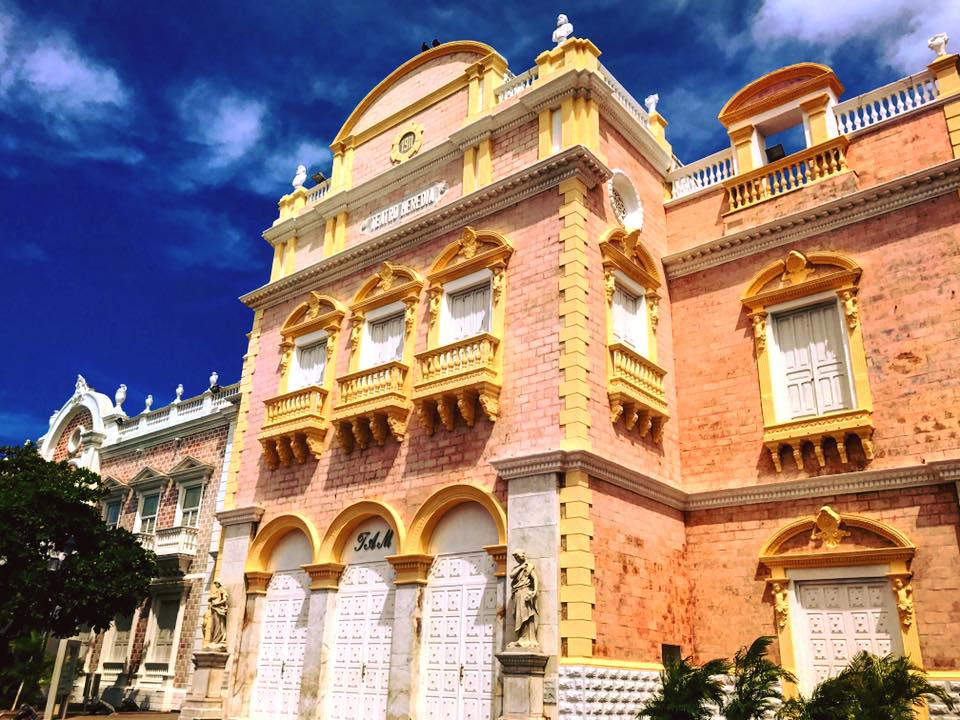 The colorful concrete rainbow that is the historic district in Cartagena, Colombia is certainly captivating, especially for photographers and architecture lovers alike. Every color on the spectrum can be found painted onto the colonial-styled buildings. Cartagena is eye candy for days. But how did the city get so colorful? Well, as the story goes, Cartagena originally had a law that required all buildings to be white. One day, a very entrepreneurial eye doctor (one who happened to own a paint company) convinced the government that the strong beams of the sun’s rays reflecting off of the city’s all white buildings was ruining its citizens’ eyesight. The city fathers agreed, the law was changed, and the doctor retired from medicine to preside over his booming paint business! Okay, I may be taking some editorial liberties on the retirement part, but I imagine that’s what happened. Regardless, thanks to this enterprising ophthalmologist, we now have a kaleidoscope of colors to enjoy in Cartagena!
The colorful concrete rainbow that is the historic district in Cartagena, Colombia is certainly captivating, especially for photographers and architecture lovers alike. Every color on the spectrum can be found painted onto the colonial-styled buildings. Cartagena is eye candy for days. But how did the city get so colorful? Well, as the story goes, Cartagena originally had a law that required all buildings to be white. One day, a very entrepreneurial eye doctor (one who happened to own a paint company) convinced the government that the strong beams of the sun’s rays reflecting off of the city’s all white buildings was ruining its citizens’ eyesight. The city fathers agreed, the law was changed, and the doctor retired from medicine to preside over his booming paint business! Okay, I may be taking some editorial liberties on the retirement part, but I imagine that’s what happened. Regardless, thanks to this enterprising ophthalmologist, we now have a kaleidoscope of colors to enjoy in Cartagena!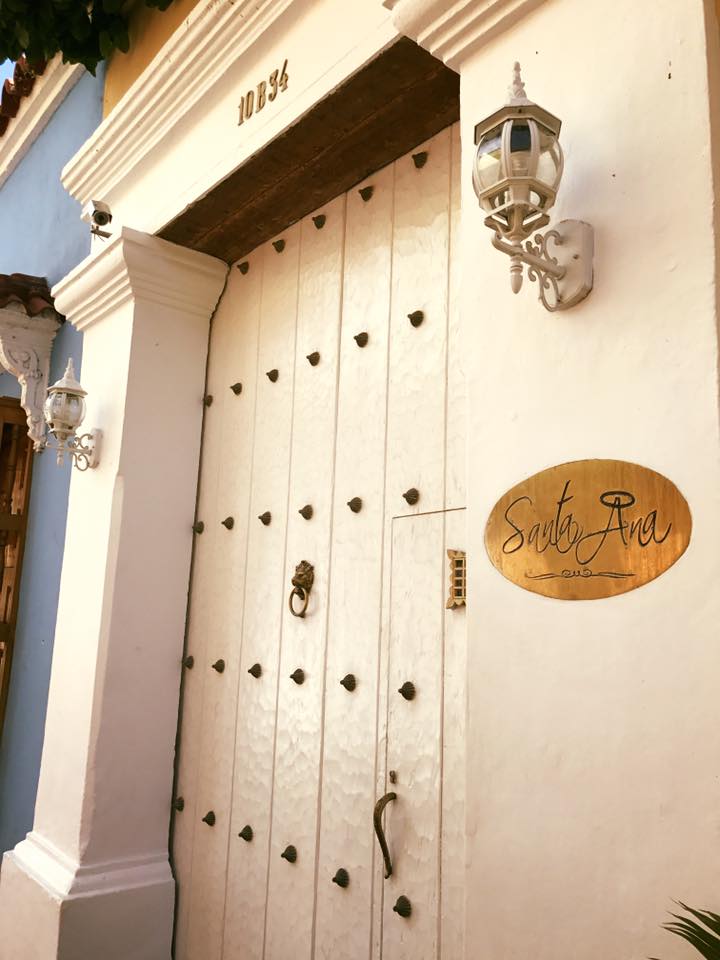
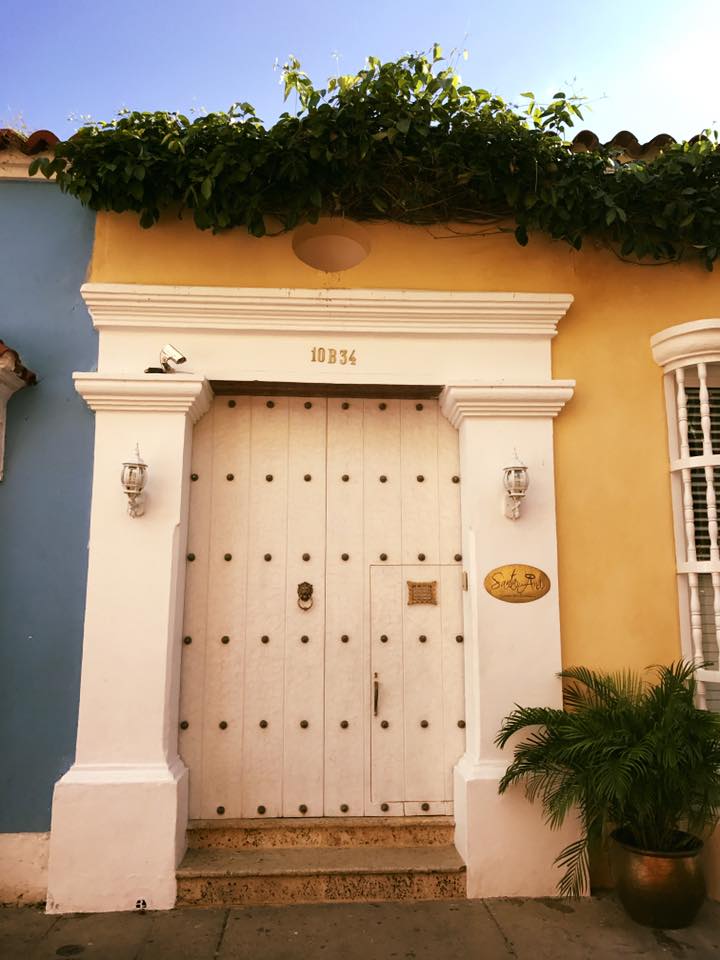 To get here, you stay to the left of this church and go half way down the first street on your left hand side. The hotel will be on your right. By the way, this church is the Getsemani central meeting spot. At night, locals and some tourists alike join the sea of street vendors selling food from carts and street performers. In Cartagena, music is always playing. Every day and all day long.
To get here, you stay to the left of this church and go half way down the first street on your left hand side. The hotel will be on your right. By the way, this church is the Getsemani central meeting spot. At night, locals and some tourists alike join the sea of street vendors selling food from carts and street performers. In Cartagena, music is always playing. Every day and all day long.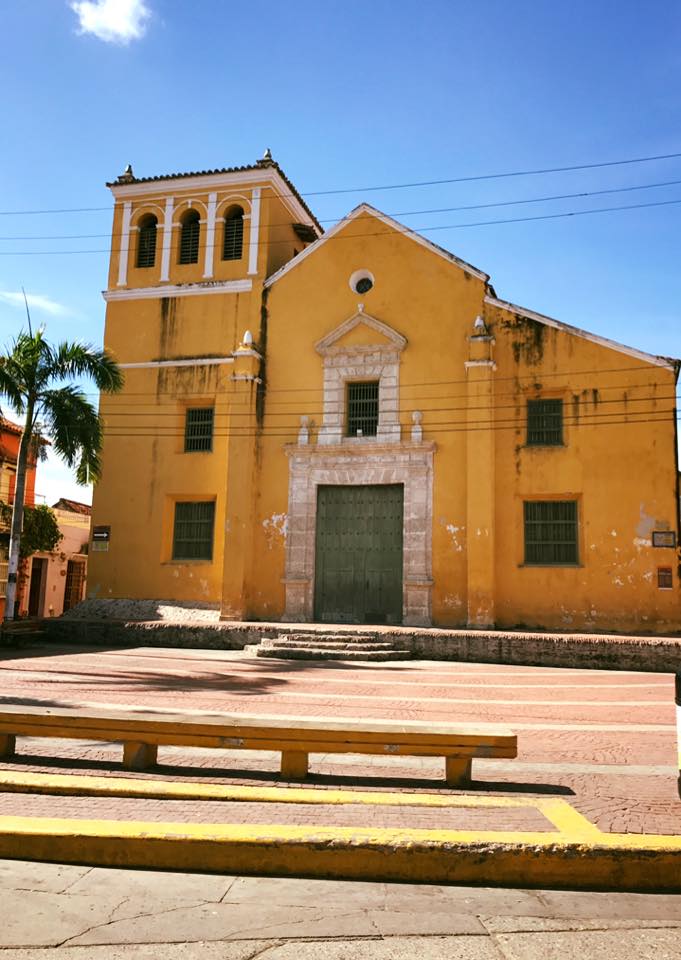
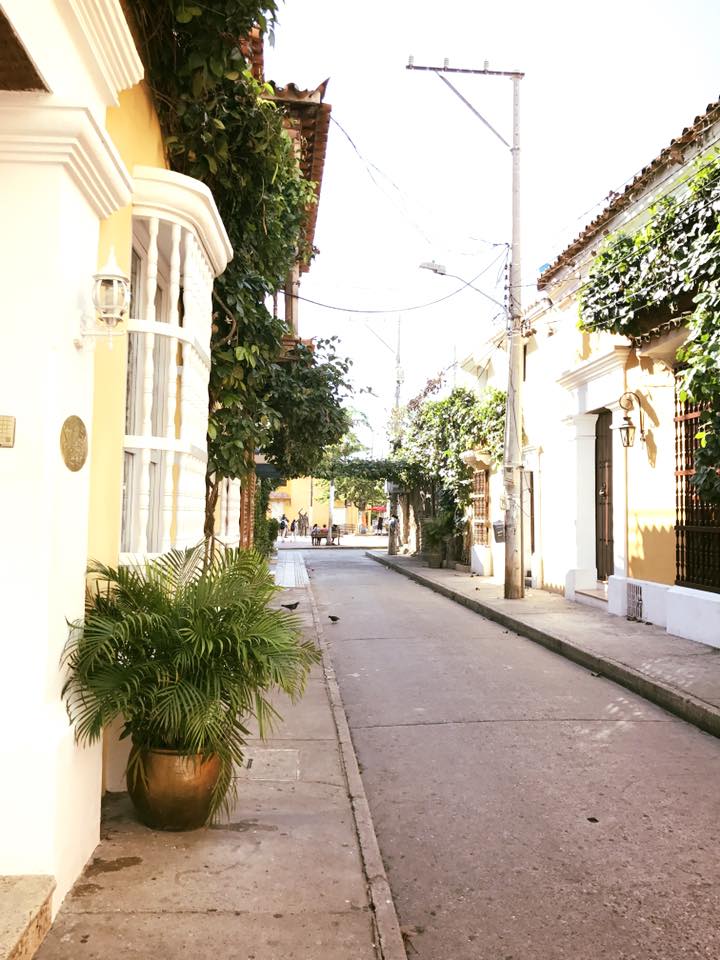 The staff here is super friendly and very helpful. Our room was ready right away. It was a nice-sized room with a comfortable queen size bed. It had an air-conditioner unit and 3 fans, two in the room and one in the bathroom. This may seem like overkill, but it’s not. Cartagena is HOT AND HUMID! Maybe one of the hottest places I’ve been, and I am a South Florida girl! It’s hotter than “winter” in Thailand and Cambodia. Plus, it is so close to the equator that it feels hotter. It’s hot during the day and at night.
The staff here is super friendly and very helpful. Our room was ready right away. It was a nice-sized room with a comfortable queen size bed. It had an air-conditioner unit and 3 fans, two in the room and one in the bathroom. This may seem like overkill, but it’s not. Cartagena is HOT AND HUMID! Maybe one of the hottest places I’ve been, and I am a South Florida girl! It’s hotter than “winter” in Thailand and Cambodia. Plus, it is so close to the equator that it feels hotter. It’s hot during the day and at night.


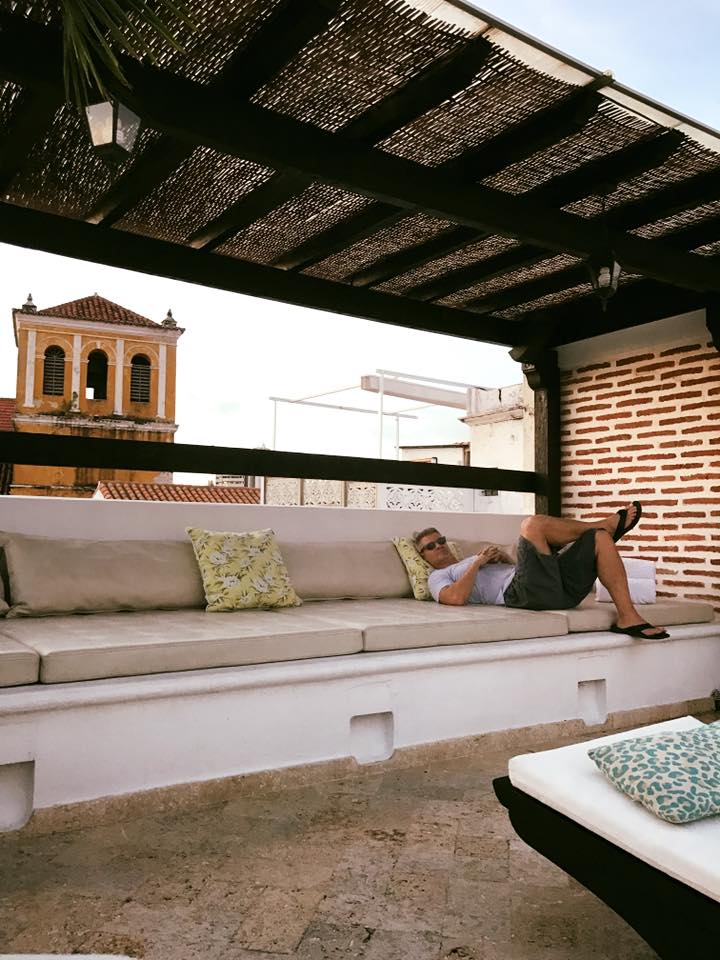 After checking in and dropping our bags, we made a bee-line into the walled city to meet our guide for our street food tour! This was sort of a last minute tour that we scheduled to fill the afternoon, but it ended up being one of the best because we got to try a lot of local street food from trusted vendors, learn some interesting things about the city, and see some beautiful street art. Most of the street food in Colombia is fried, so it is relatively safe to eat, but a good rule of thumb is to only eat from vendors that are actually cooking the food in front of you as opposed to vendors who are selling pre-made food.
After checking in and dropping our bags, we made a bee-line into the walled city to meet our guide for our street food tour! This was sort of a last minute tour that we scheduled to fill the afternoon, but it ended up being one of the best because we got to try a lot of local street food from trusted vendors, learn some interesting things about the city, and see some beautiful street art. Most of the street food in Colombia is fried, so it is relatively safe to eat, but a good rule of thumb is to only eat from vendors that are actually cooking the food in front of you as opposed to vendors who are selling pre-made food.
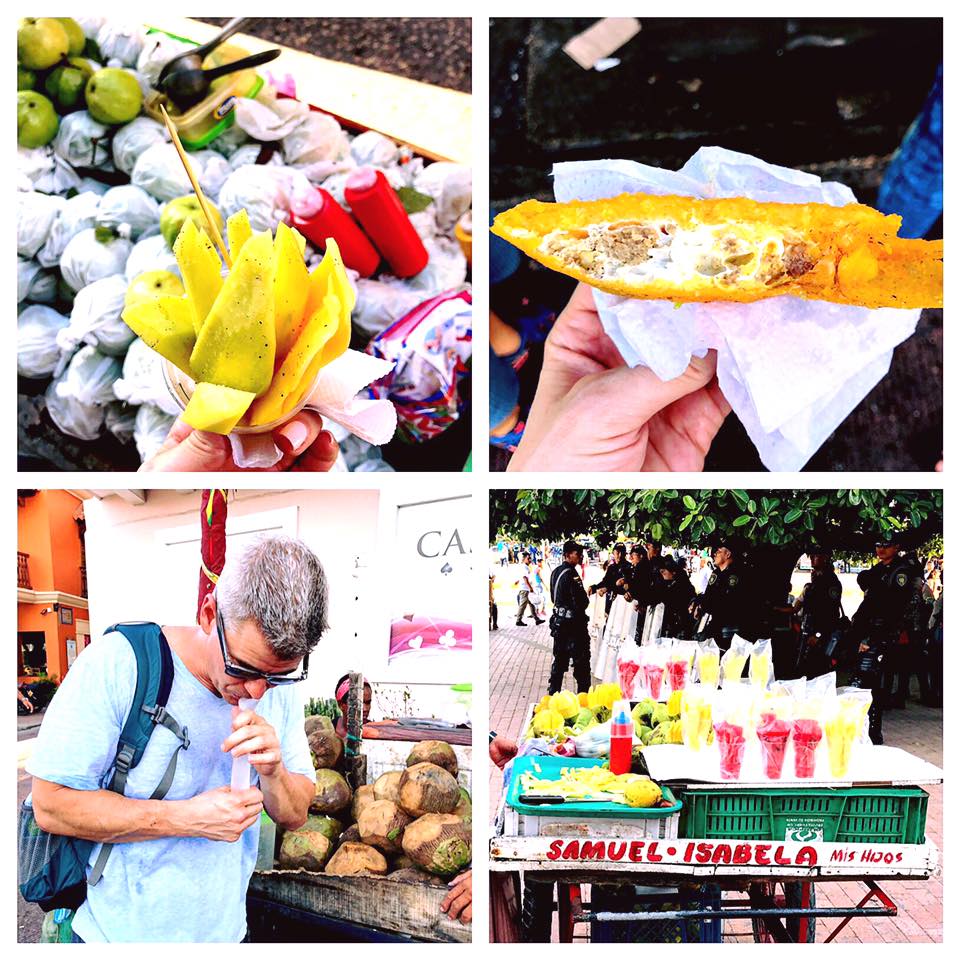 Local made cheese and guava on the go:
Local made cheese and guava on the go:


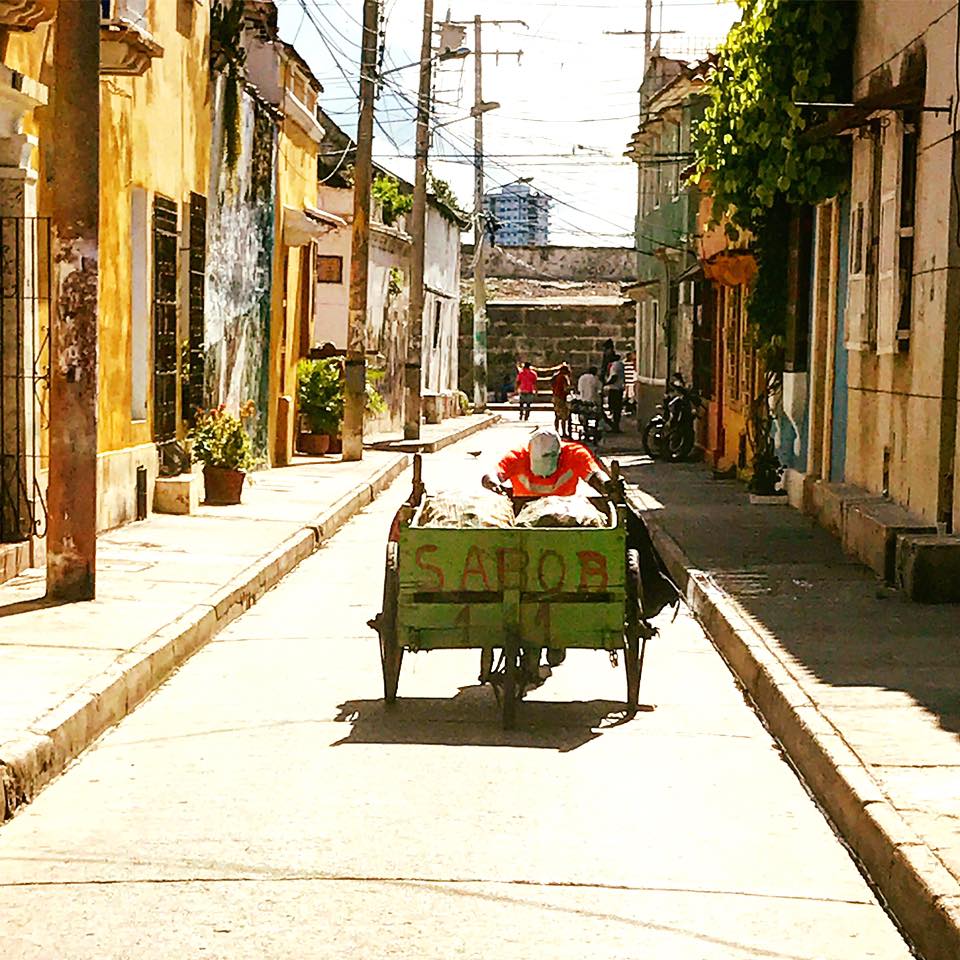 The street artists here are very talented. If you have ever been to Wynwood in Miami, this is similar, but not quite as big as Wynwood. It does, however, have a more interesting story.
The street artists here are very talented. If you have ever been to Wynwood in Miami, this is similar, but not quite as big as Wynwood. It does, however, have a more interesting story.
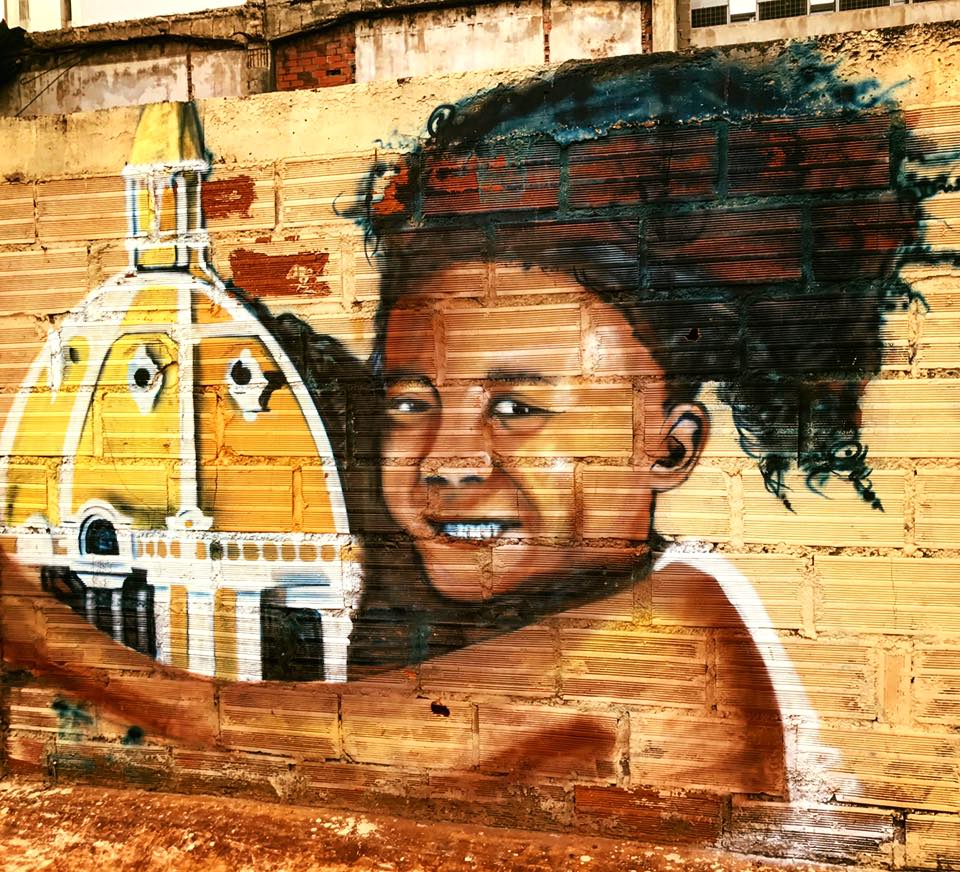
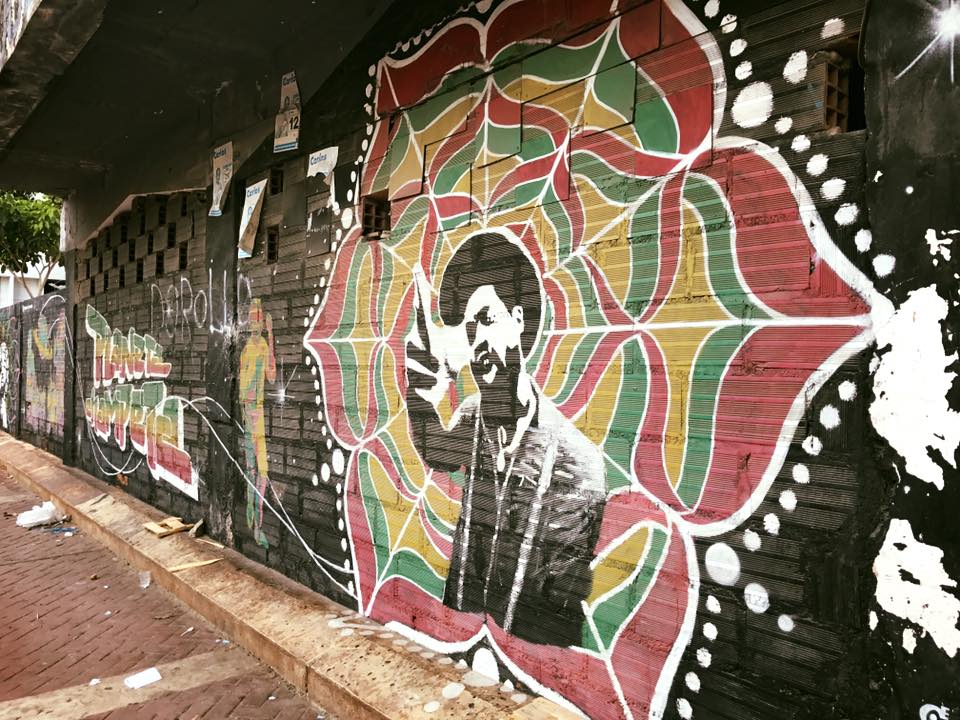
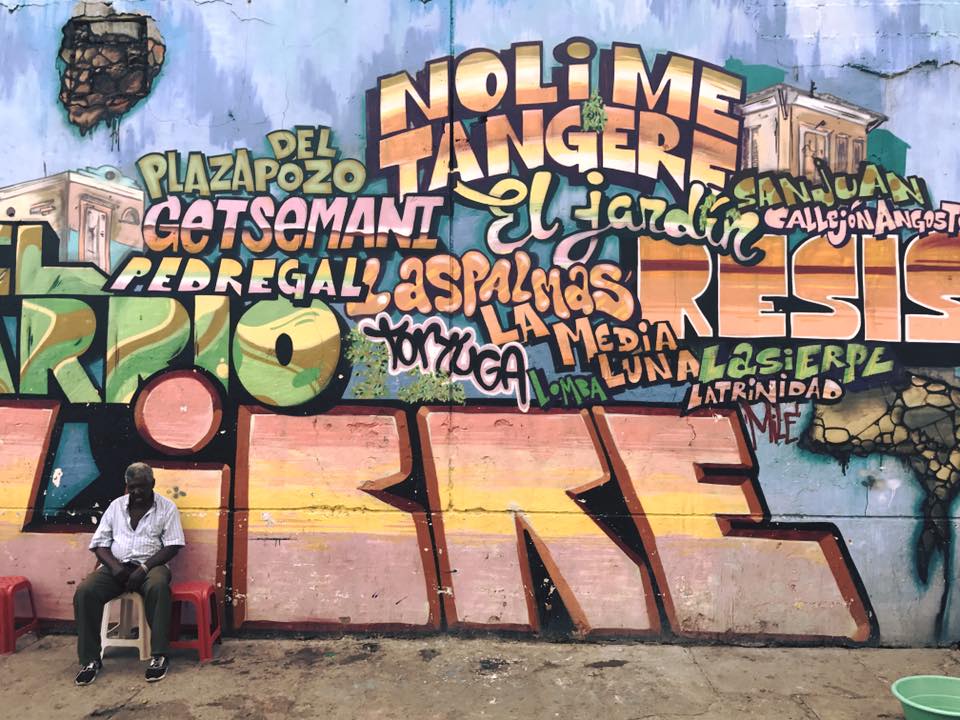


 Along the way, I kept seeing small birds in cages hanging from trees. Our guide explained that these were peoples’ pets that they brought with them to work and hung in the trees through the work day.
Along the way, I kept seeing small birds in cages hanging from trees. Our guide explained that these were peoples’ pets that they brought with them to work and hung in the trees through the work day.  He also said to not be surprised if we saw locals “walking” their birds in the cages in the early mornings or evenings. I thought he was joking, and then one morning, we saw this:
He also said to not be surprised if we saw locals “walking” their birds in the cages in the early mornings or evenings. I thought he was joking, and then one morning, we saw this: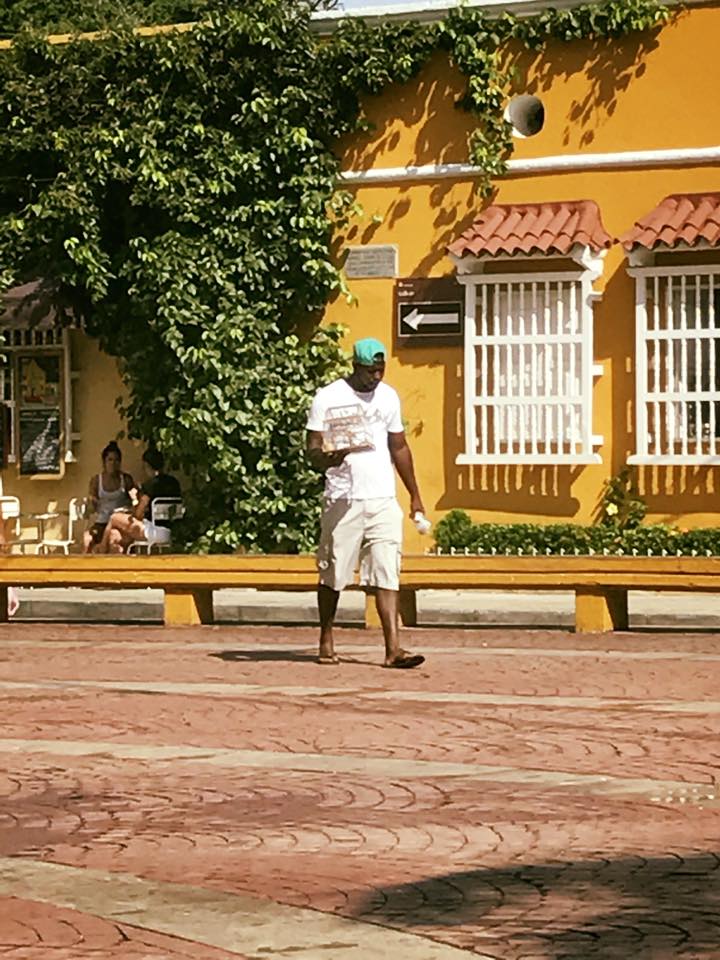 Here is another fun fact we learned on this tour — all over the city you will see men selling coffee, candy and cigarettes:
Here is another fun fact we learned on this tour — all over the city you will see men selling coffee, candy and cigarettes: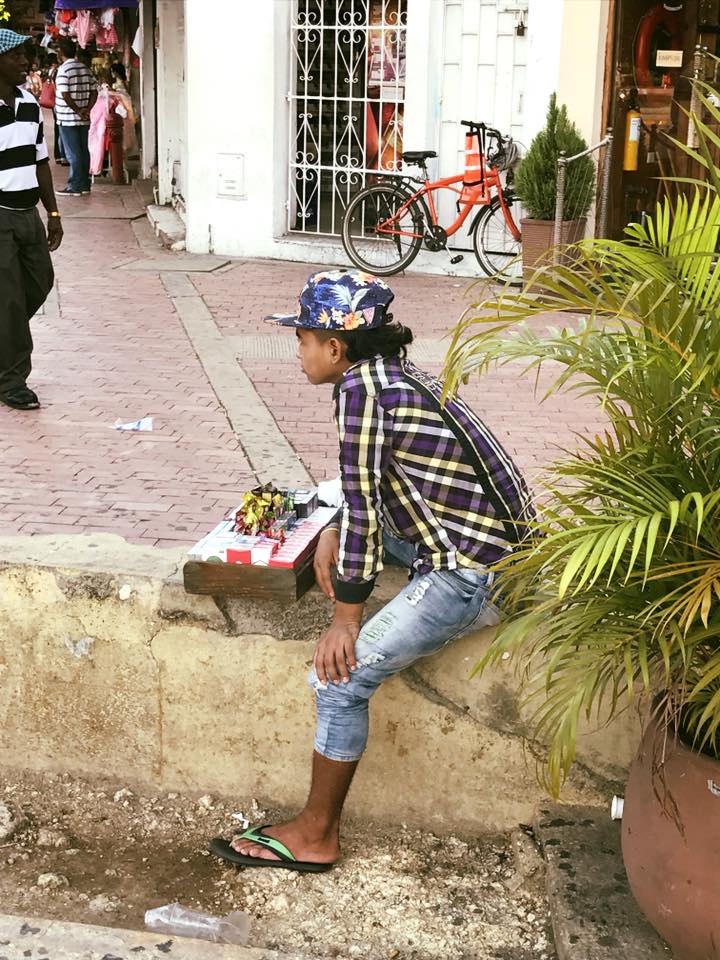 And, while I certainly do not condone or recommend such things, if you are looking for a certain kind of “candy,” apparently, many of them also sell drugs. That’s right, drugs! According to our guide, they are all cartel-connected. Another fun fact, prostitution is legal in Colombia! I was starting to realize why Cartagena was such a popular bachelor party destination: beaches, casinos, drugs, and prostitutes! Sounds like a party! If you are interested in the back story on how our little drug-peddling friends ended up in Cartagena, like so many of the world’s woes, you can blame Hollywood! When filming the movie The Mission, the filmmakers realized there were not enough “native looking” Colombians around Cartagena; so, they imported over 500 of them to use as extras from the more remote interior regions of Colombia. Once they got there, these country natives decided that they liked the big city, wanted to stay, and needed something to do in order to make money. Yada, yada, yada, Colombia’s best known commodities (coffee and cocaine) are now readily available on the streets of Cartagena!
And, while I certainly do not condone or recommend such things, if you are looking for a certain kind of “candy,” apparently, many of them also sell drugs. That’s right, drugs! According to our guide, they are all cartel-connected. Another fun fact, prostitution is legal in Colombia! I was starting to realize why Cartagena was such a popular bachelor party destination: beaches, casinos, drugs, and prostitutes! Sounds like a party! If you are interested in the back story on how our little drug-peddling friends ended up in Cartagena, like so many of the world’s woes, you can blame Hollywood! When filming the movie The Mission, the filmmakers realized there were not enough “native looking” Colombians around Cartagena; so, they imported over 500 of them to use as extras from the more remote interior regions of Colombia. Once they got there, these country natives decided that they liked the big city, wanted to stay, and needed something to do in order to make money. Yada, yada, yada, Colombia’s best known commodities (coffee and cocaine) are now readily available on the streets of Cartagena!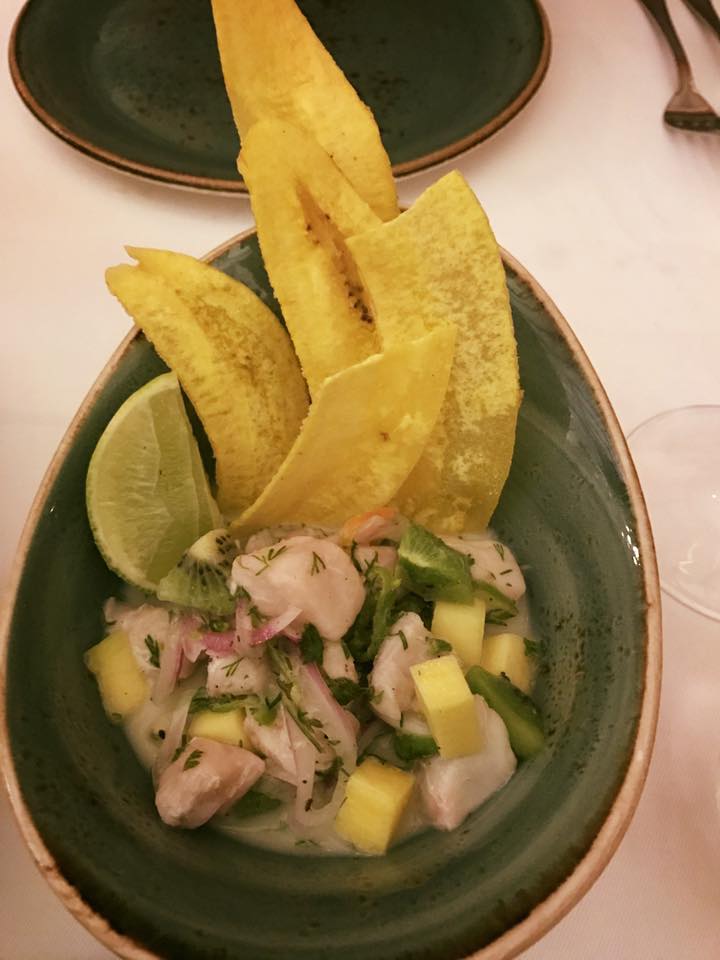



 Had we caught the sunset, it would’ve looked something like this photo I found on the wonderful wide web:
Had we caught the sunset, it would’ve looked something like this photo I found on the wonderful wide web: 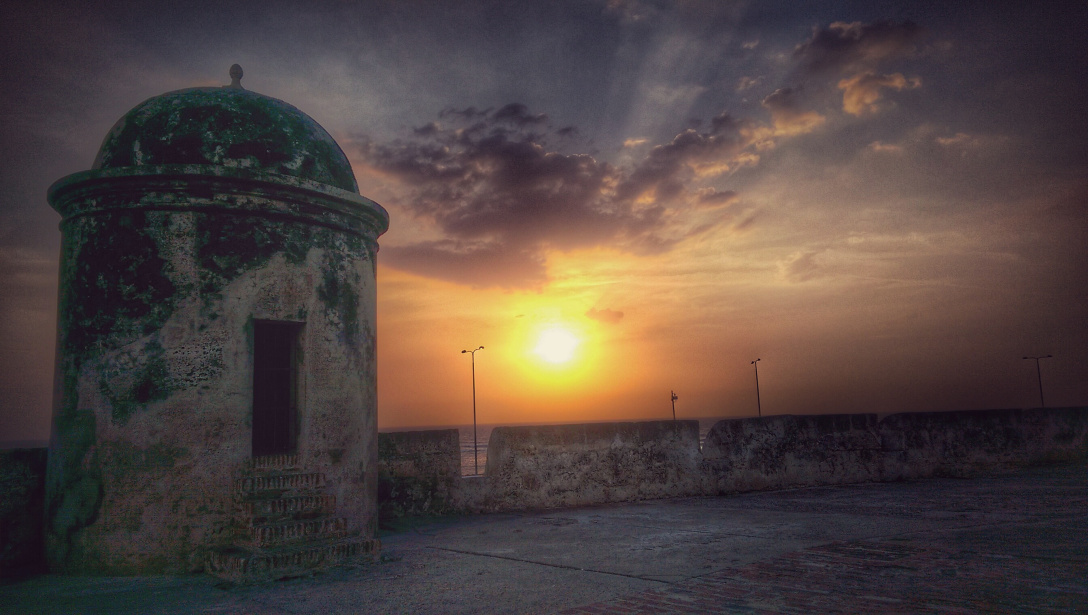
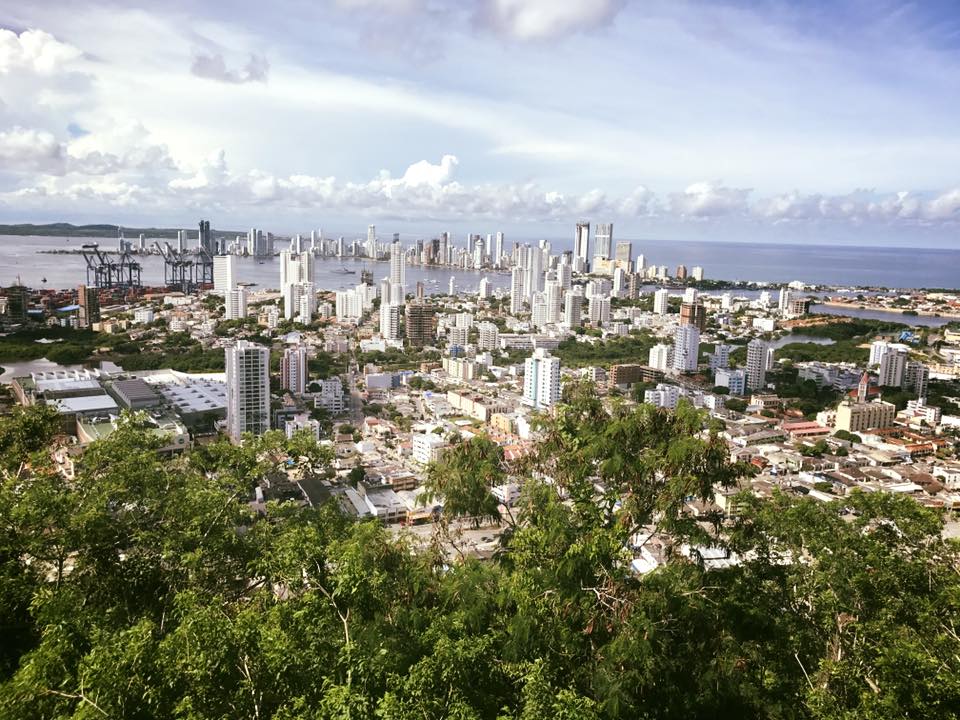 We also visited the Monastery and Chapel of Our Lady of the Candle.
We also visited the Monastery and Chapel of Our Lady of the Candle.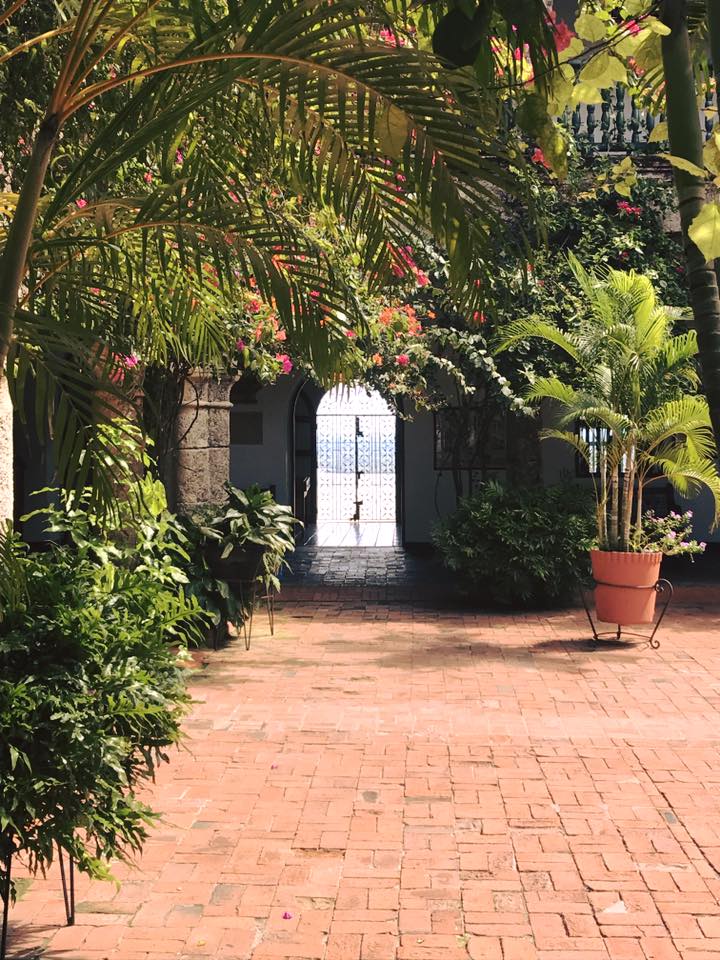
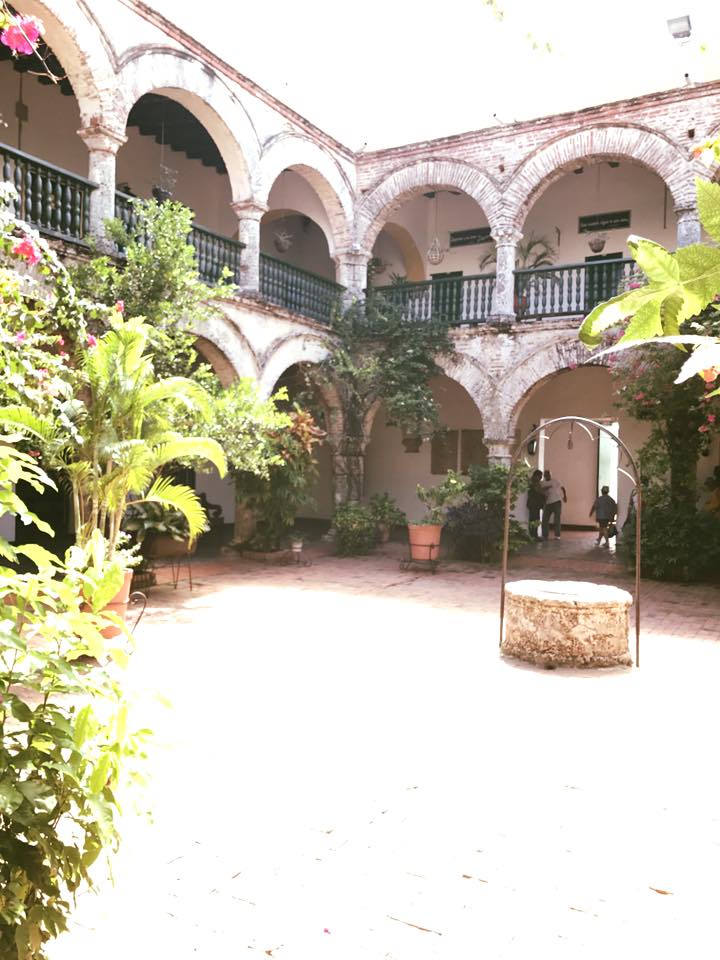
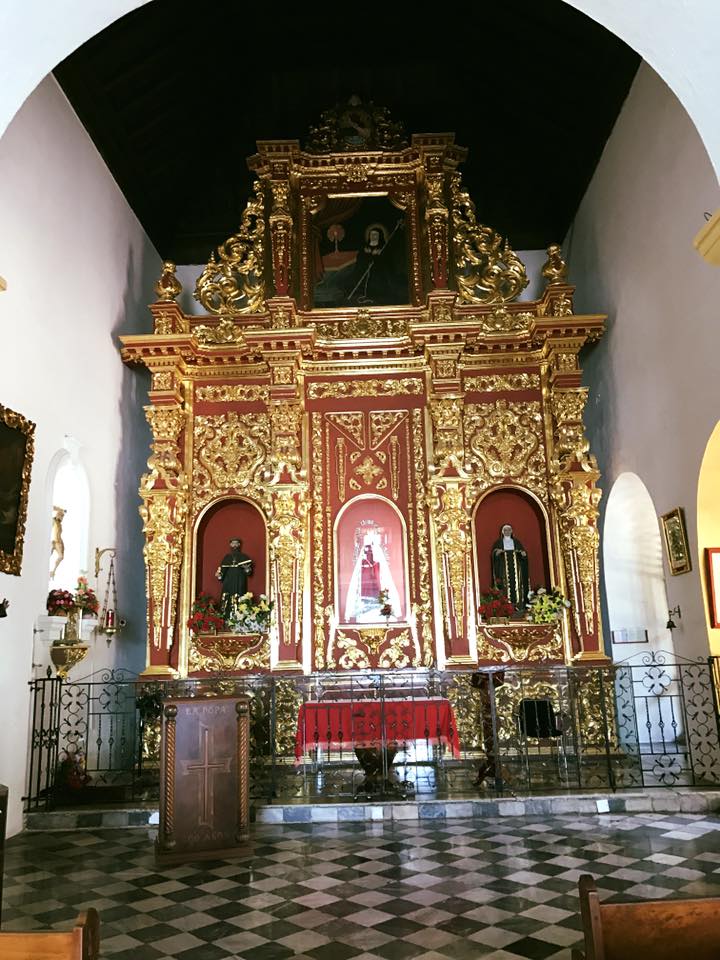 Our next stop was to the San Felipe de Barajas Fort.
Our next stop was to the San Felipe de Barajas Fort.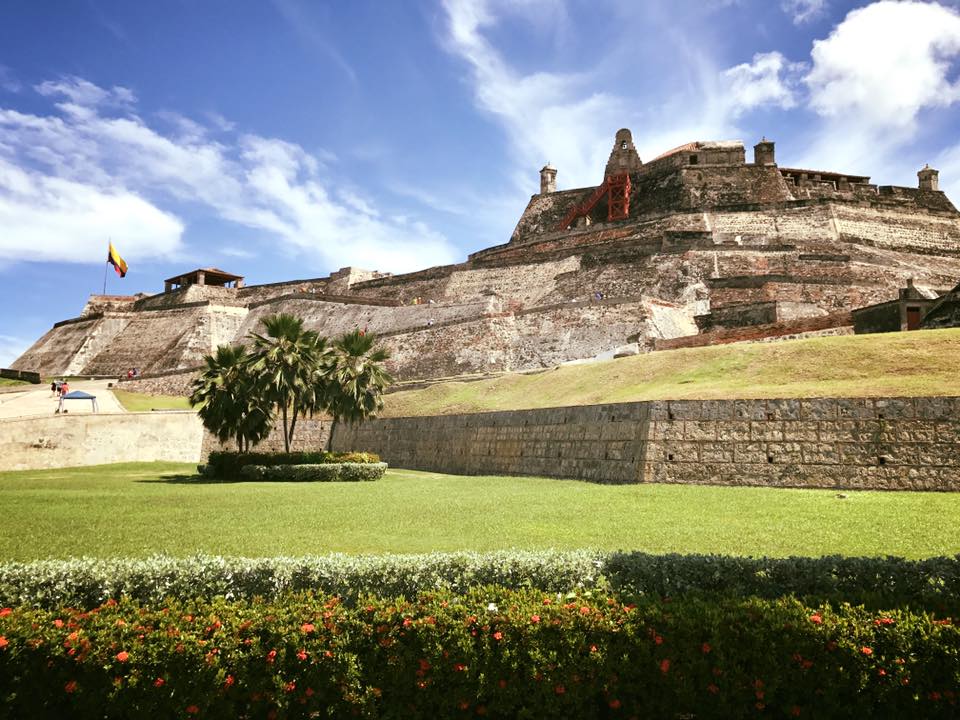
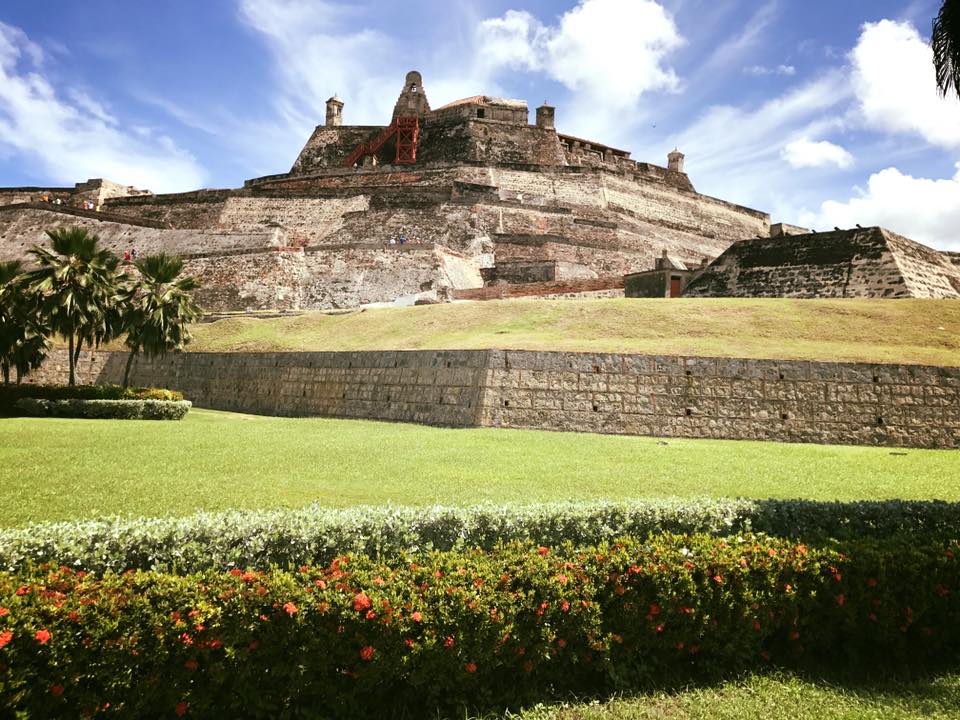 At the fort, we met this colorful lady:
At the fort, we met this colorful lady: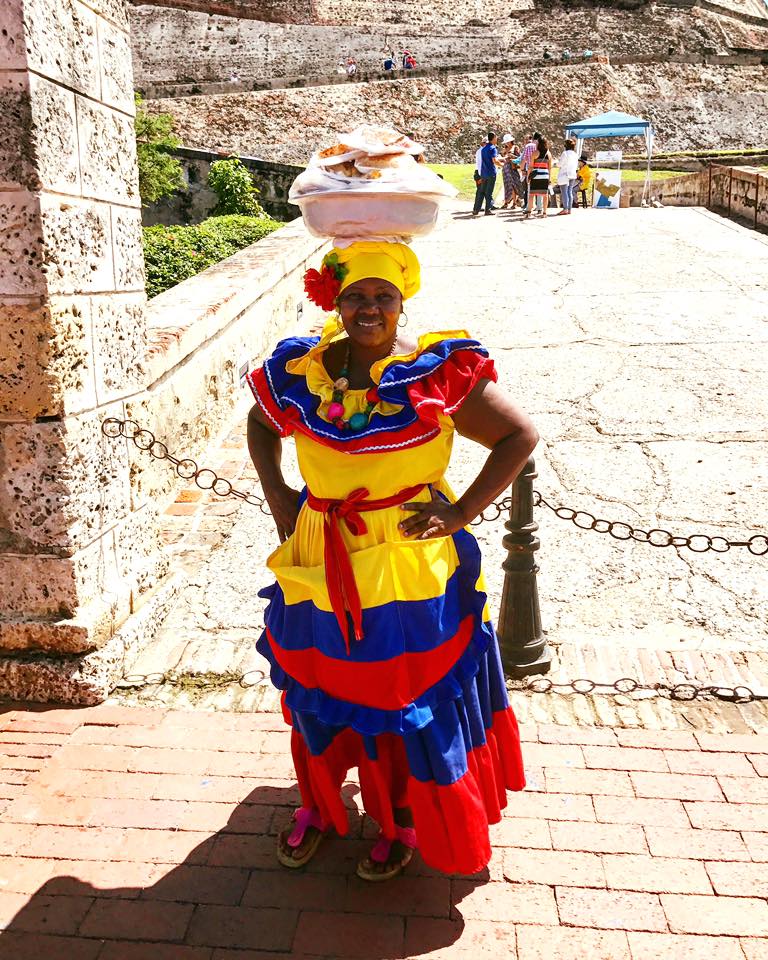
 By the way, these lady vendors in colorful dresses are everywhere. They are happy to pose for a picture…for a price! Here are some other colorful ladies you may run into in Cartagena, but these pictures are not mine. I just love them, so I am sharing.
By the way, these lady vendors in colorful dresses are everywhere. They are happy to pose for a picture…for a price! Here are some other colorful ladies you may run into in Cartagena, but these pictures are not mine. I just love them, so I am sharing.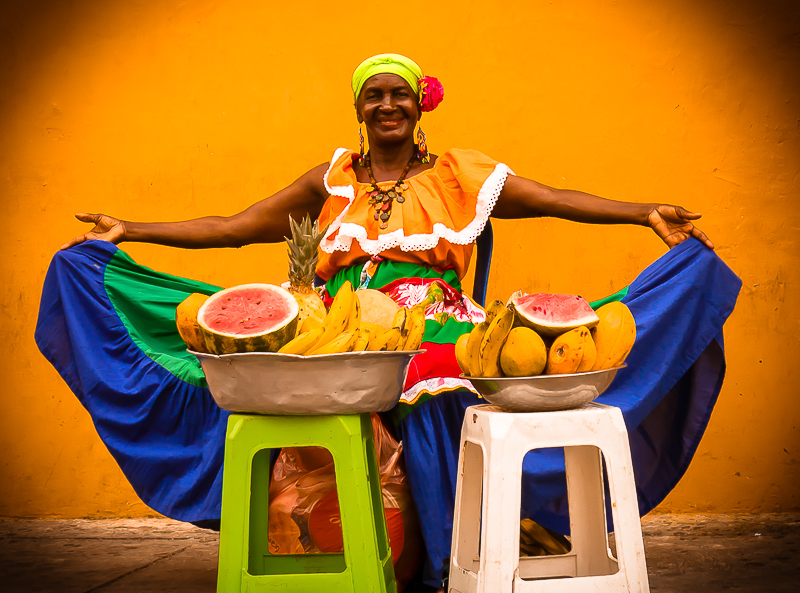
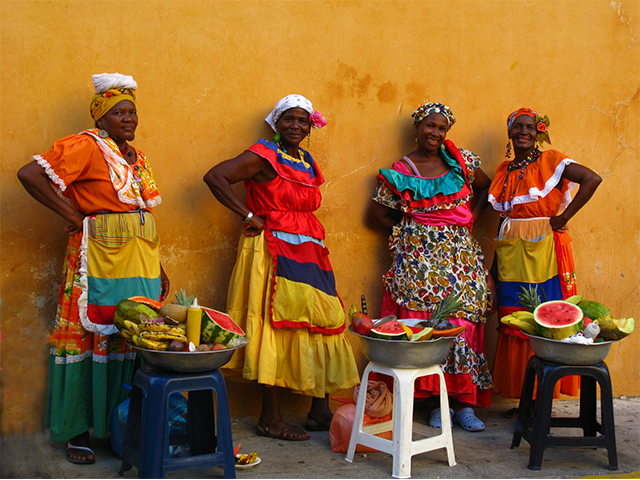
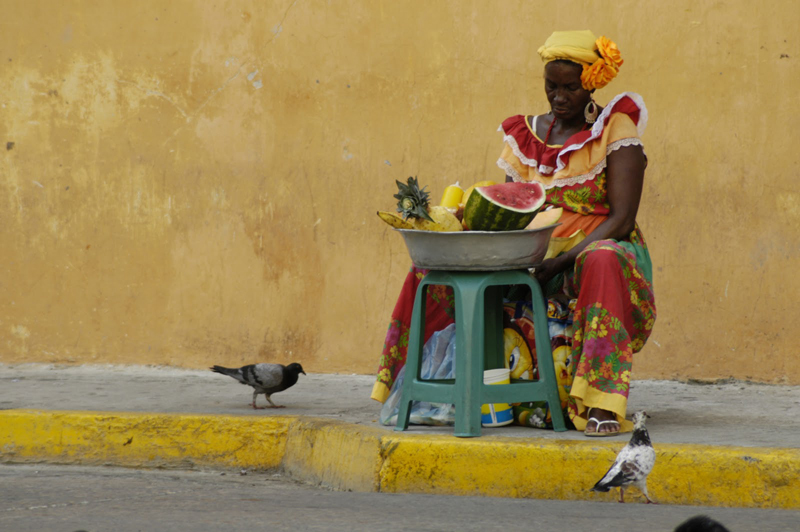
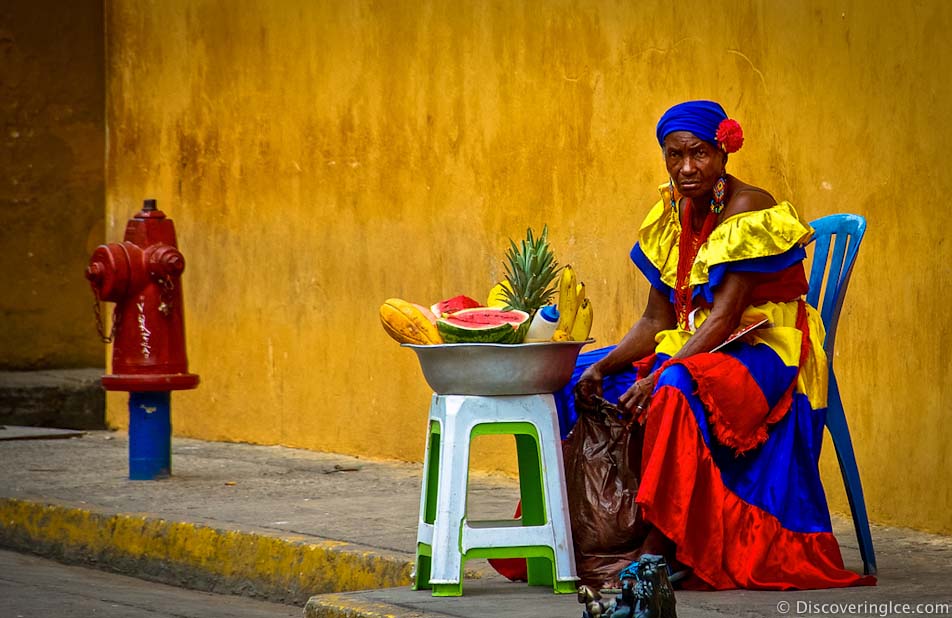
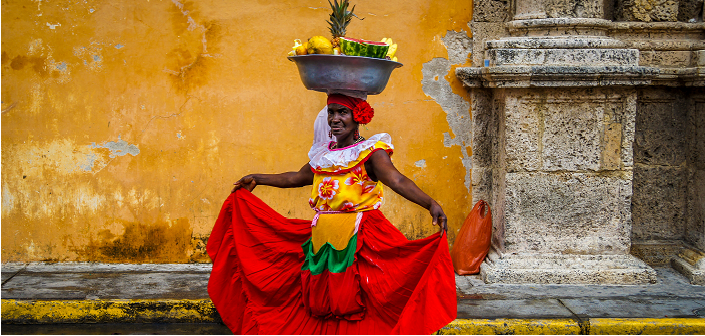 From the fort, we our way to the old city, where we took a leisurely stroll around the old walled city admiring all the old colonial architecture and basking in the beautiful color of the buildings.
From the fort, we our way to the old city, where we took a leisurely stroll around the old walled city admiring all the old colonial architecture and basking in the beautiful color of the buildings.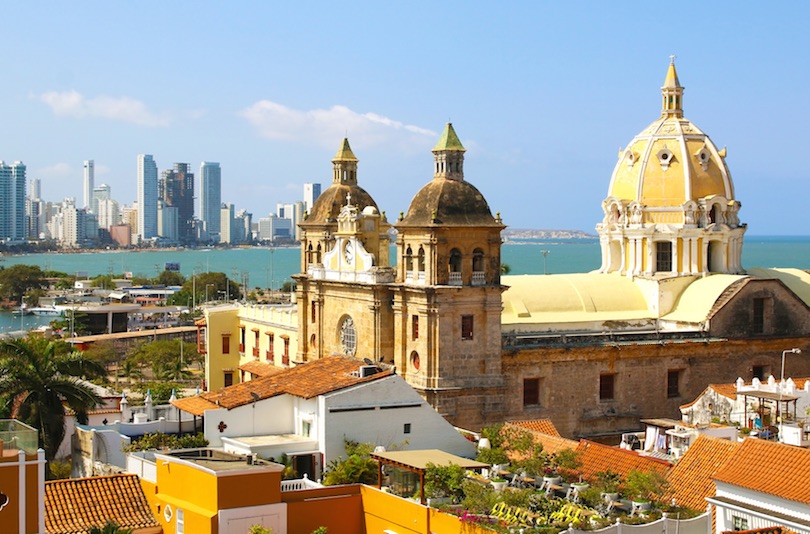
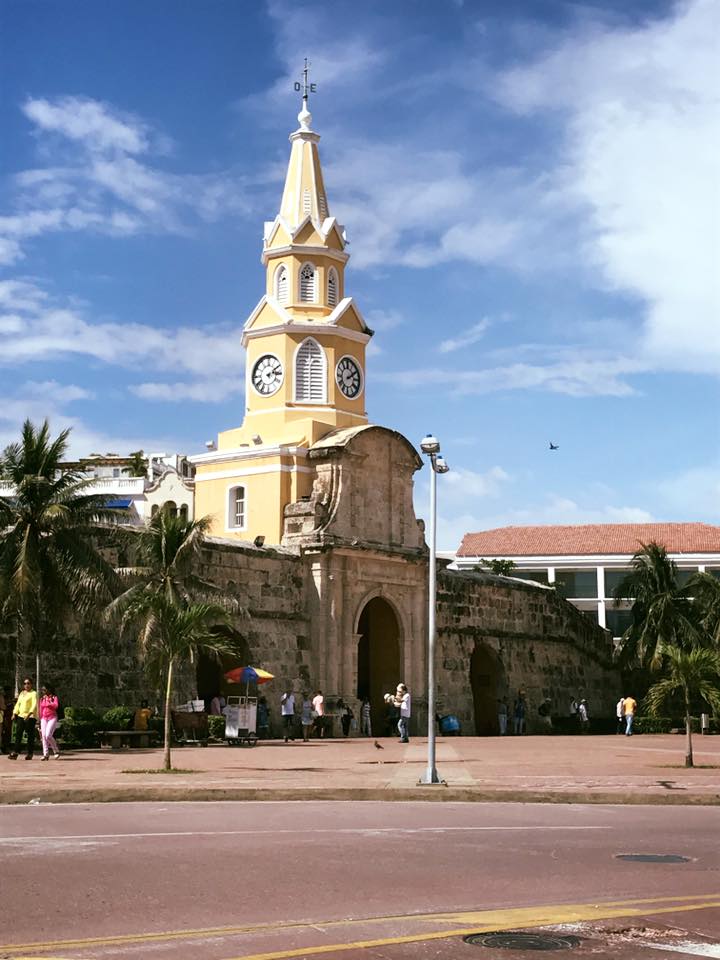

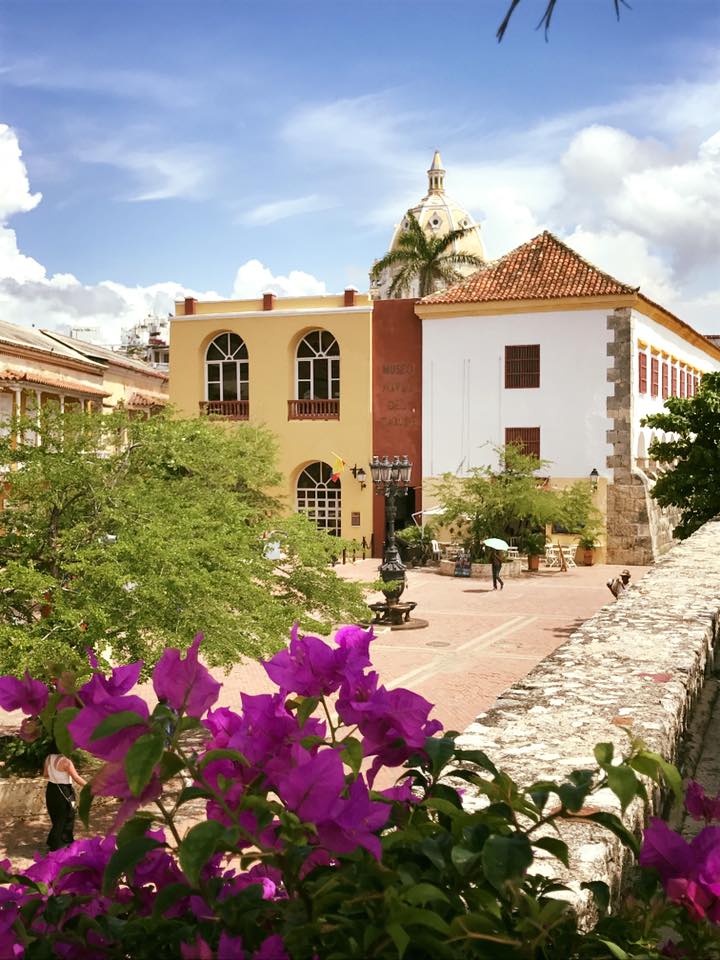
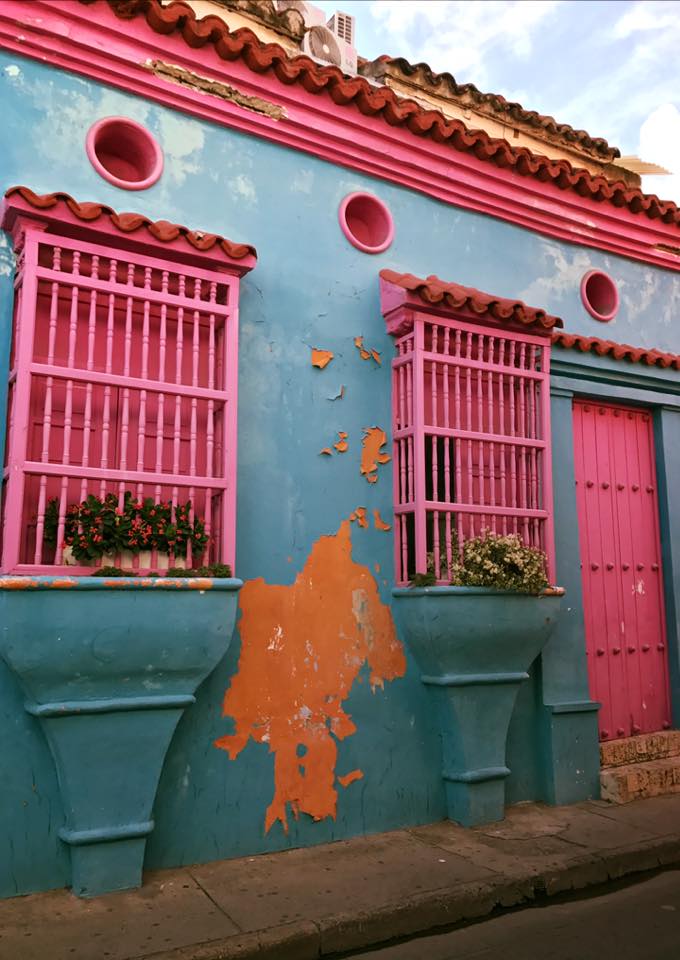
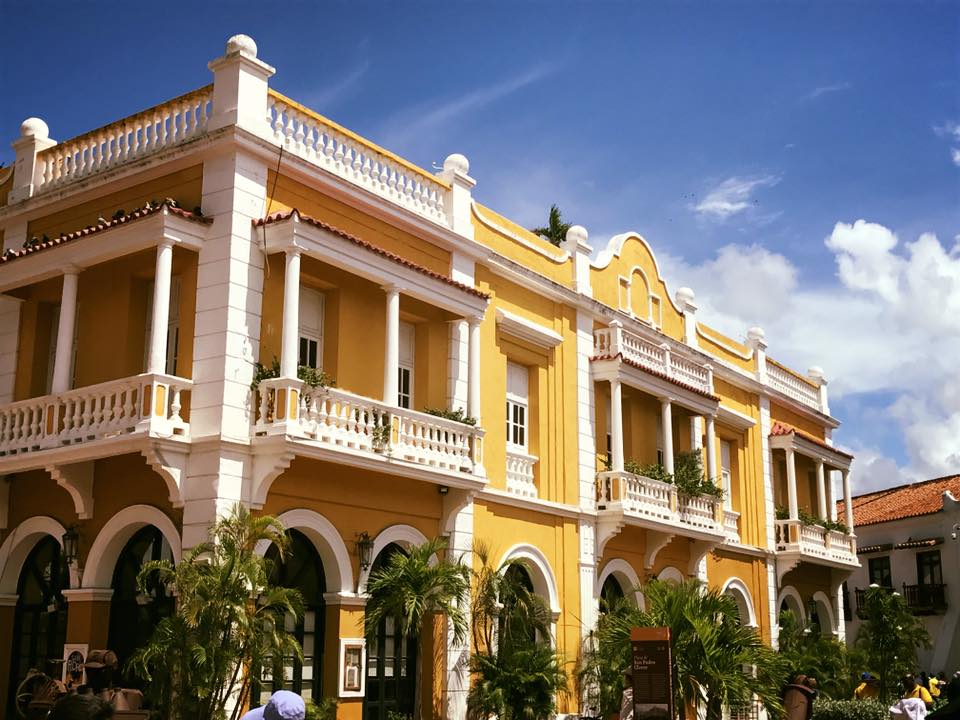
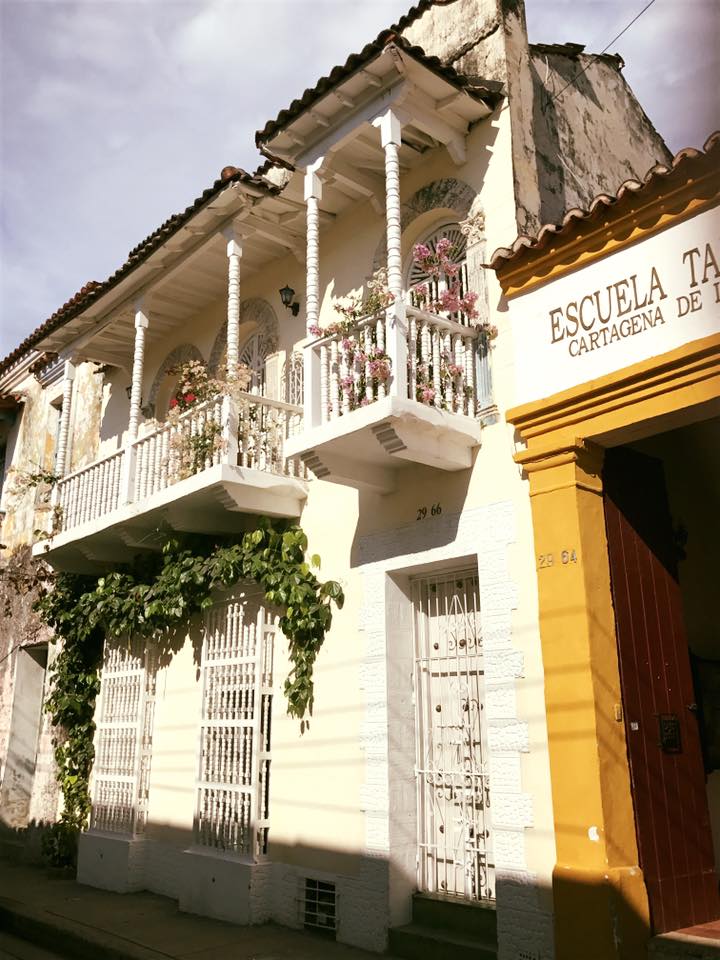


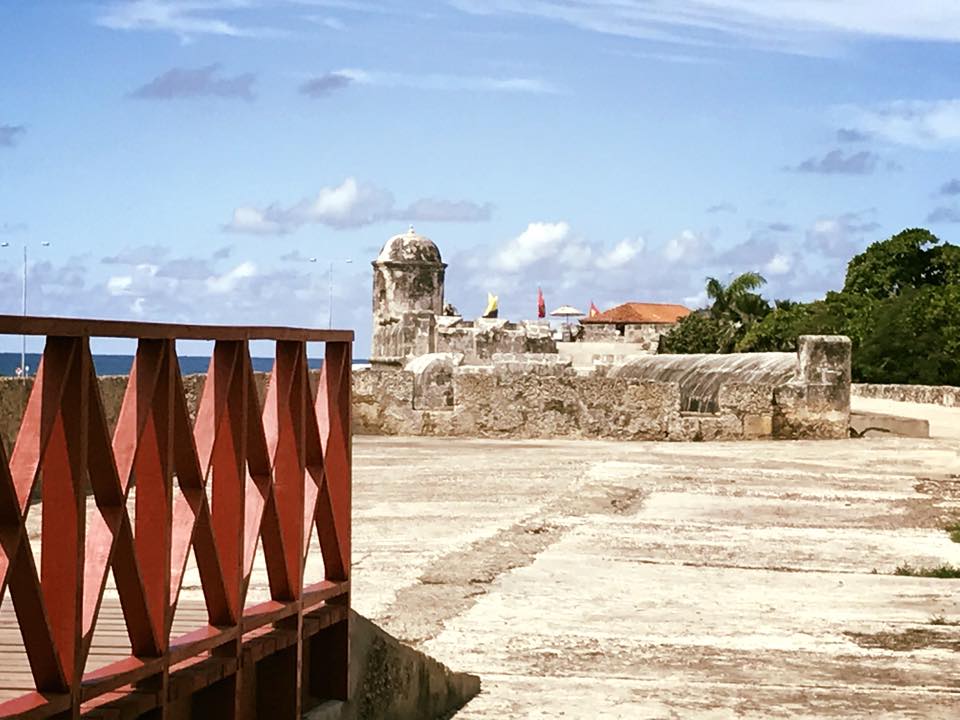
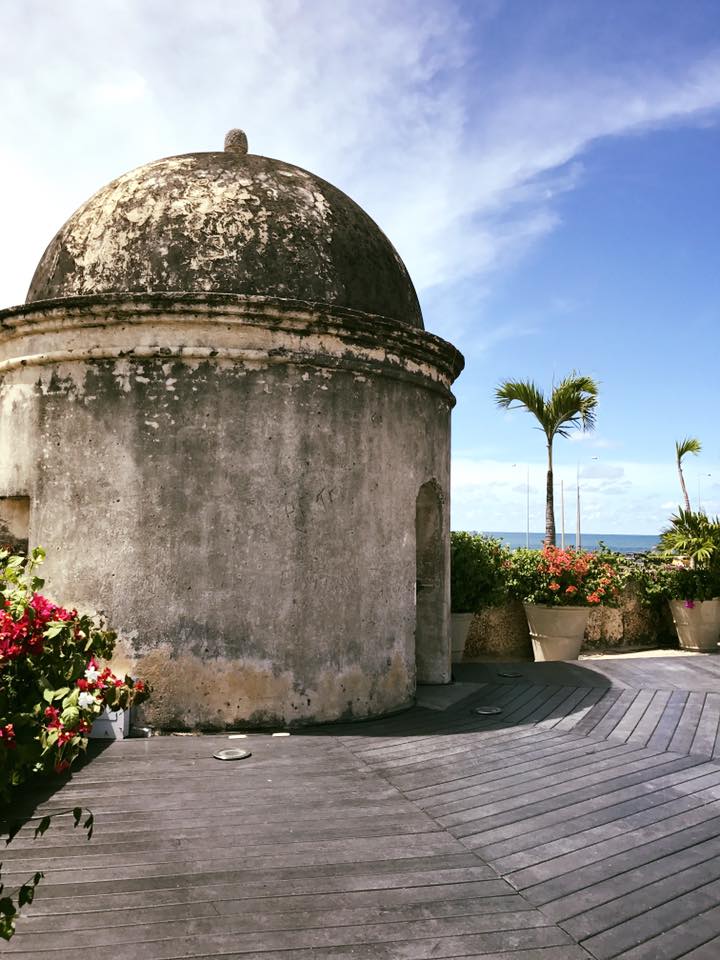

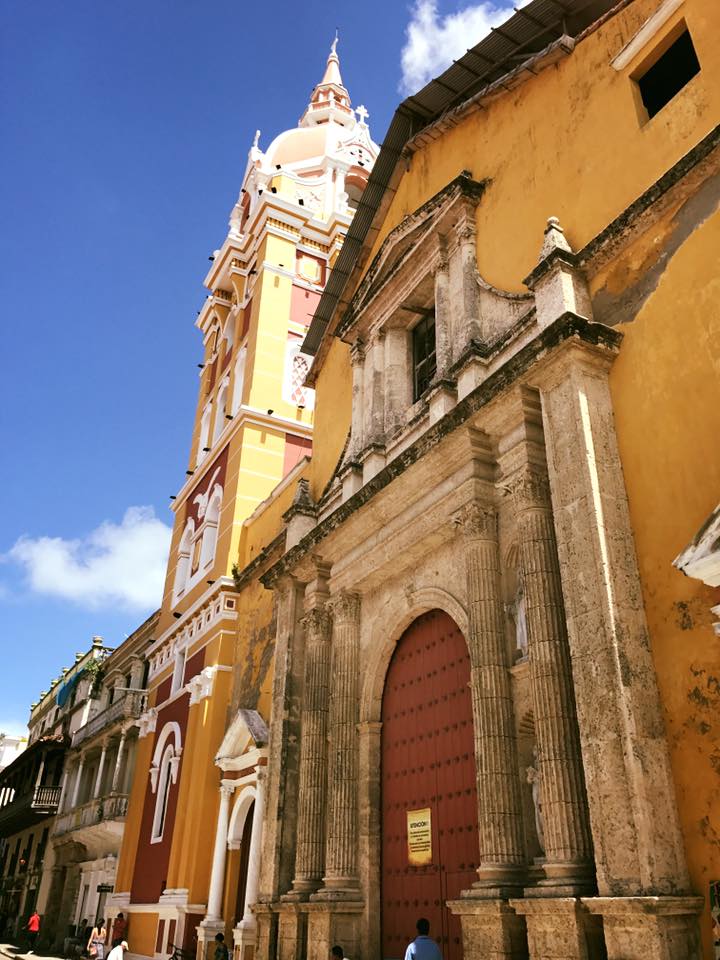
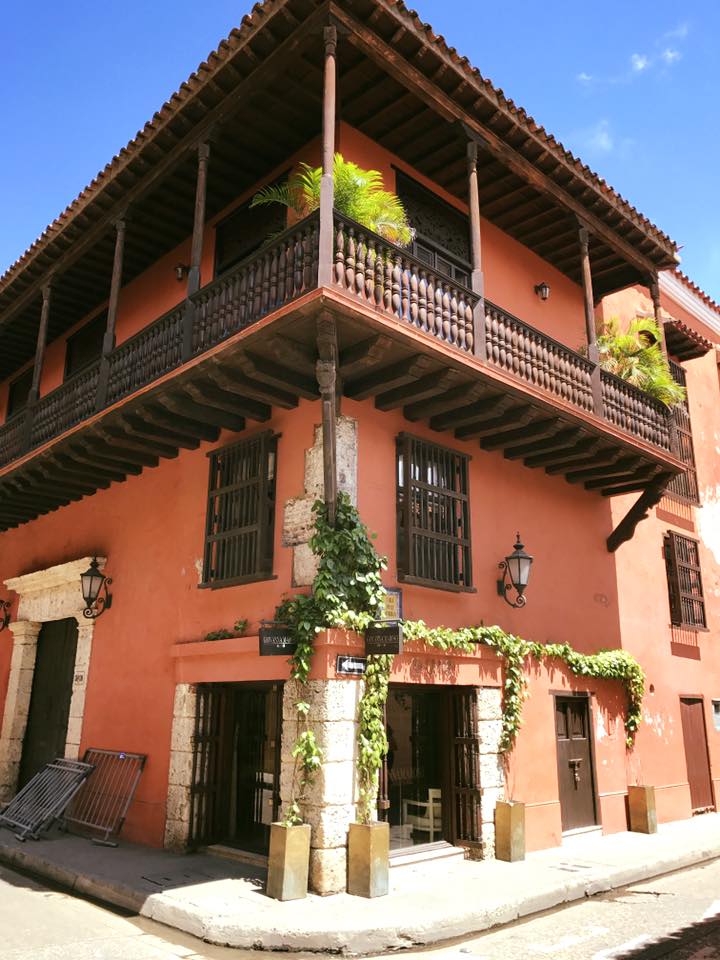
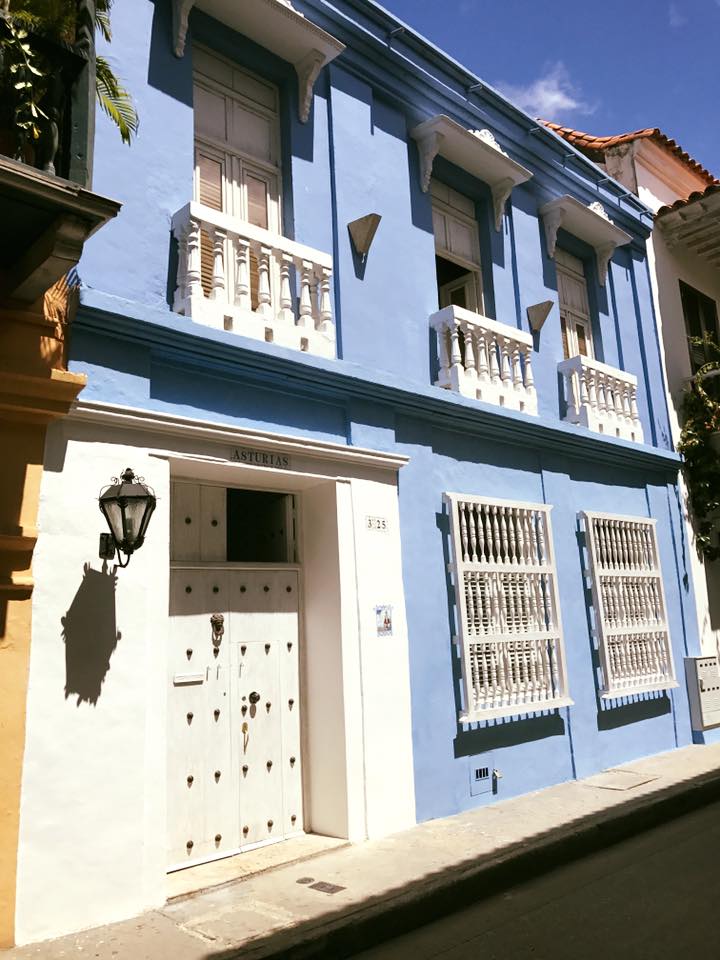
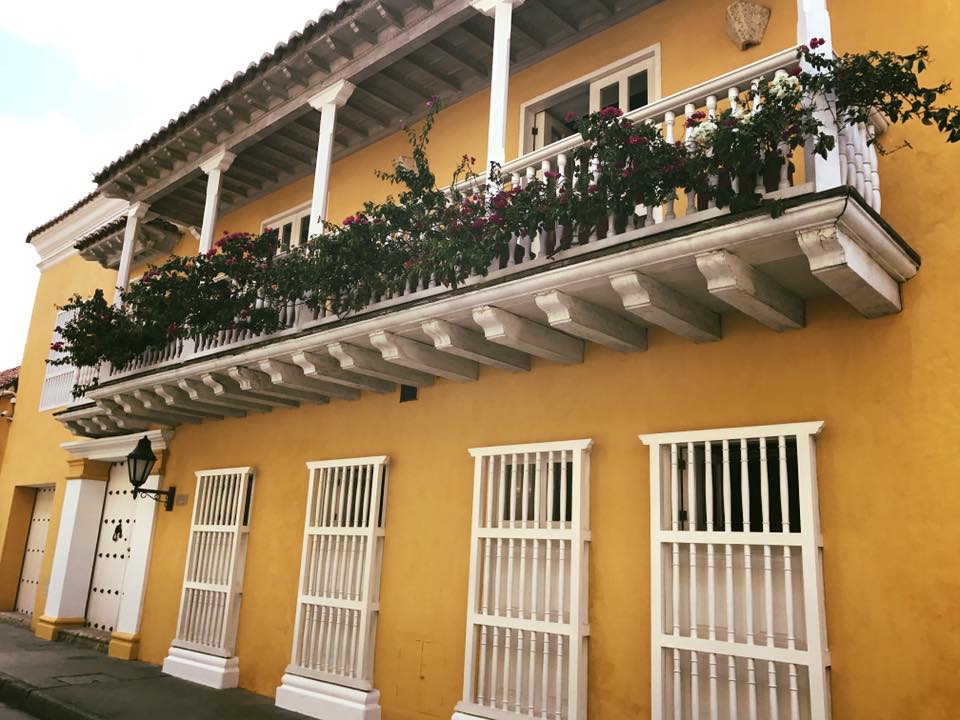
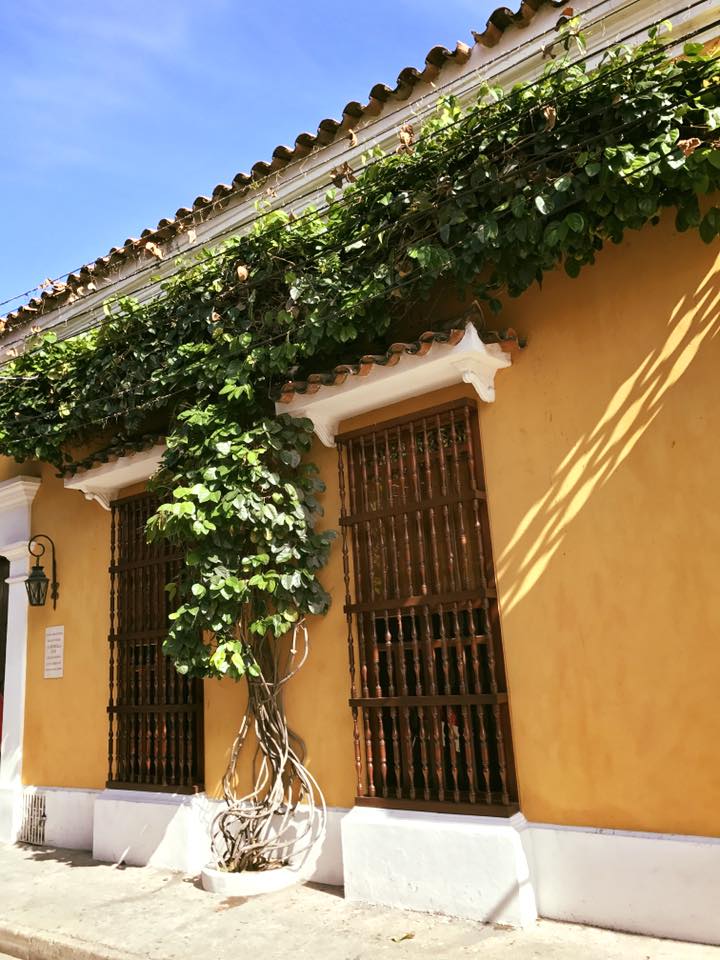
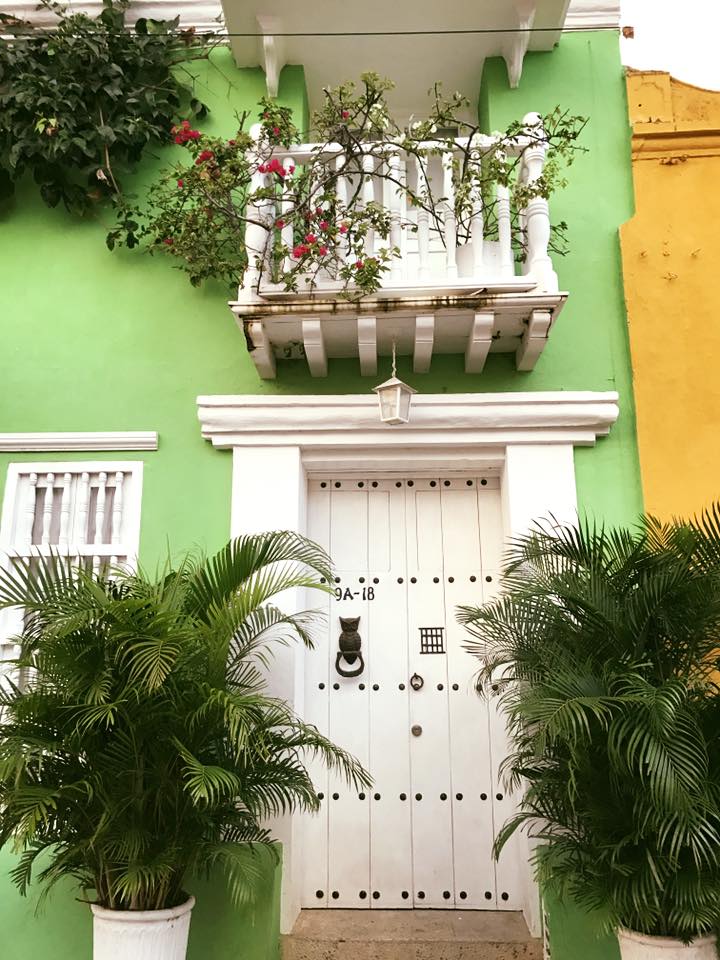

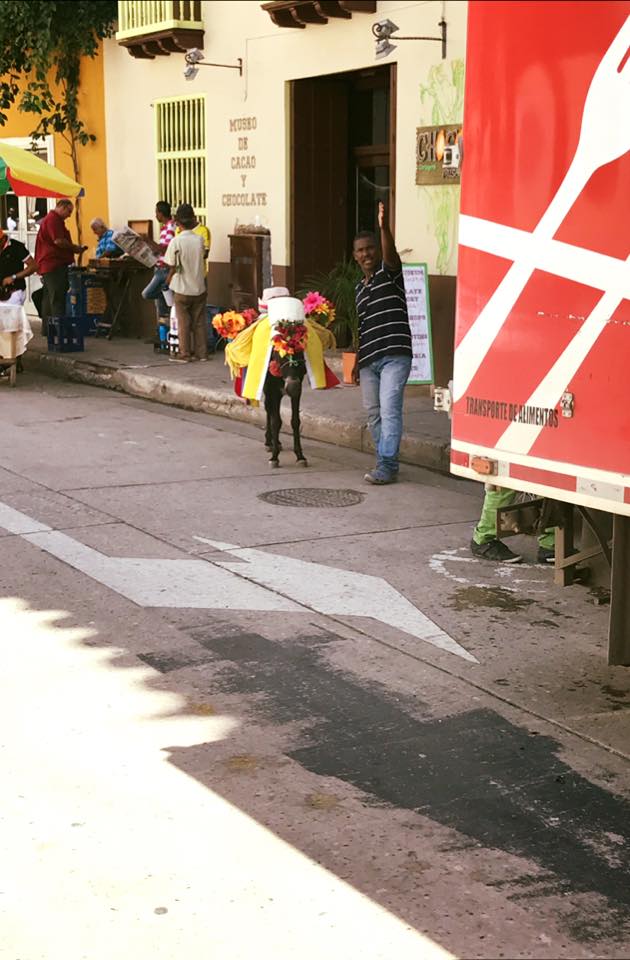
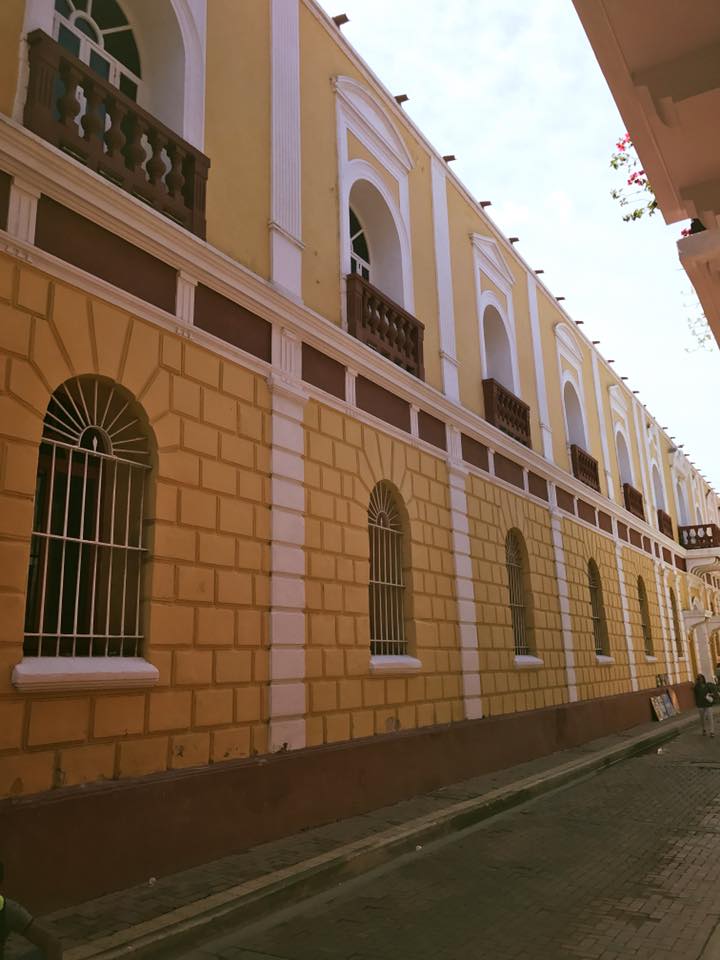
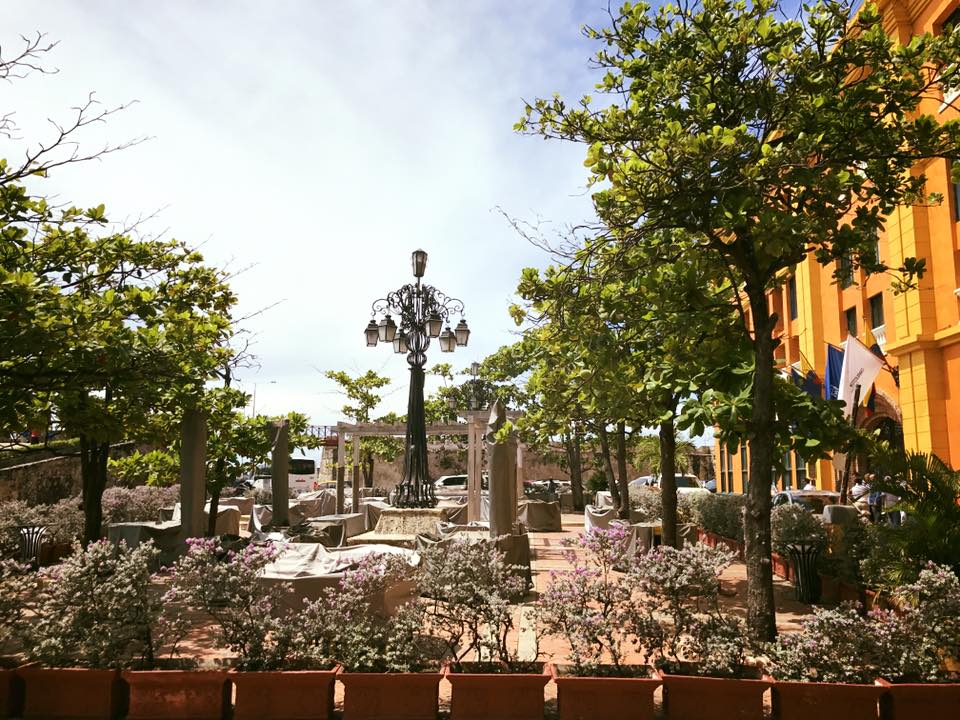 Inside the walled city, we visited the Sanctuary of Saint Peter Claver.
Inside the walled city, we visited the Sanctuary of Saint Peter Claver.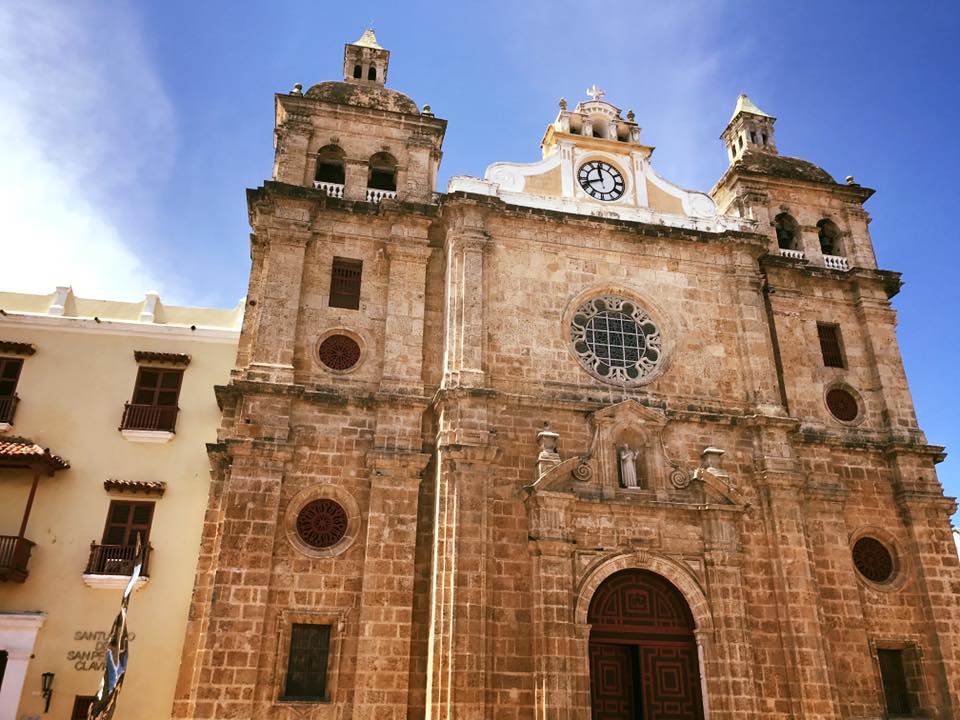


 Right around the corner from the church is a small cigar shop that Bill Clinton frequented when he visited the city:
Right around the corner from the church is a small cigar shop that Bill Clinton frequented when he visited the city: After our tour, we stopped for lunch at the delicious (and beautiful) Alma Restaurant.
After our tour, we stopped for lunch at the delicious (and beautiful) Alma Restaurant.

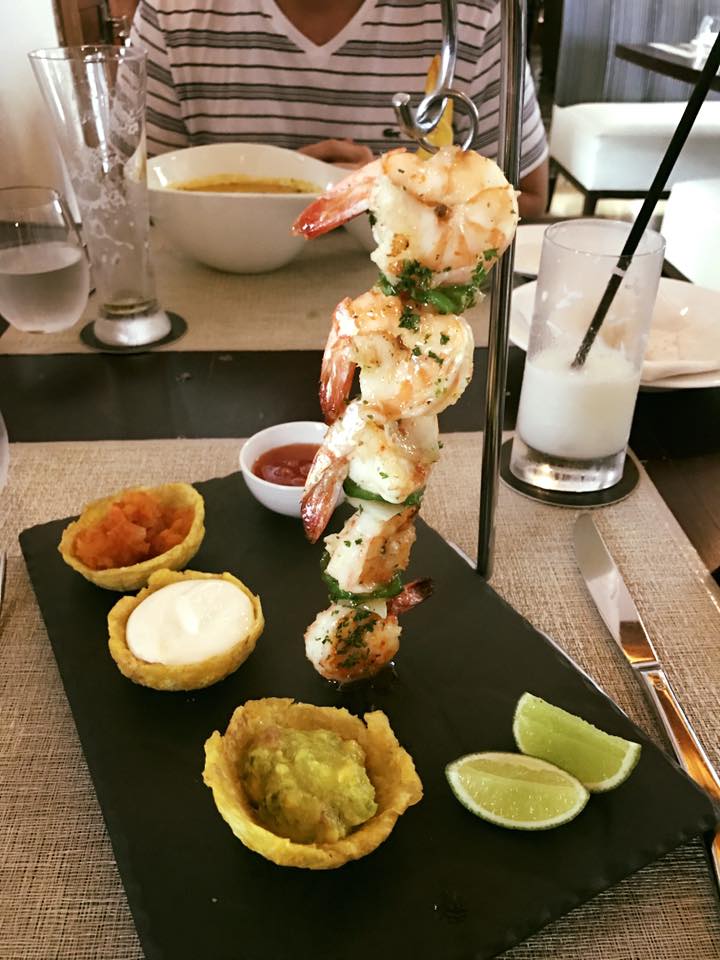
 This is where I discovered the delight of my life: Coconut Lemonade. After this encounter, I stopped for one everywhere we went, and, after taste testing a dozen or so, I can confirm that Alma makes it best. I think it’s the added touch of coconut shavings that makes it. Trust me, after a long hot day, this is like a cold, sweet oasis in your mouth!
This is where I discovered the delight of my life: Coconut Lemonade. After this encounter, I stopped for one everywhere we went, and, after taste testing a dozen or so, I can confirm that Alma makes it best. I think it’s the added touch of coconut shavings that makes it. Trust me, after a long hot day, this is like a cold, sweet oasis in your mouth! 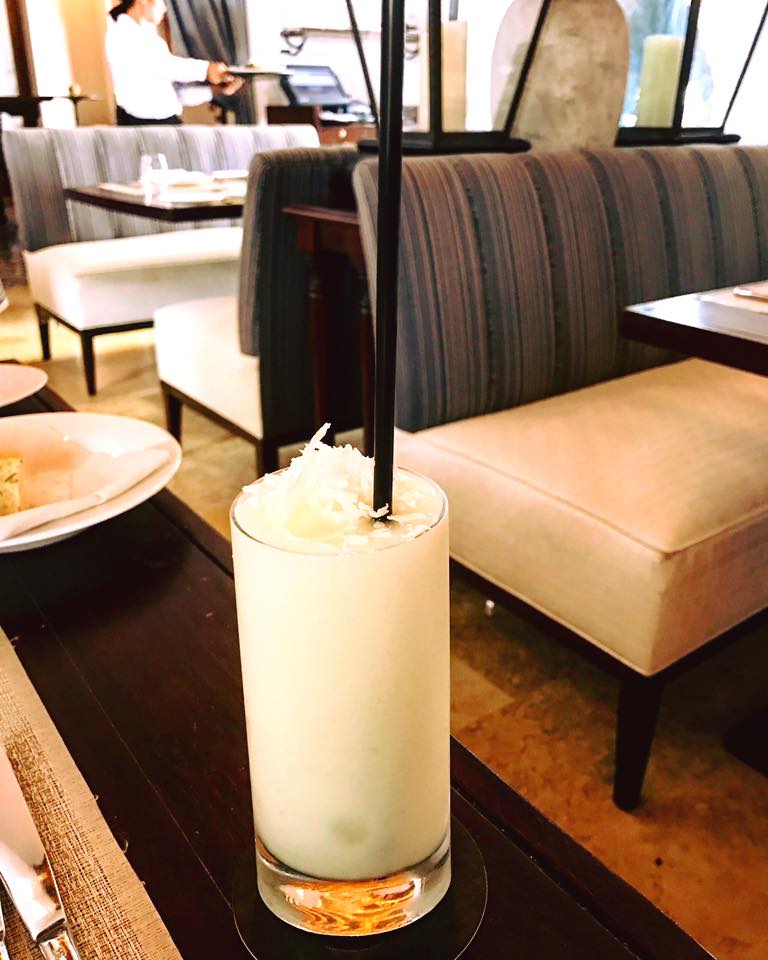 Alma is also where I got a major case of bathroom envy:
Alma is also where I got a major case of bathroom envy:  And, in case you were wondering, Cartagena is just as beautiful at night as she is during the day:
And, in case you were wondering, Cartagena is just as beautiful at night as she is during the day: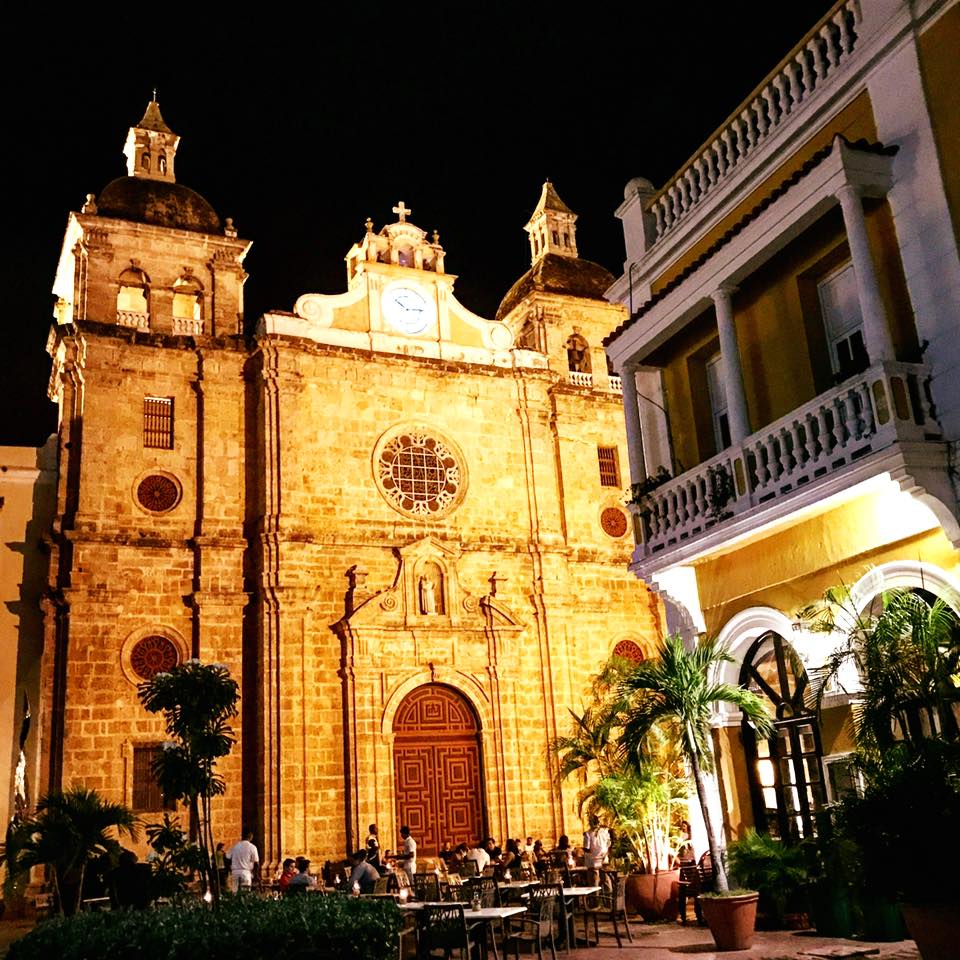
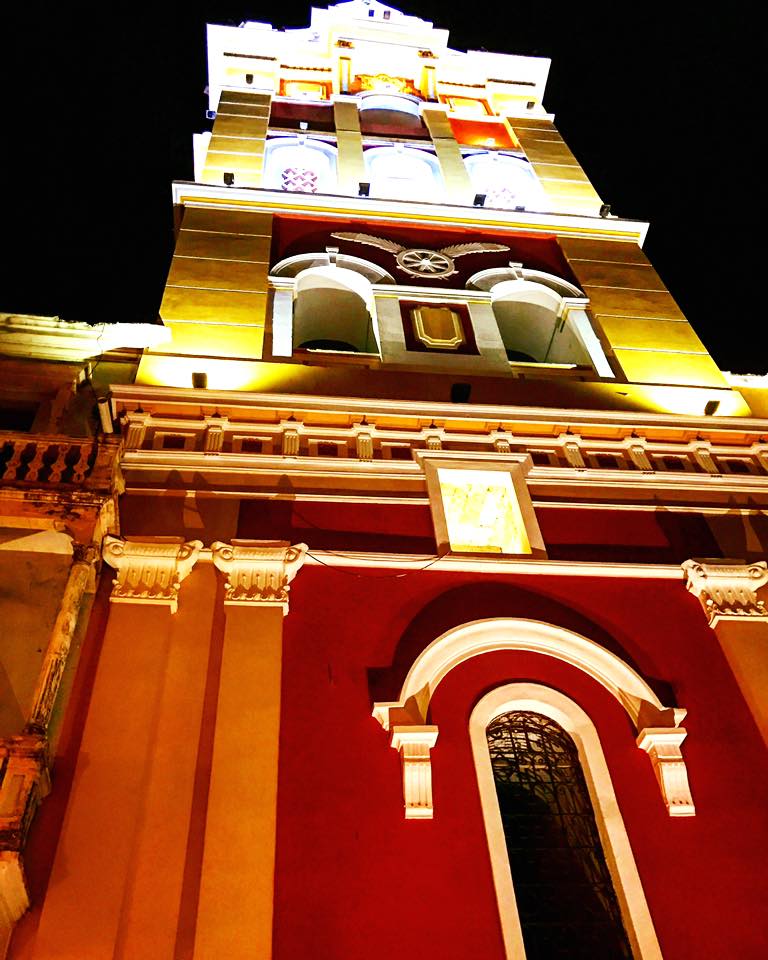 And, like I said before, it is hot and humid in Cartagena, even at night, so if you see a popsicle shop (and you will because they are all over), pop in and treat yourself!
And, like I said before, it is hot and humid in Cartagena, even at night, so if you see a popsicle shop (and you will because they are all over), pop in and treat yourself! Day 3: Beach and Off the Beaten Path
Day 3: Beach and Off the Beaten Path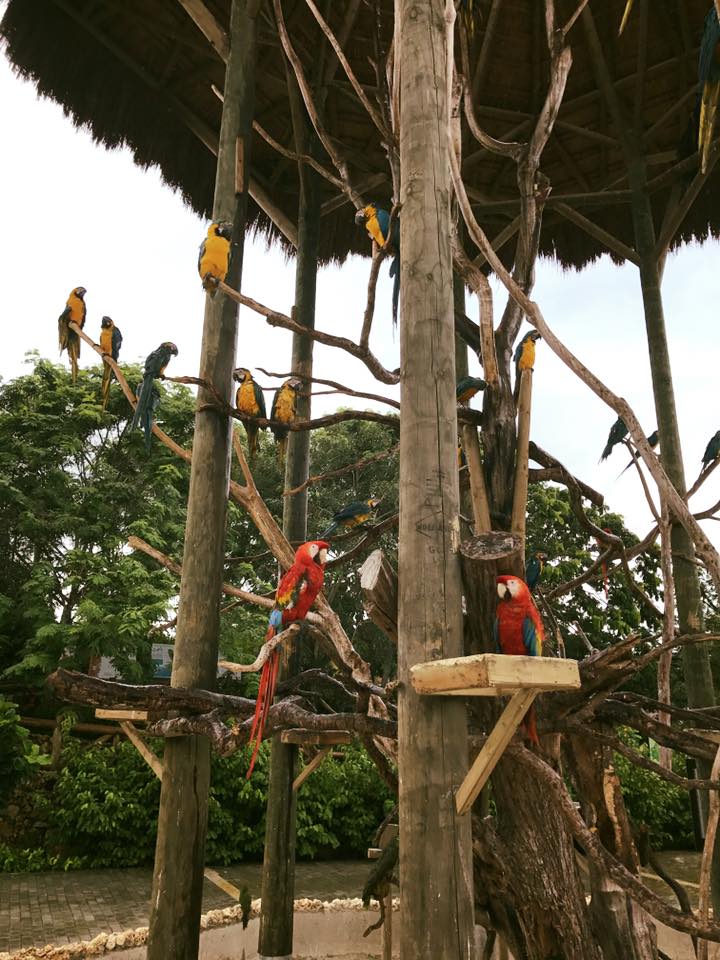
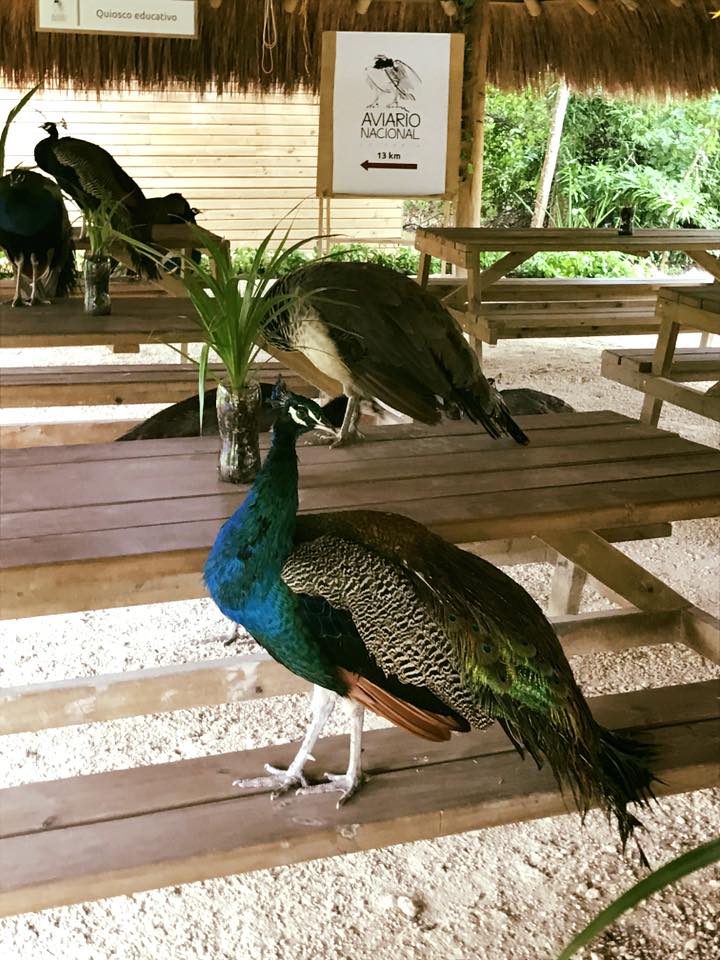
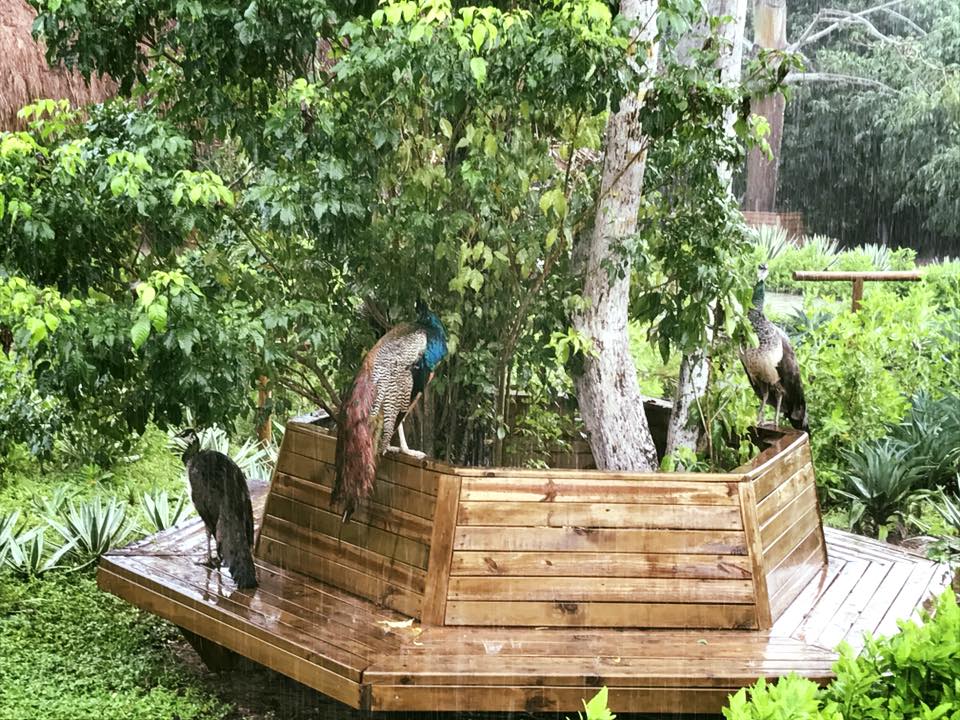
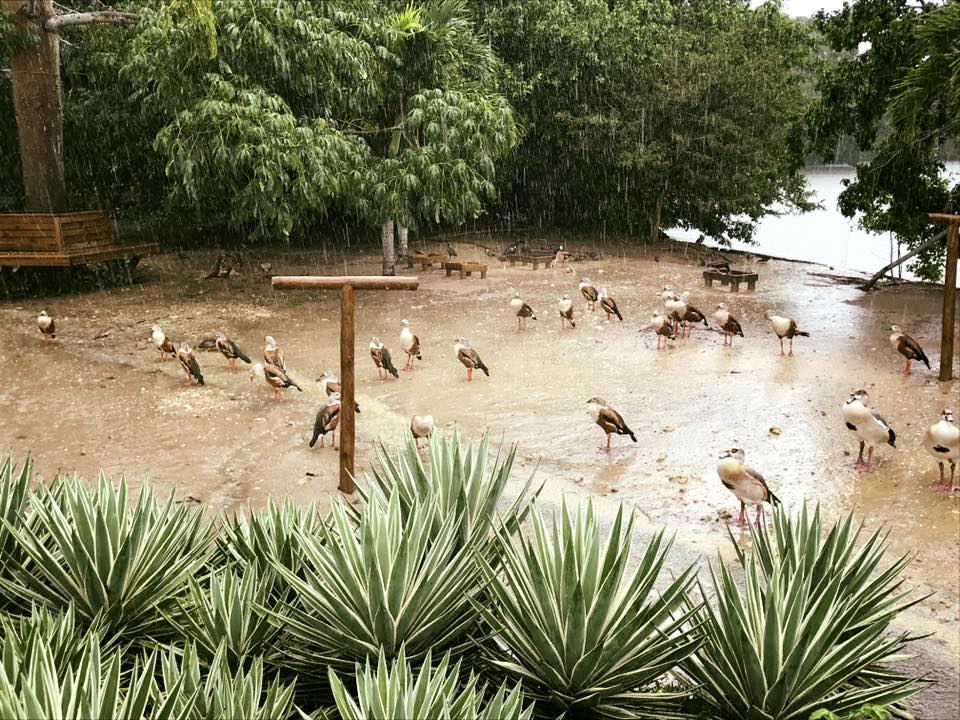
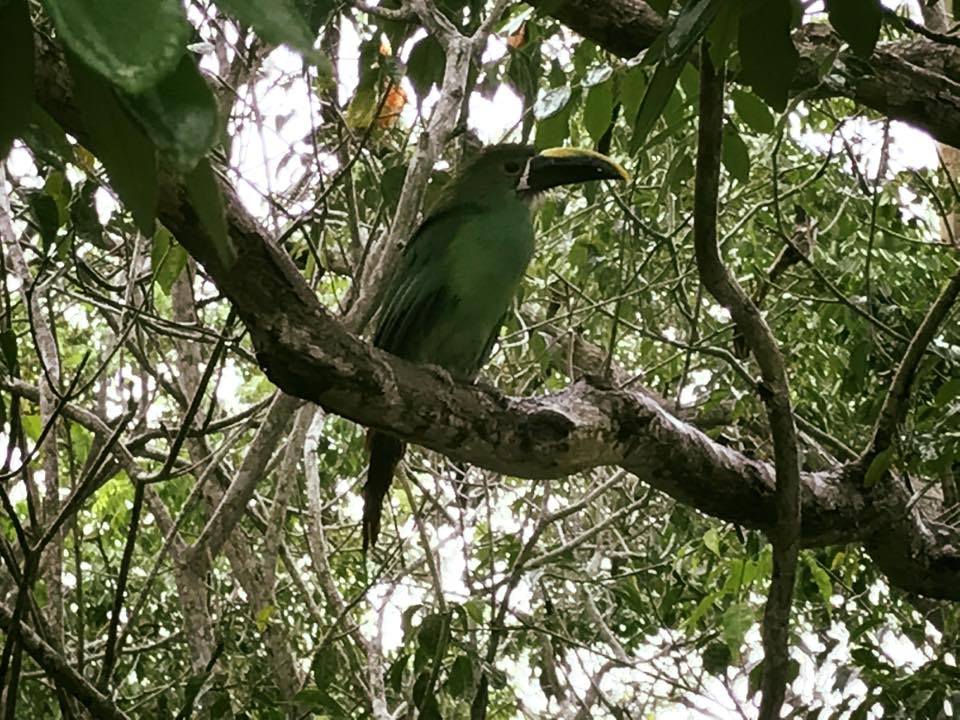
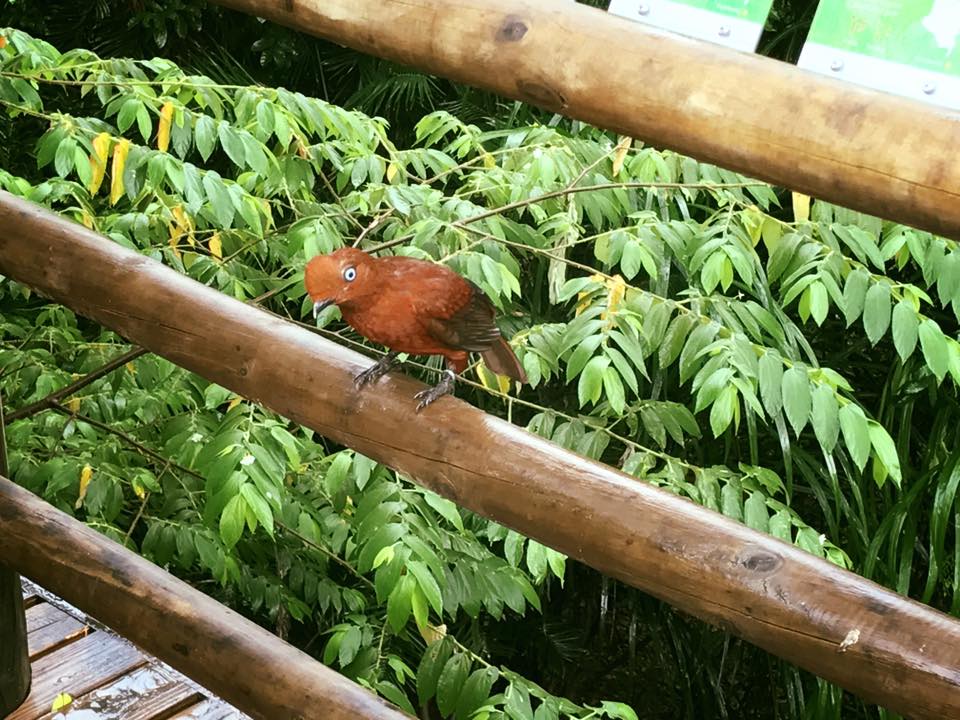
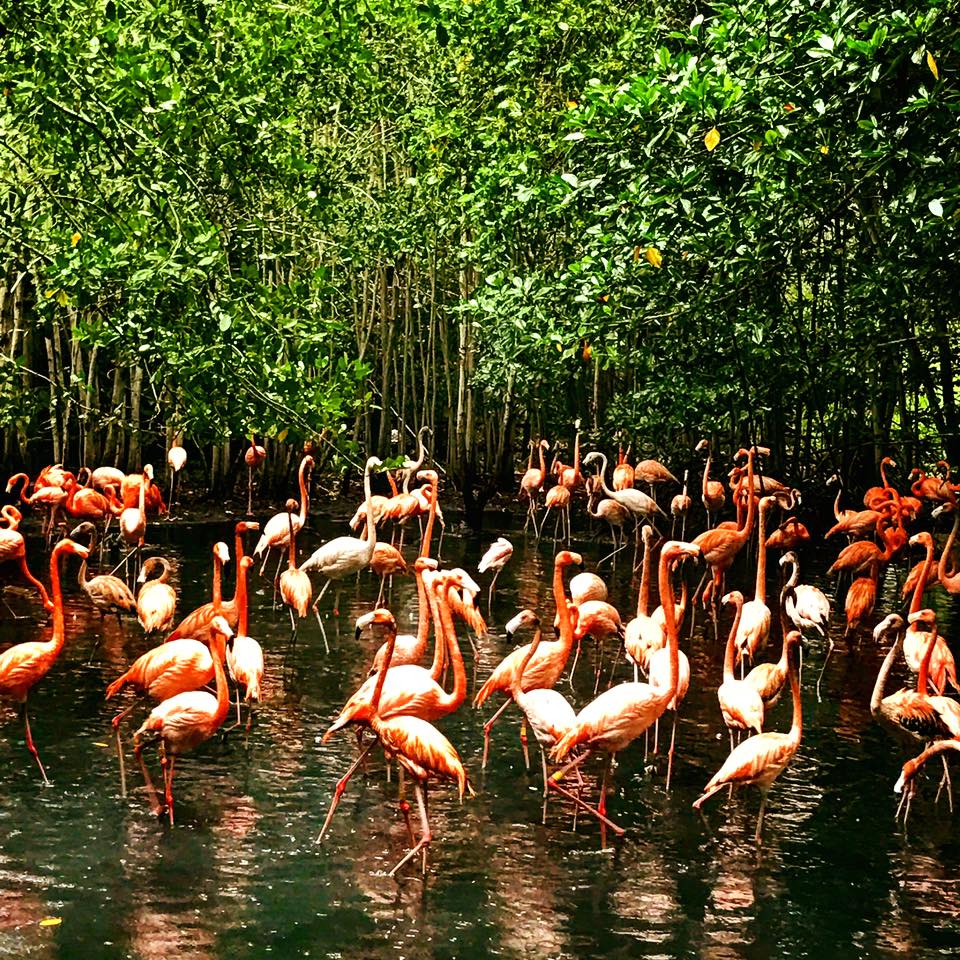
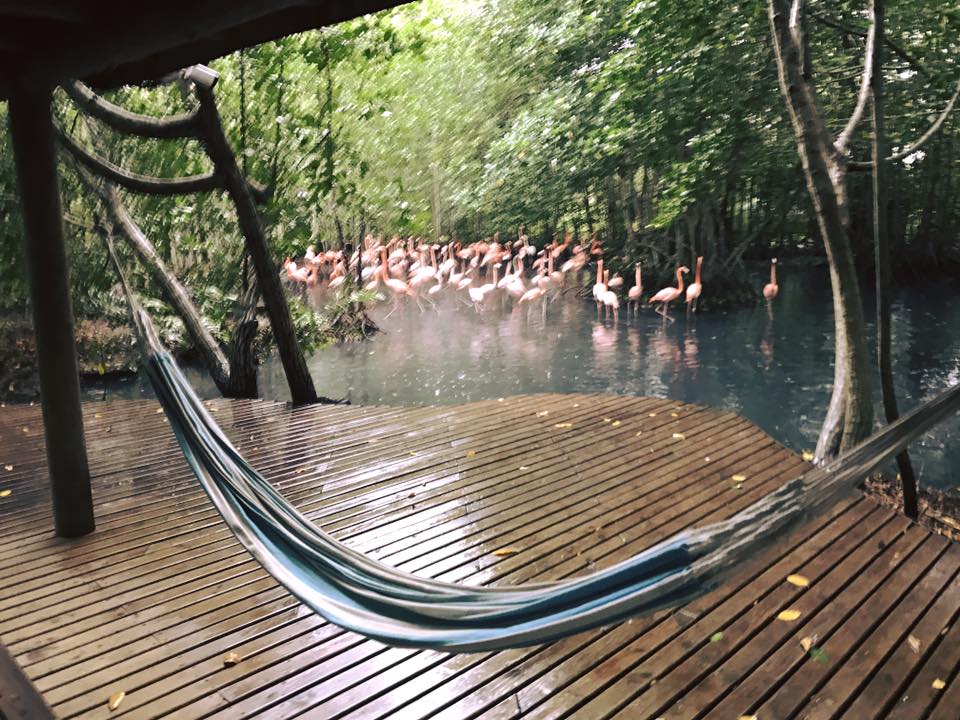
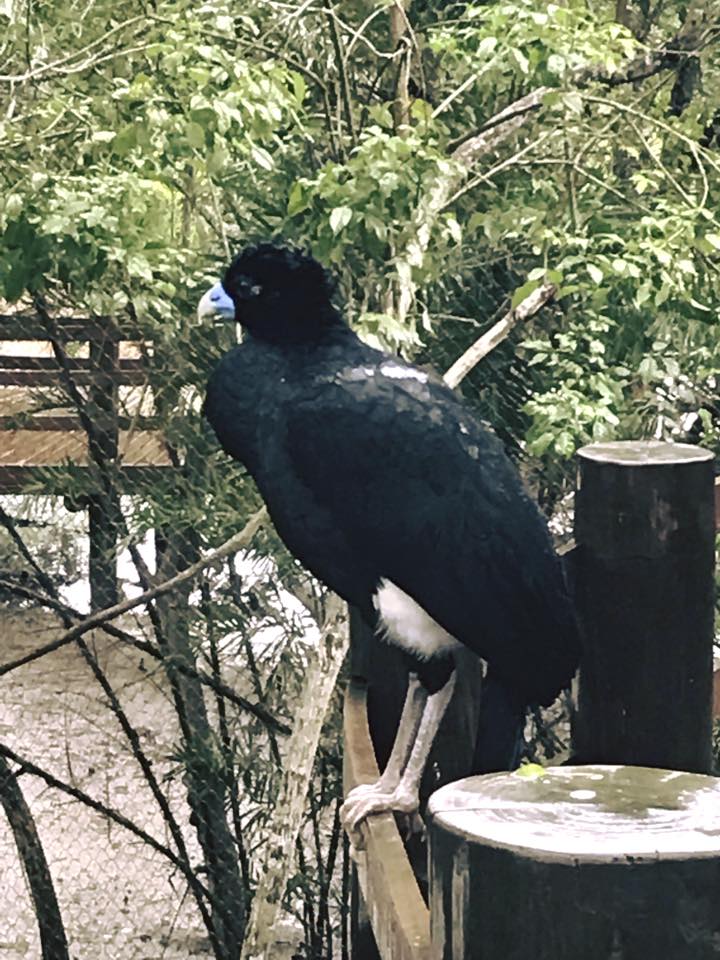
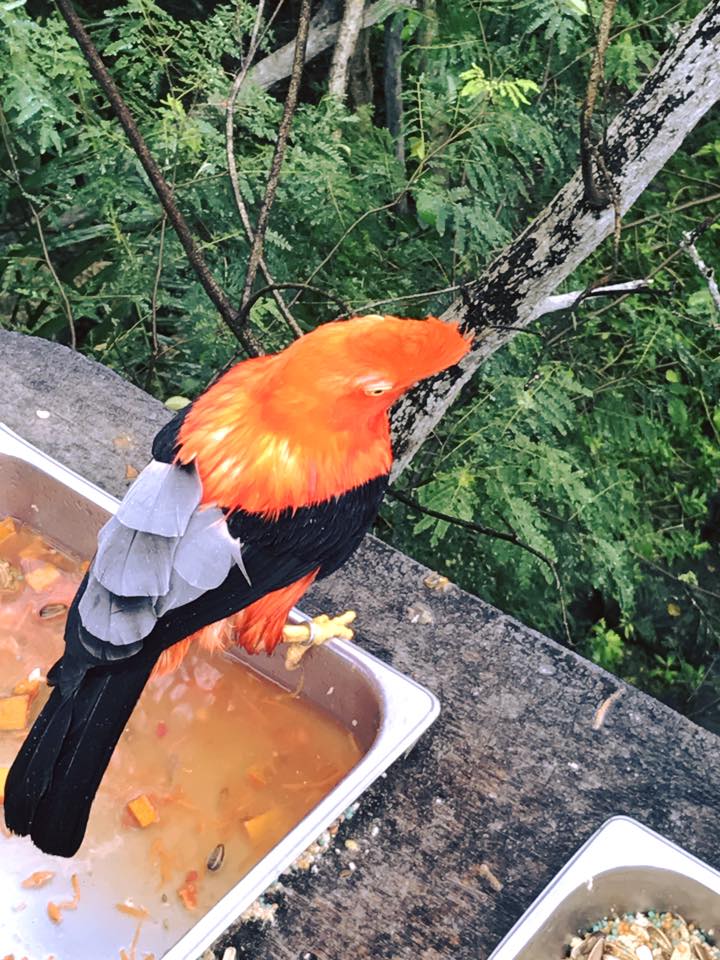

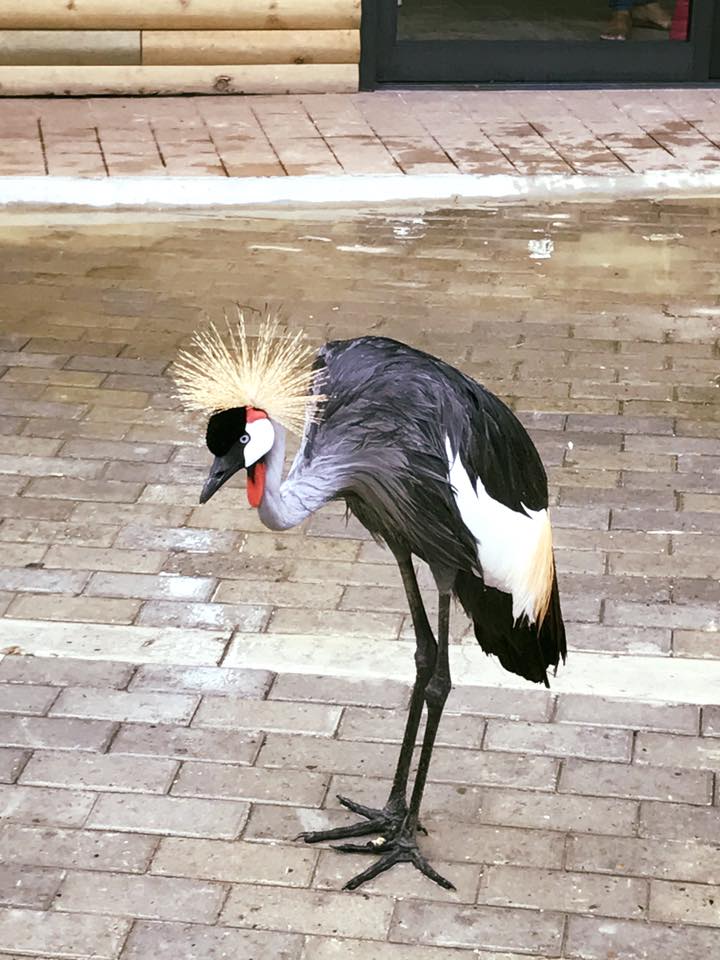
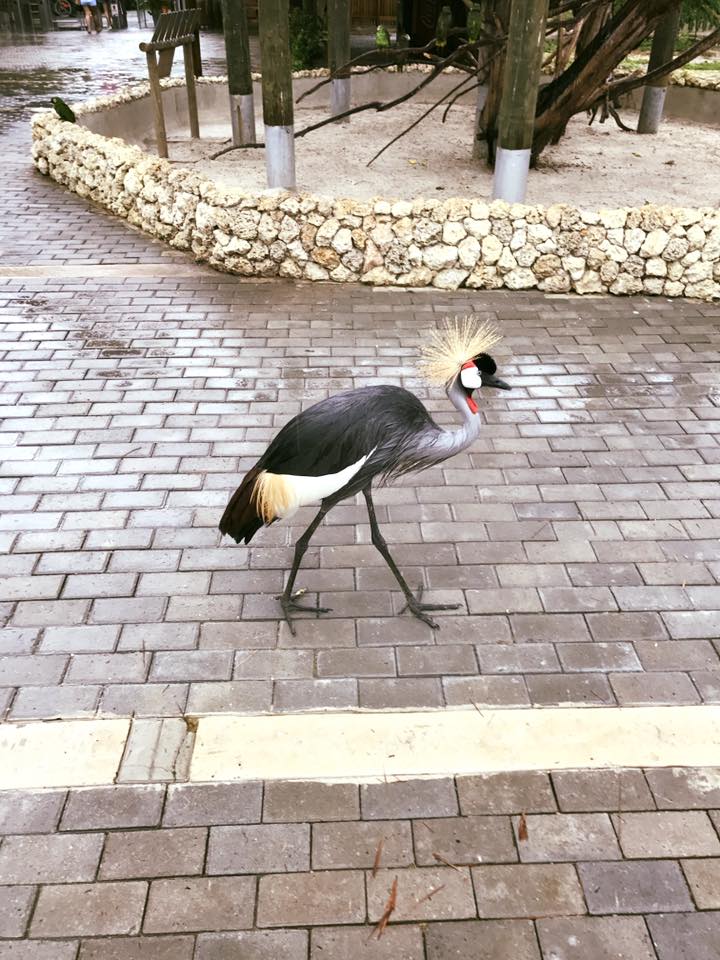
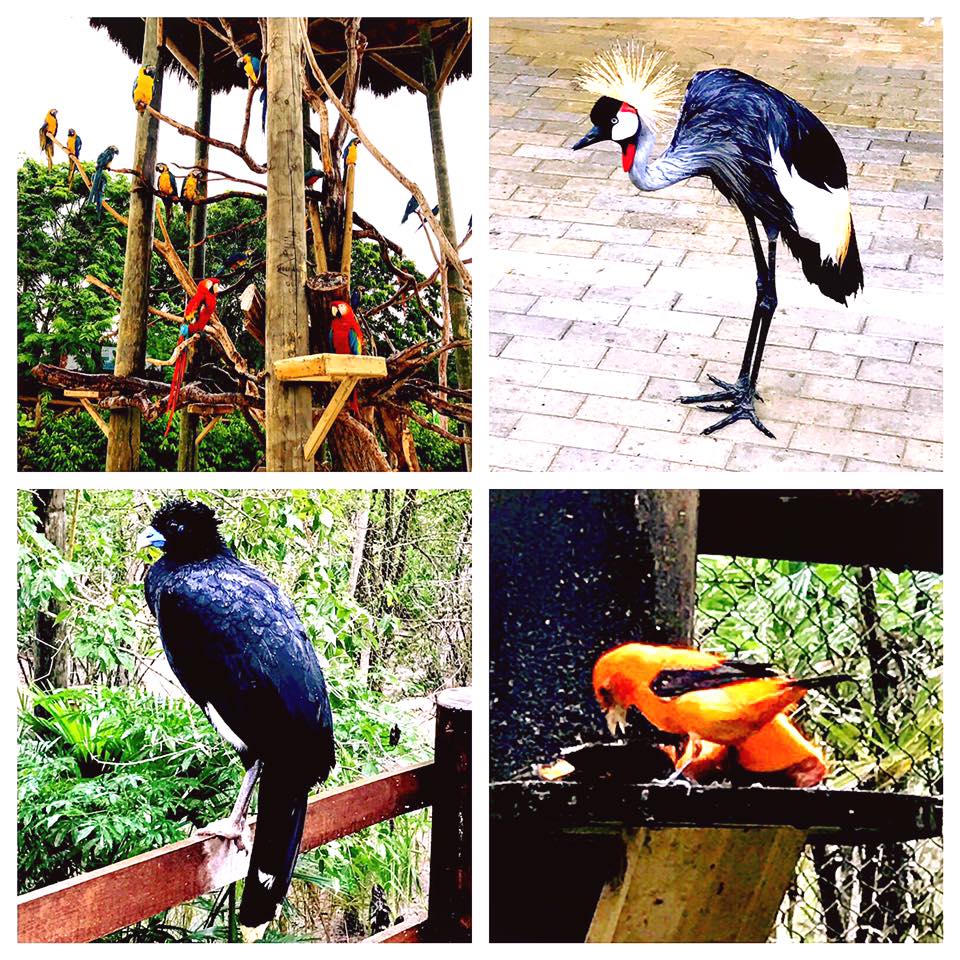 On our way out, we were greeted by some roadside cows!
On our way out, we were greeted by some roadside cows!
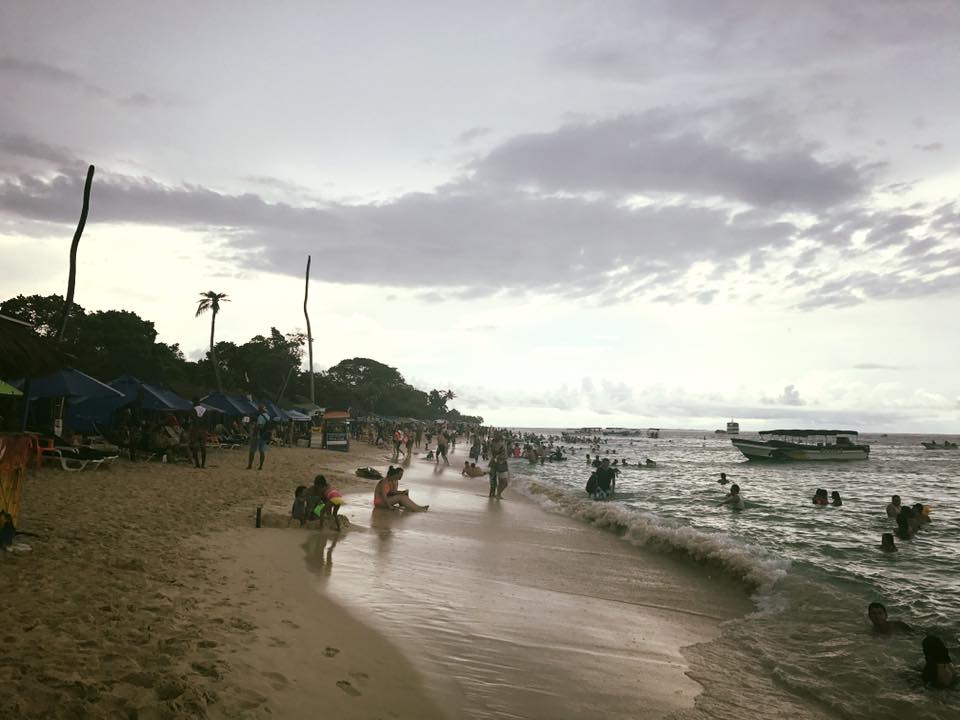
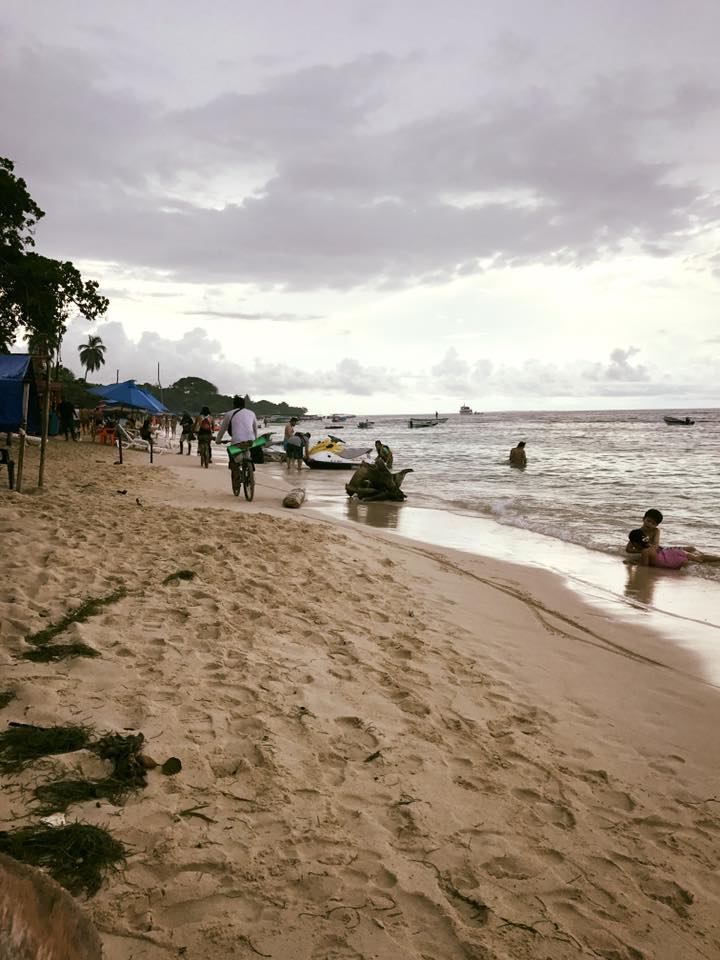 If you want to avoid this mess, you need to walk in the opposite direction for about 15 minutes towards the beach-front hostels. There is literally almost nobody on the beach here, and, in my opinion, this is the only enjoyable way to visit this beach.
If you want to avoid this mess, you need to walk in the opposite direction for about 15 minutes towards the beach-front hostels. There is literally almost nobody on the beach here, and, in my opinion, this is the only enjoyable way to visit this beach.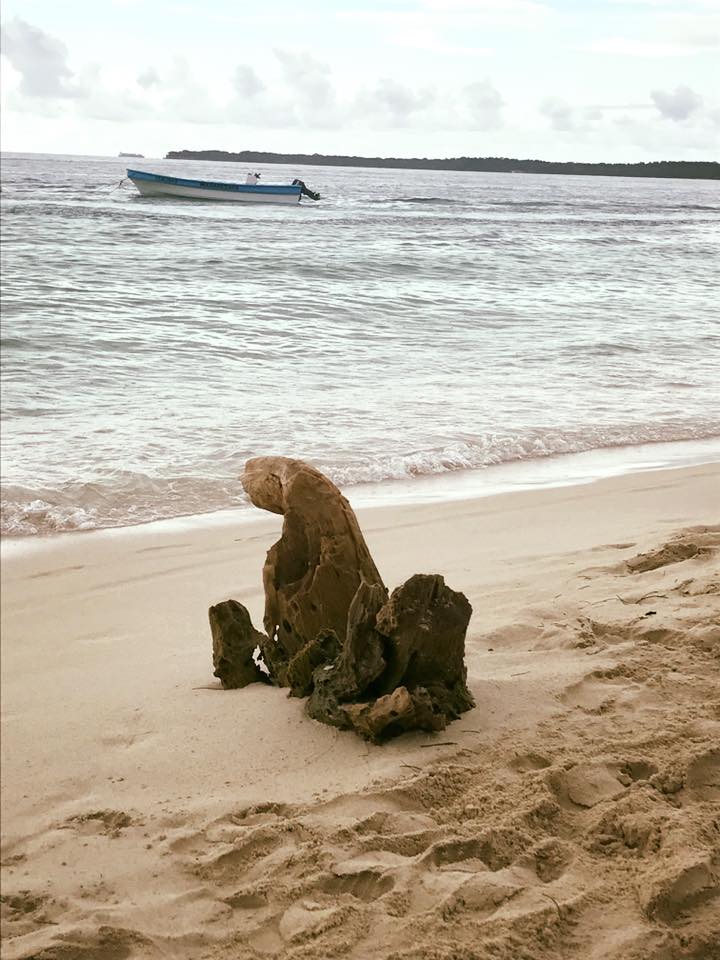
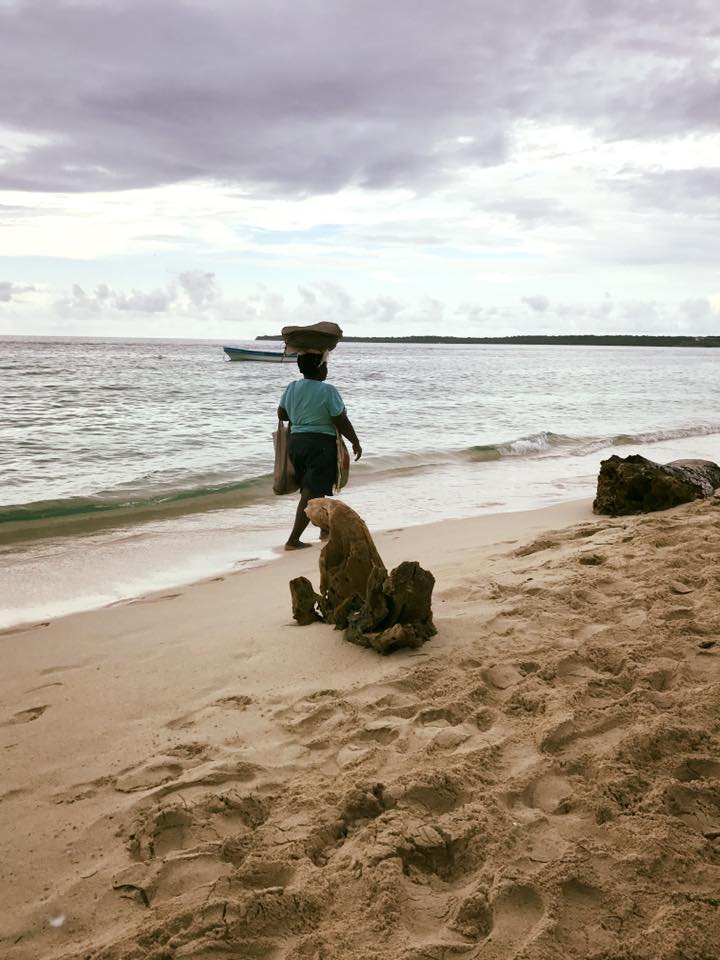
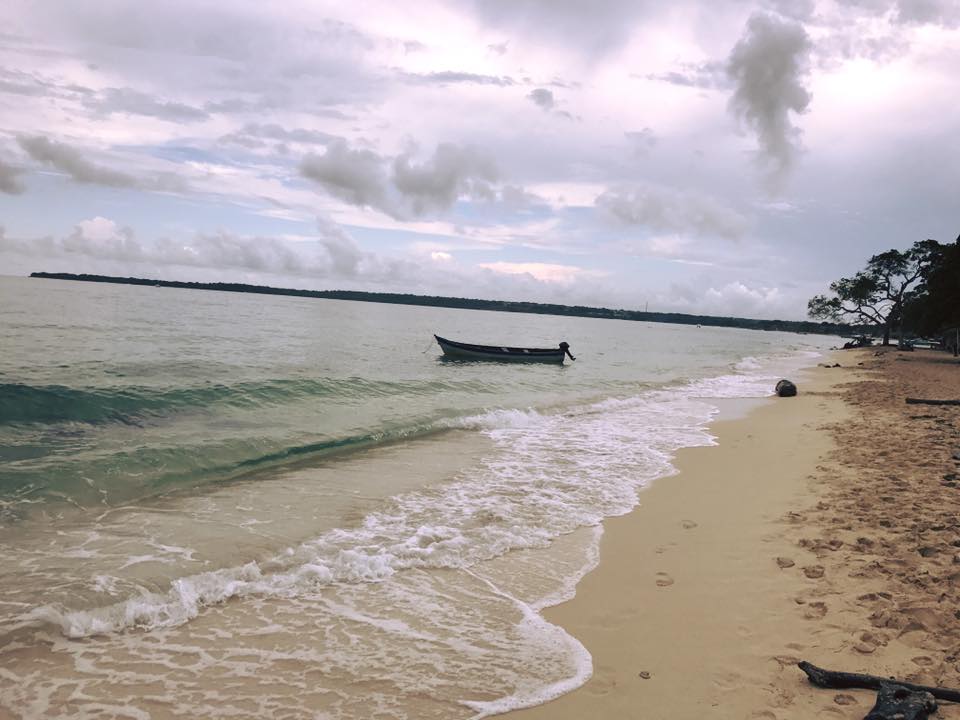
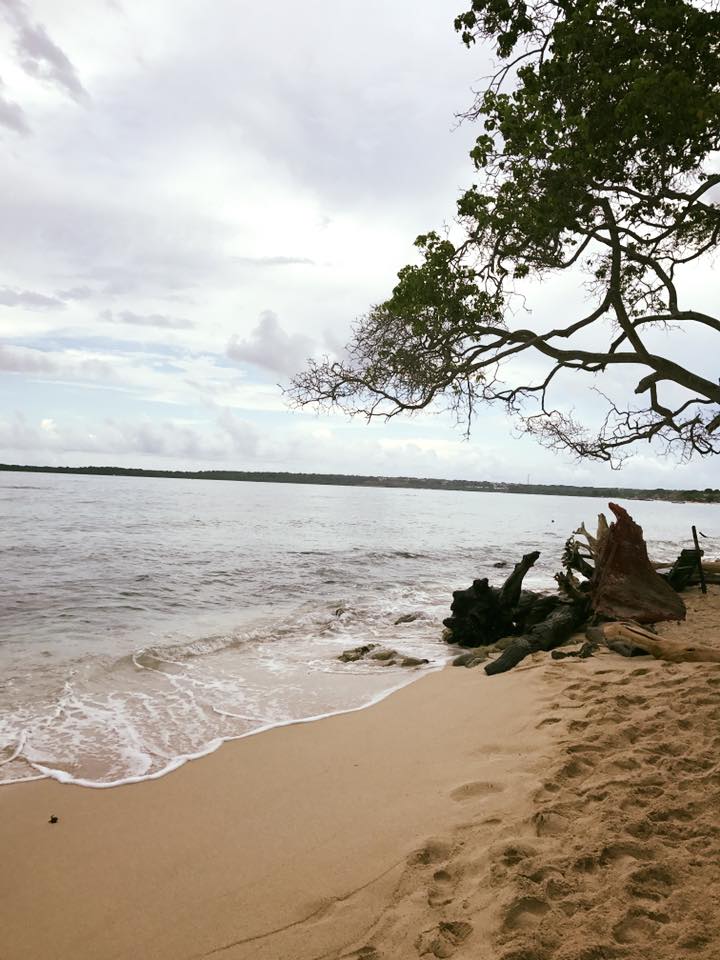
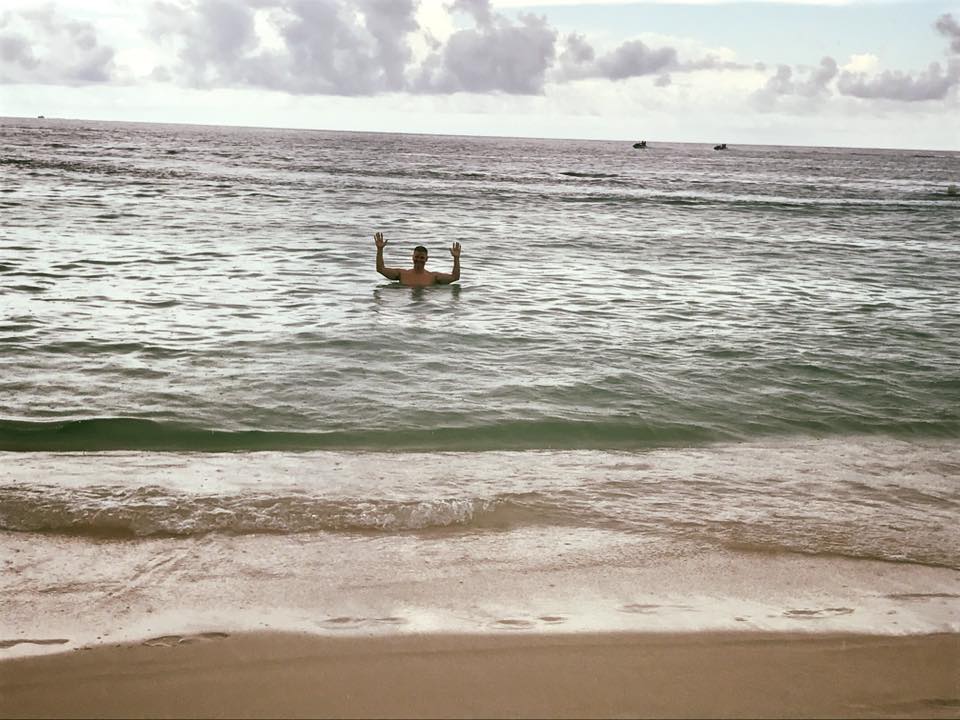
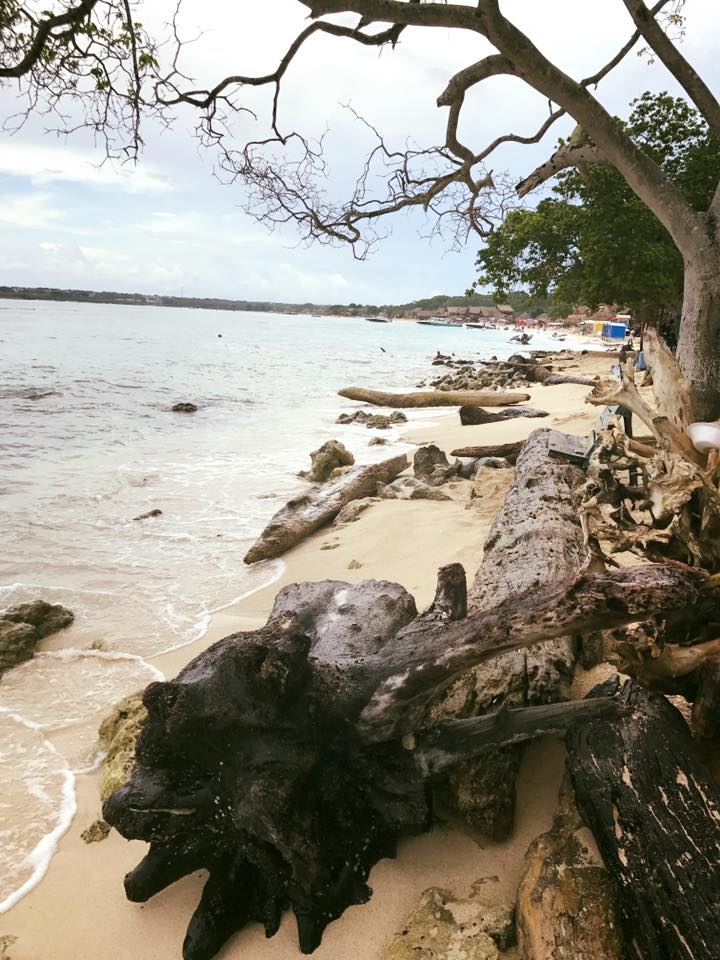
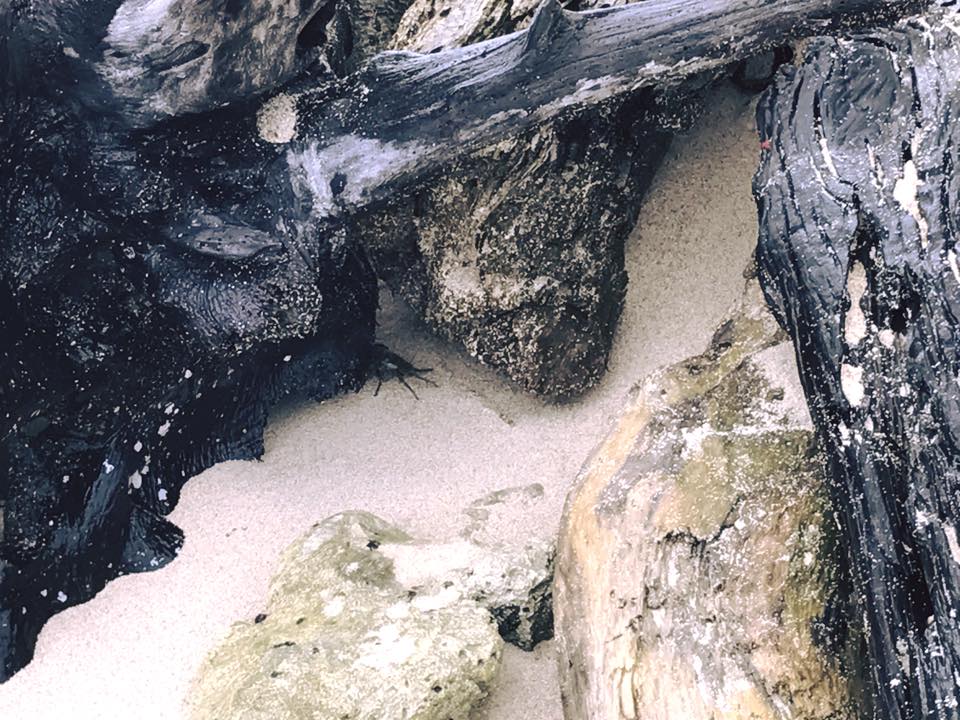
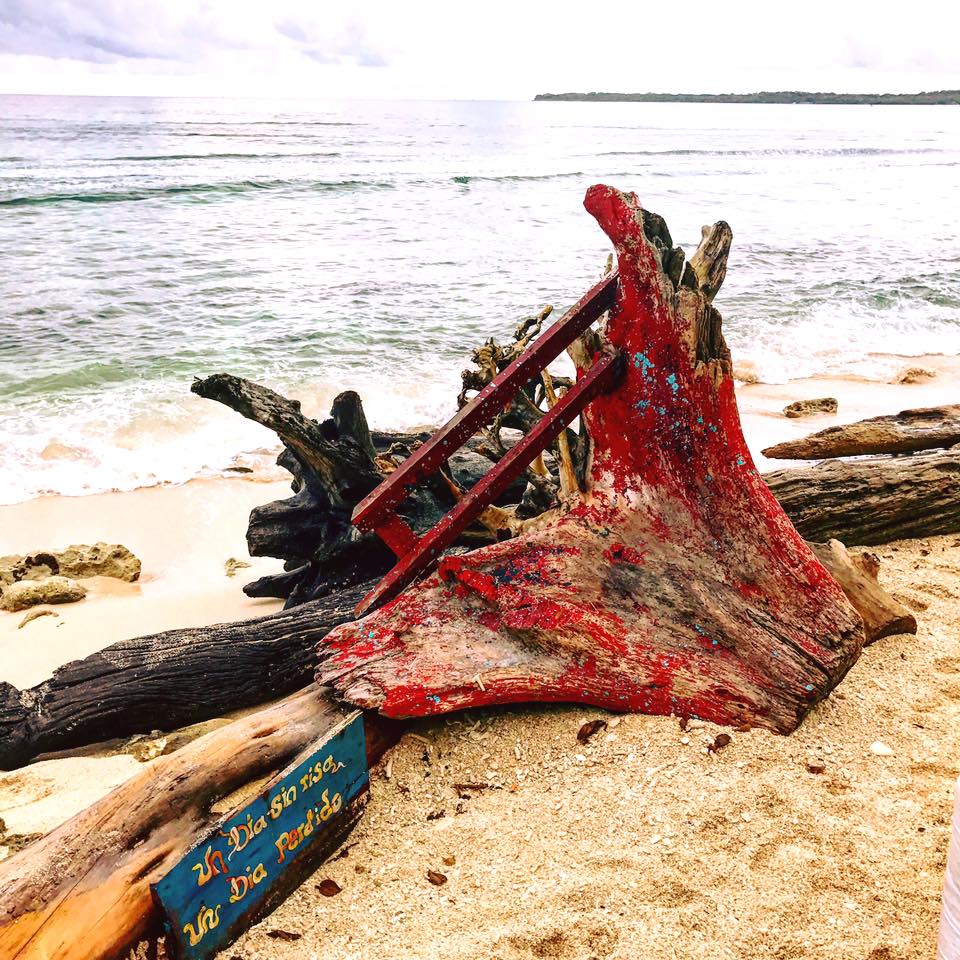 In hindsight, I would probably skip this beach altogether and opt for a private boat to the Rosario Islands, not a public multi-island stop that vendors will try to sell you on the streets of Colombia. I researched this option before leaving and opted against it because I was being quoted $2,000.00 USD for private boat rental by some companies. After speaking to Camilo, he said he could arrange a tour for us on a private boat for $700.00 USD. Our hotel offered the best deal for a private boat tour on a pretty nice 28-foot boat for $400.00 USD for the day.
In hindsight, I would probably skip this beach altogether and opt for a private boat to the Rosario Islands, not a public multi-island stop that vendors will try to sell you on the streets of Colombia. I researched this option before leaving and opted against it because I was being quoted $2,000.00 USD for private boat rental by some companies. After speaking to Camilo, he said he could arrange a tour for us on a private boat for $700.00 USD. Our hotel offered the best deal for a private boat tour on a pretty nice 28-foot boat for $400.00 USD for the day.

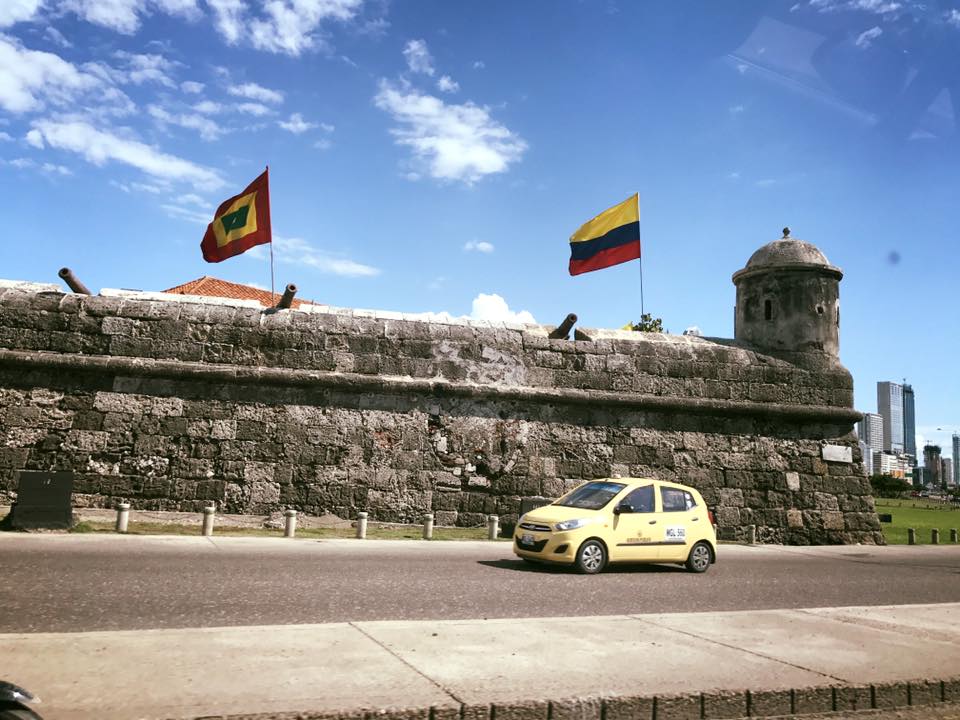
 If you read this blog, then, like me, you probably have a passion for travel. A curiosity about the world. A desire for a more meaningful existence. I personally think that travel is one of the best educations and investments in you. Through travel, you learn about yourself, you learn about others, and you bridge the gap between yourself and that which was previously unknown to you. It is then that you realize that, despite different languages, cultures, and religious beliefs, most of the world is the same. In a way, travel erases fear and, sometimes, prejudices.
If you read this blog, then, like me, you probably have a passion for travel. A curiosity about the world. A desire for a more meaningful existence. I personally think that travel is one of the best educations and investments in you. Through travel, you learn about yourself, you learn about others, and you bridge the gap between yourself and that which was previously unknown to you. It is then that you realize that, despite different languages, cultures, and religious beliefs, most of the world is the same. In a way, travel erases fear and, sometimes, prejudices. Truer words have never been spoken. As the saying goes, the only certainty in life is death and taxes. So, since you know you only have a limited amount of time on this planet, why not spend it living? I am not advocating that you just quit your job, shirk all your responsibilities, and run around the world living a gypsy life. What I am saying is make time to live. Go outside of your comfort zone. Try something new. Go somewhere new. Learn something new. Which brings me to my next philosophy:
Truer words have never been spoken. As the saying goes, the only certainty in life is death and taxes. So, since you know you only have a limited amount of time on this planet, why not spend it living? I am not advocating that you just quit your job, shirk all your responsibilities, and run around the world living a gypsy life. What I am saying is make time to live. Go outside of your comfort zone. Try something new. Go somewhere new. Learn something new. Which brings me to my next philosophy: Dreams are aspirational. Plans are more concrete. Travel doesn’t have to be a dream. It should be a plan. Make travel part of your plan. Pick a place that has always interested you, set aside some time (like literally request the time off of work and put it on your calendar, even if it is a year away), set a realistic budget (a little internet research and can help you determine how much it will cost to get there and stay there, and then add 10 to 20% so there are no surprises), and then work towards that goal (skip that morning coffee, and put the money in your travel fund; bring your lunch instead of going out, and put that money in your travel fund; walk instead of uber, and get exercise and a few more dollars for your travel fund). That way, you can
Dreams are aspirational. Plans are more concrete. Travel doesn’t have to be a dream. It should be a plan. Make travel part of your plan. Pick a place that has always interested you, set aside some time (like literally request the time off of work and put it on your calendar, even if it is a year away), set a realistic budget (a little internet research and can help you determine how much it will cost to get there and stay there, and then add 10 to 20% so there are no surprises), and then work towards that goal (skip that morning coffee, and put the money in your travel fund; bring your lunch instead of going out, and put that money in your travel fund; walk instead of uber, and get exercise and a few more dollars for your travel fund). That way, you can Because, let’s be honest, there is nothing worse than regret. And,
Because, let’s be honest, there is nothing worse than regret. And,  You were meant for so much more than that! So, the next time you are feeling the pressures of work (and life), just remember,
You were meant for so much more than that! So, the next time you are feeling the pressures of work (and life), just remember, Take some time out in your life to enjoy all that hard work and to fill your soul. You deserve an adventure! You deserve to
Take some time out in your life to enjoy all that hard work and to fill your soul. You deserve an adventure! You deserve to Okay, so that was 6 philosophies. I guess I was feeling generous. Anyway, I hope this post inspires you to take that trip that you have pushed to the back of your mind, and, as always, I would love to hear about it.
Okay, so that was 6 philosophies. I guess I was feeling generous. Anyway, I hope this post inspires you to take that trip that you have pushed to the back of your mind, and, as always, I would love to hear about it.